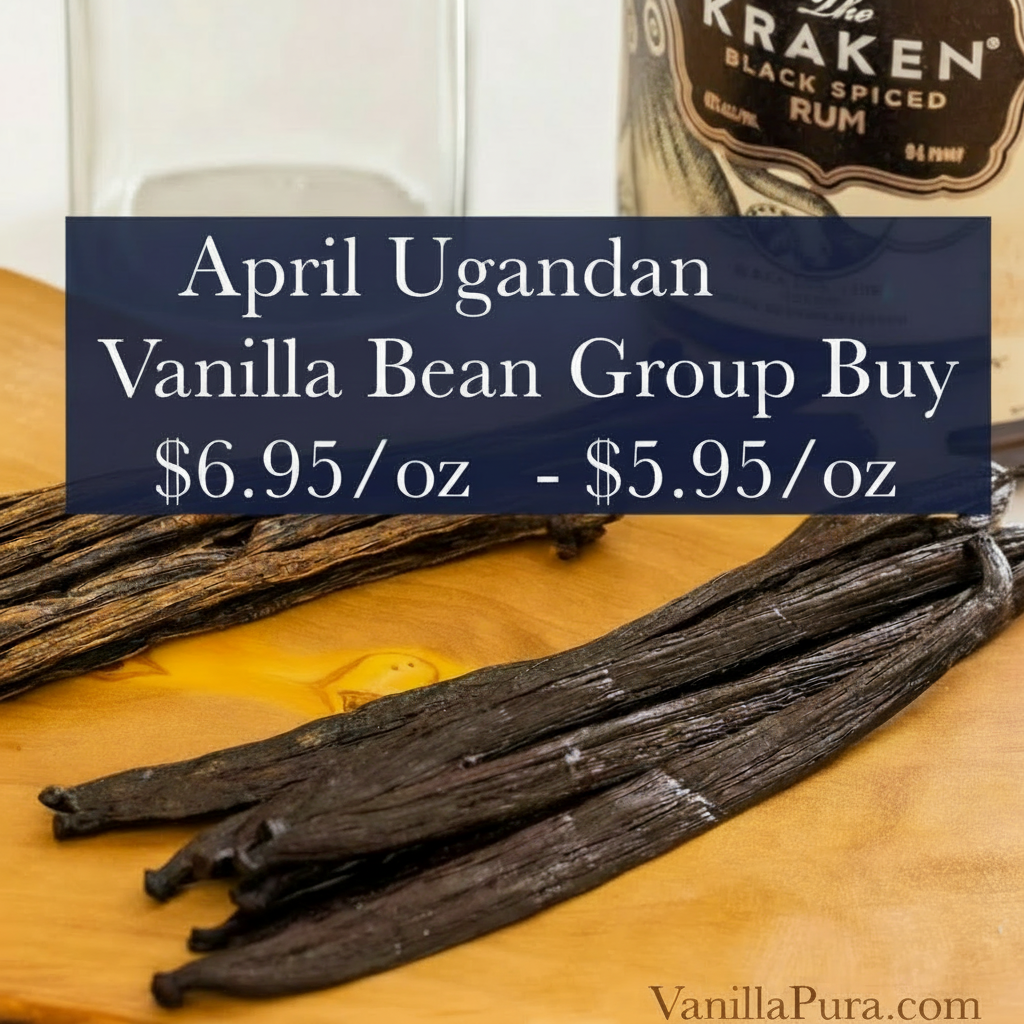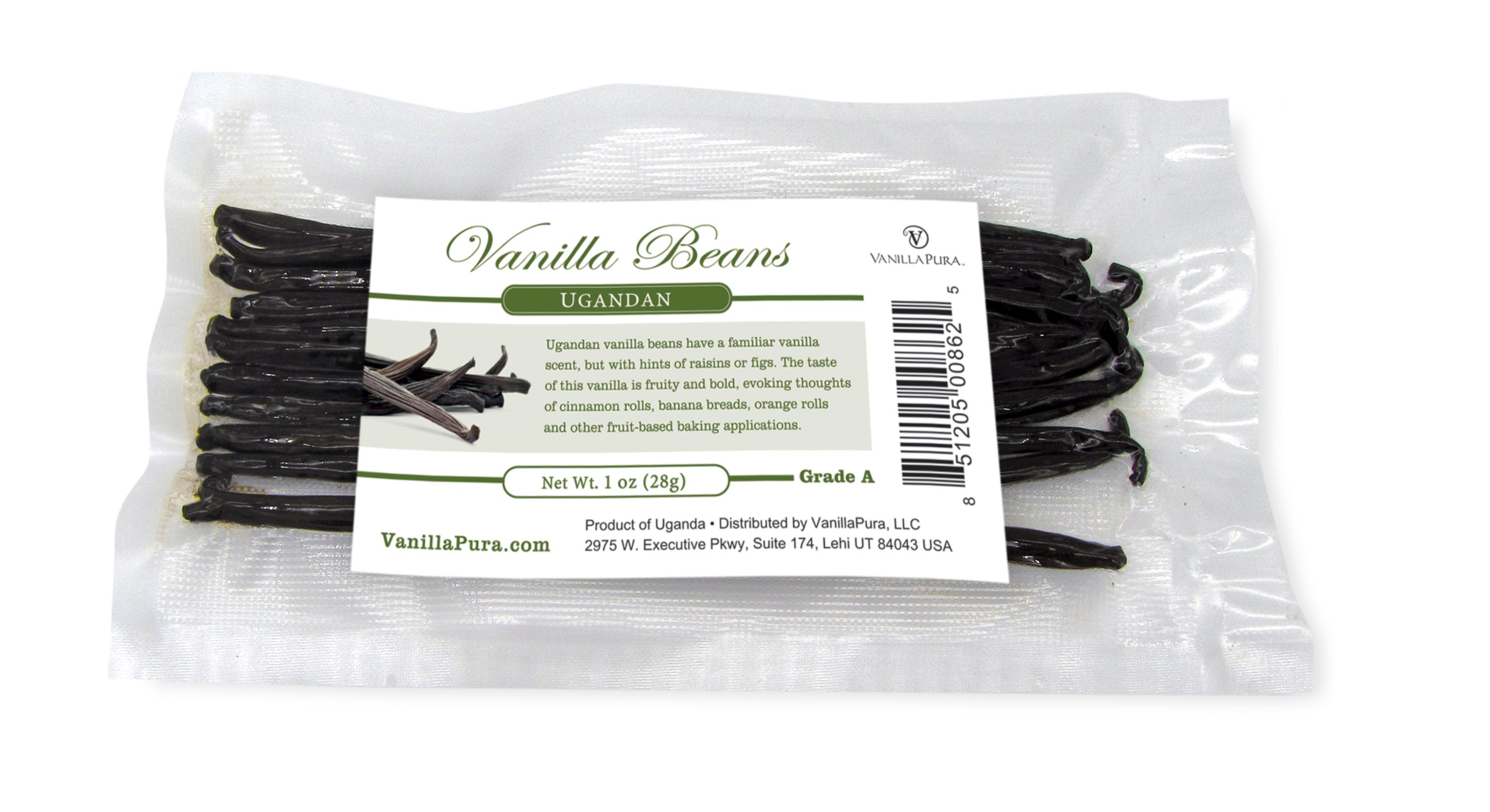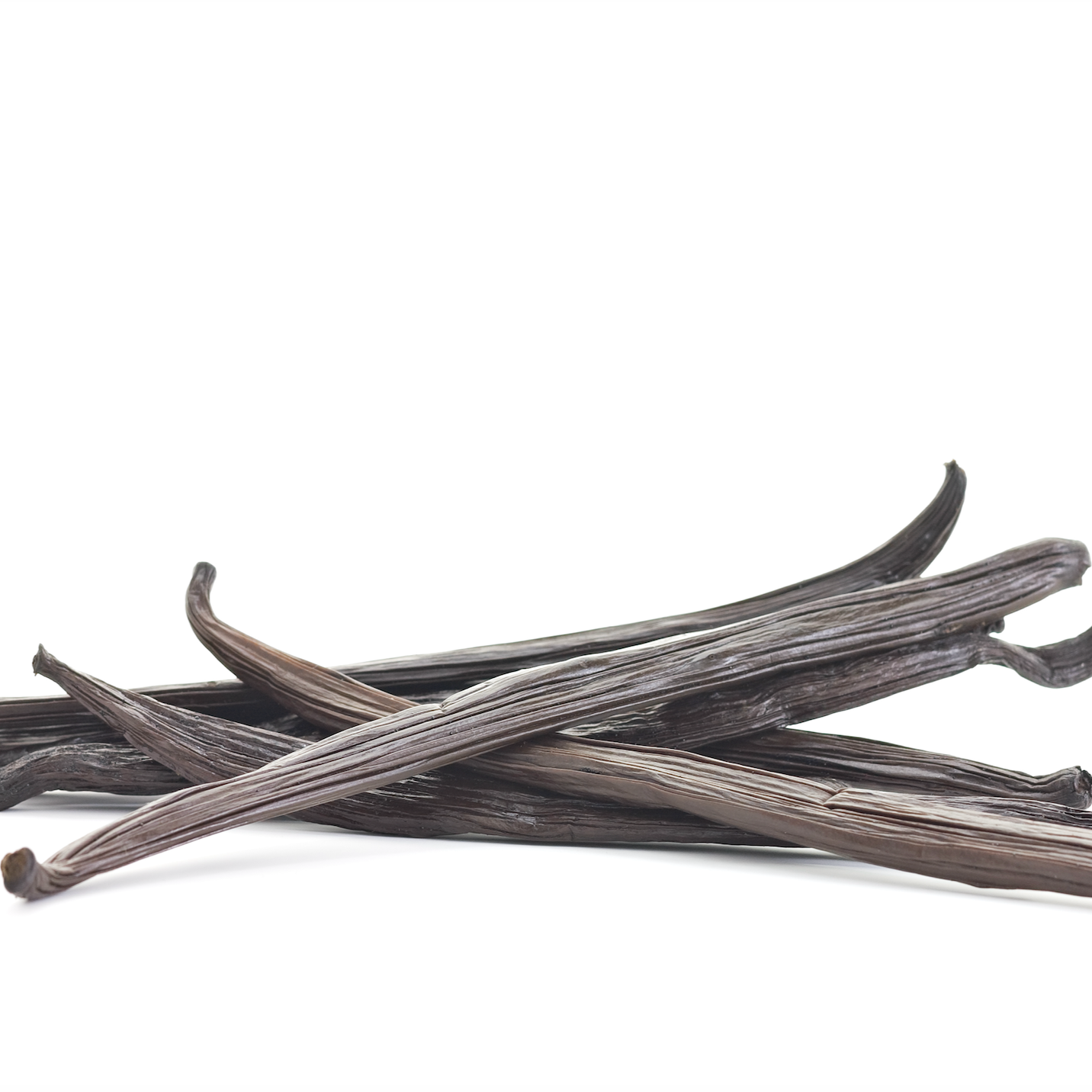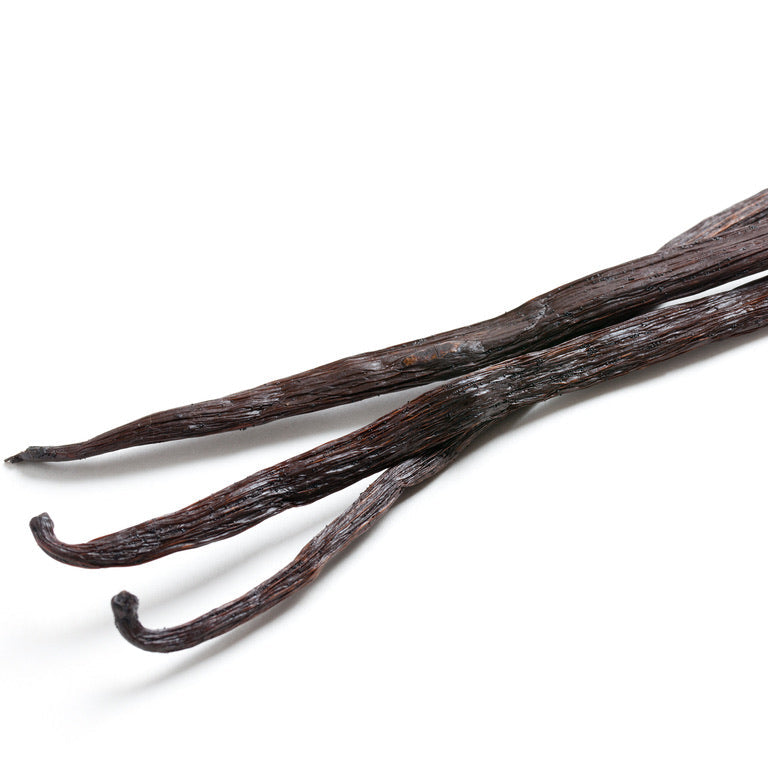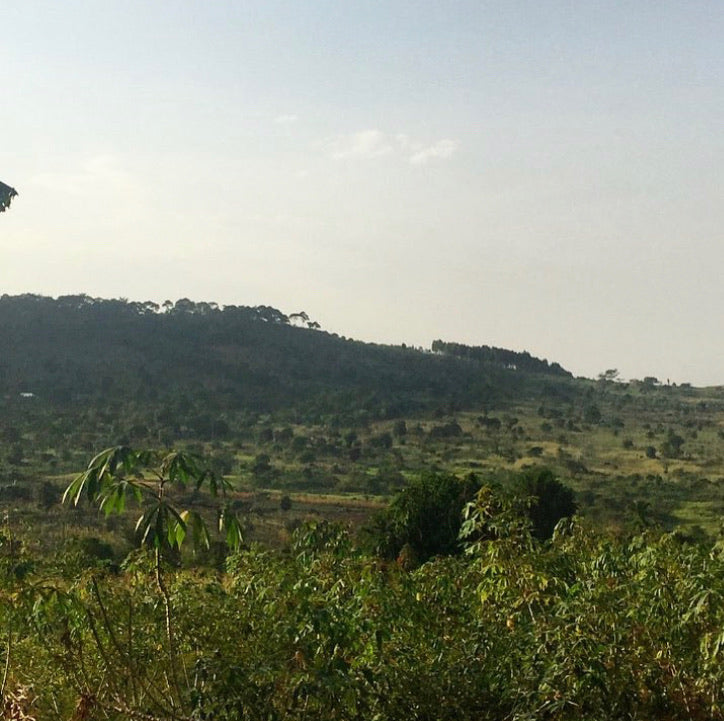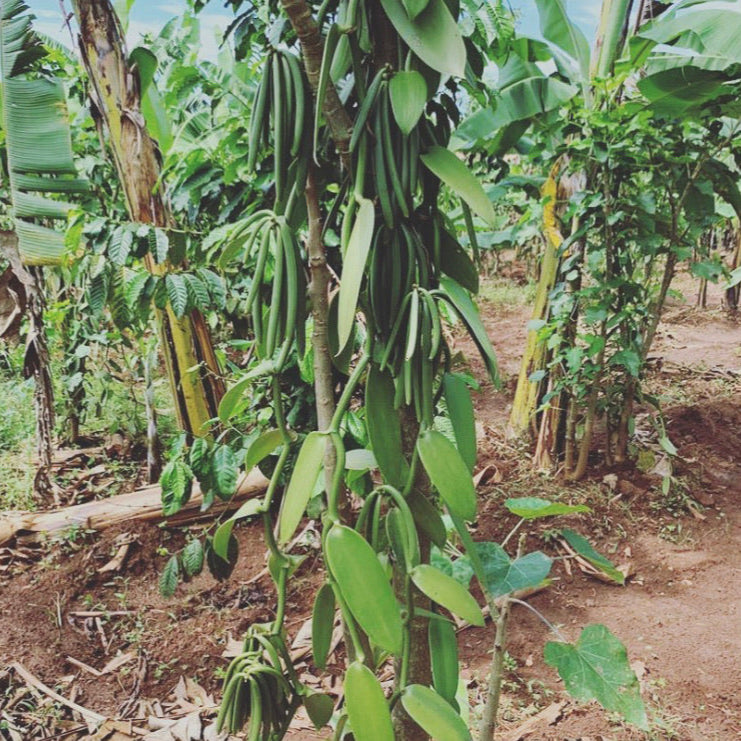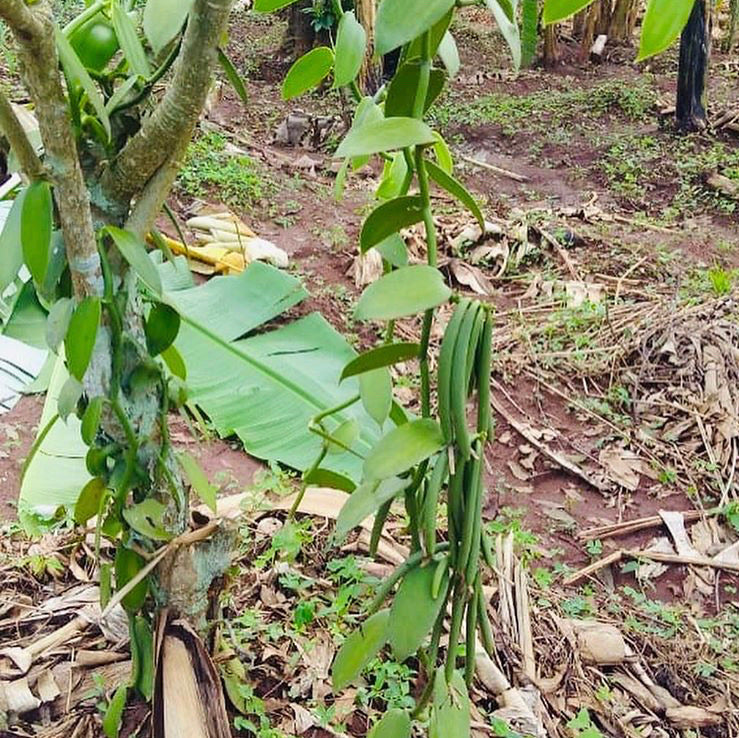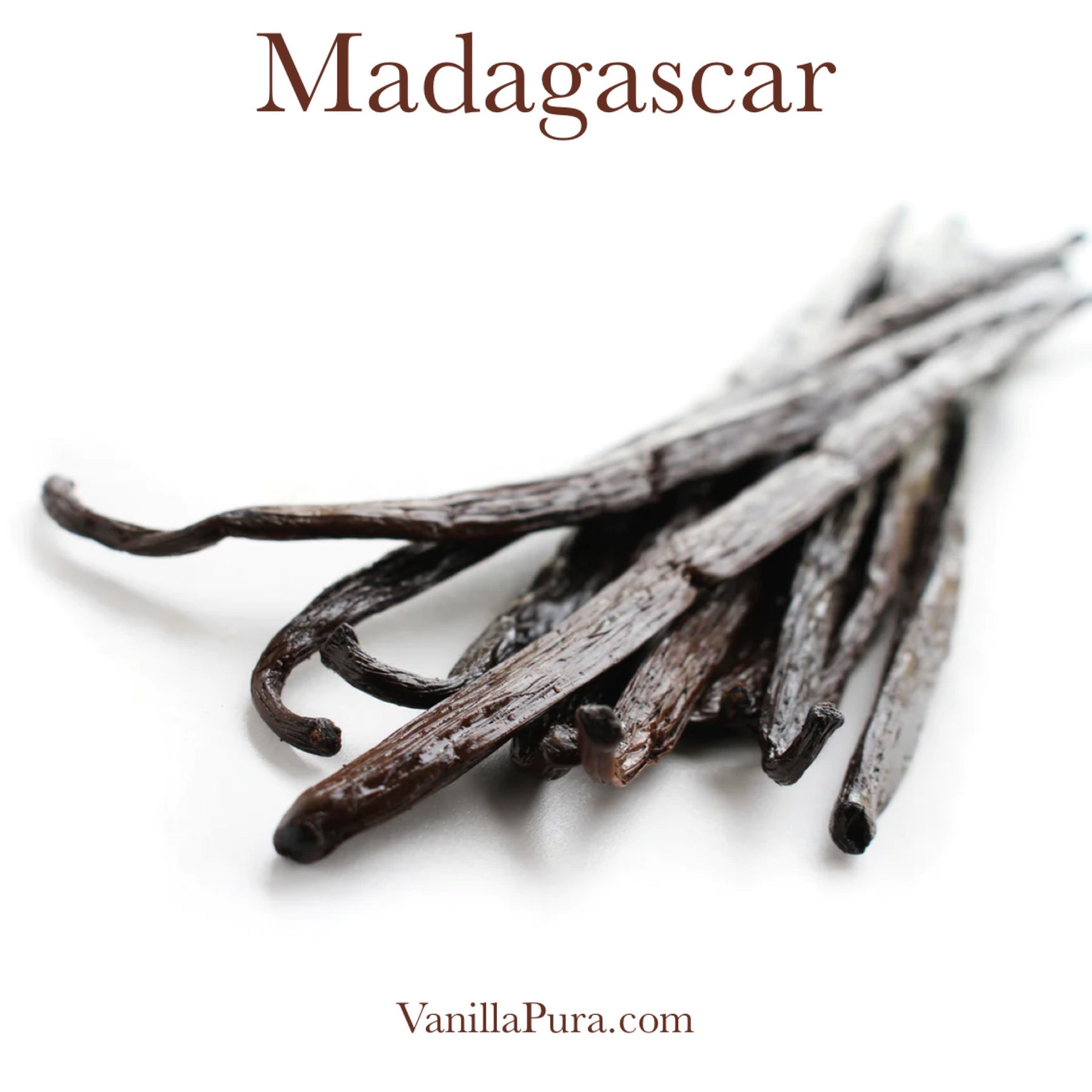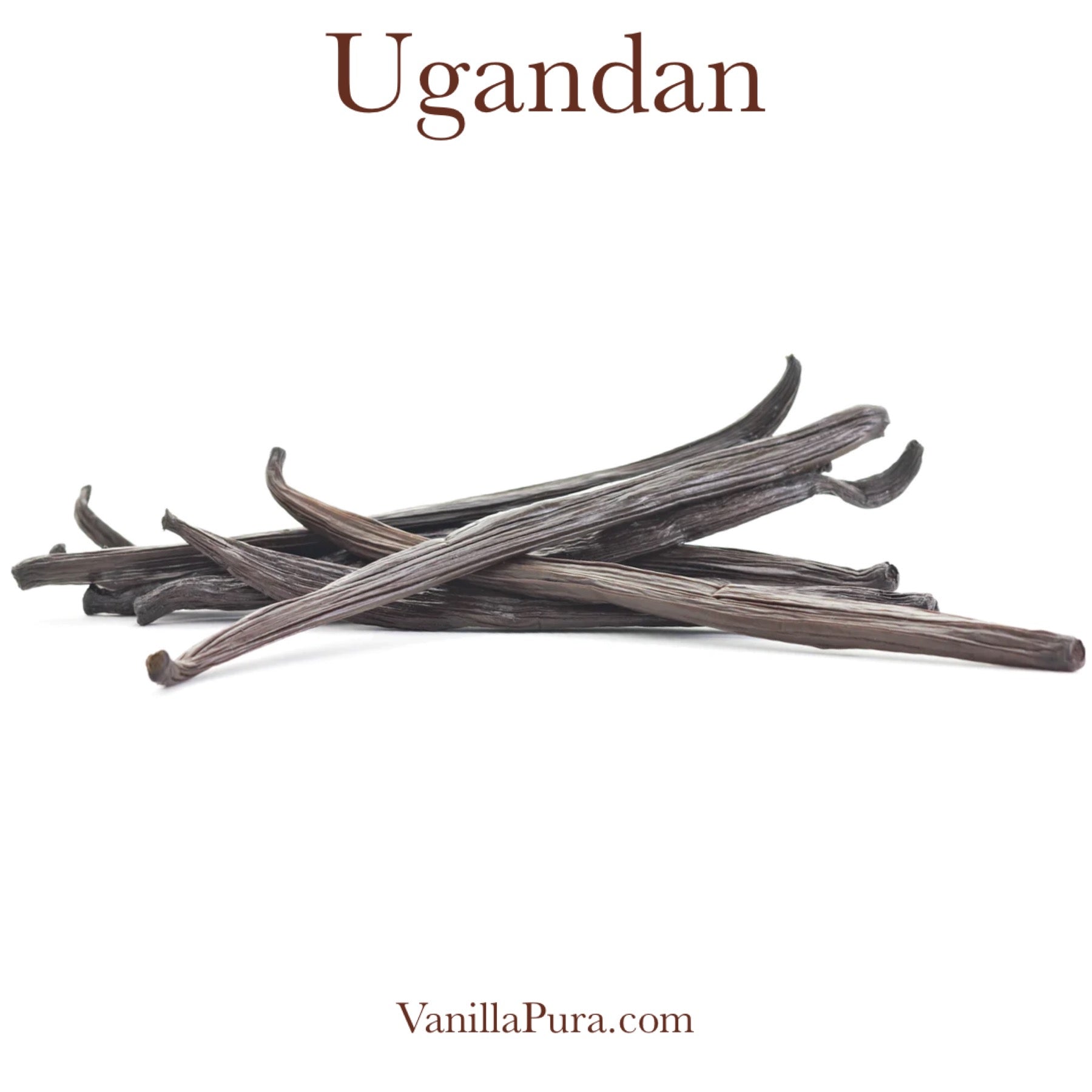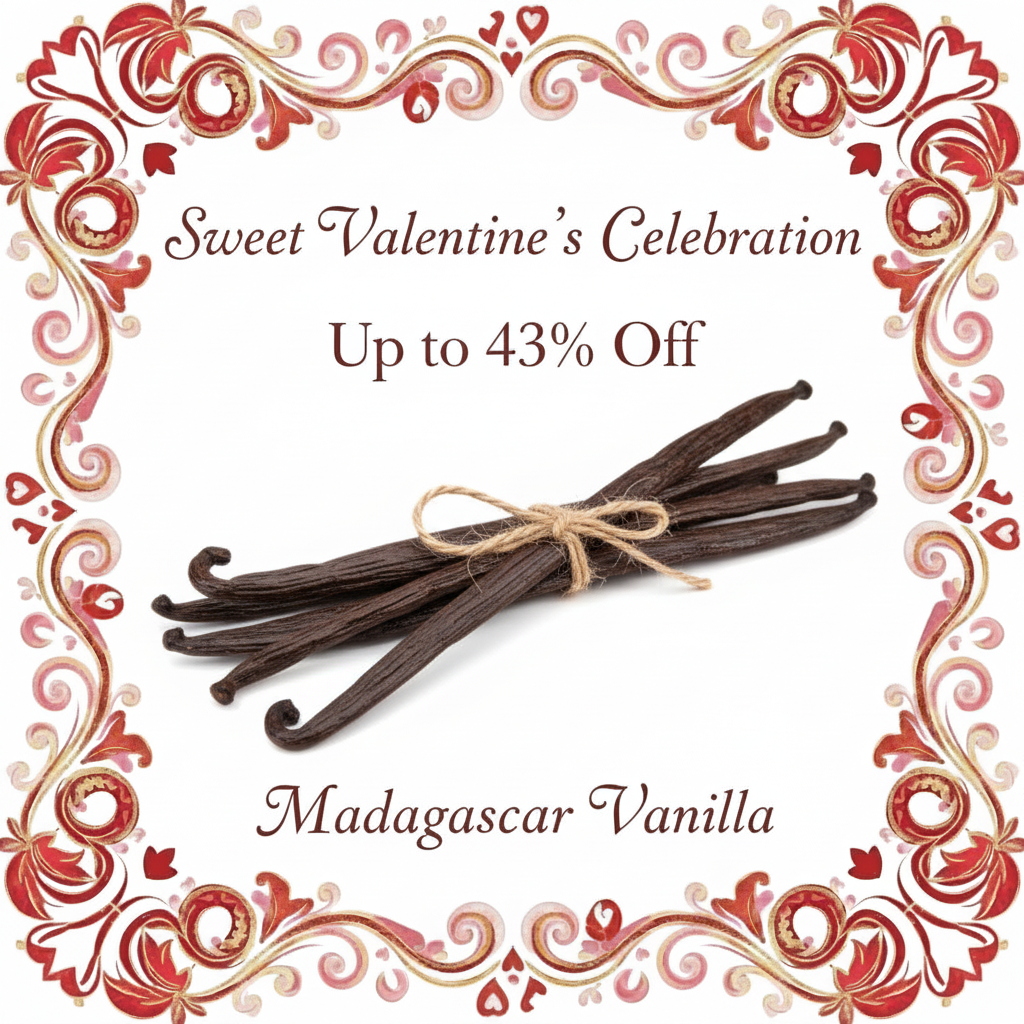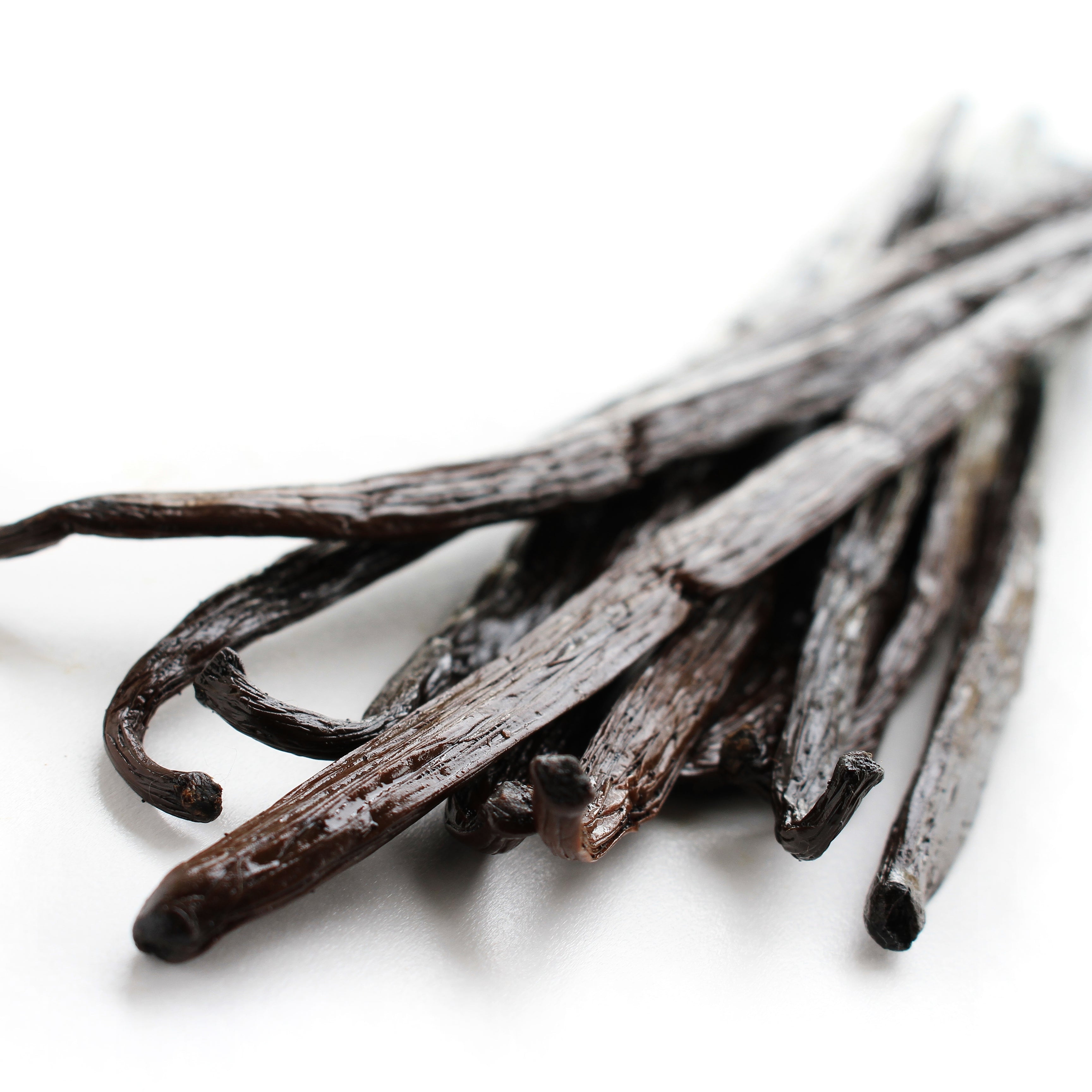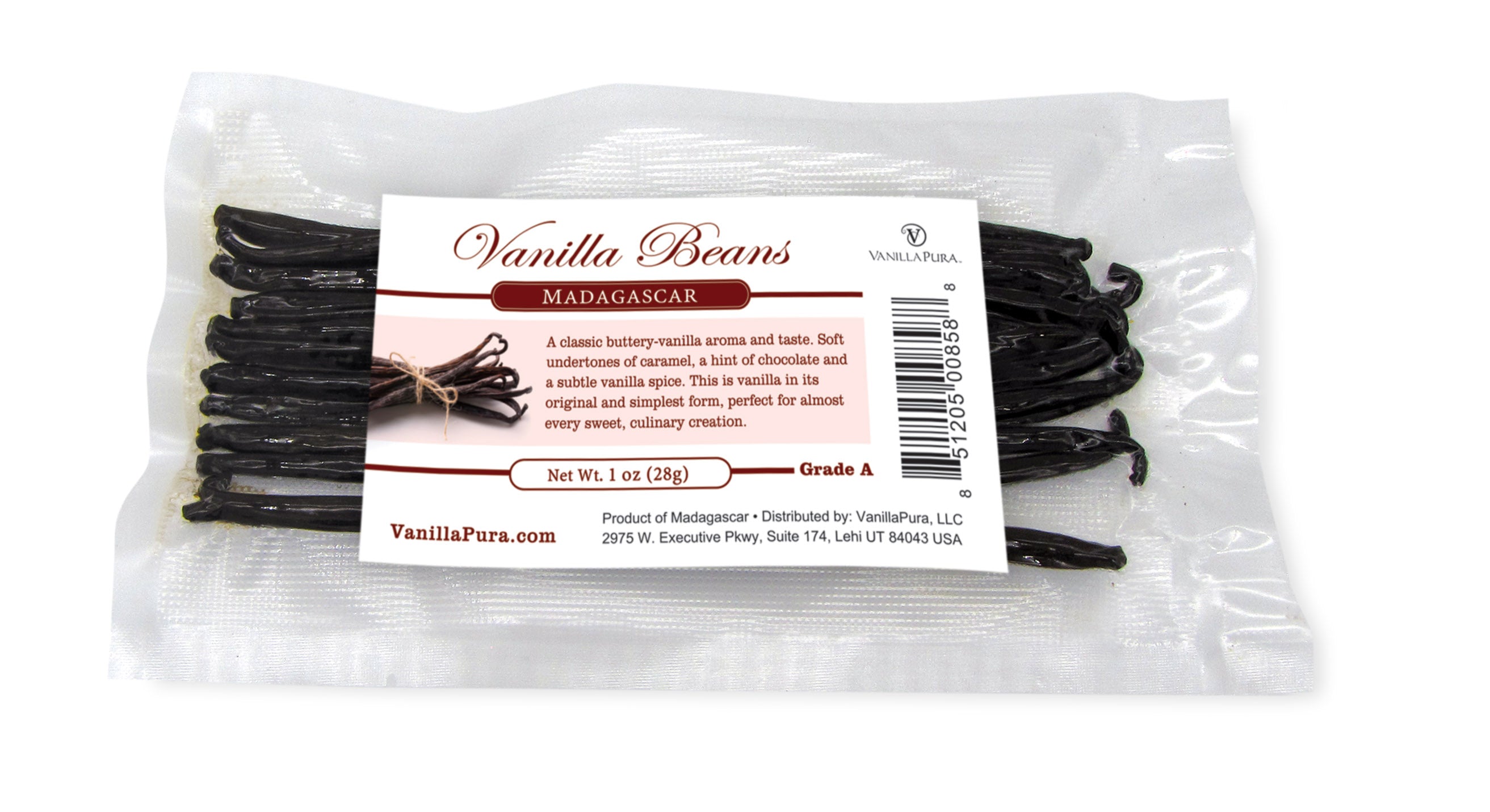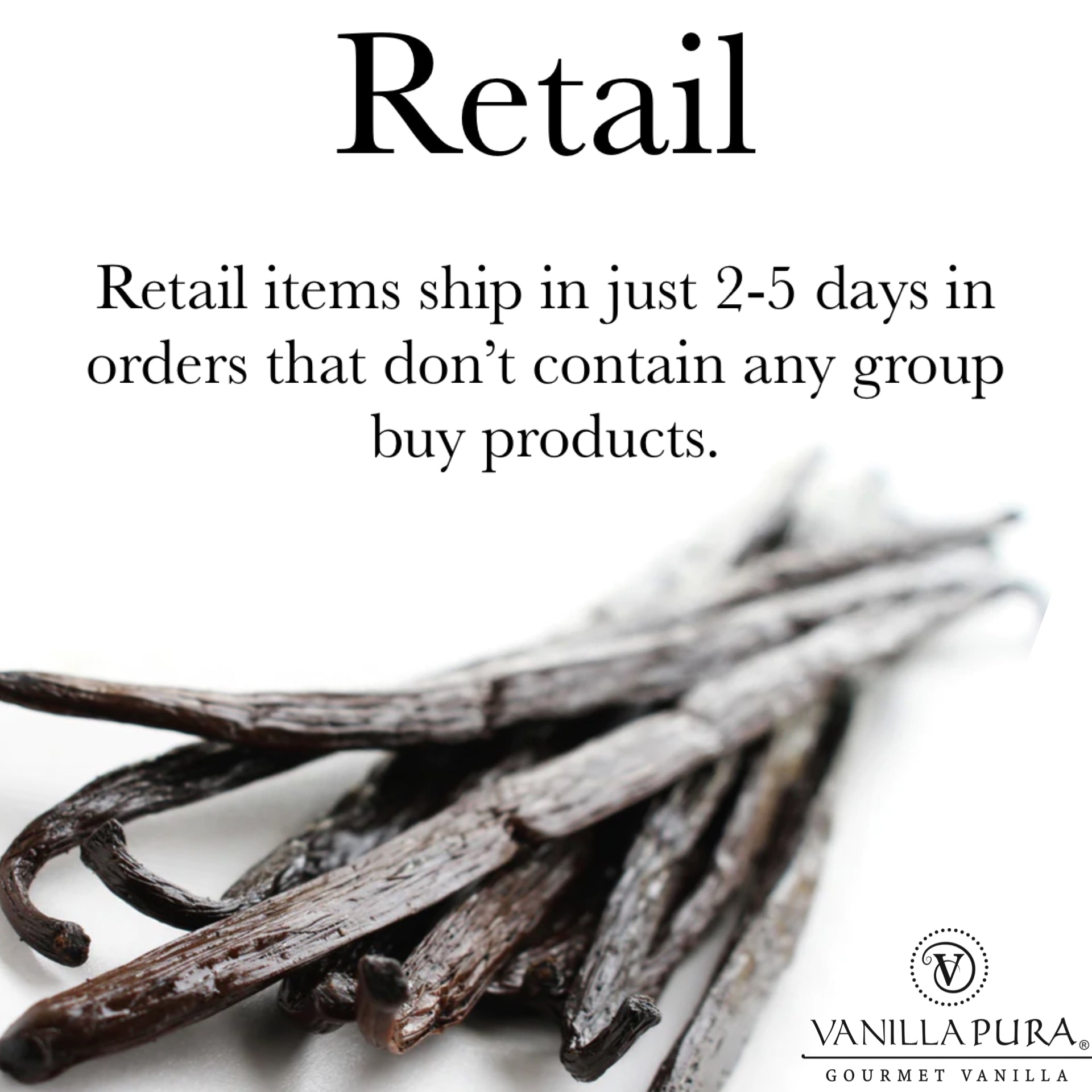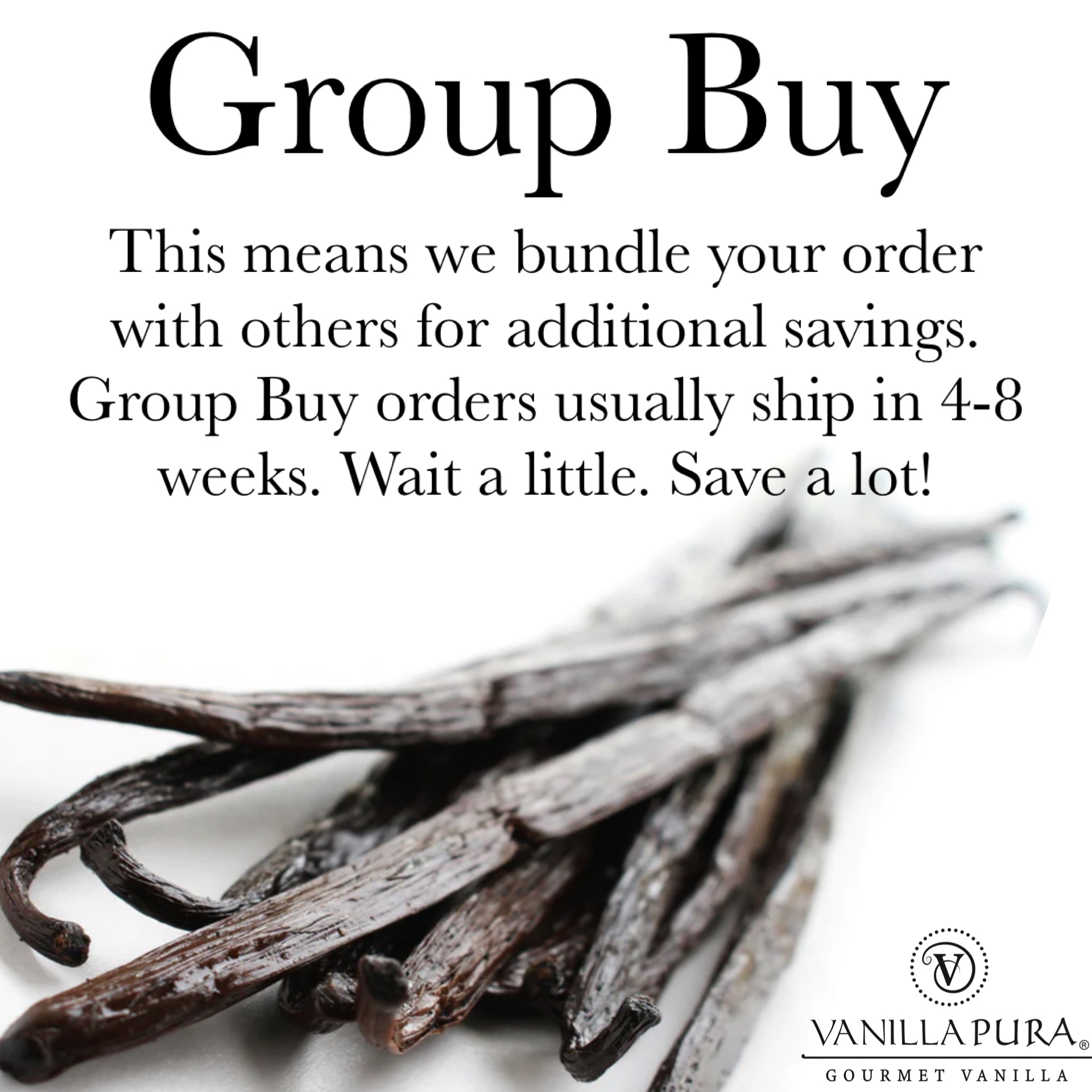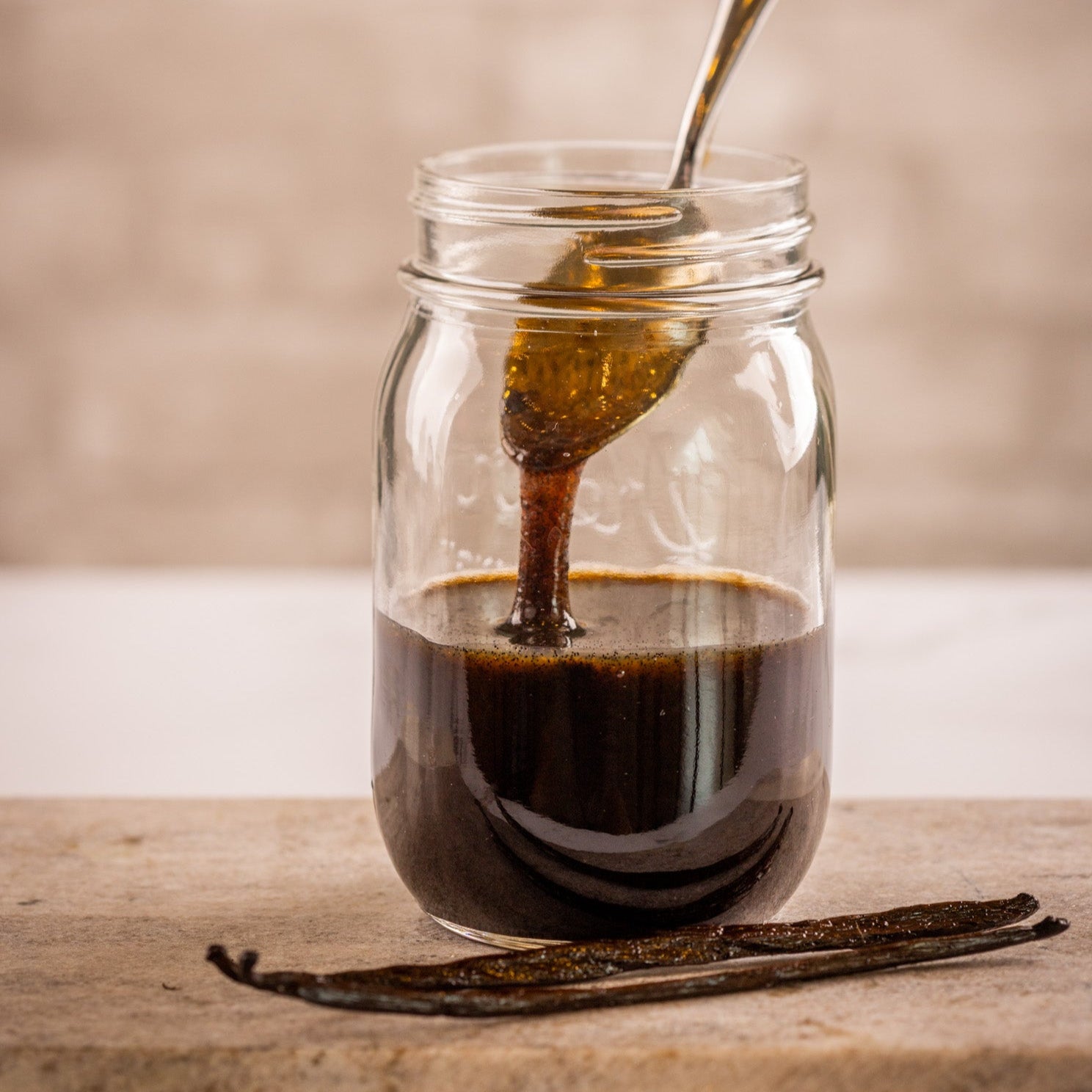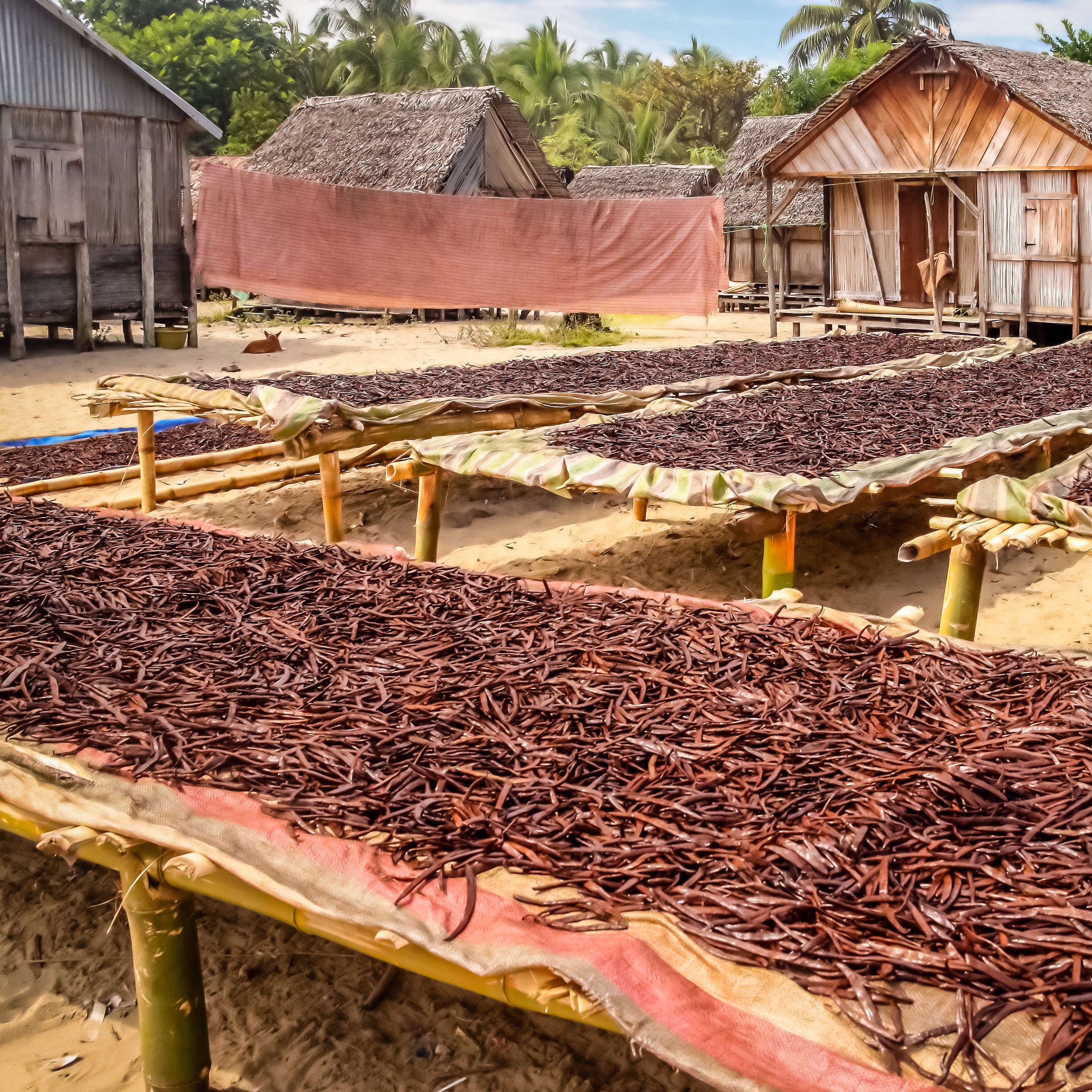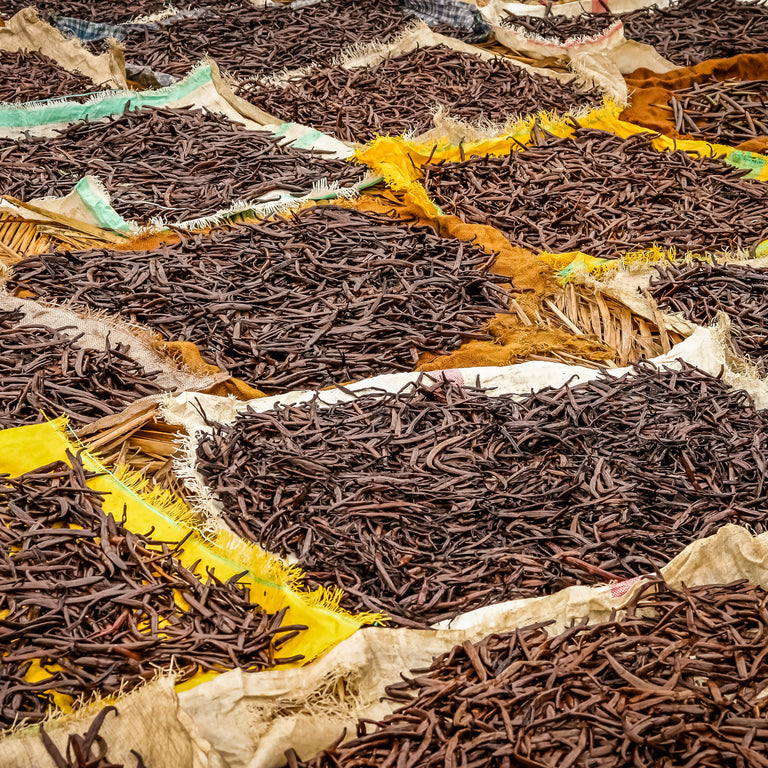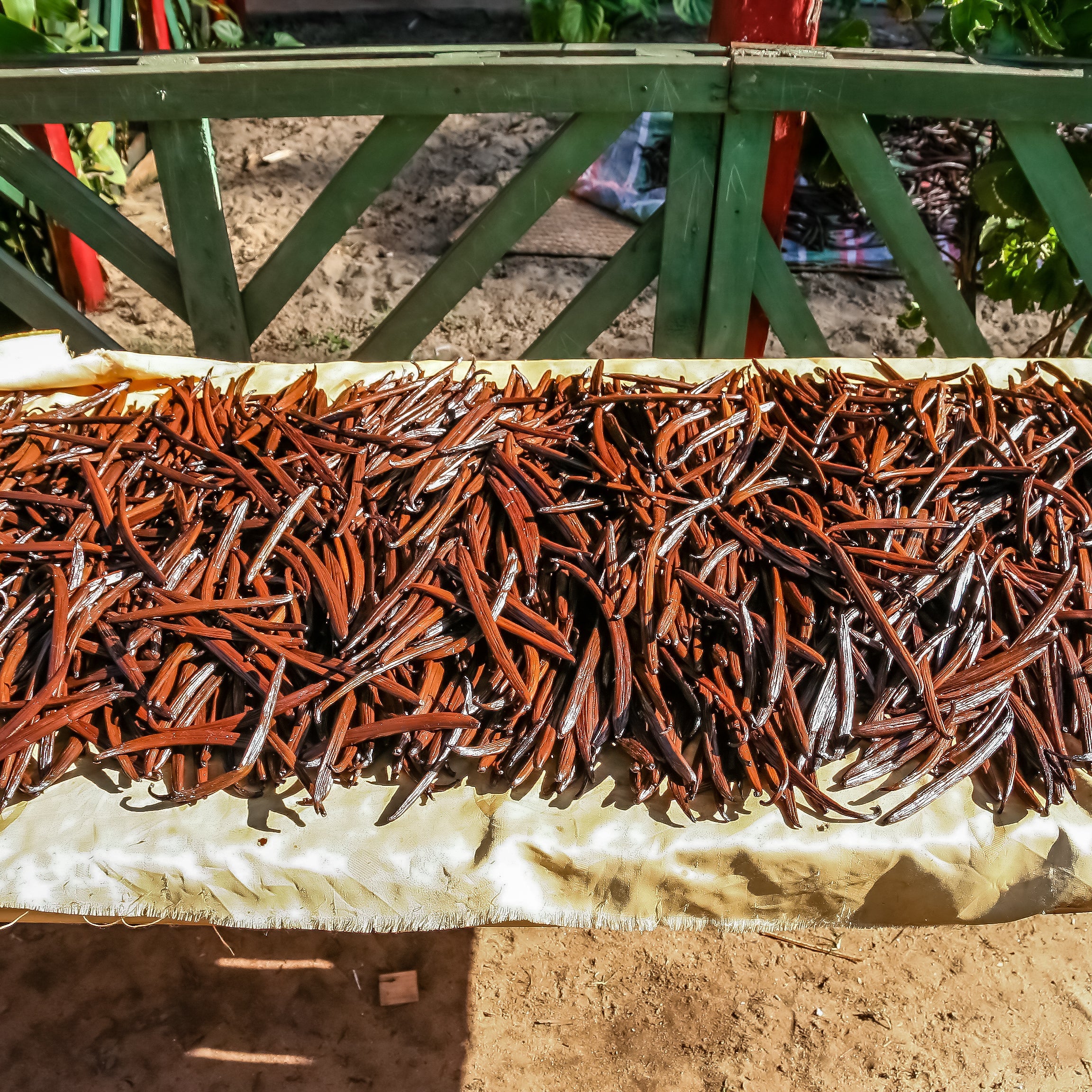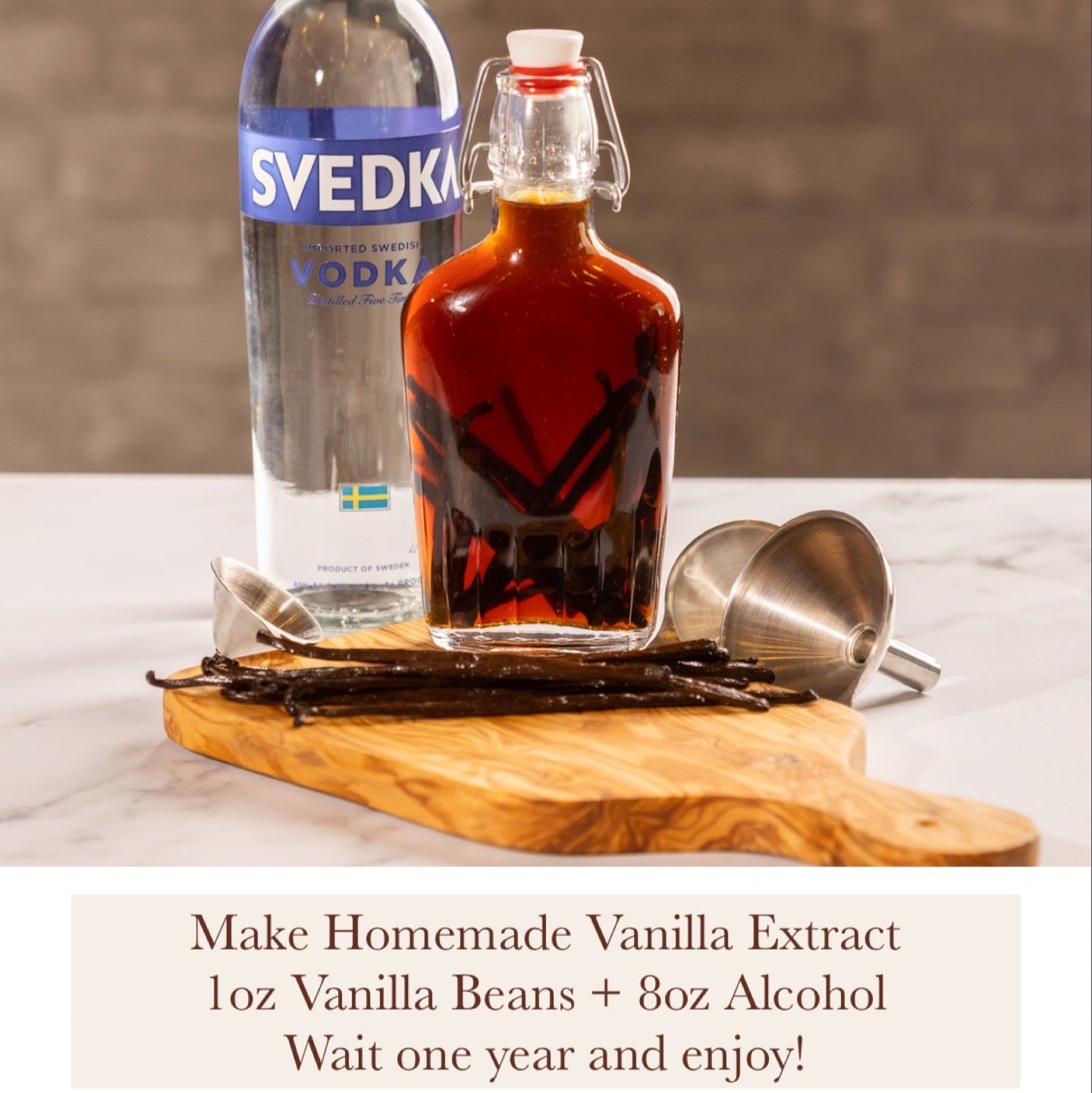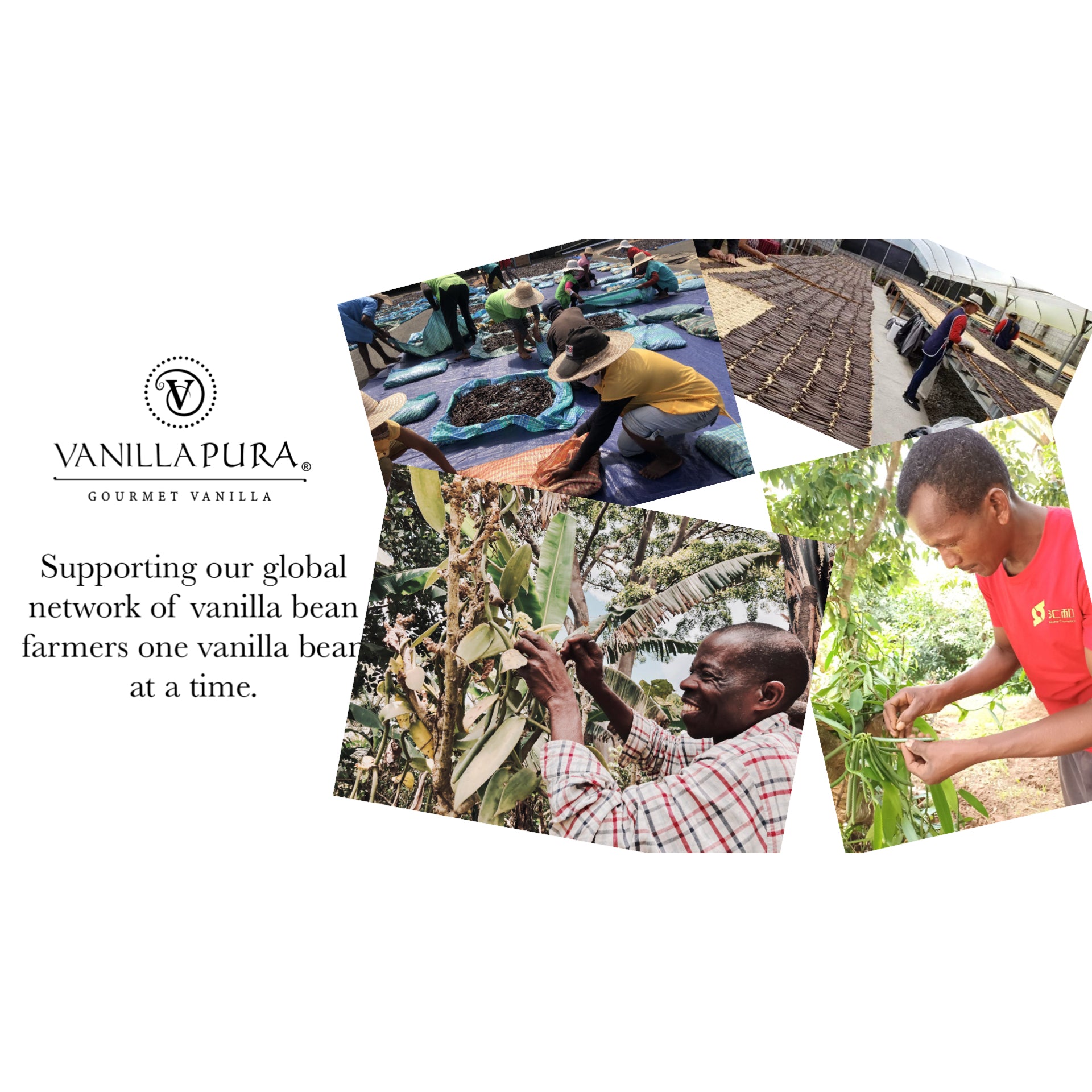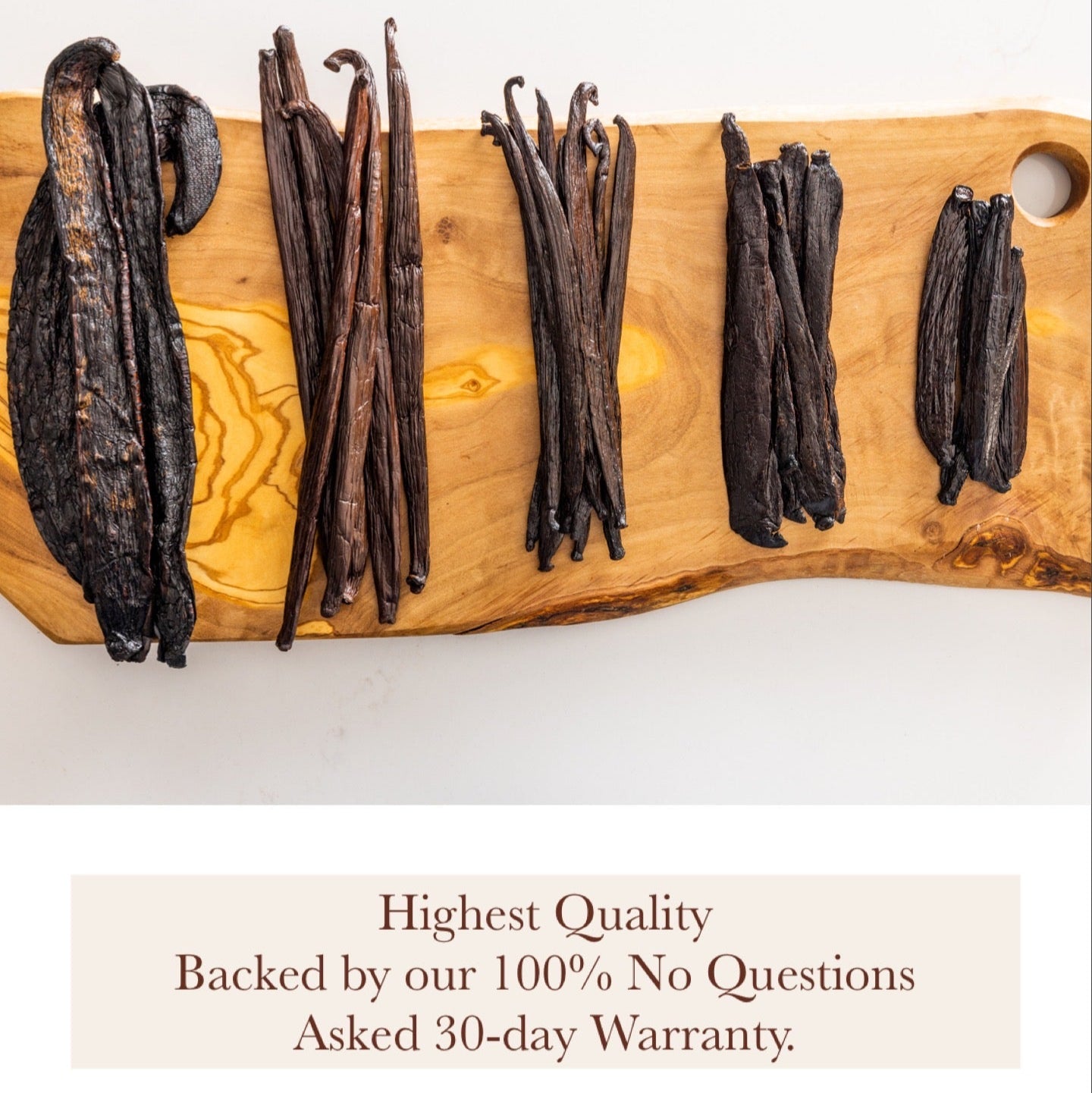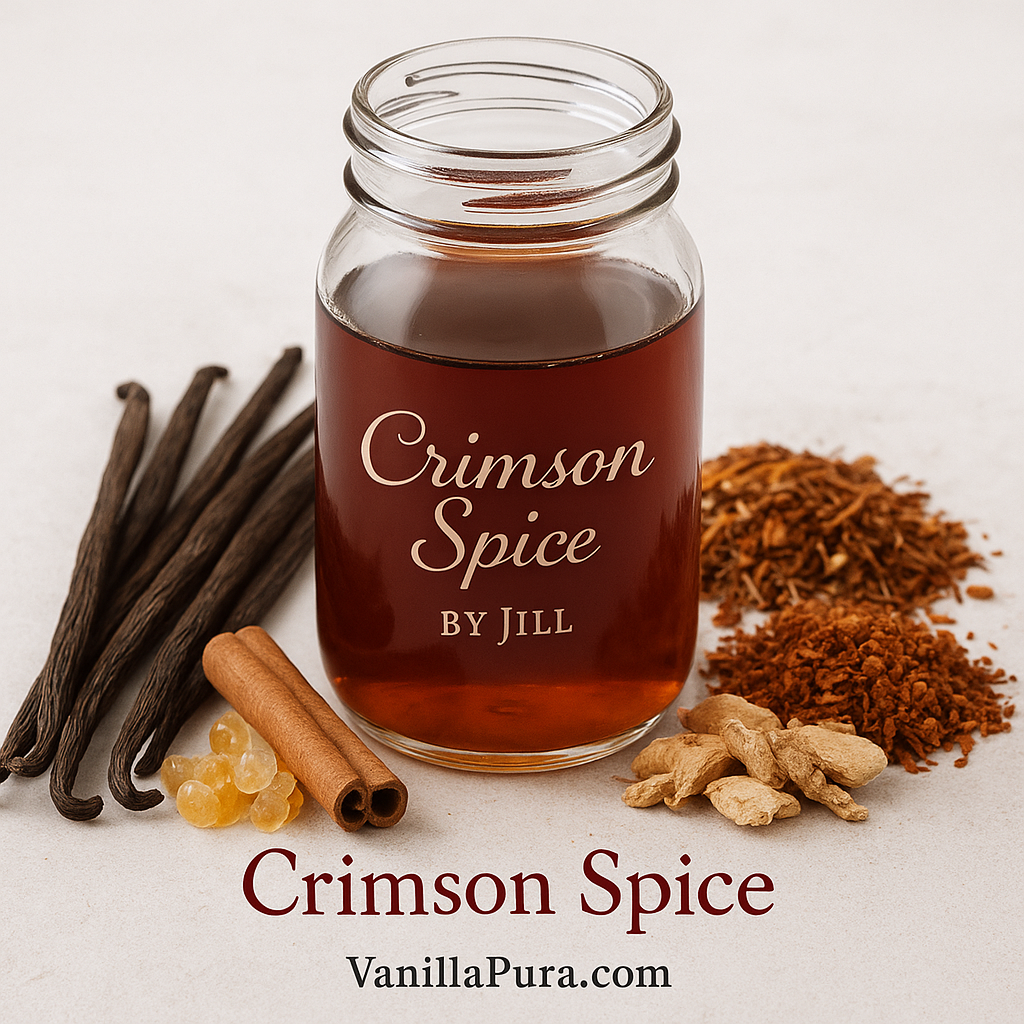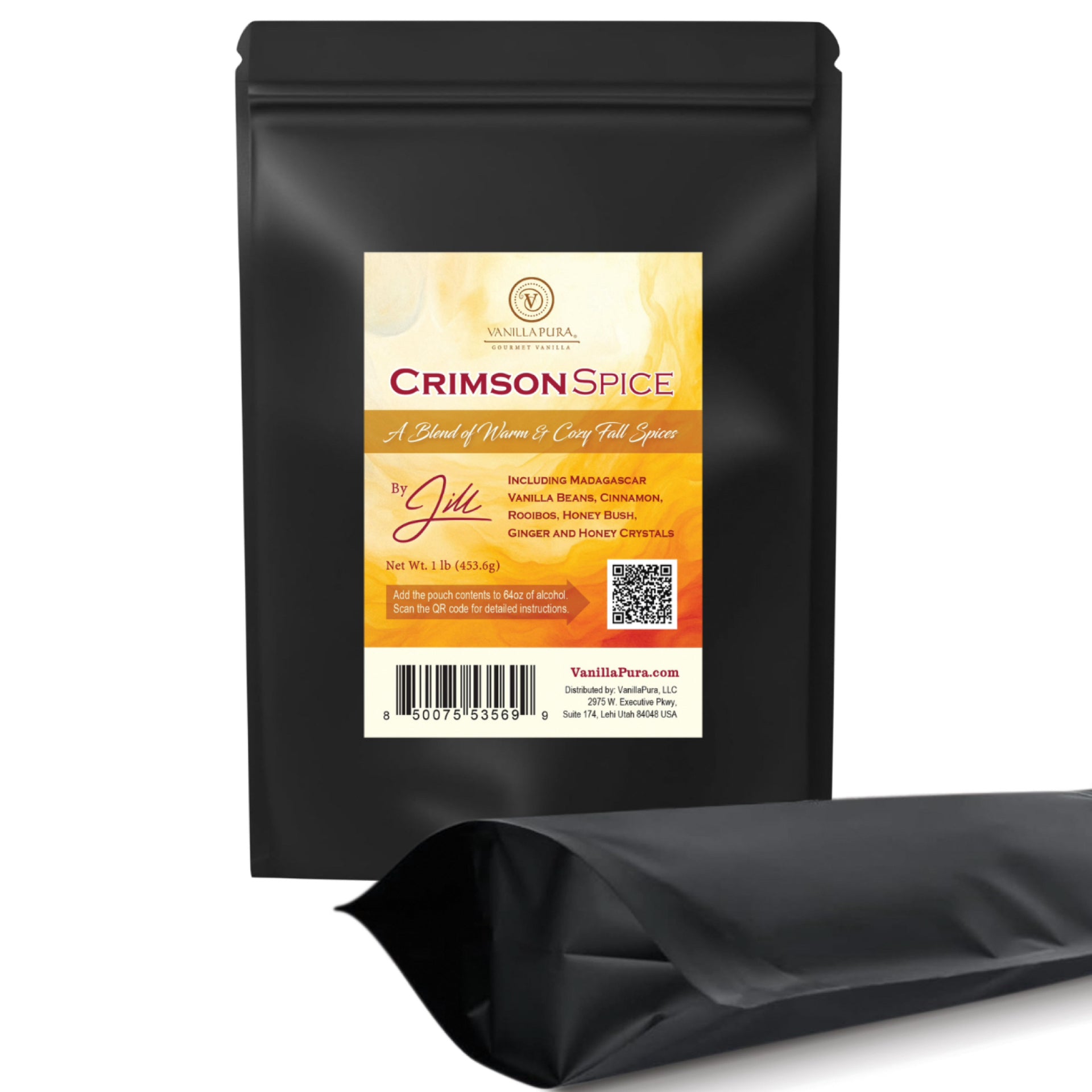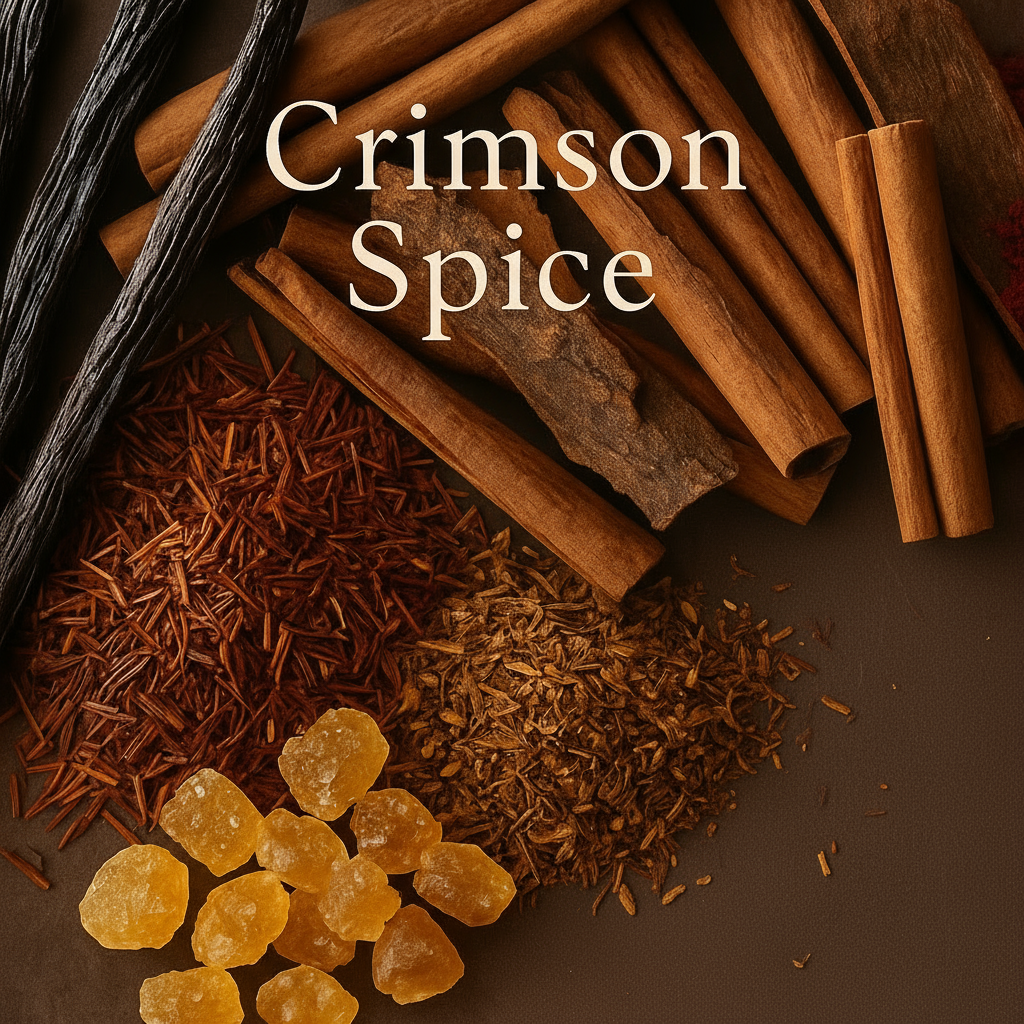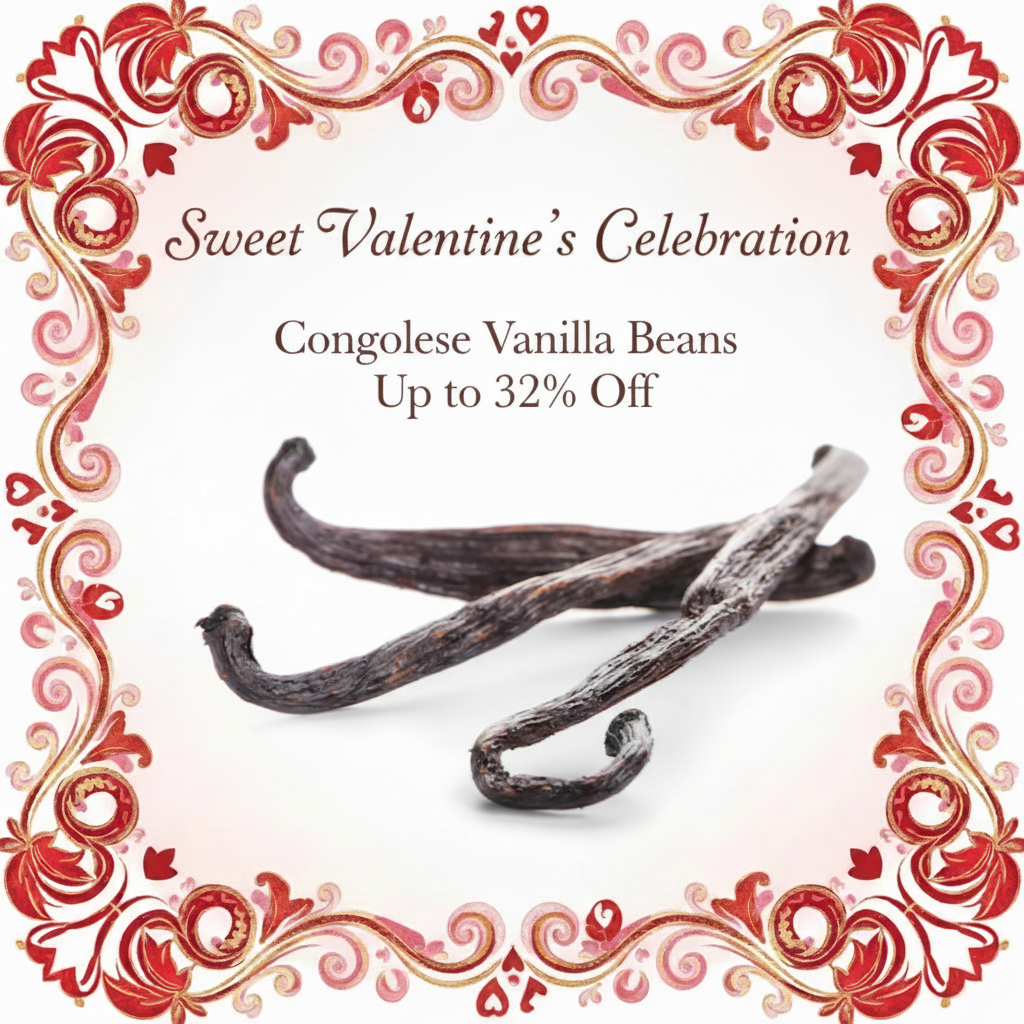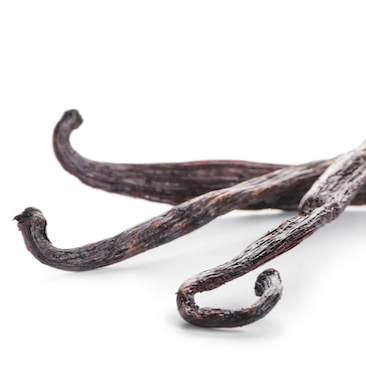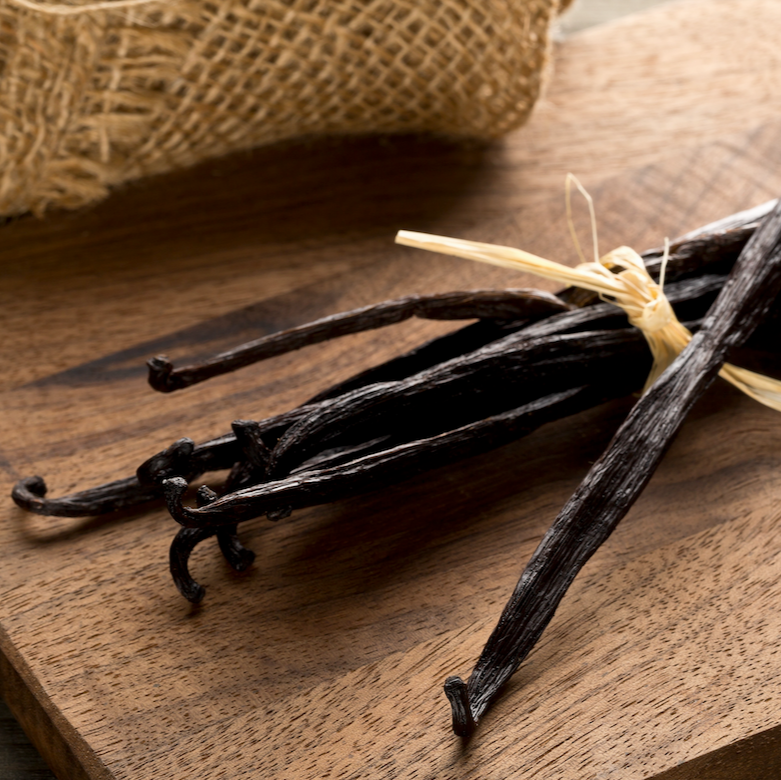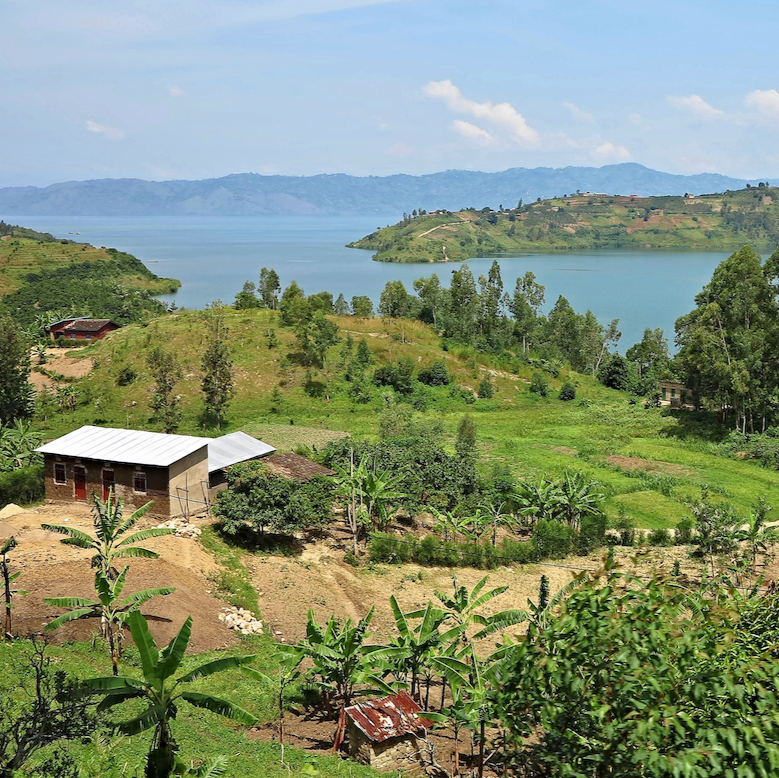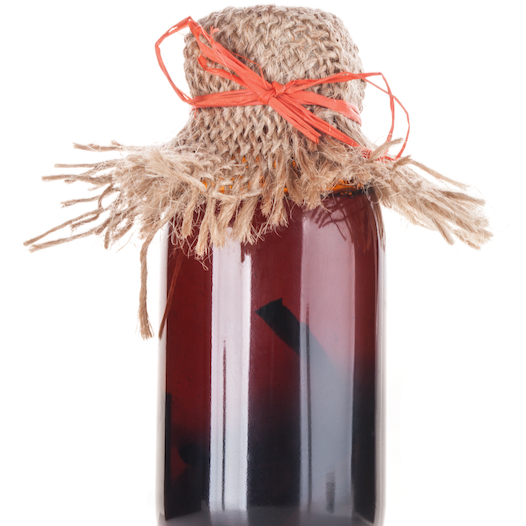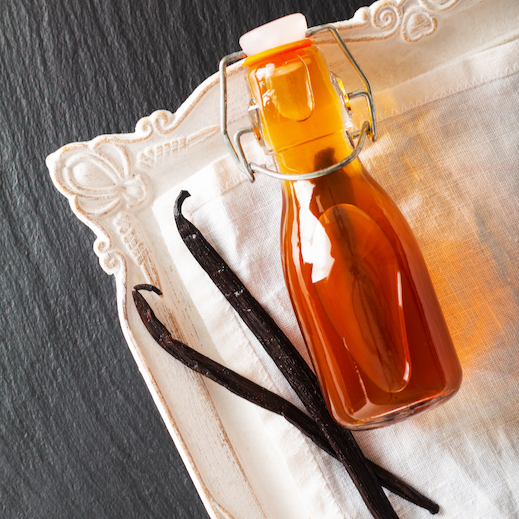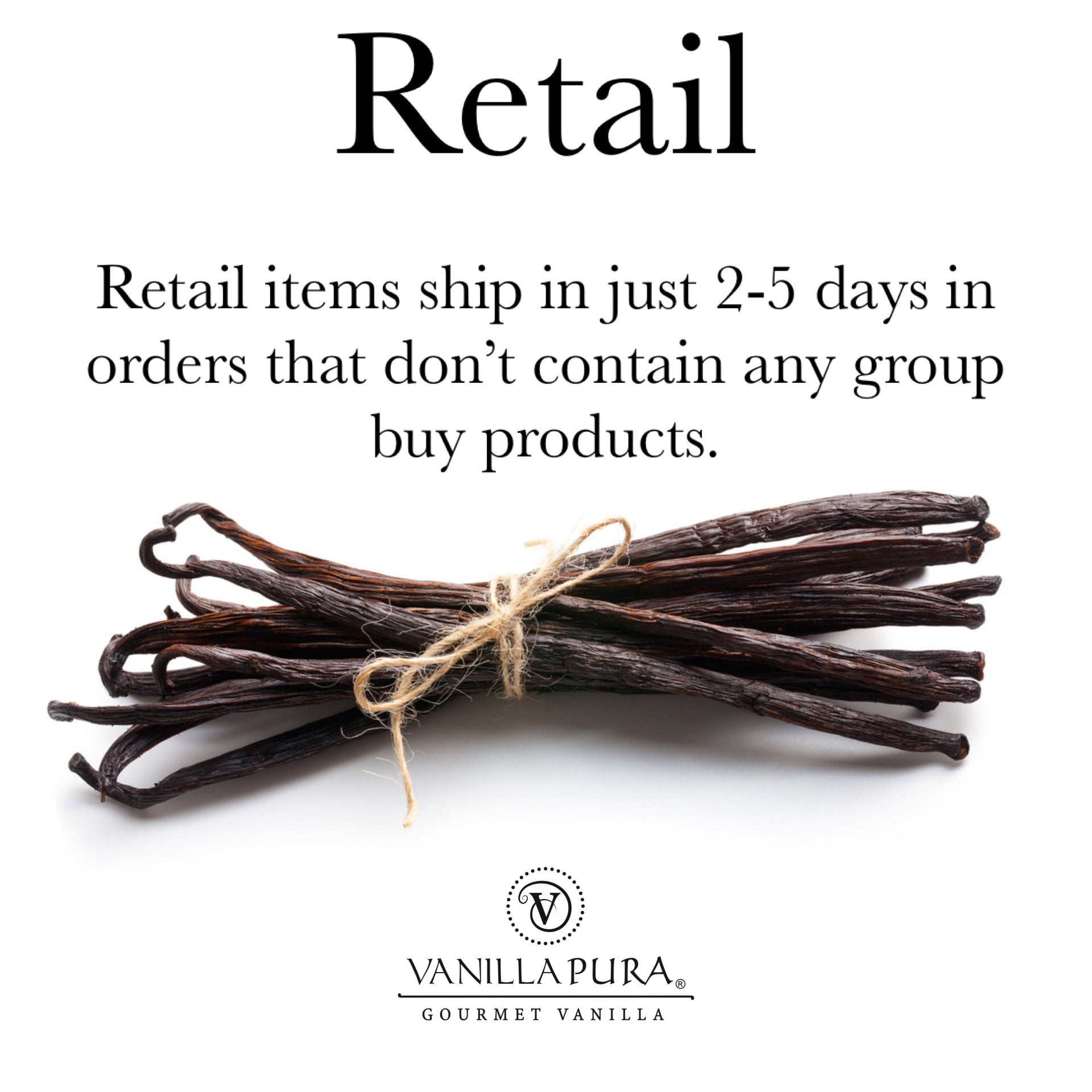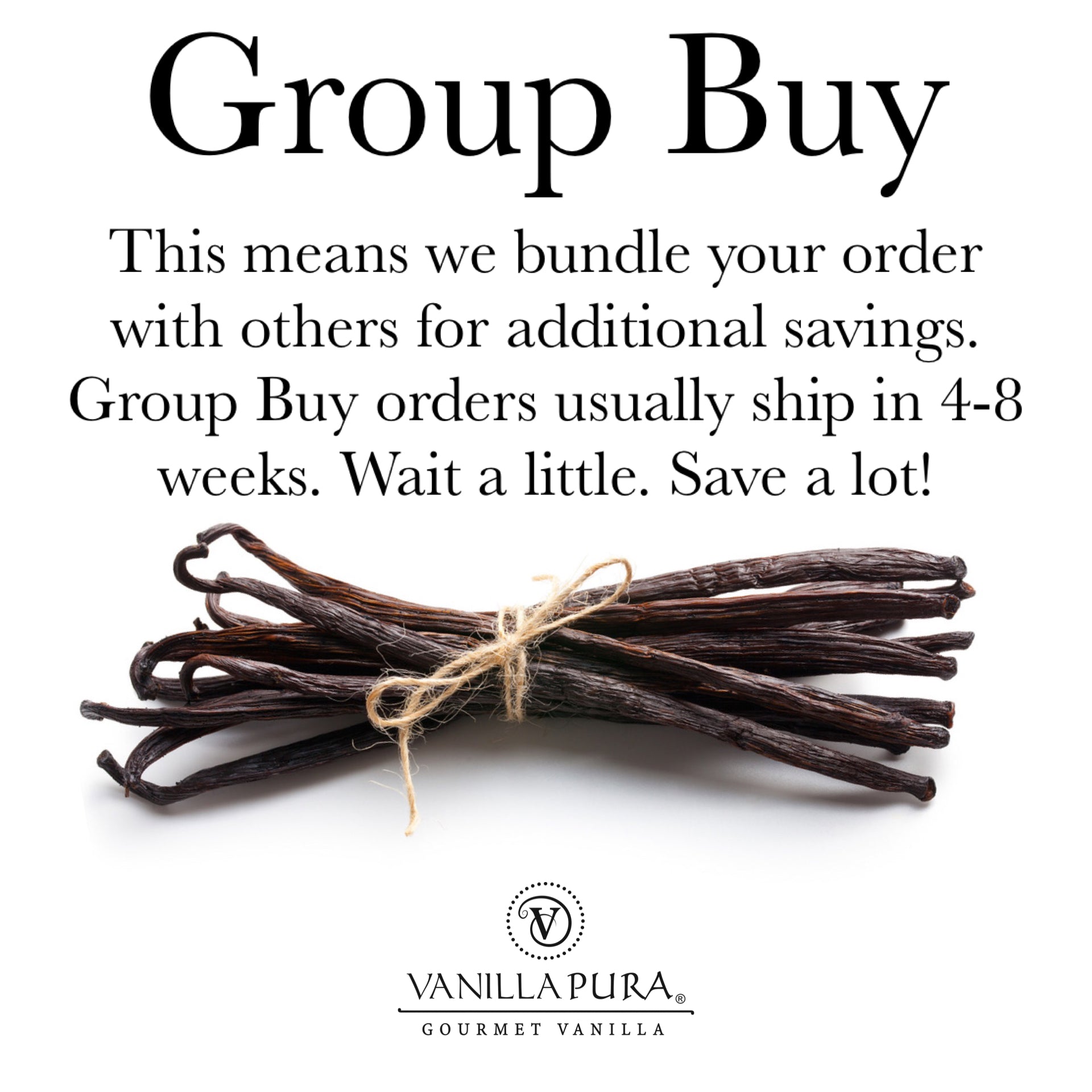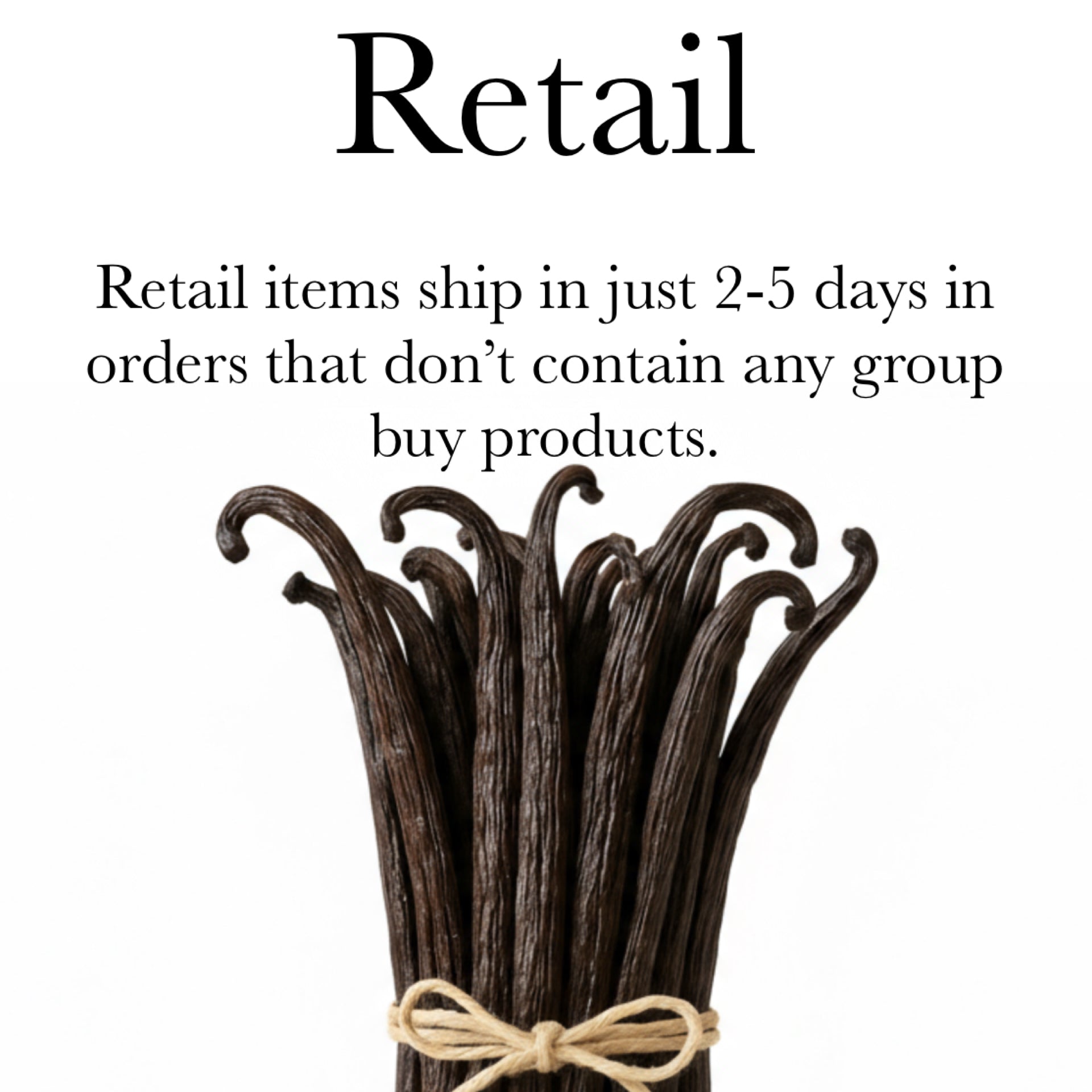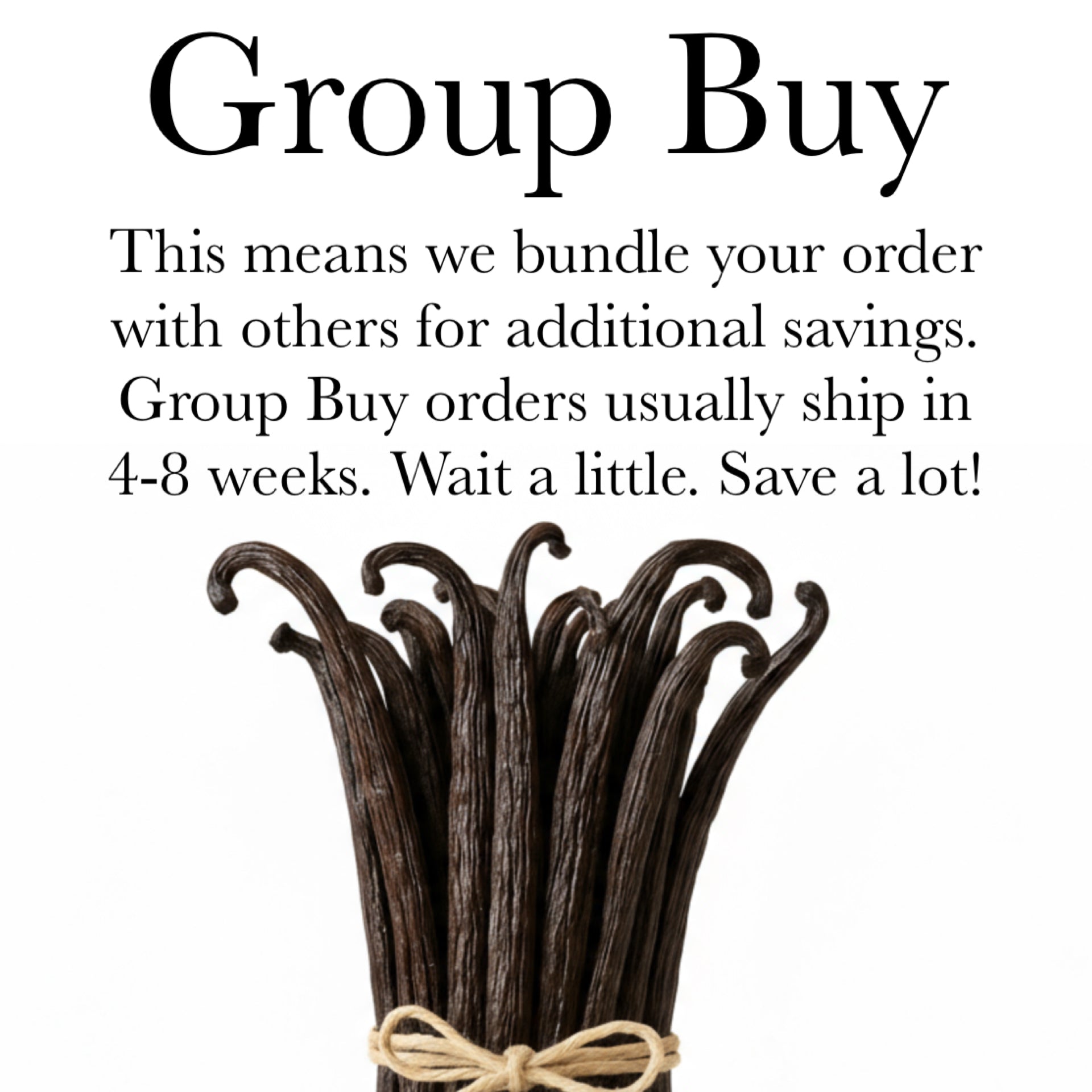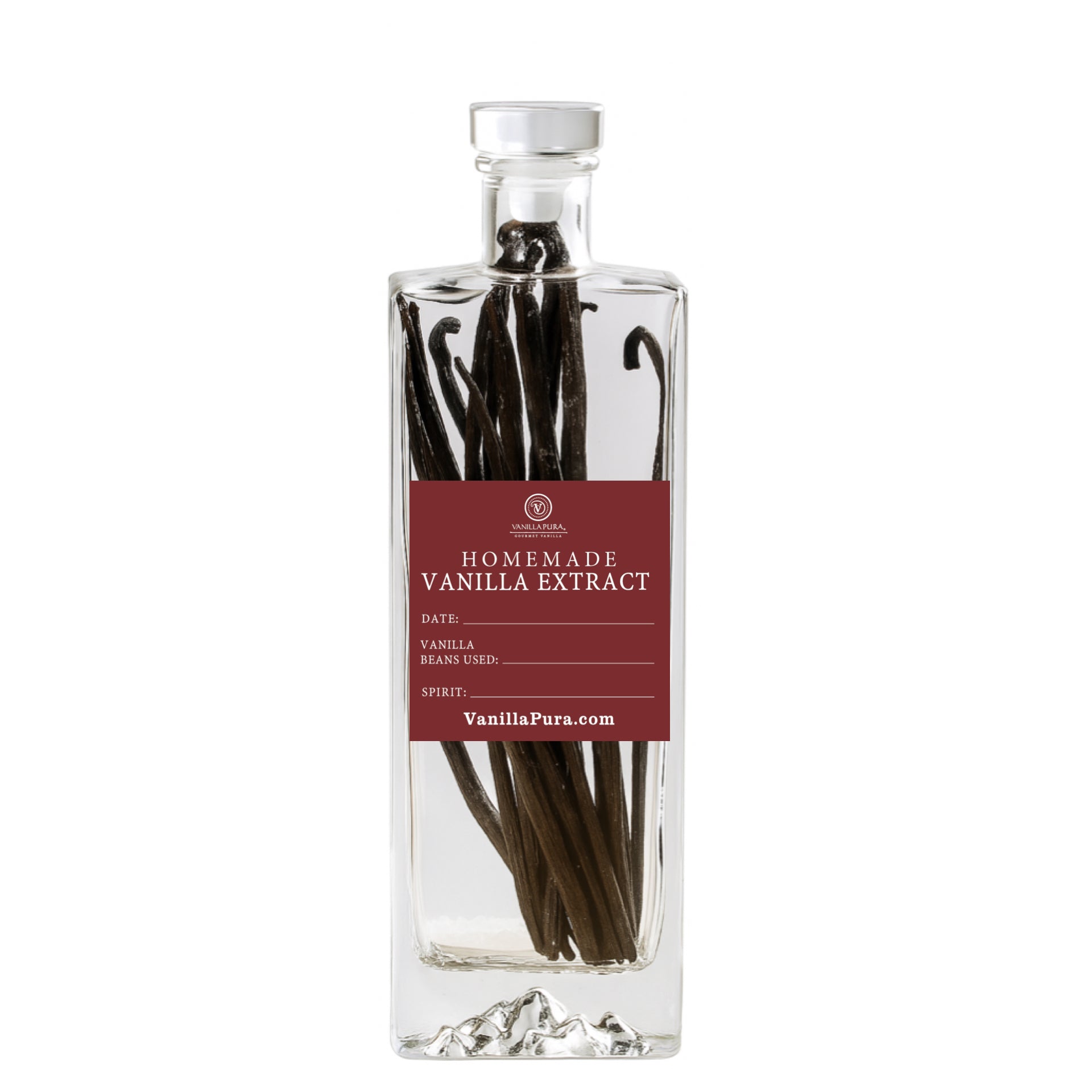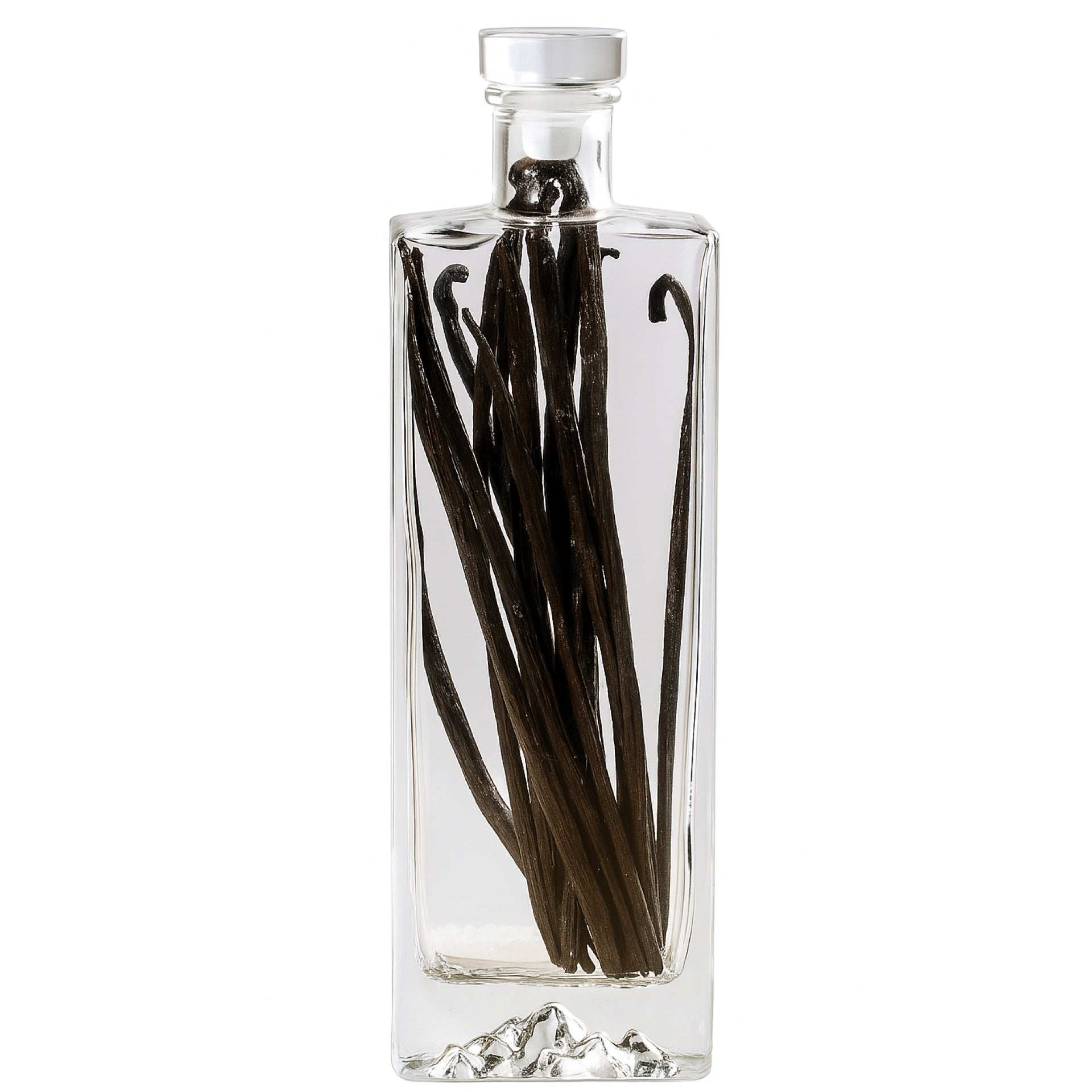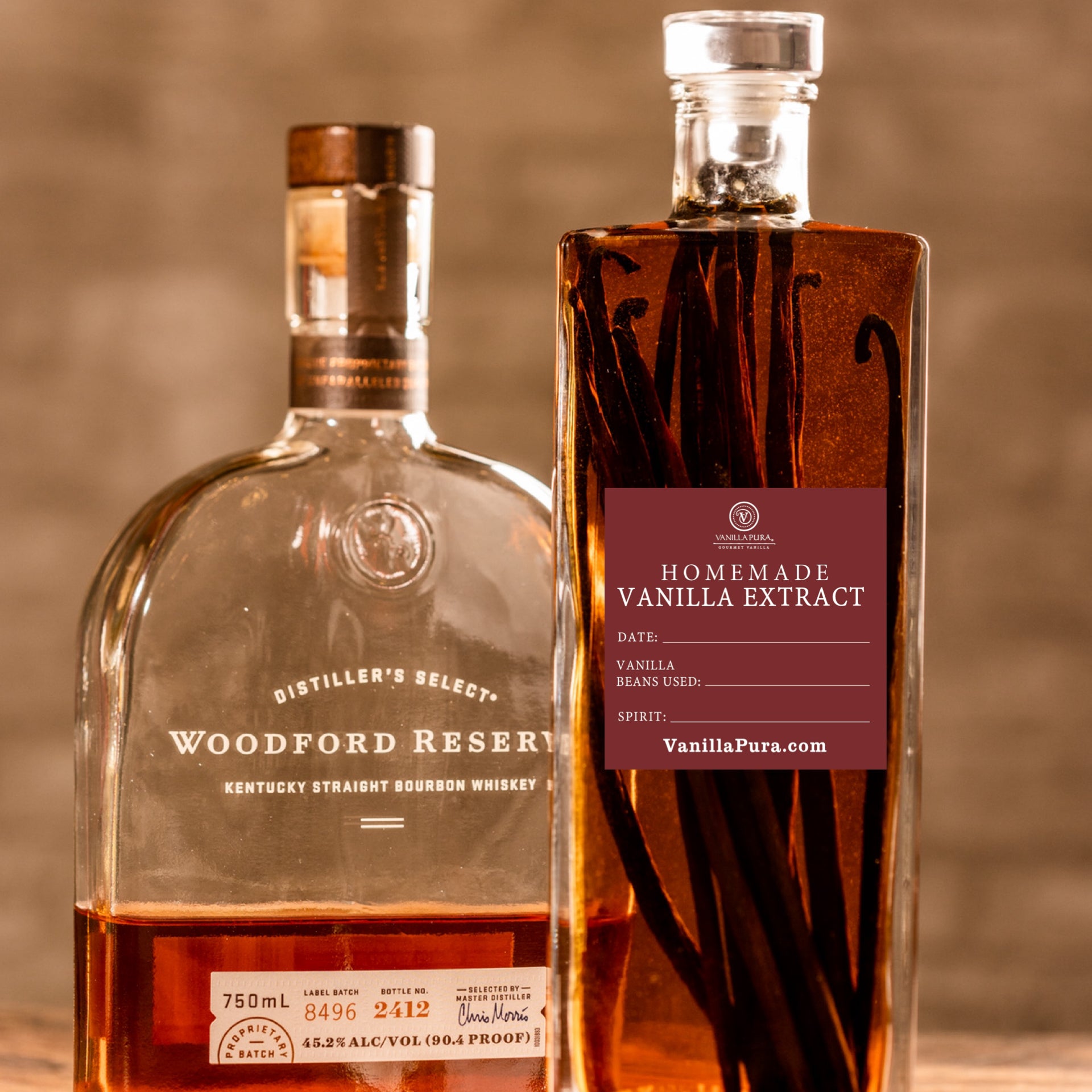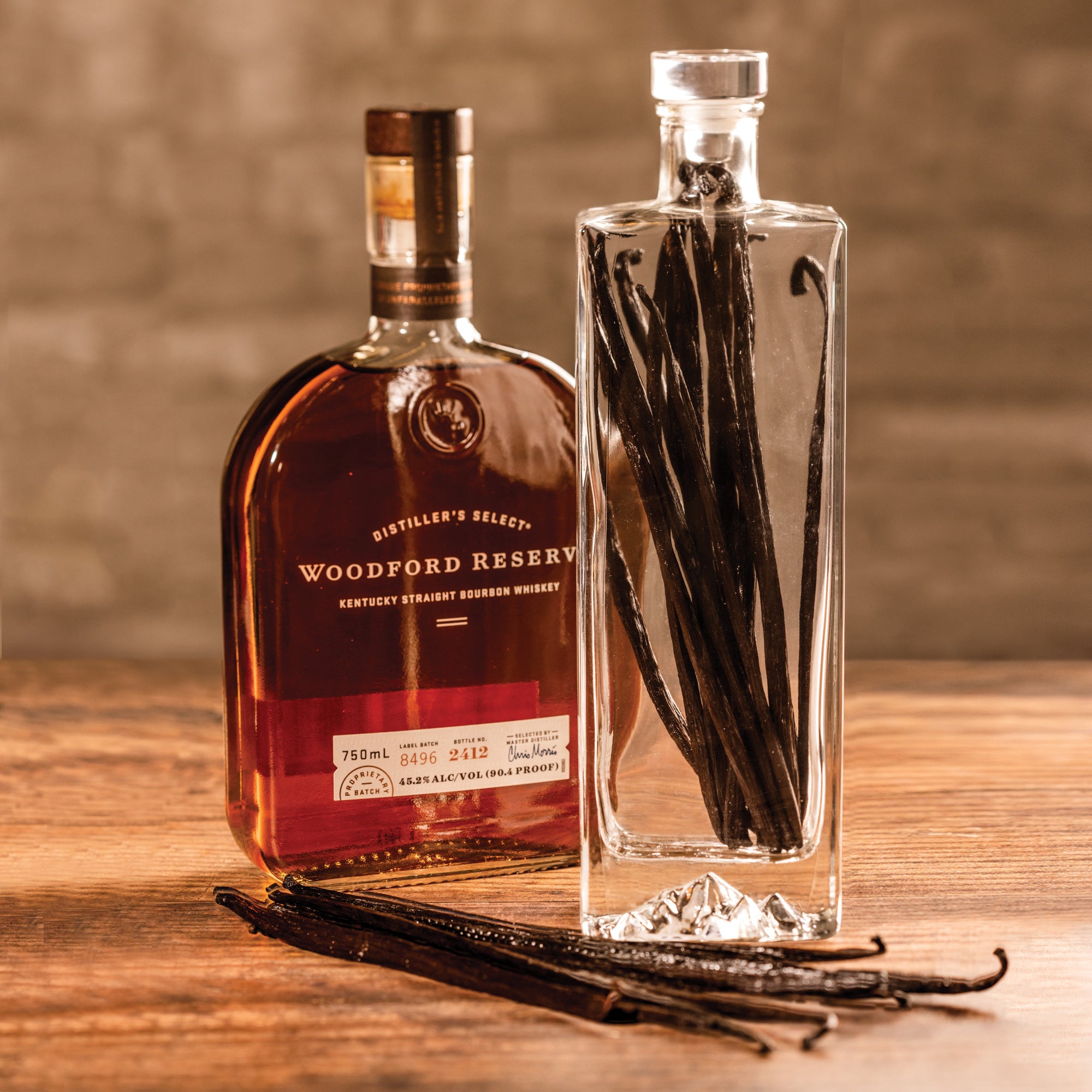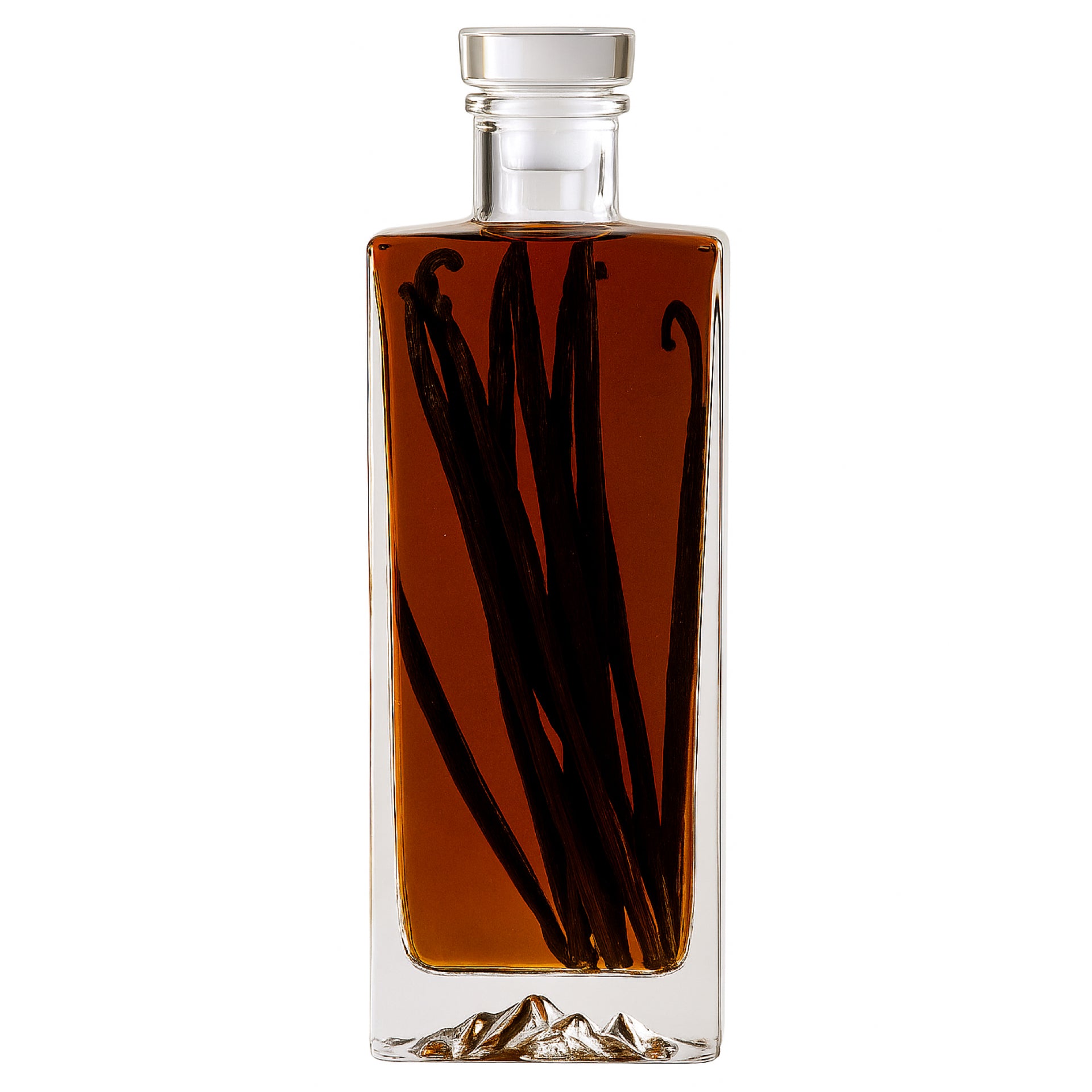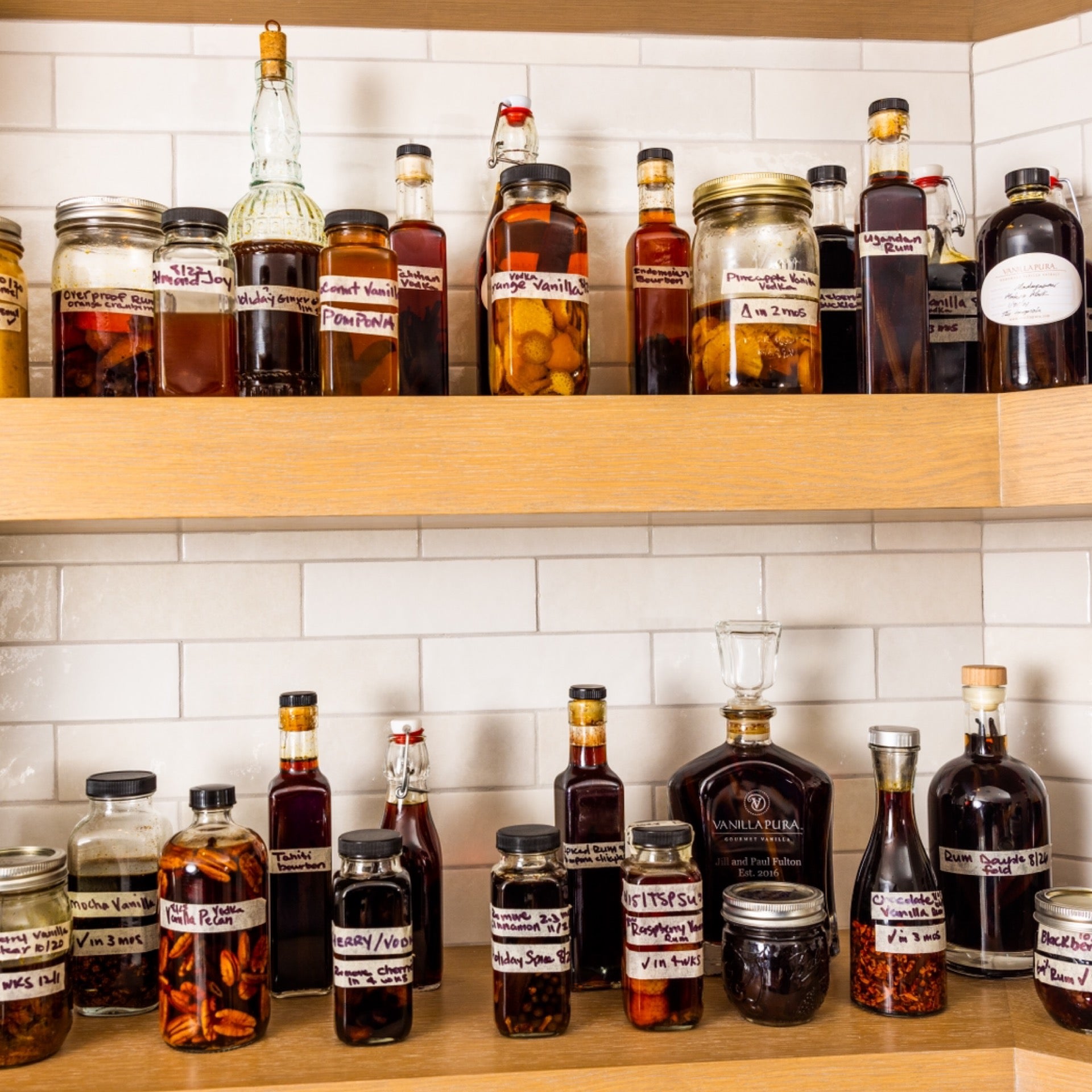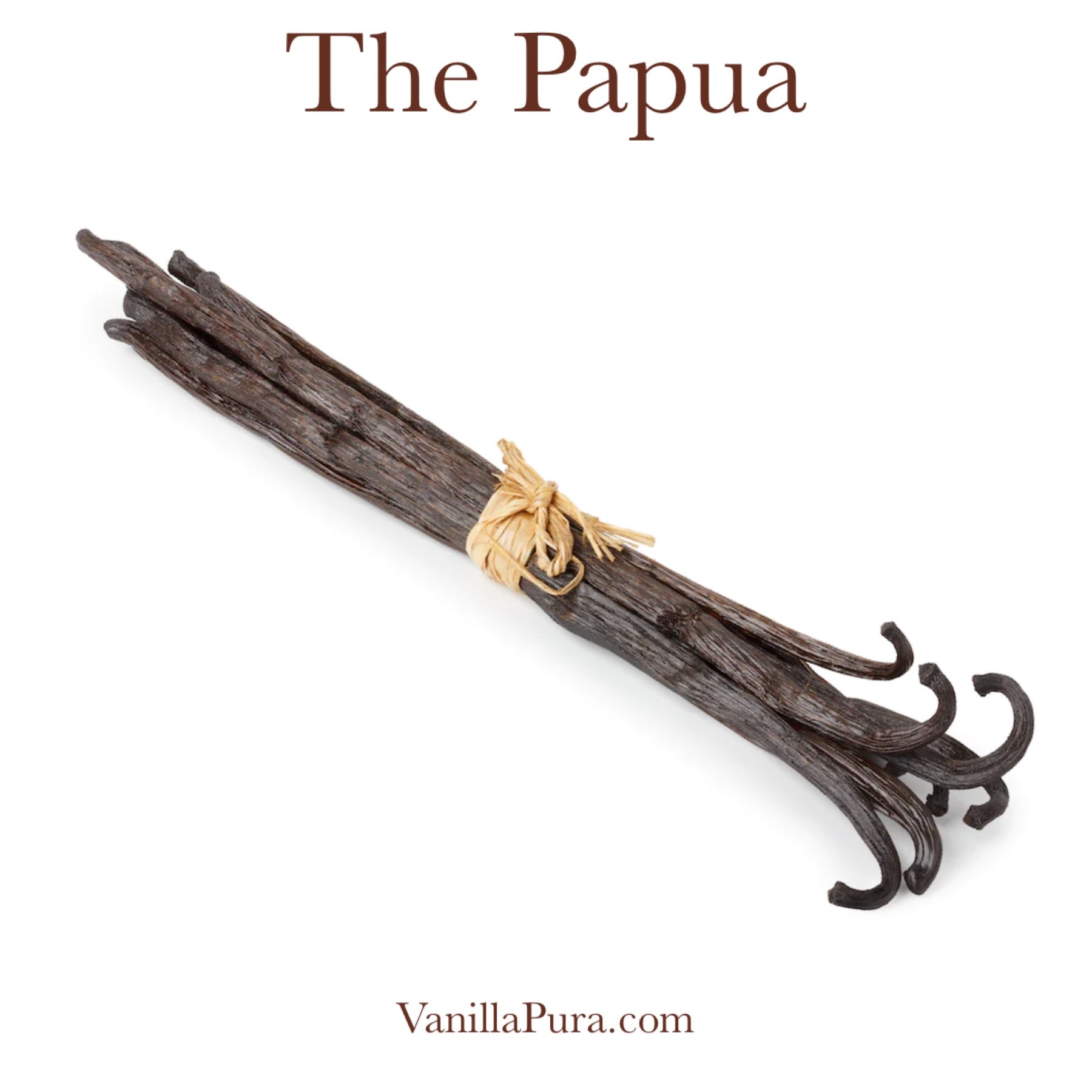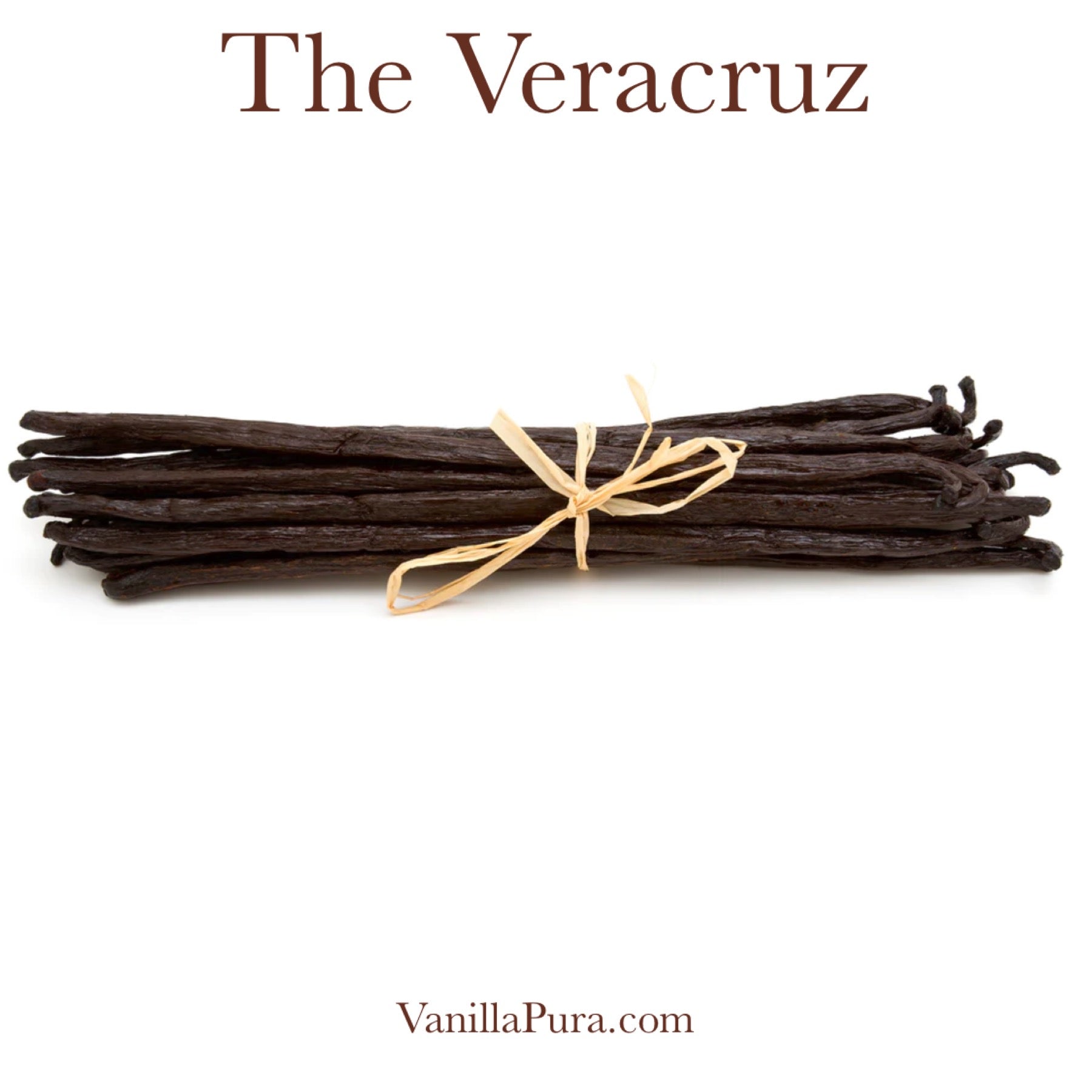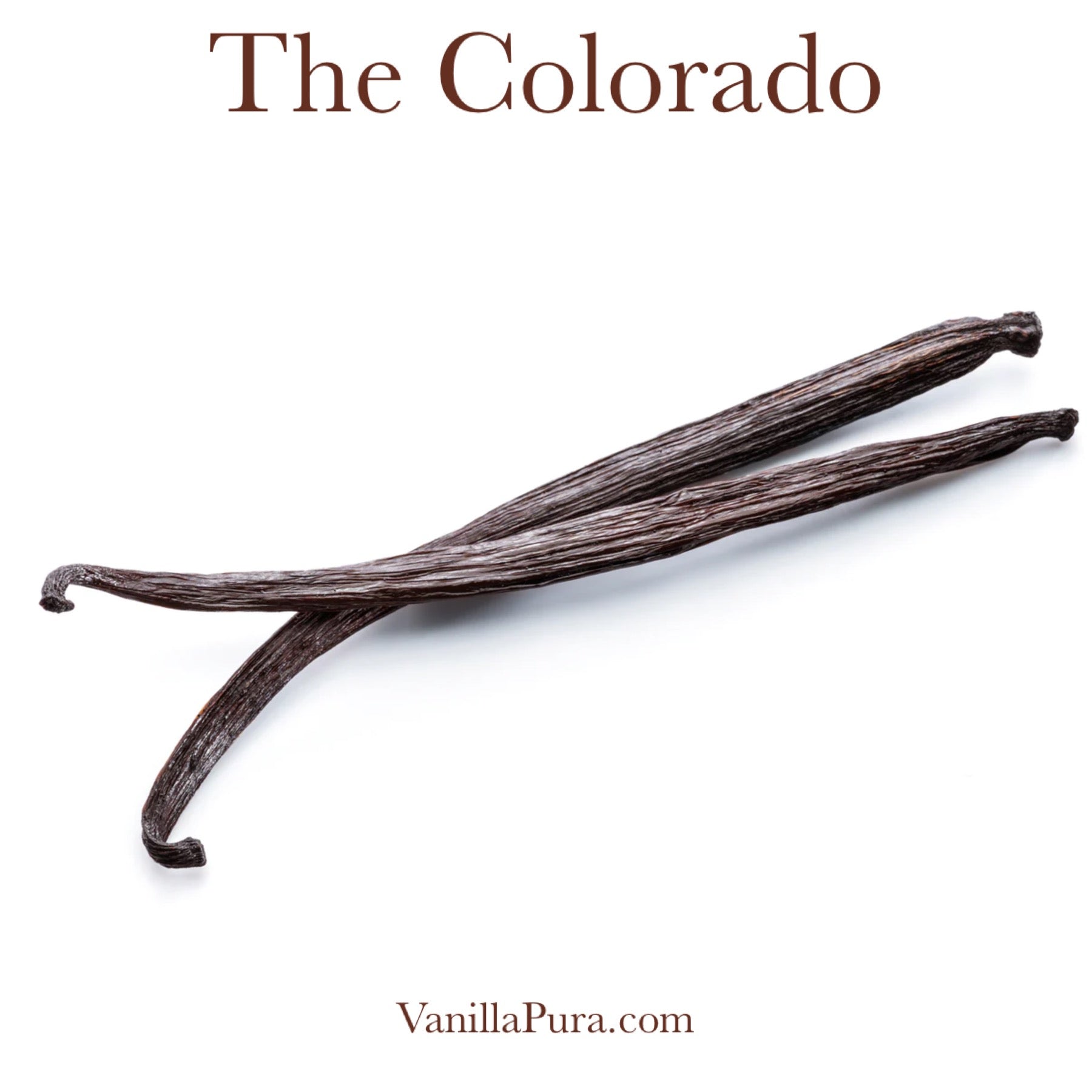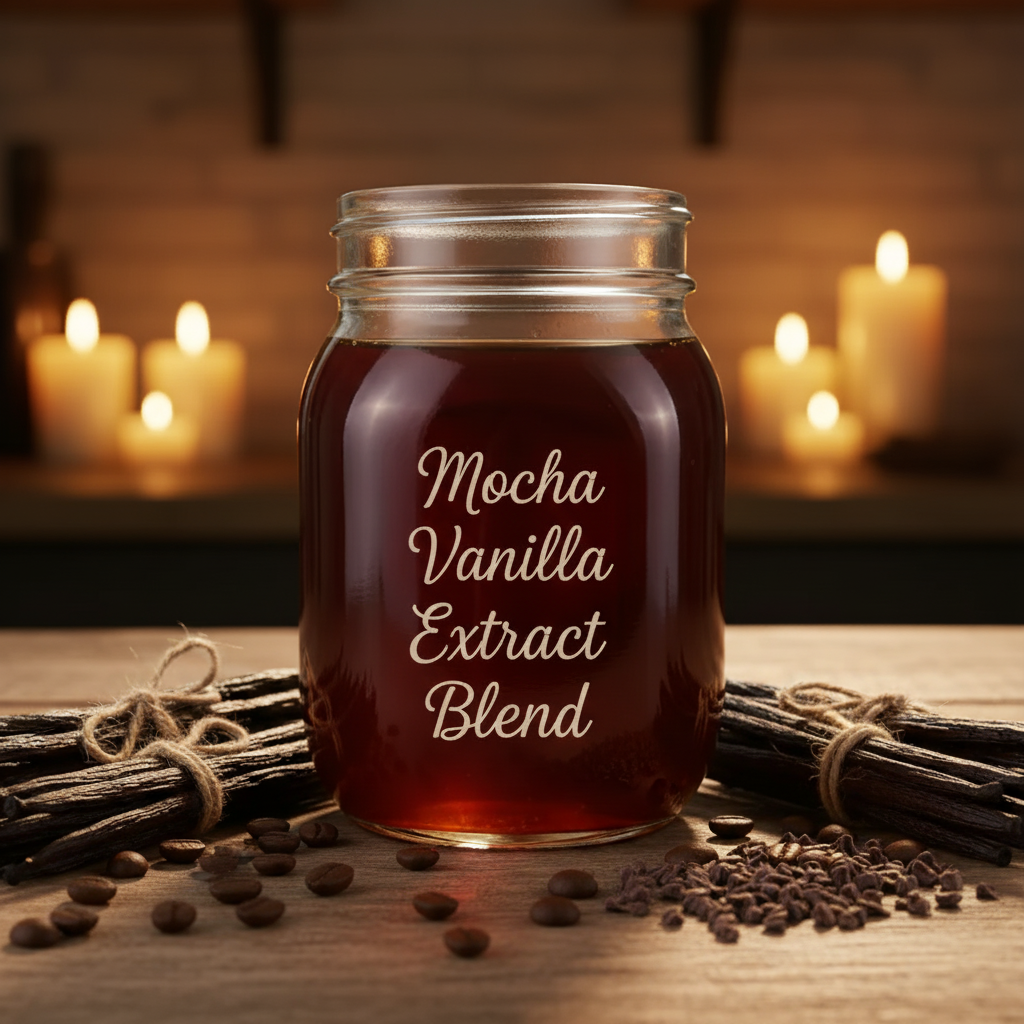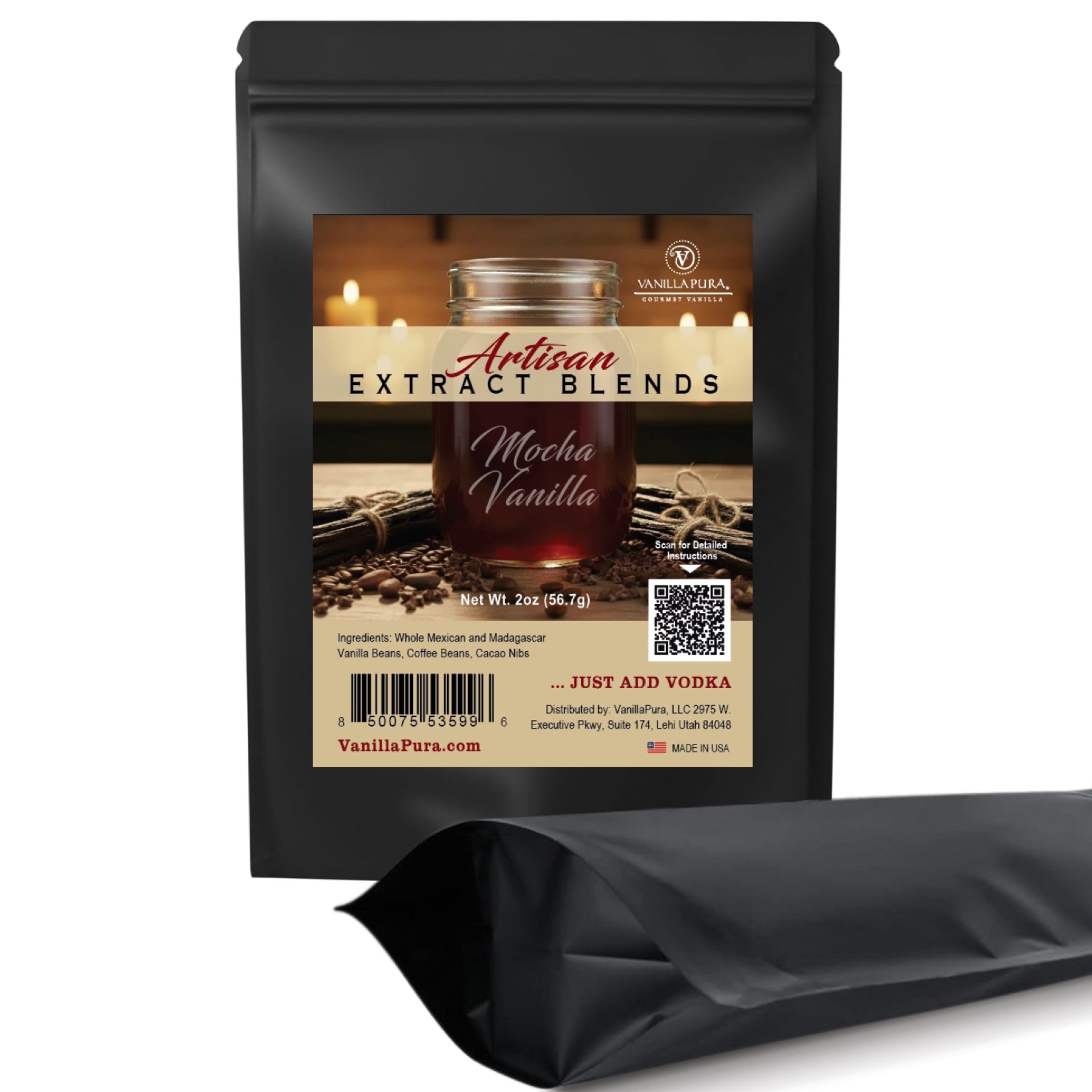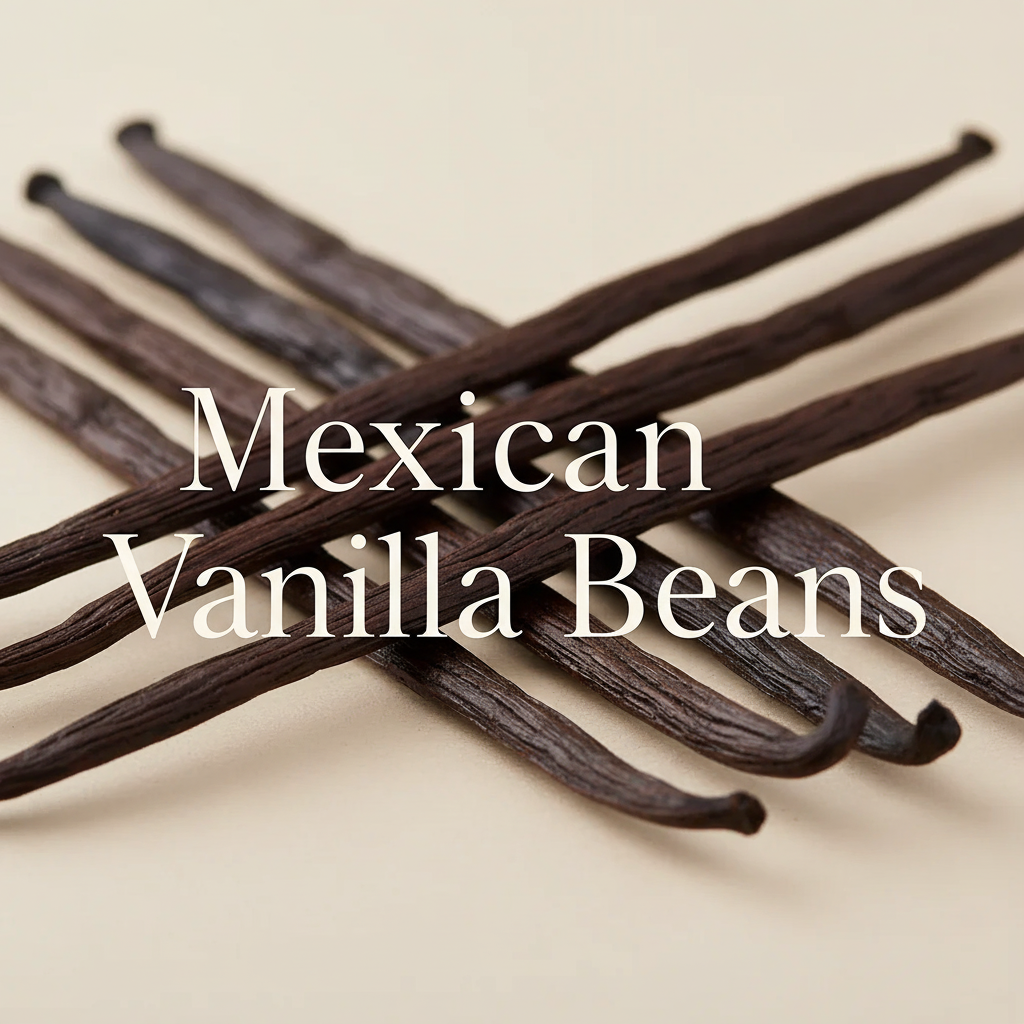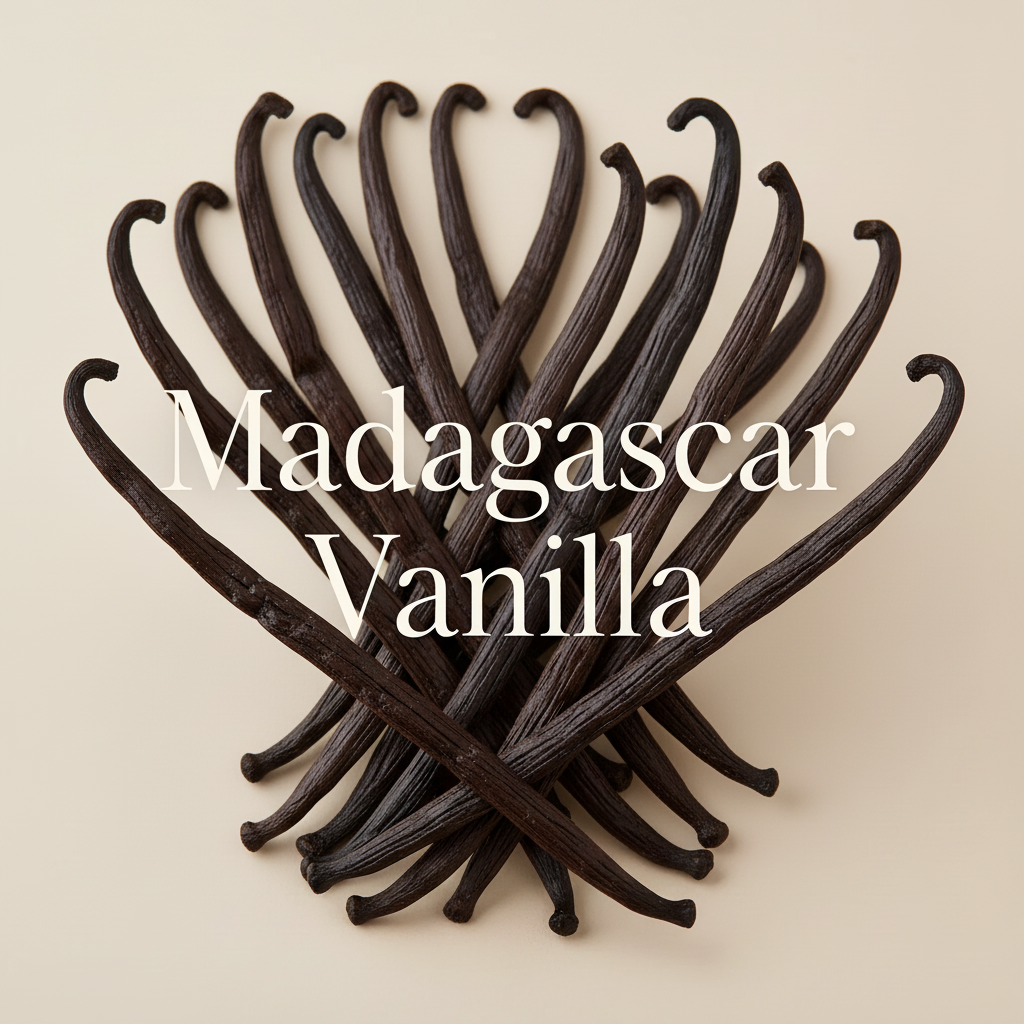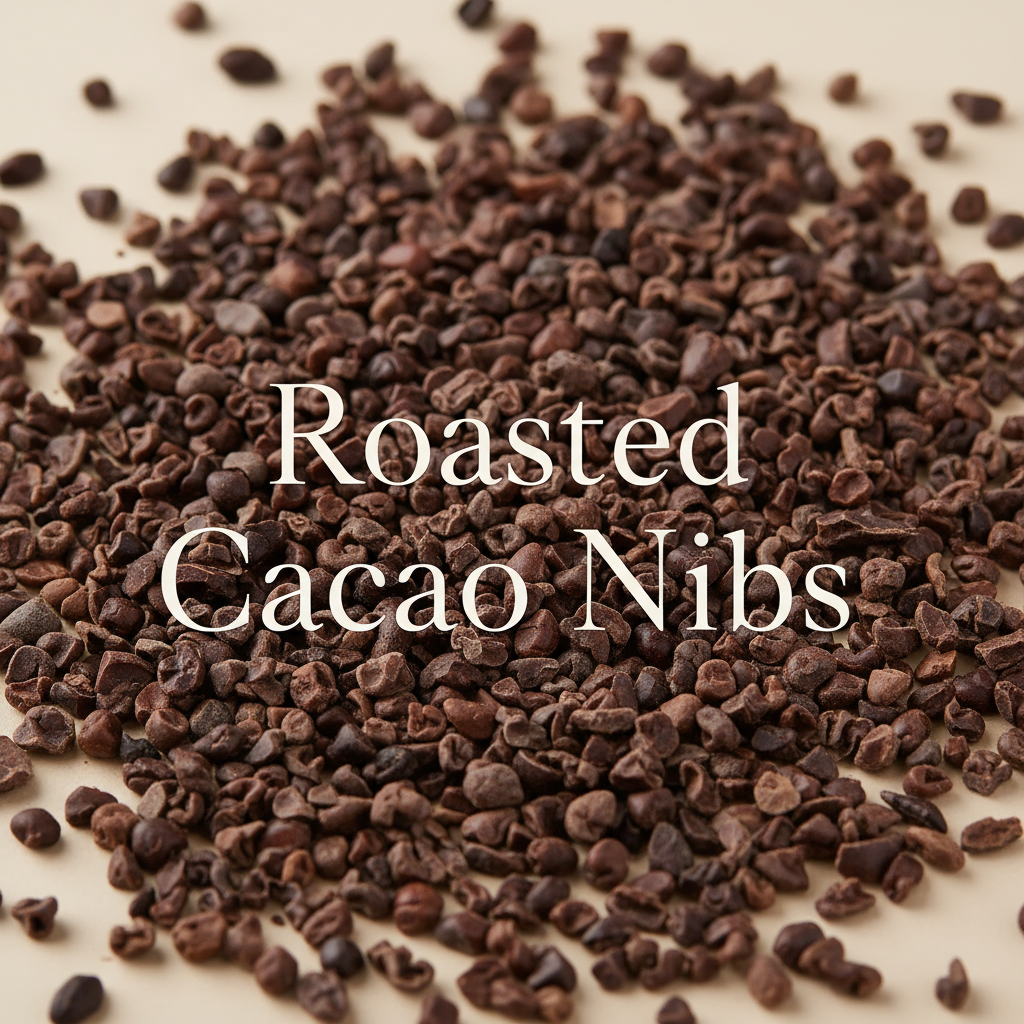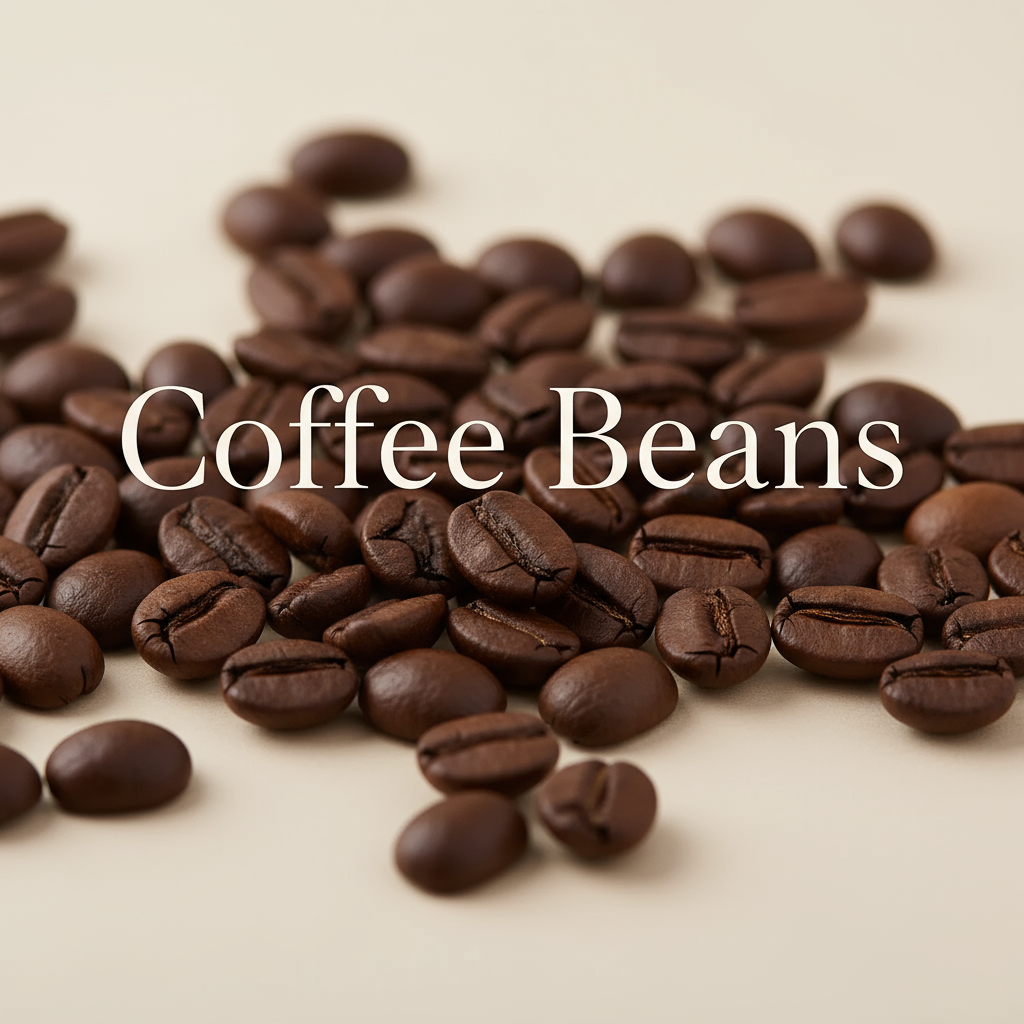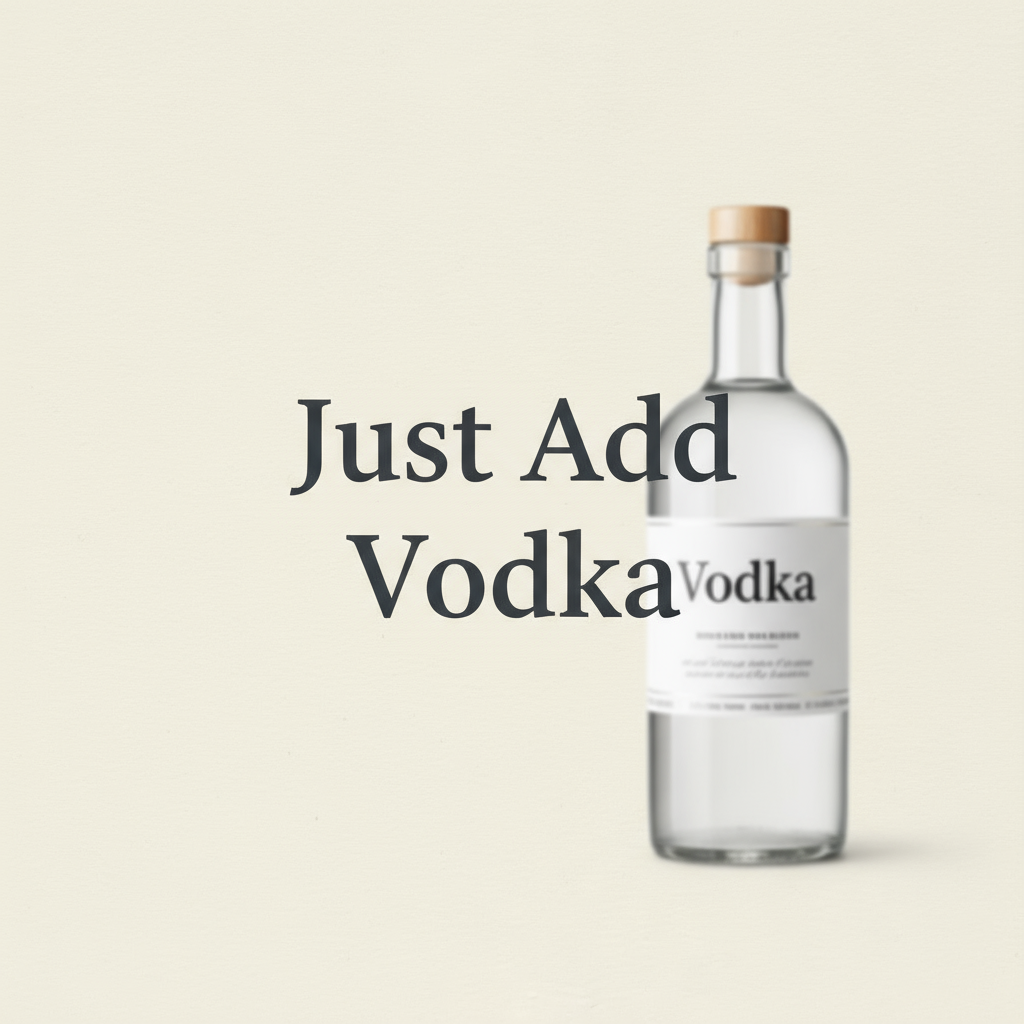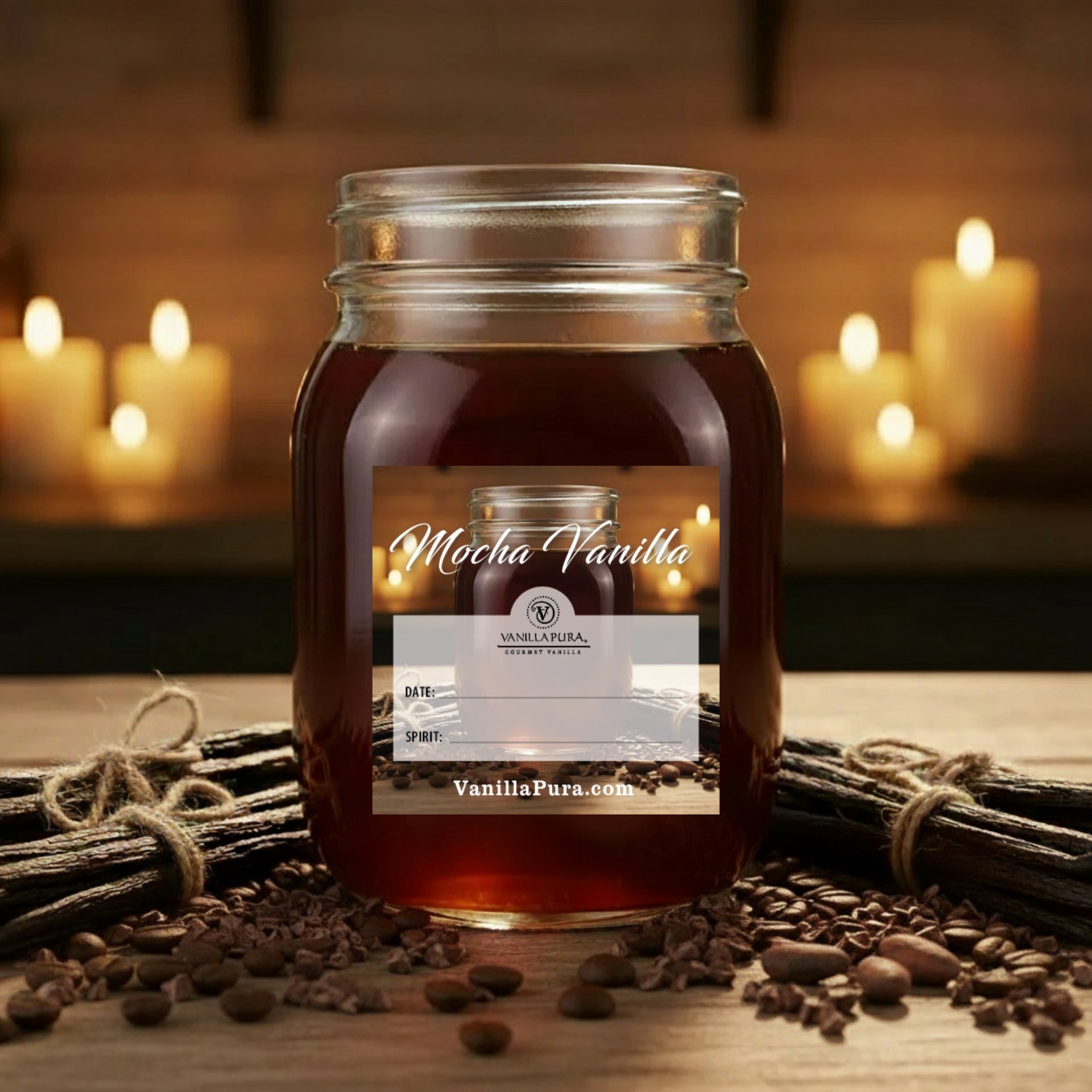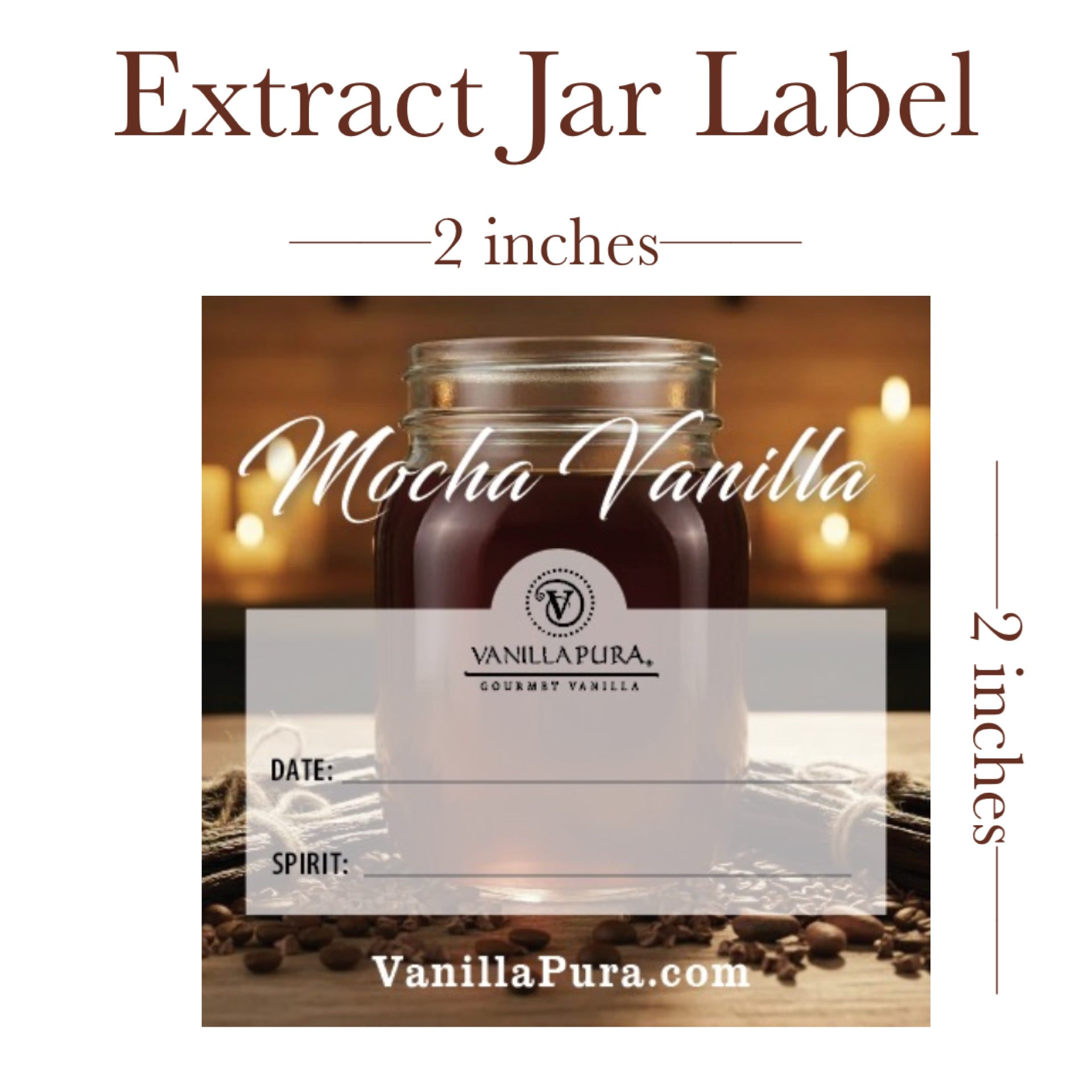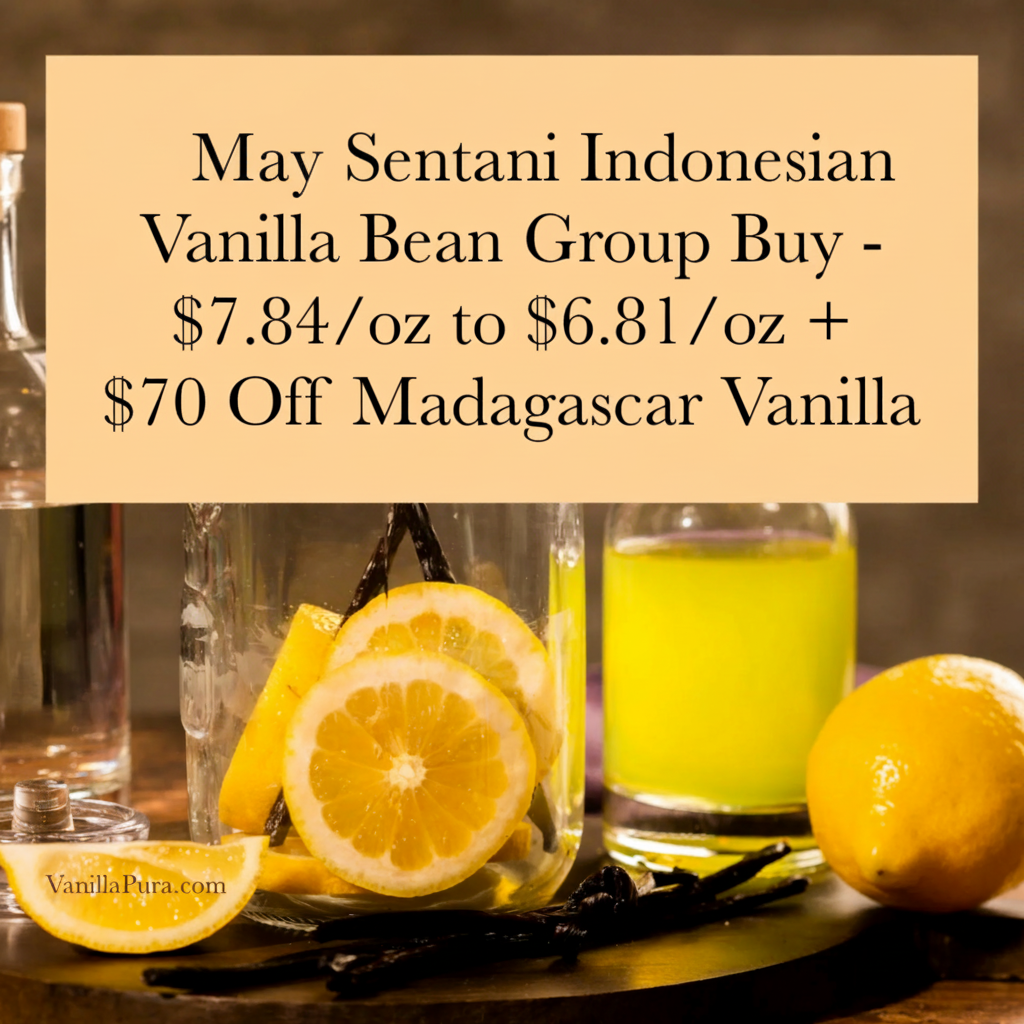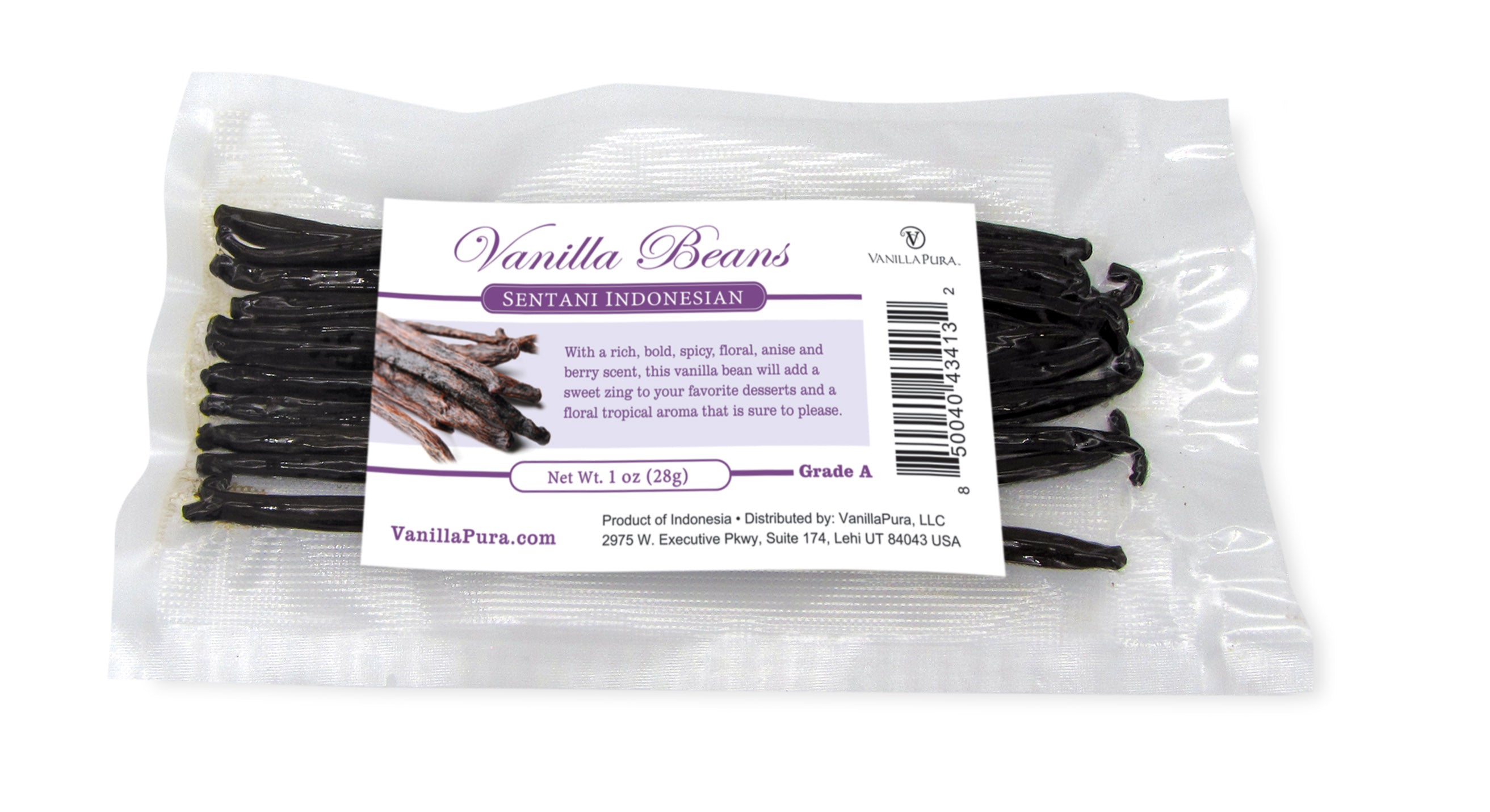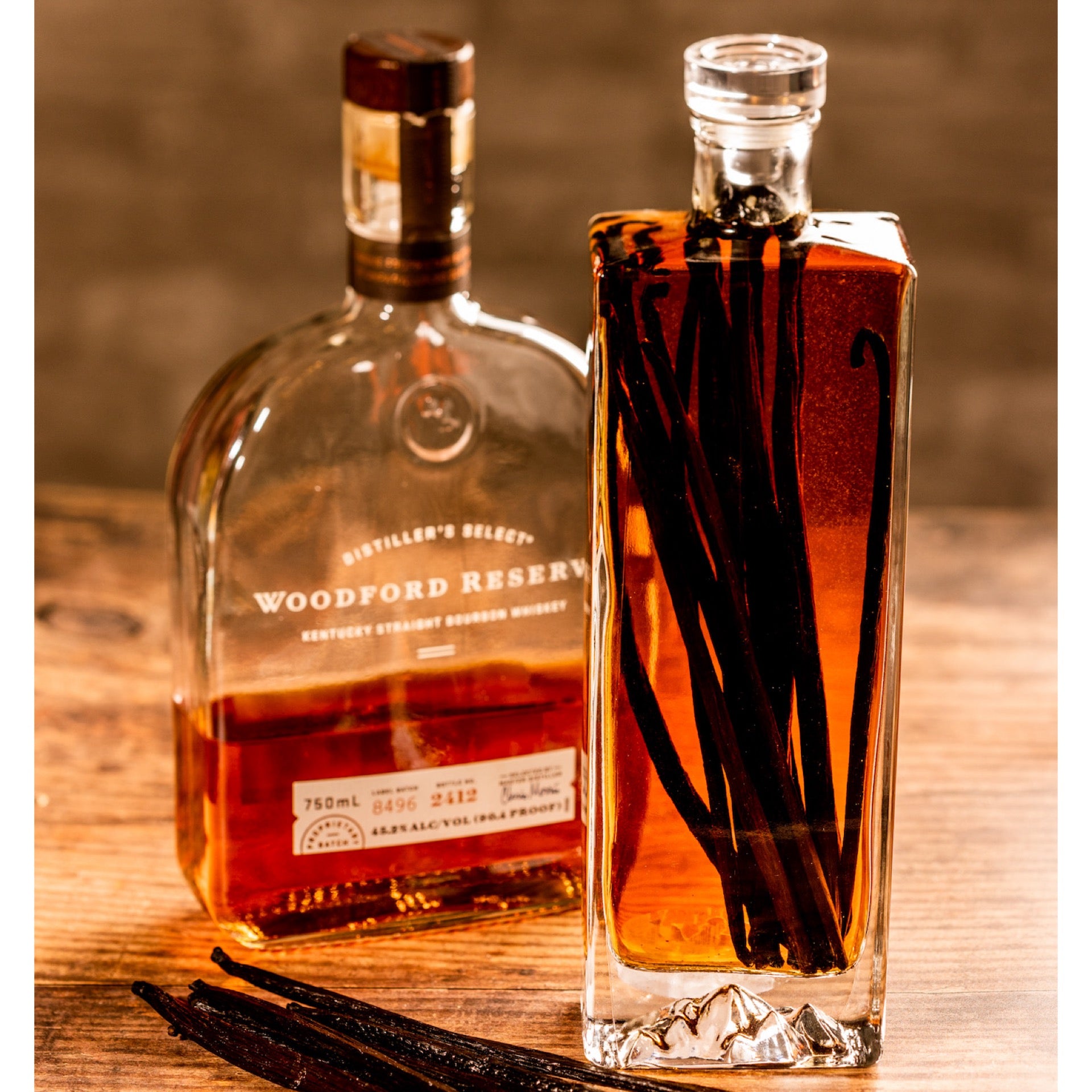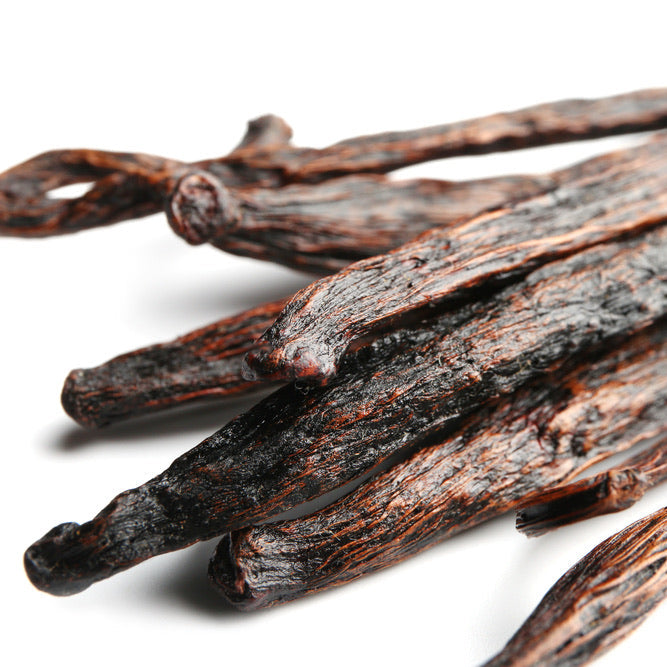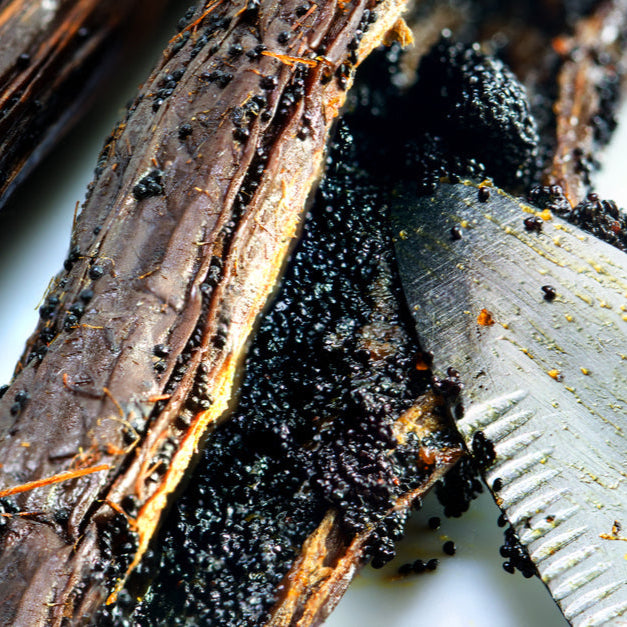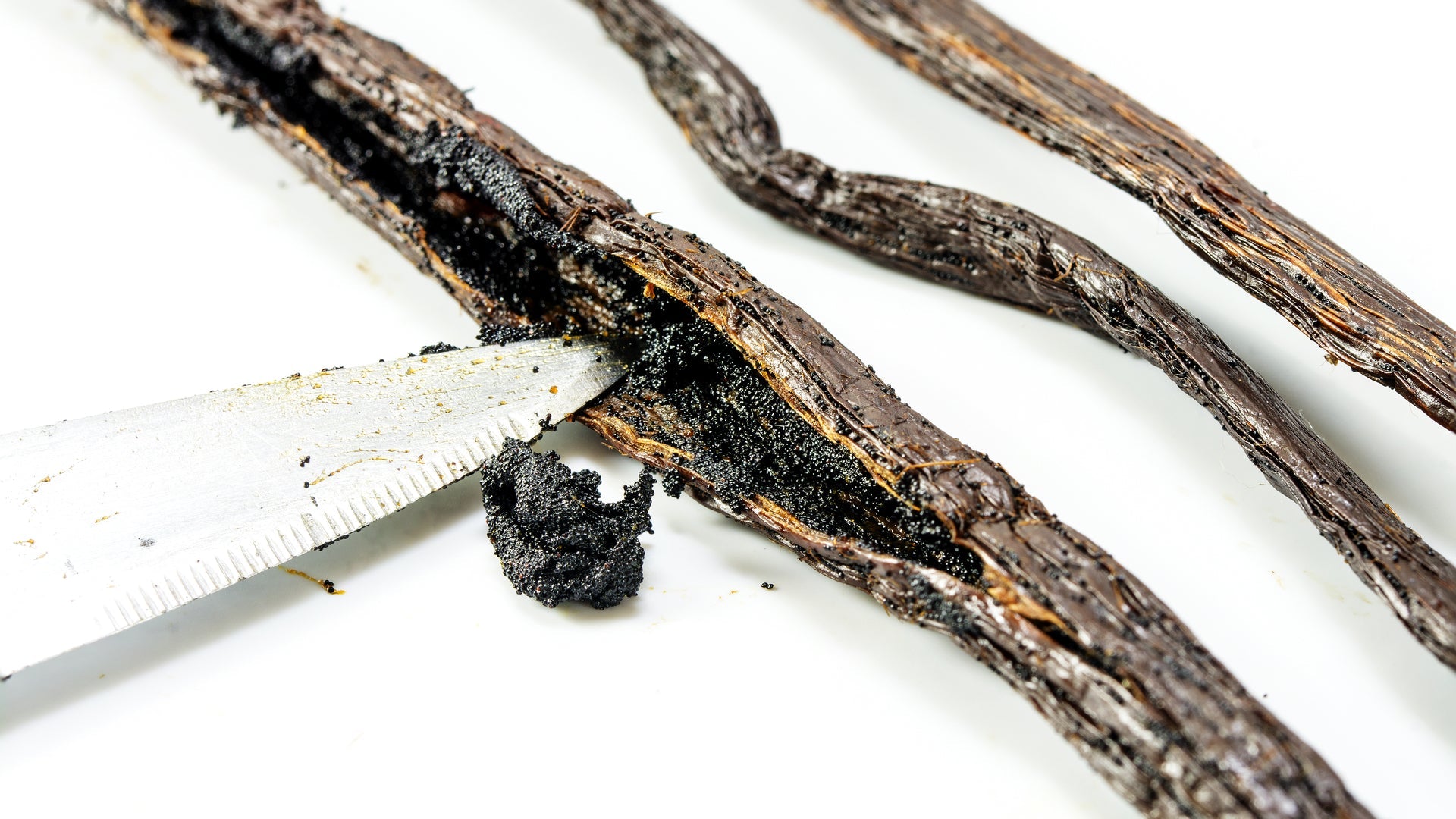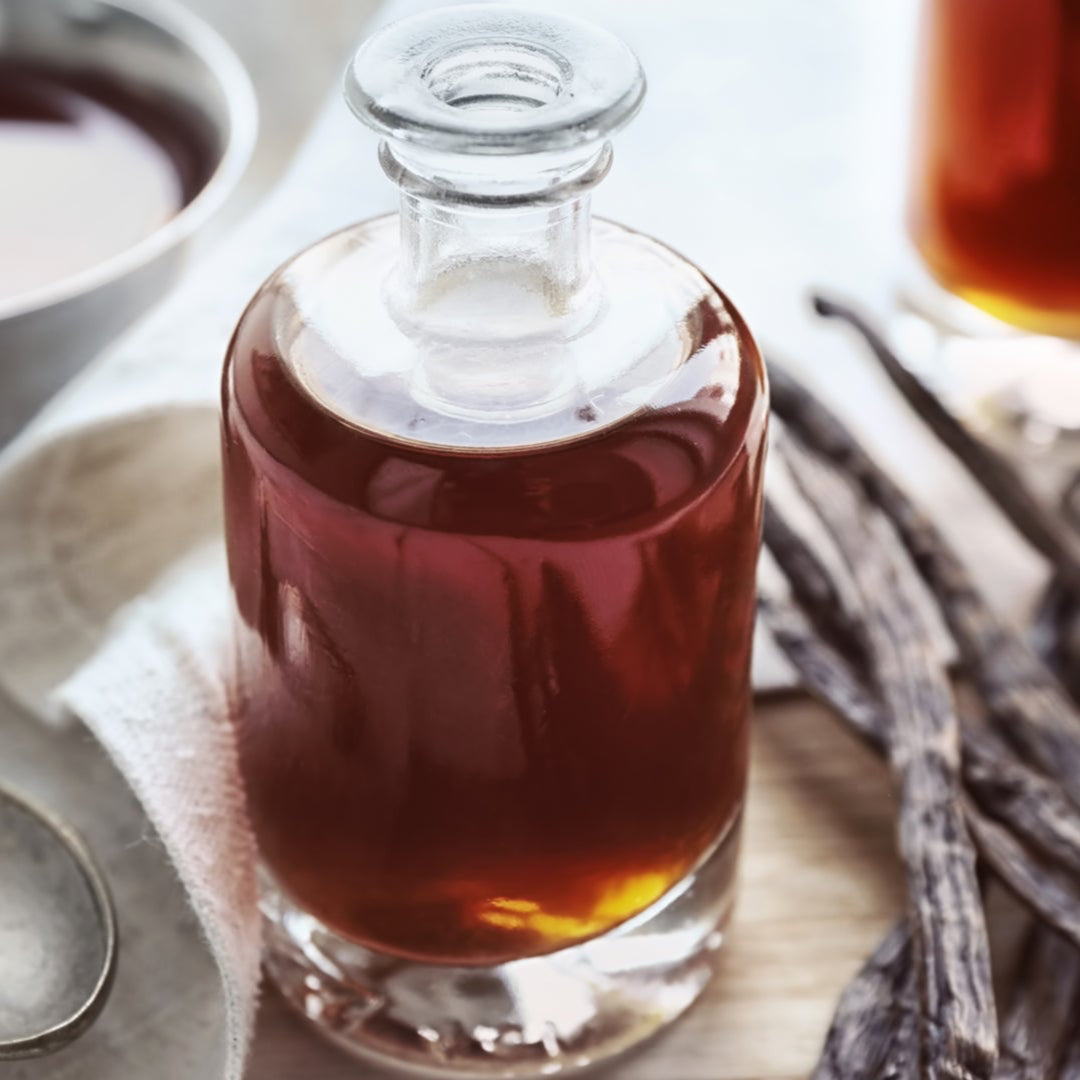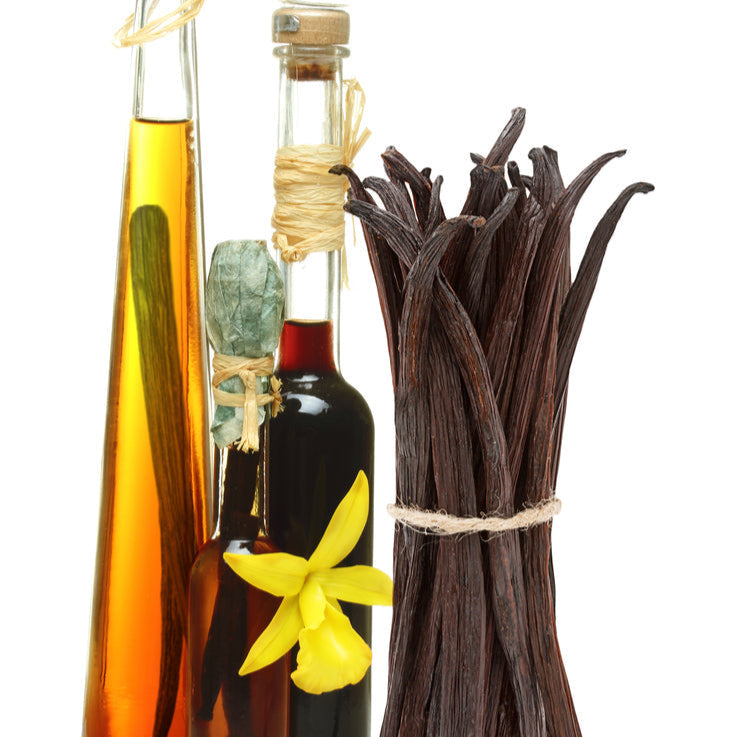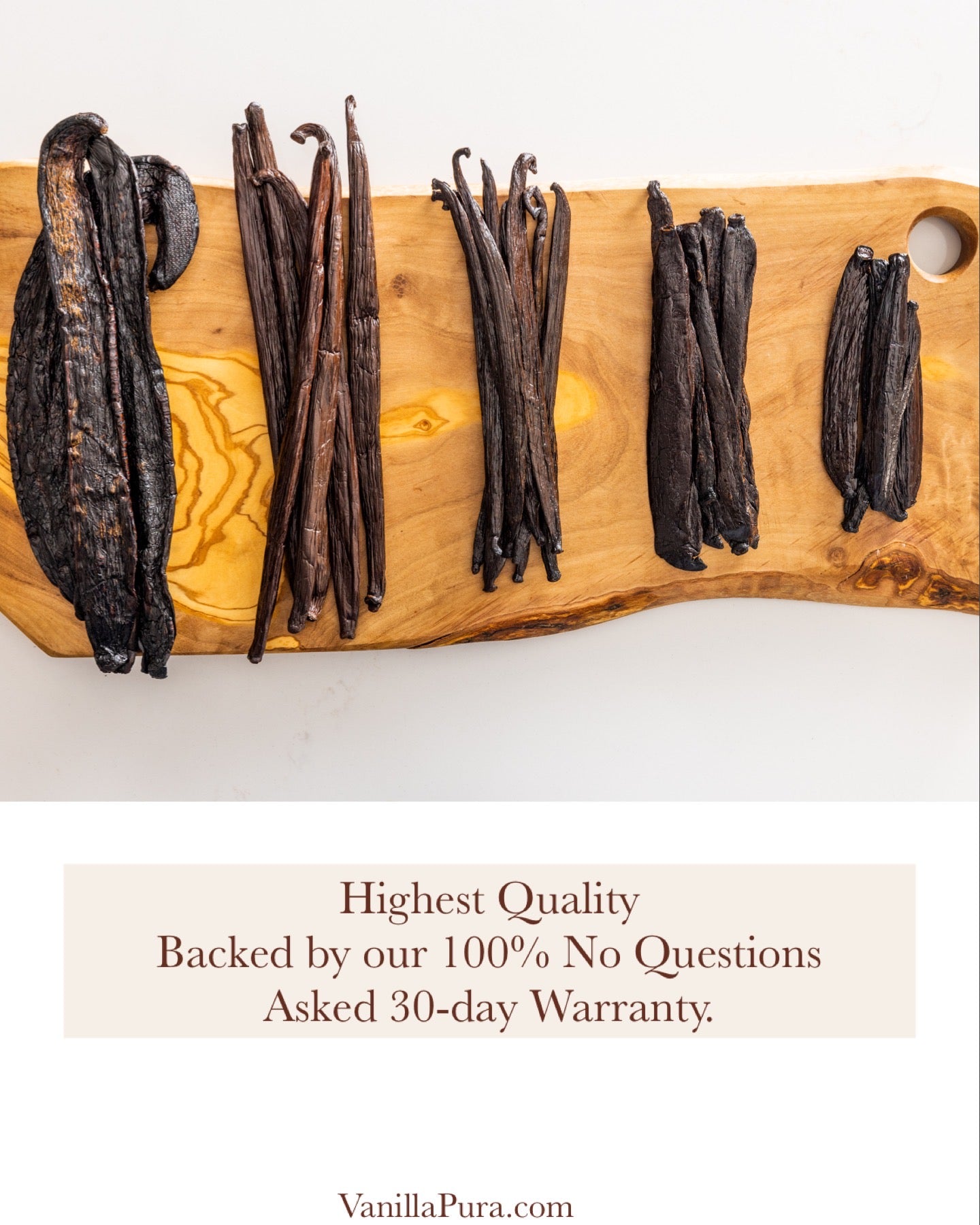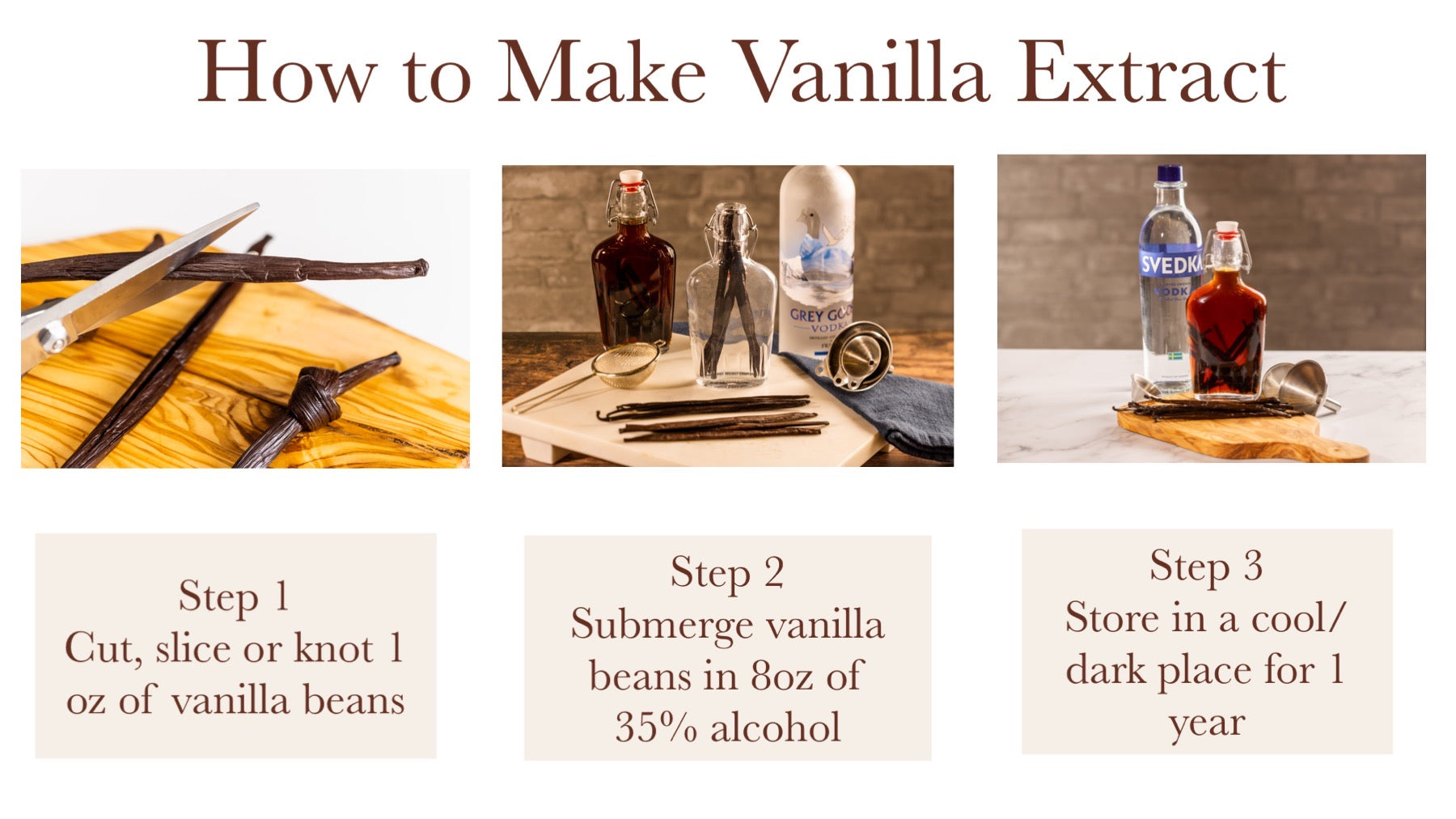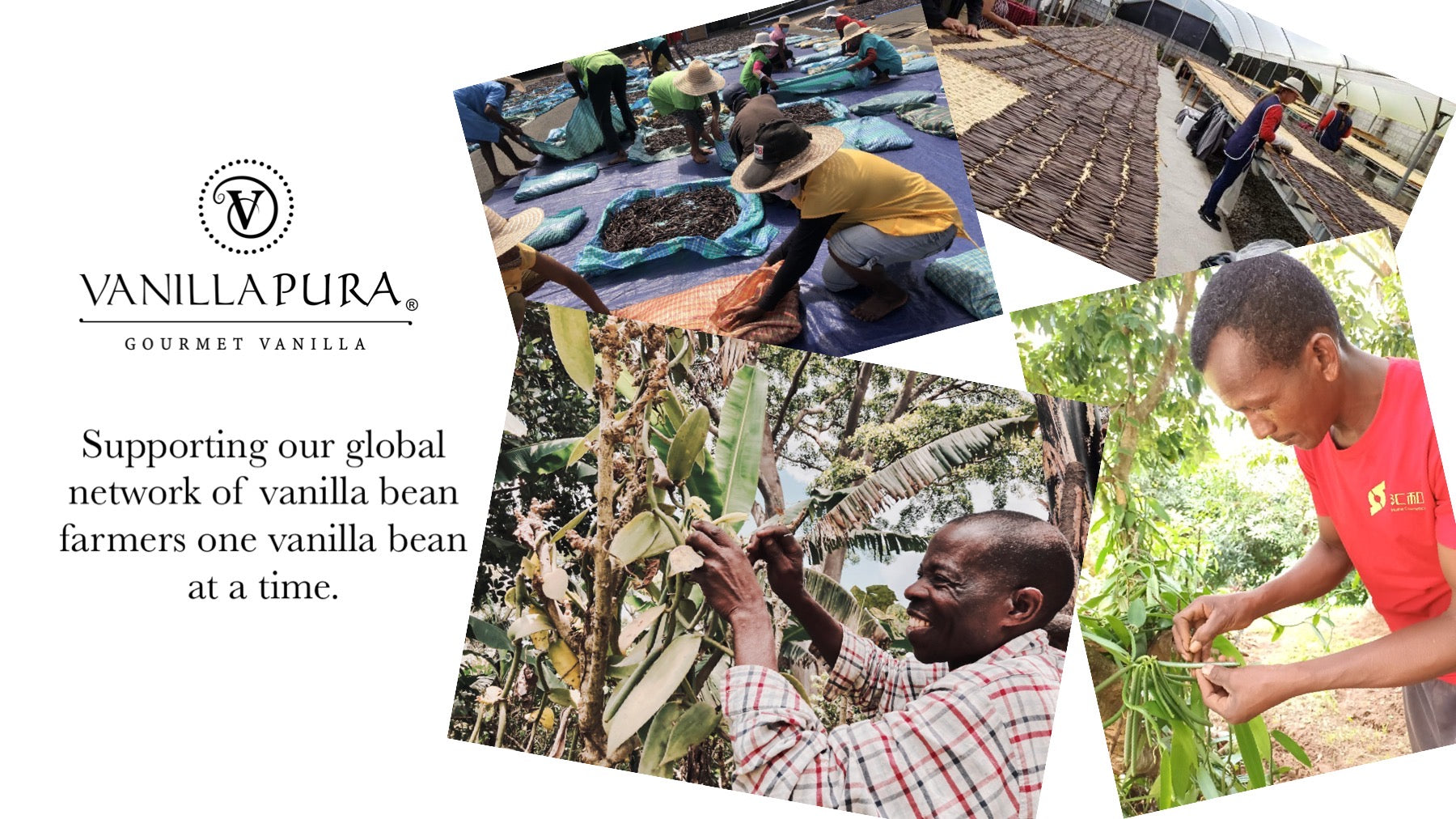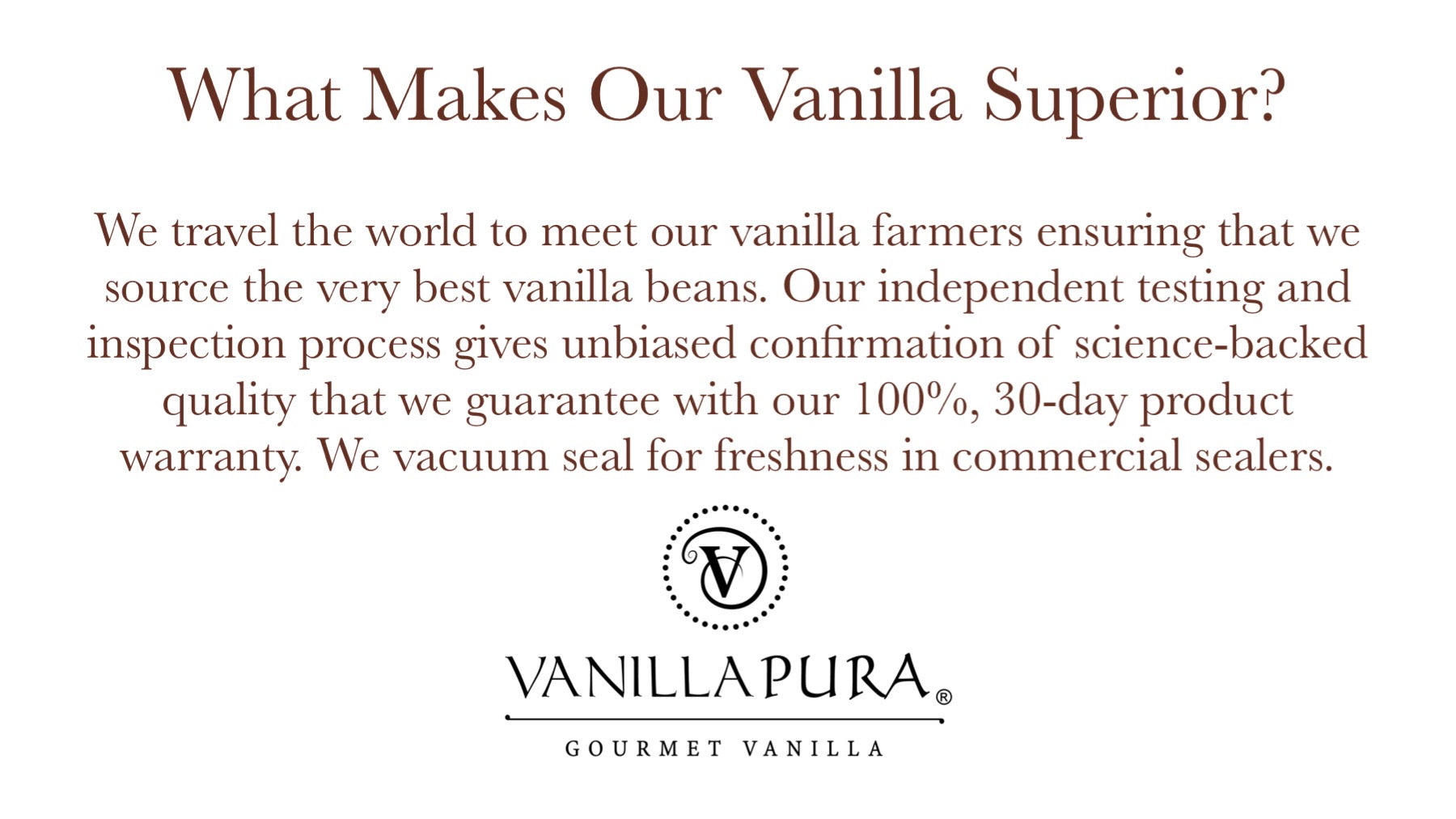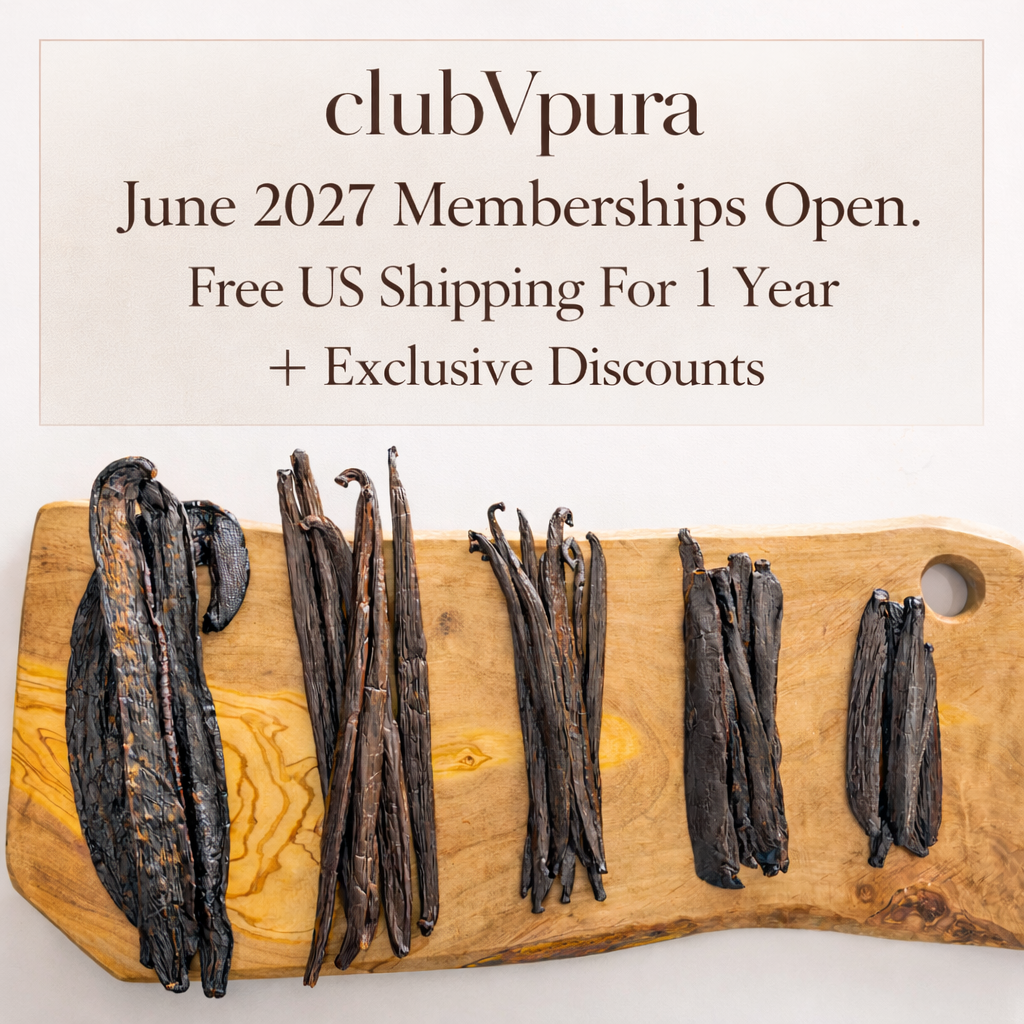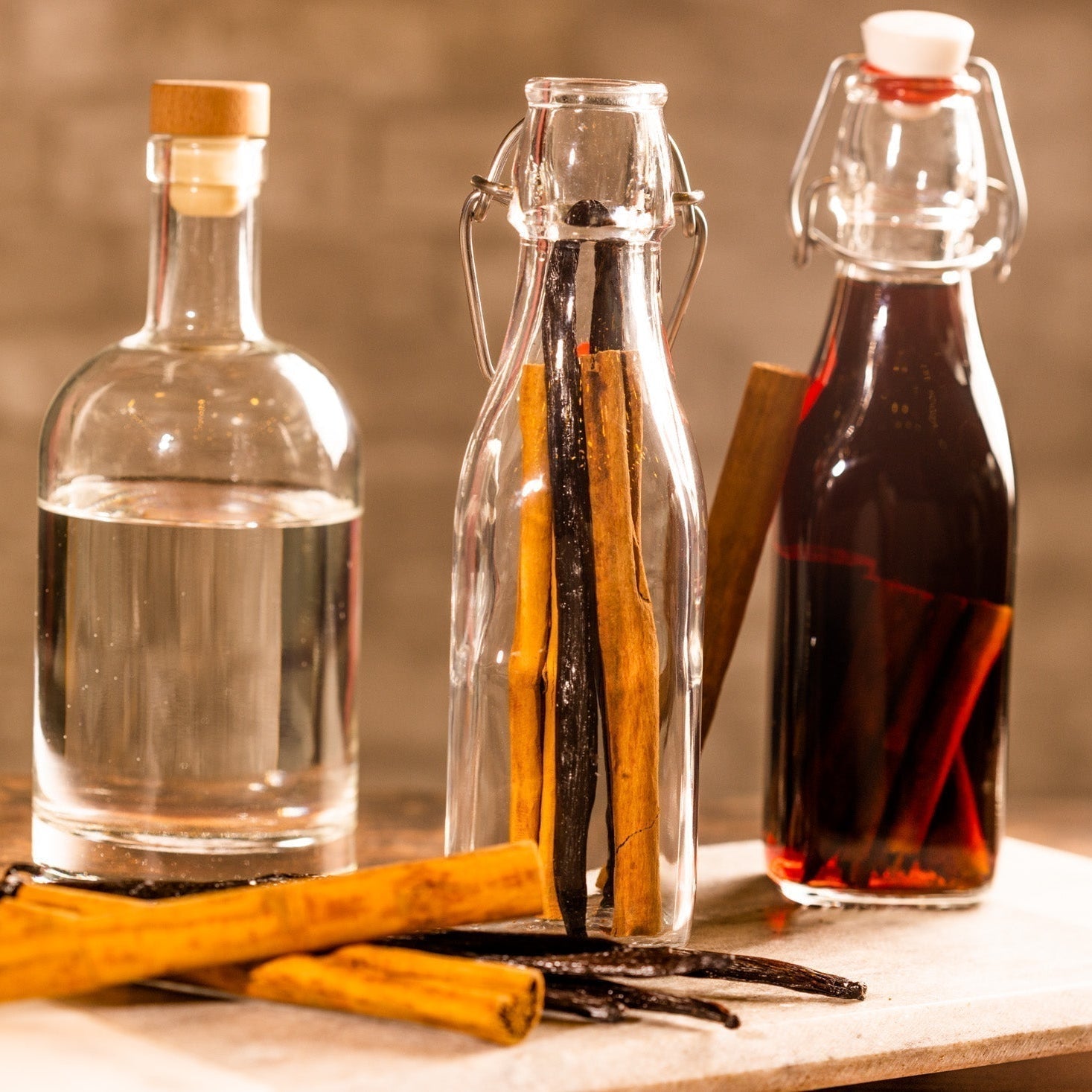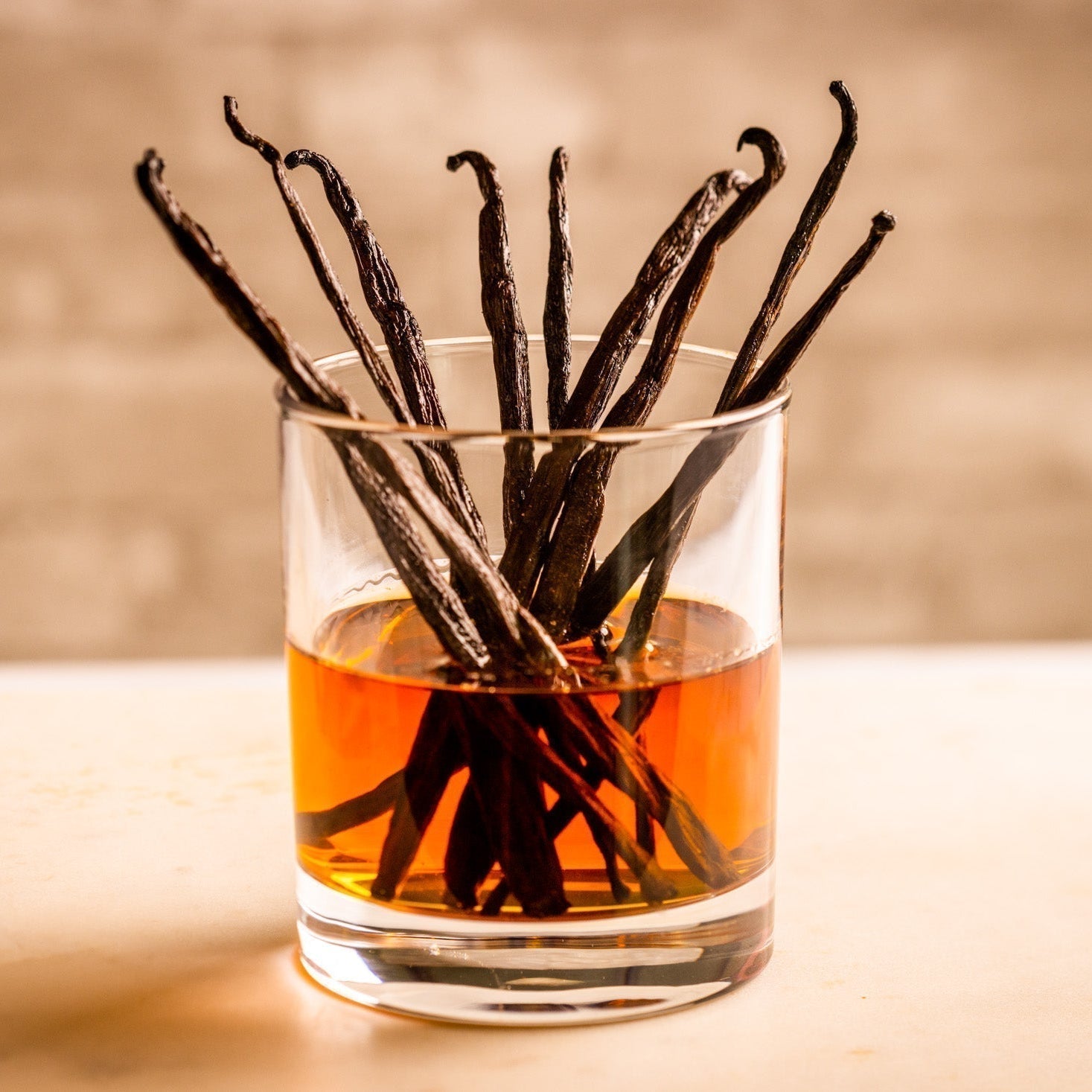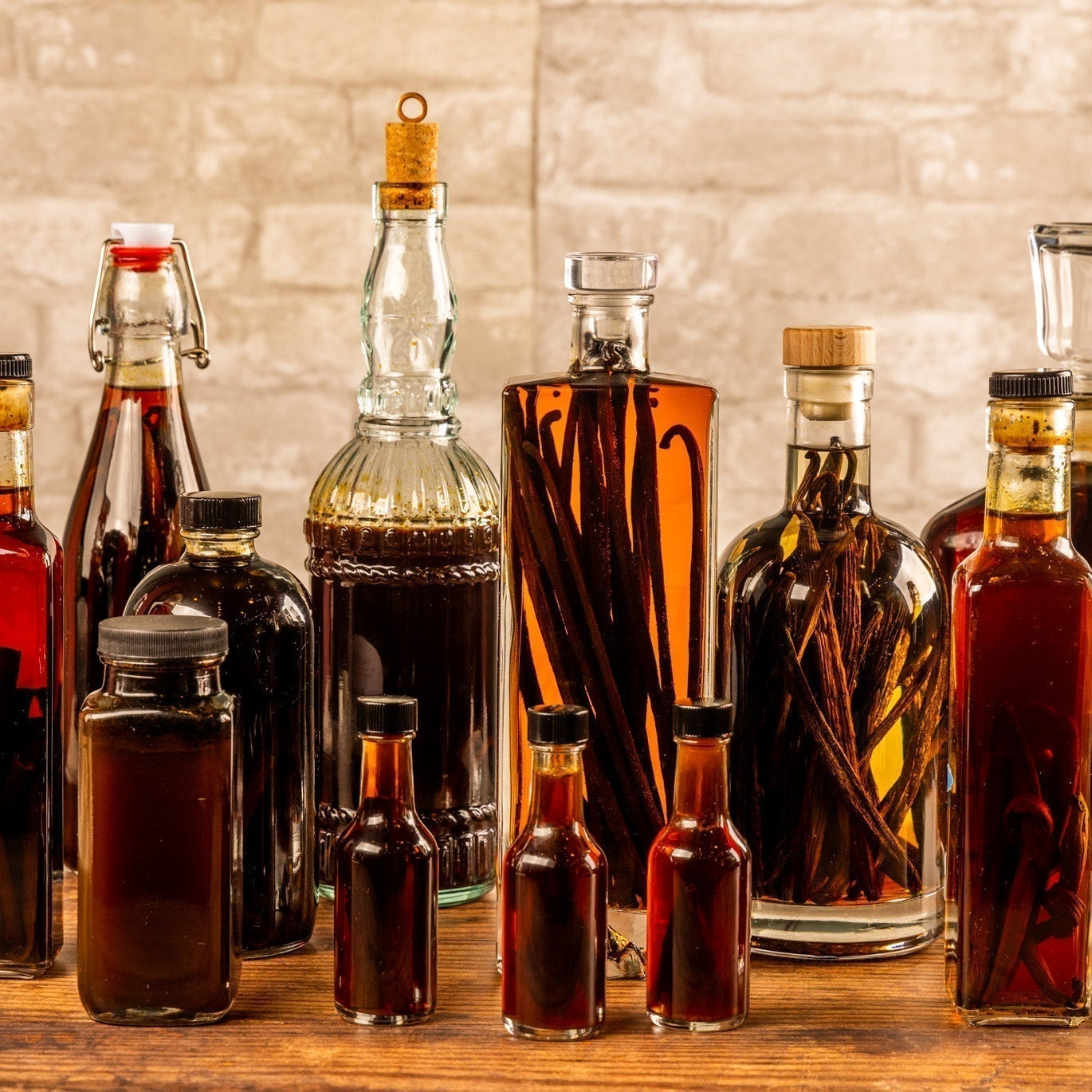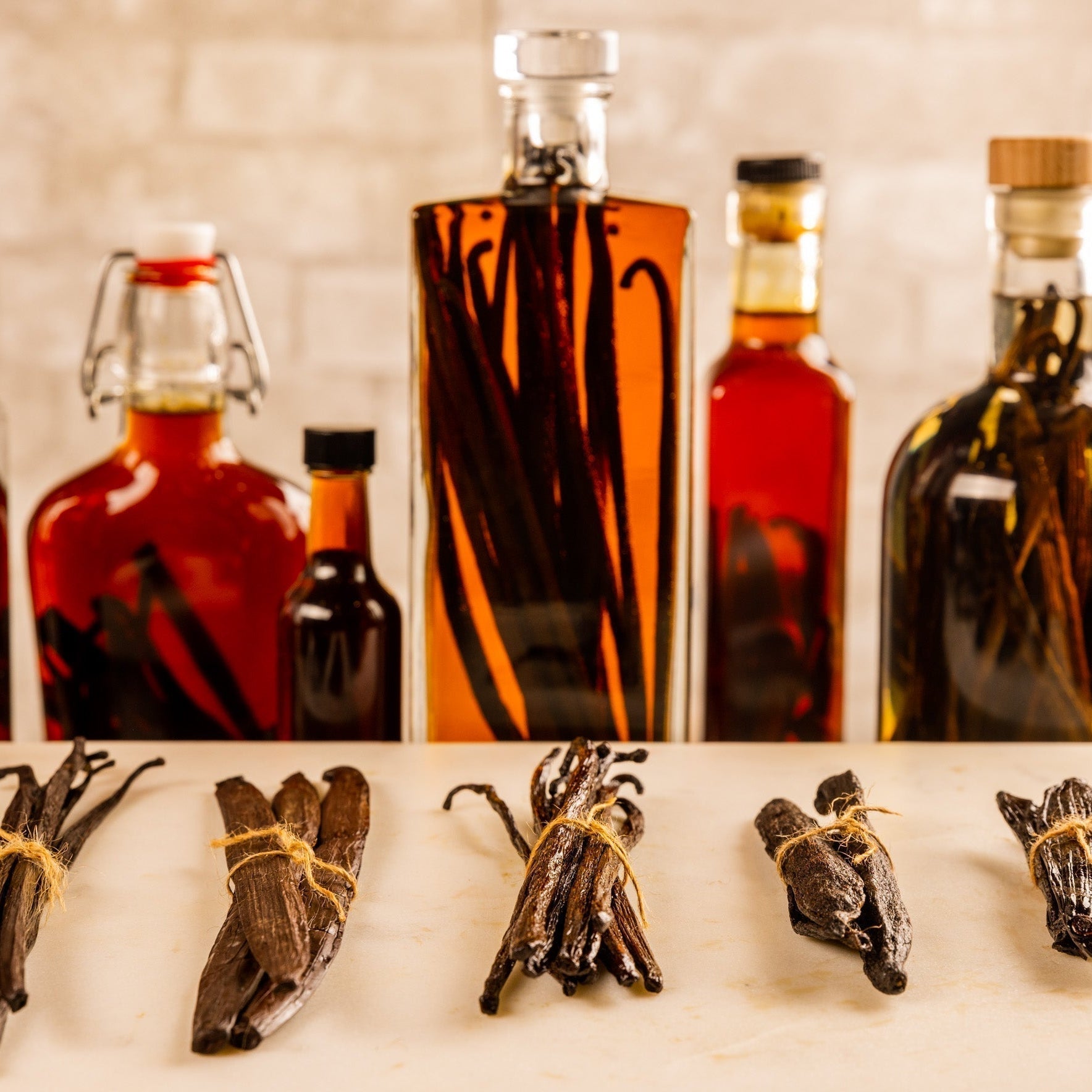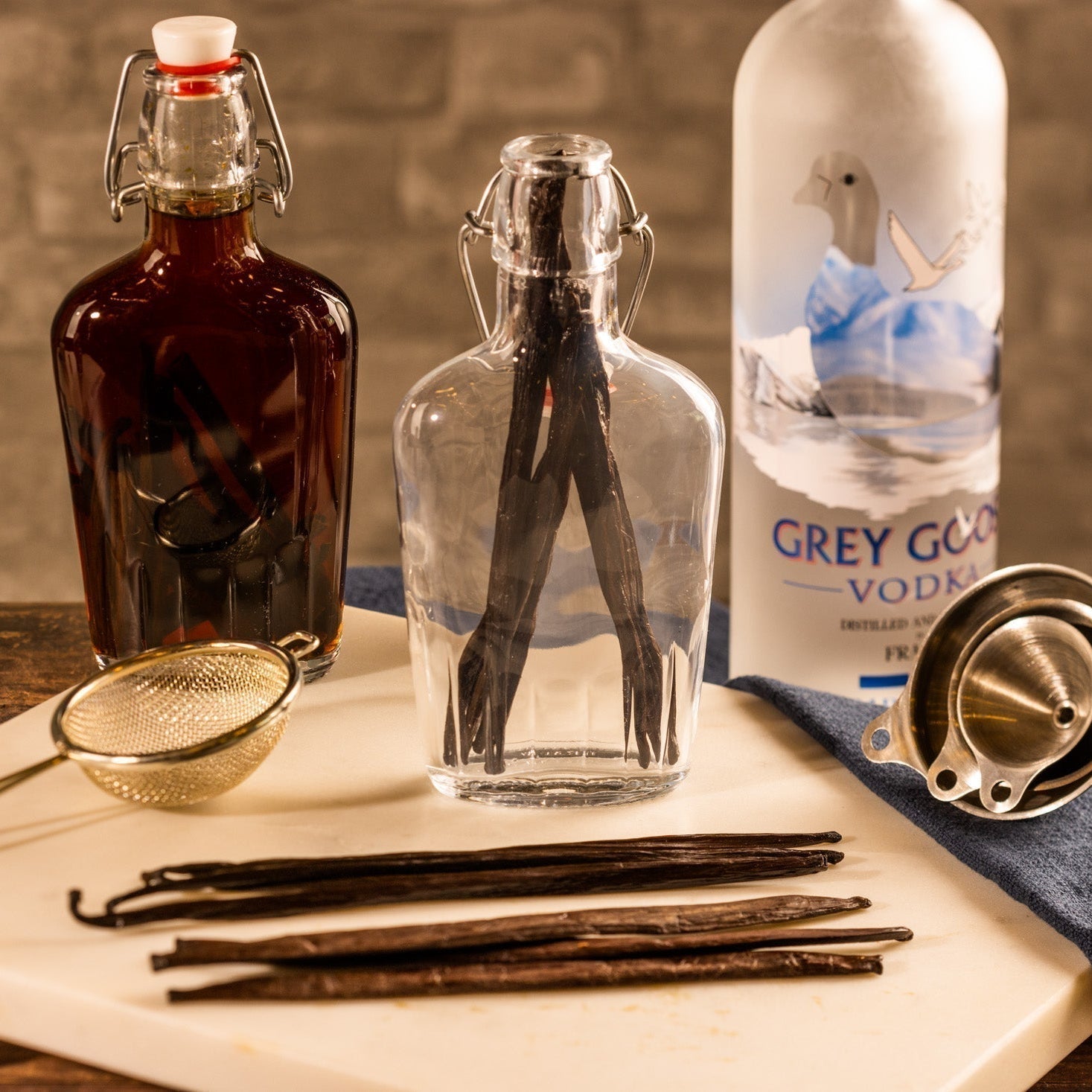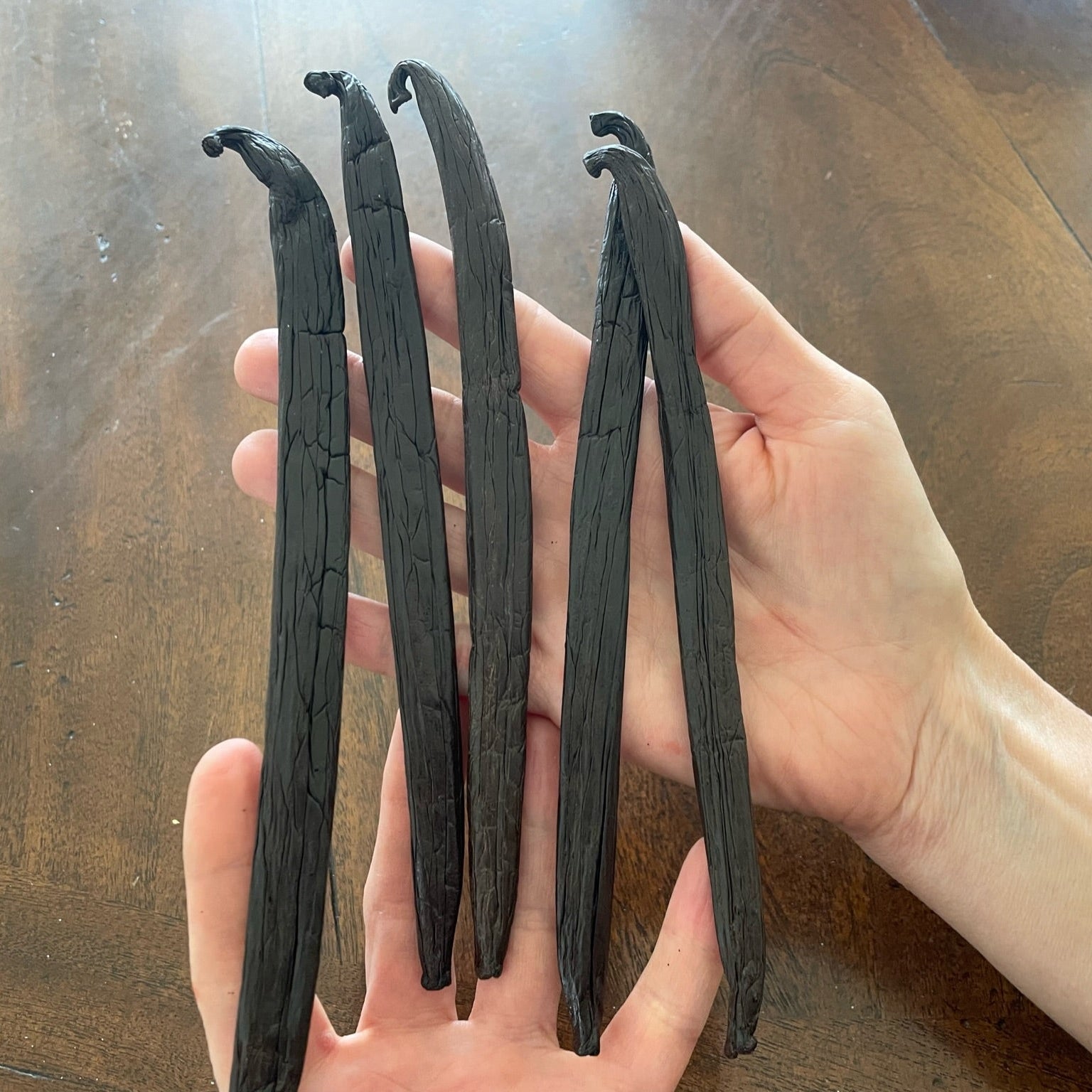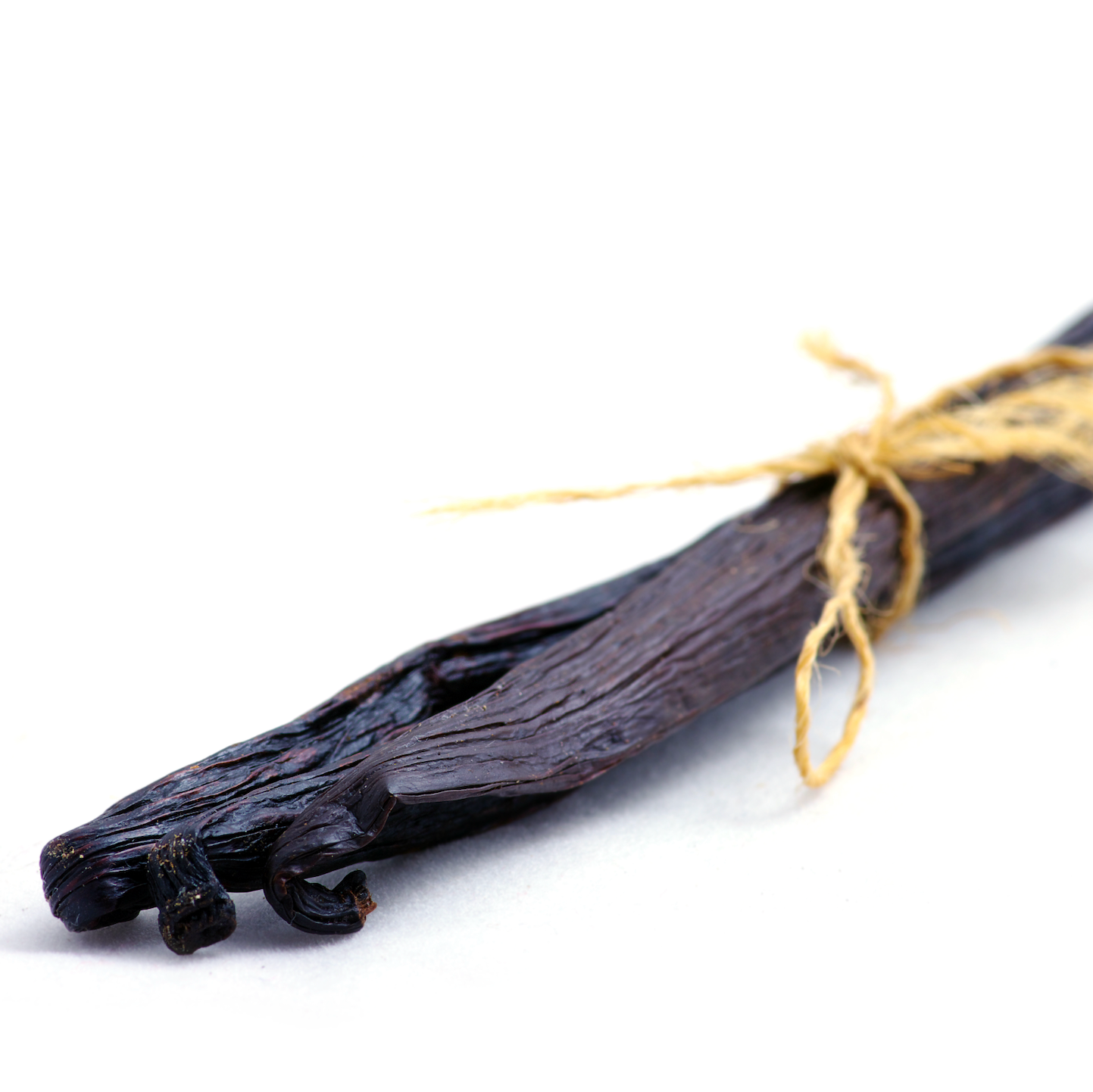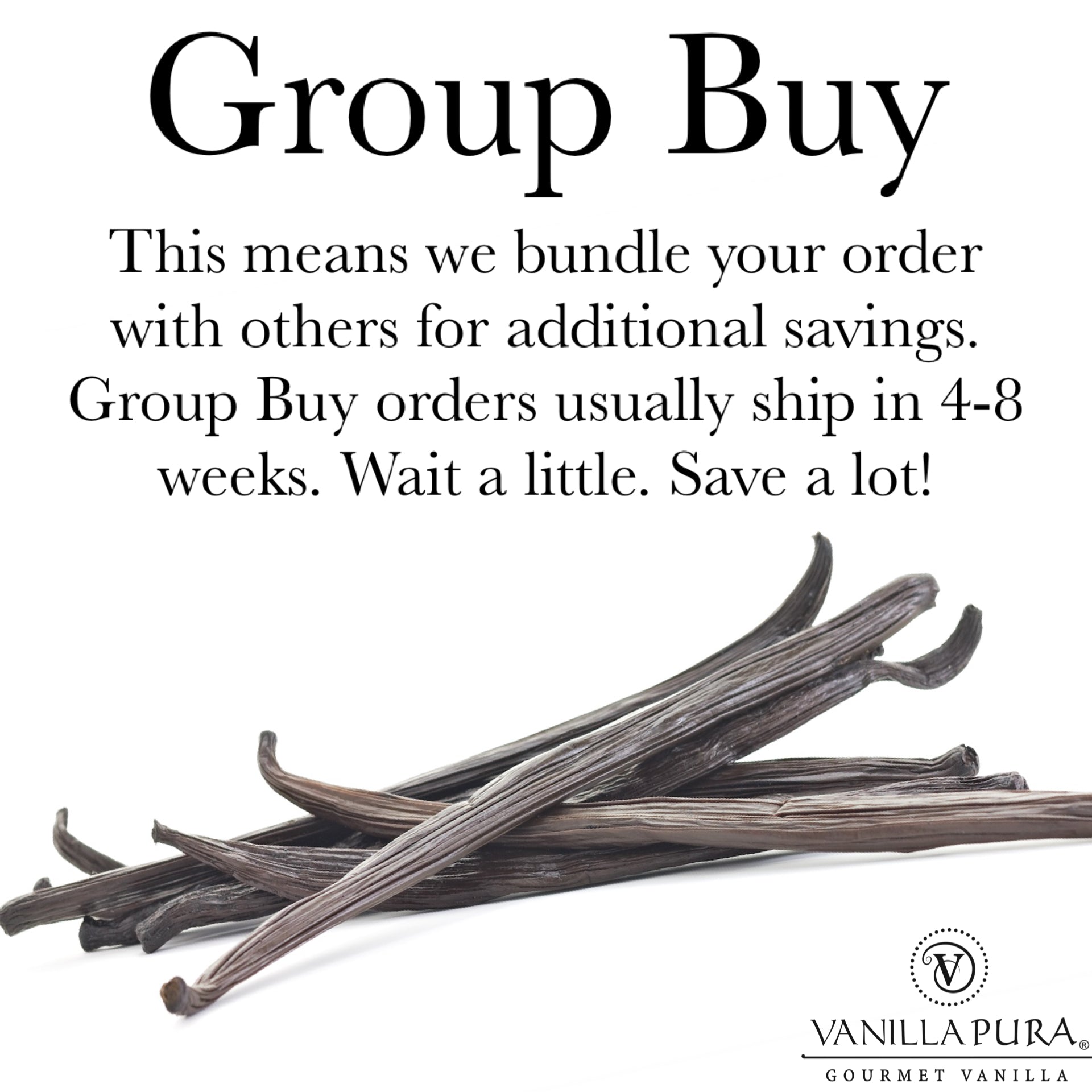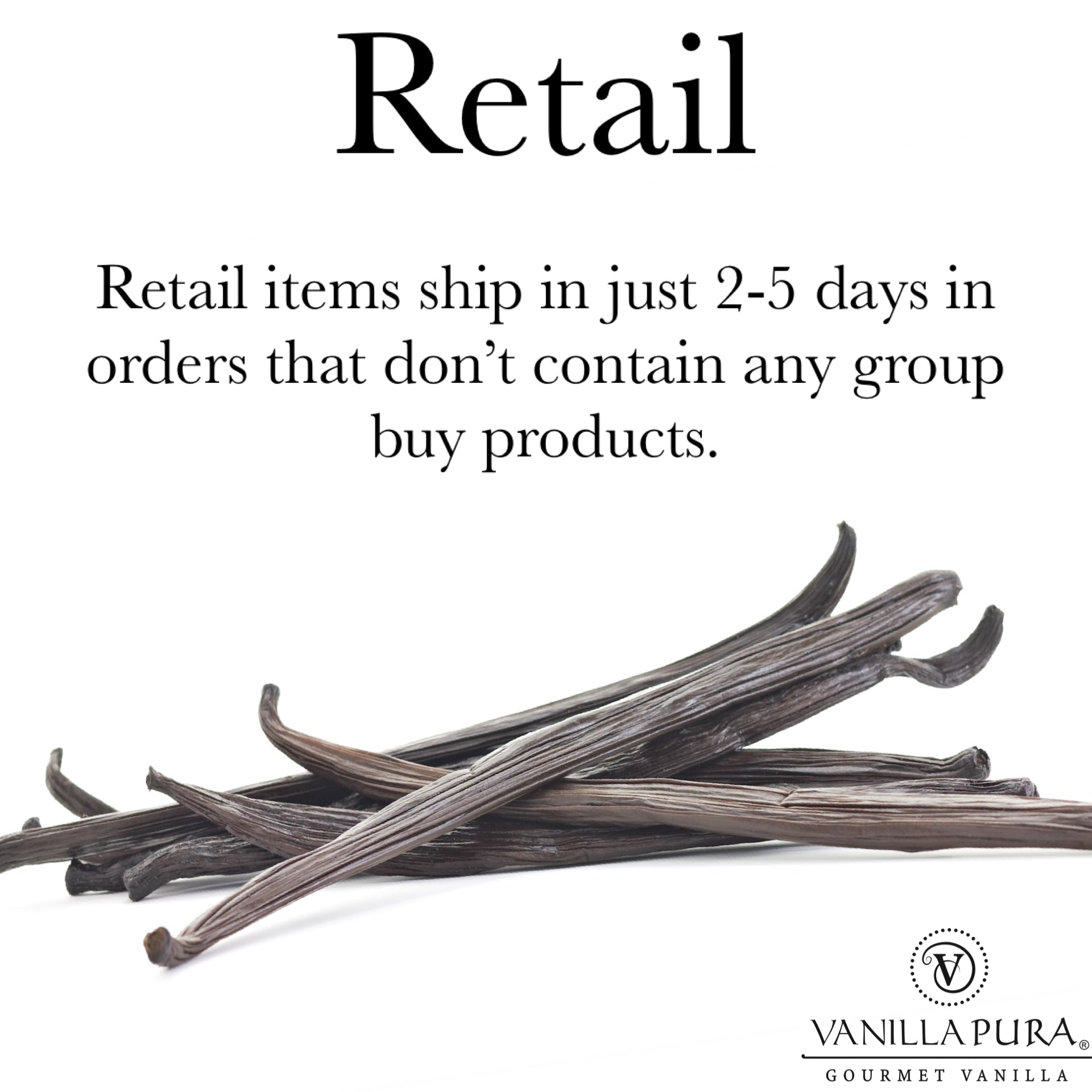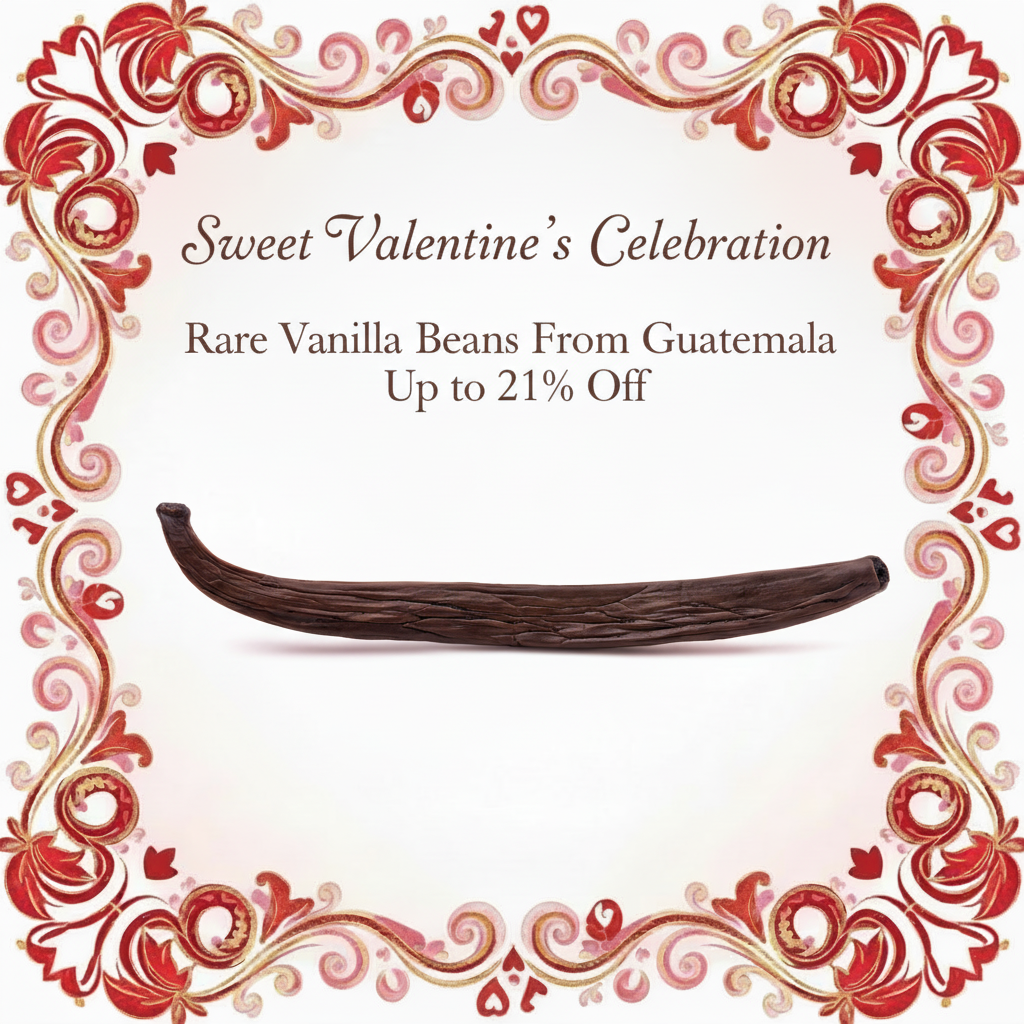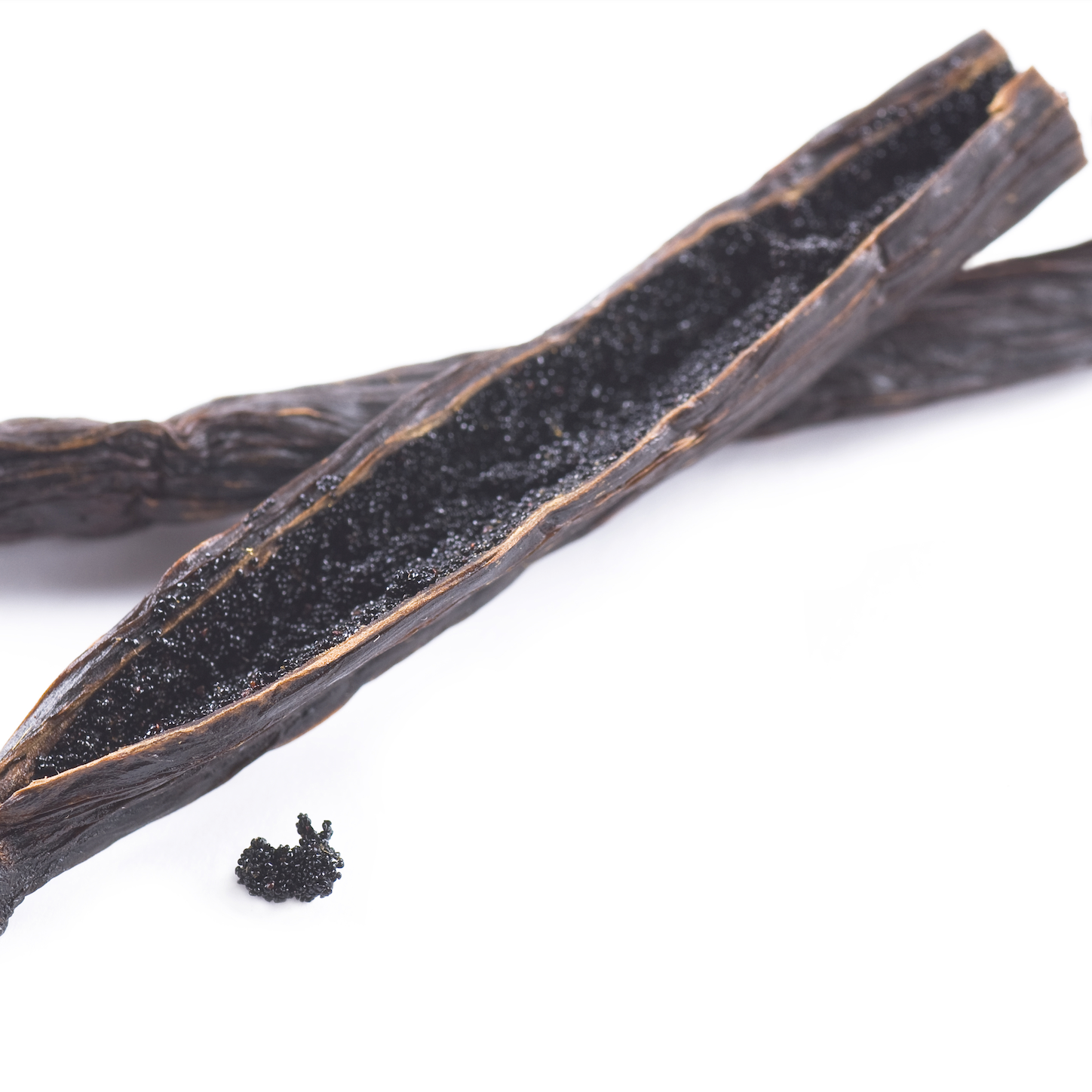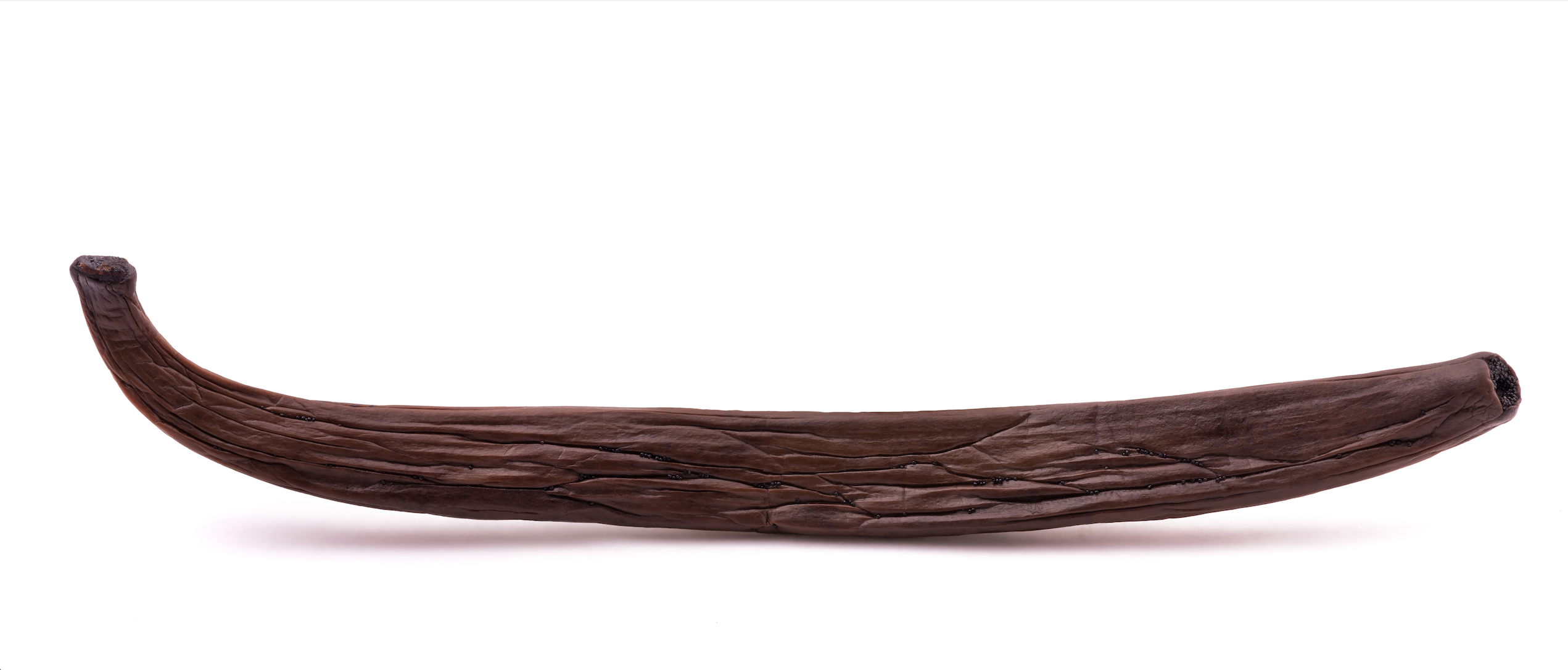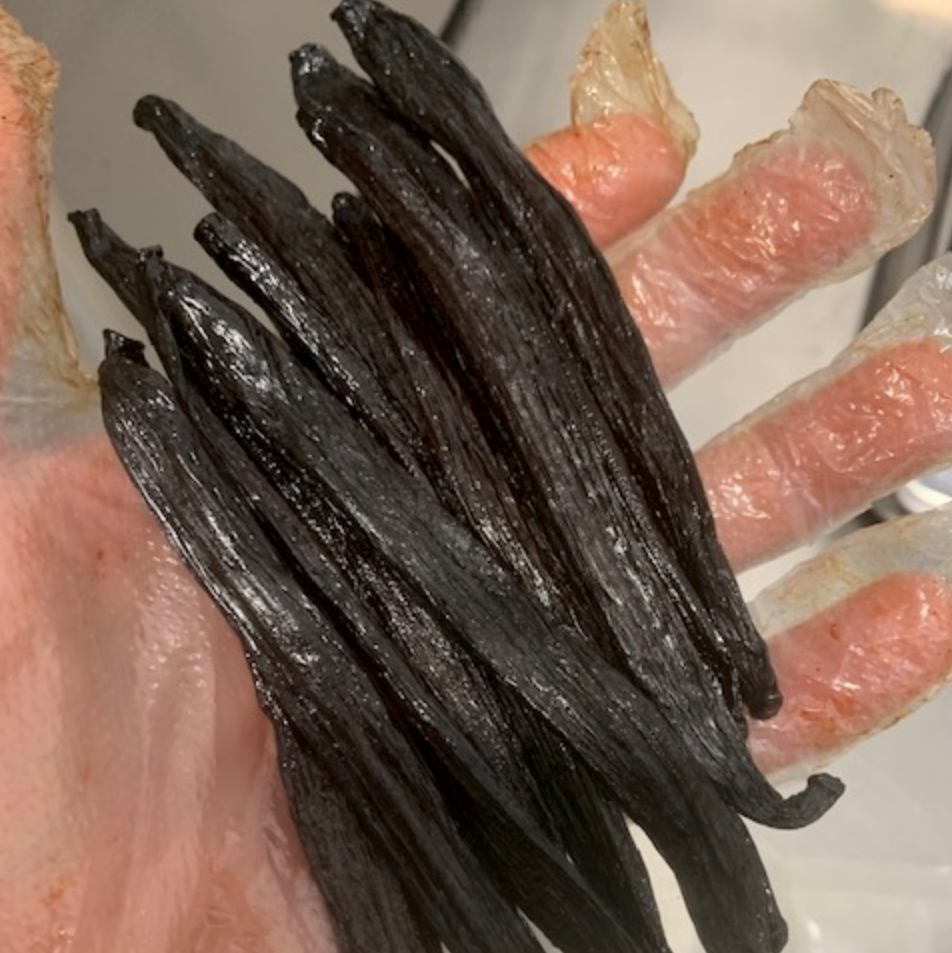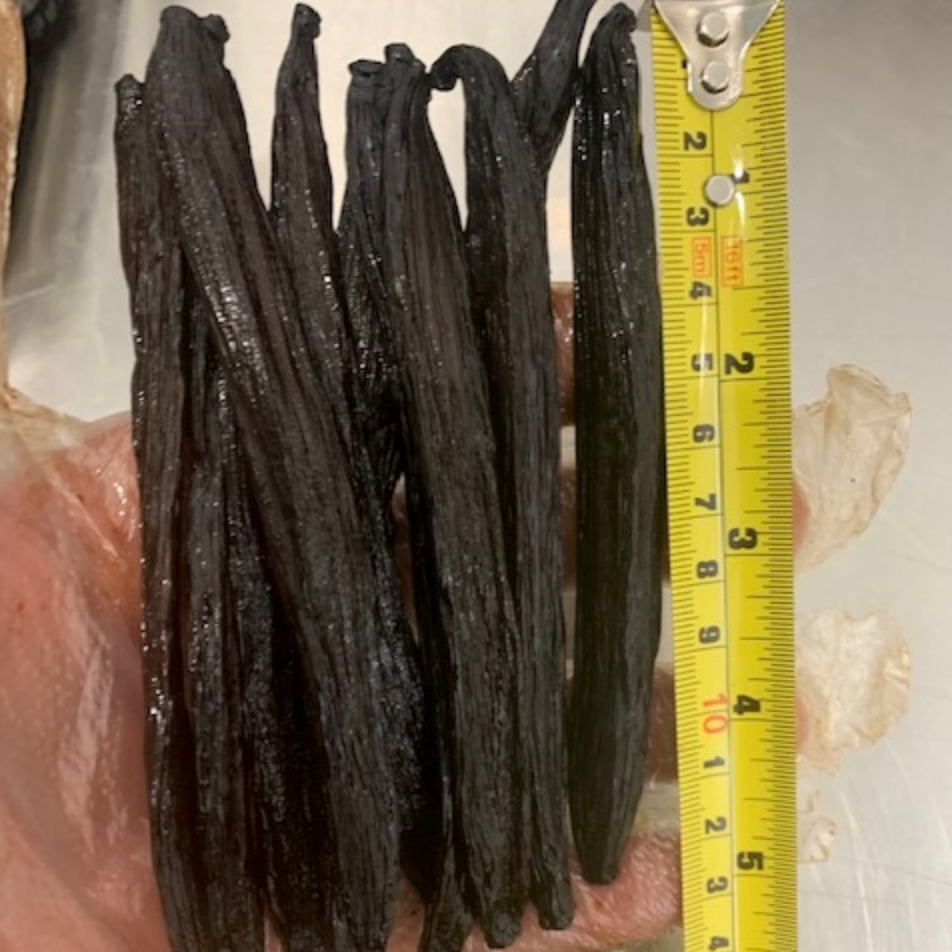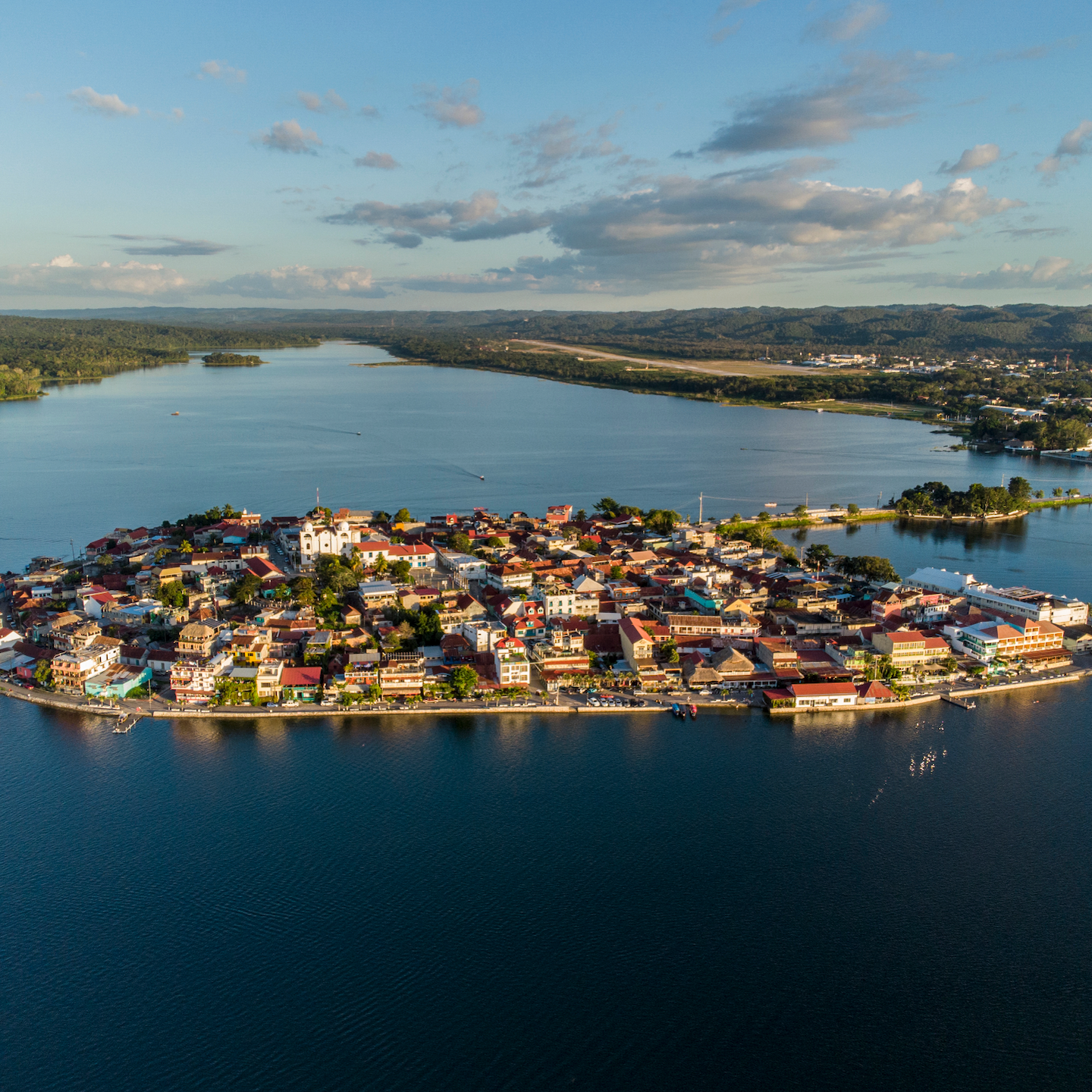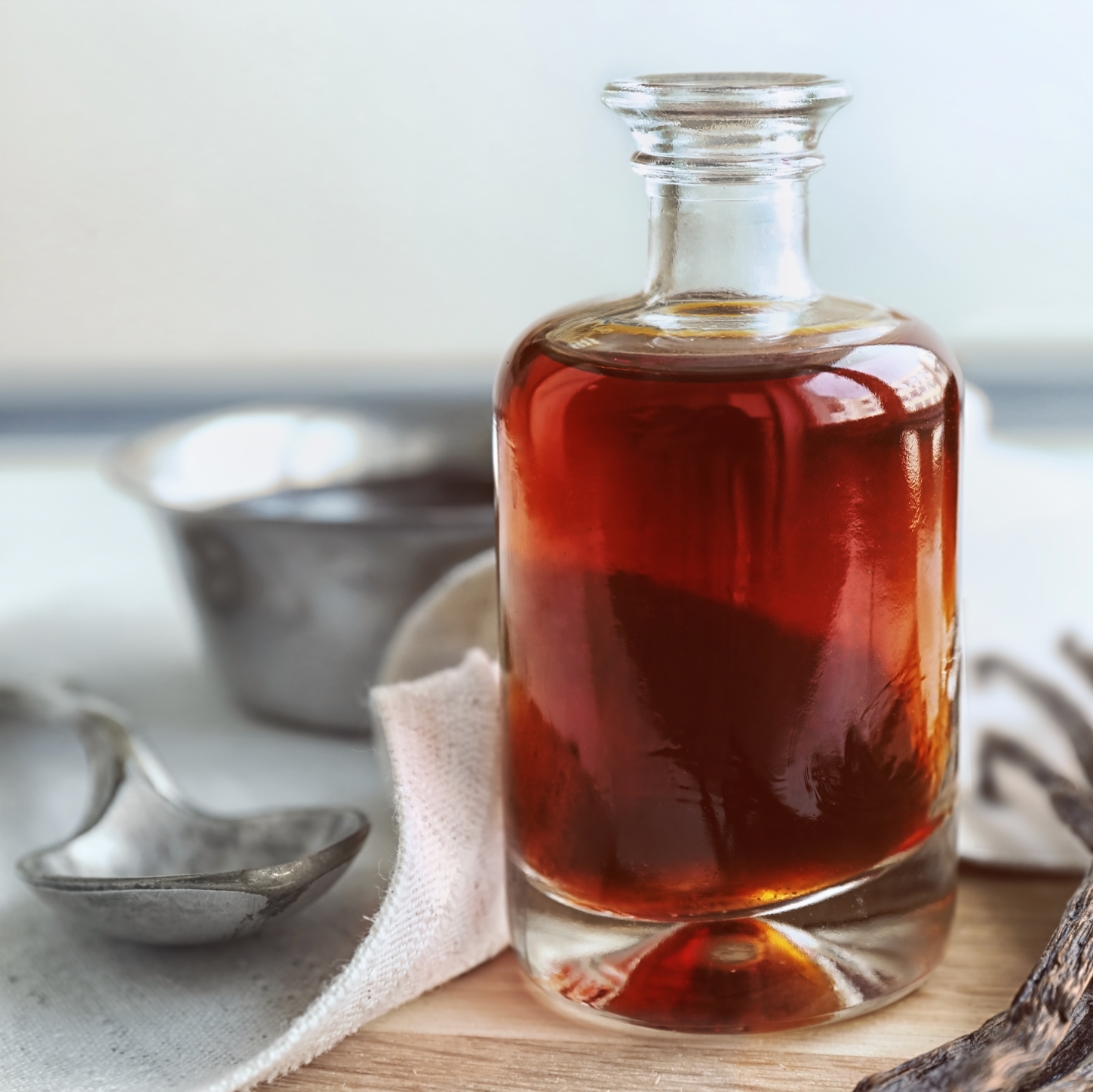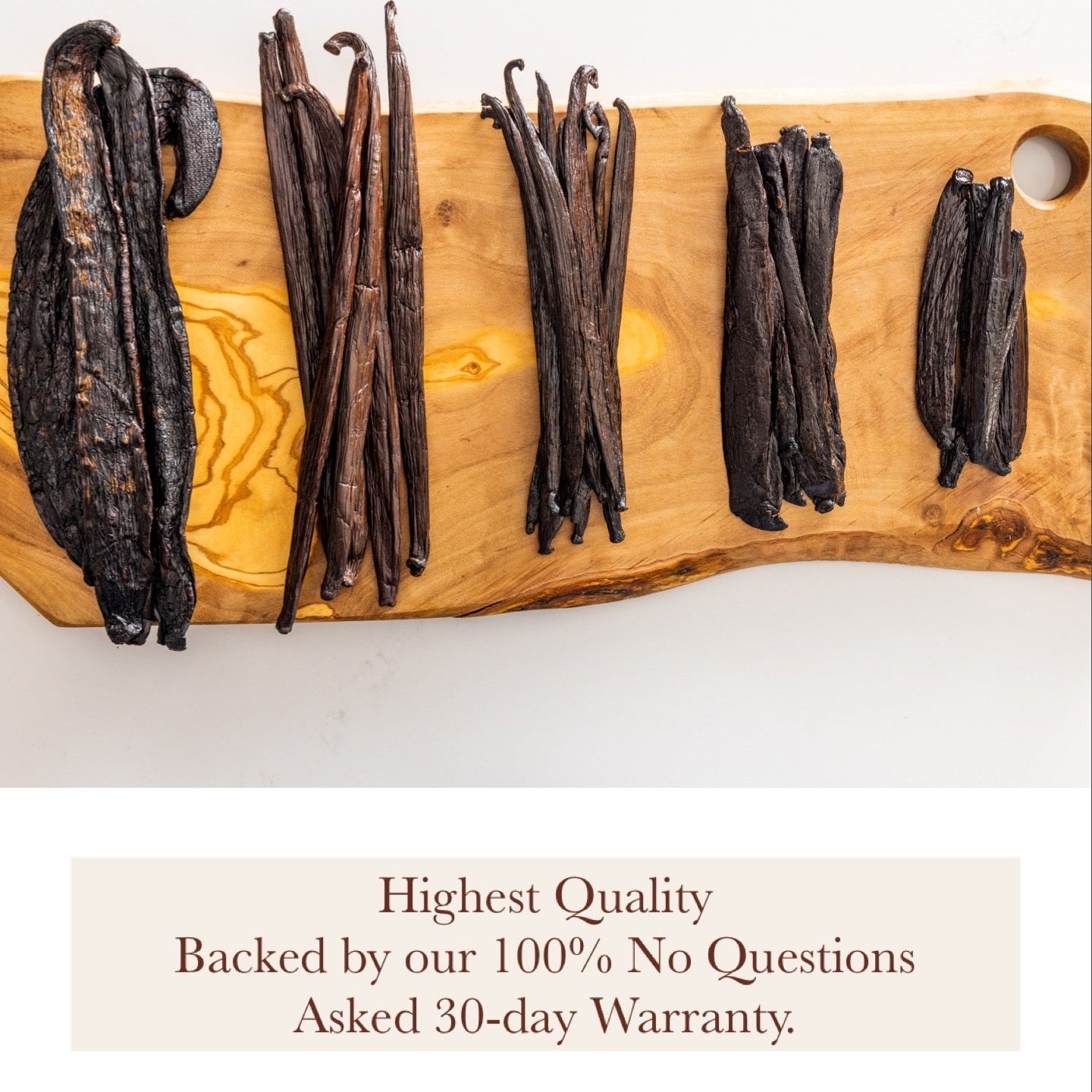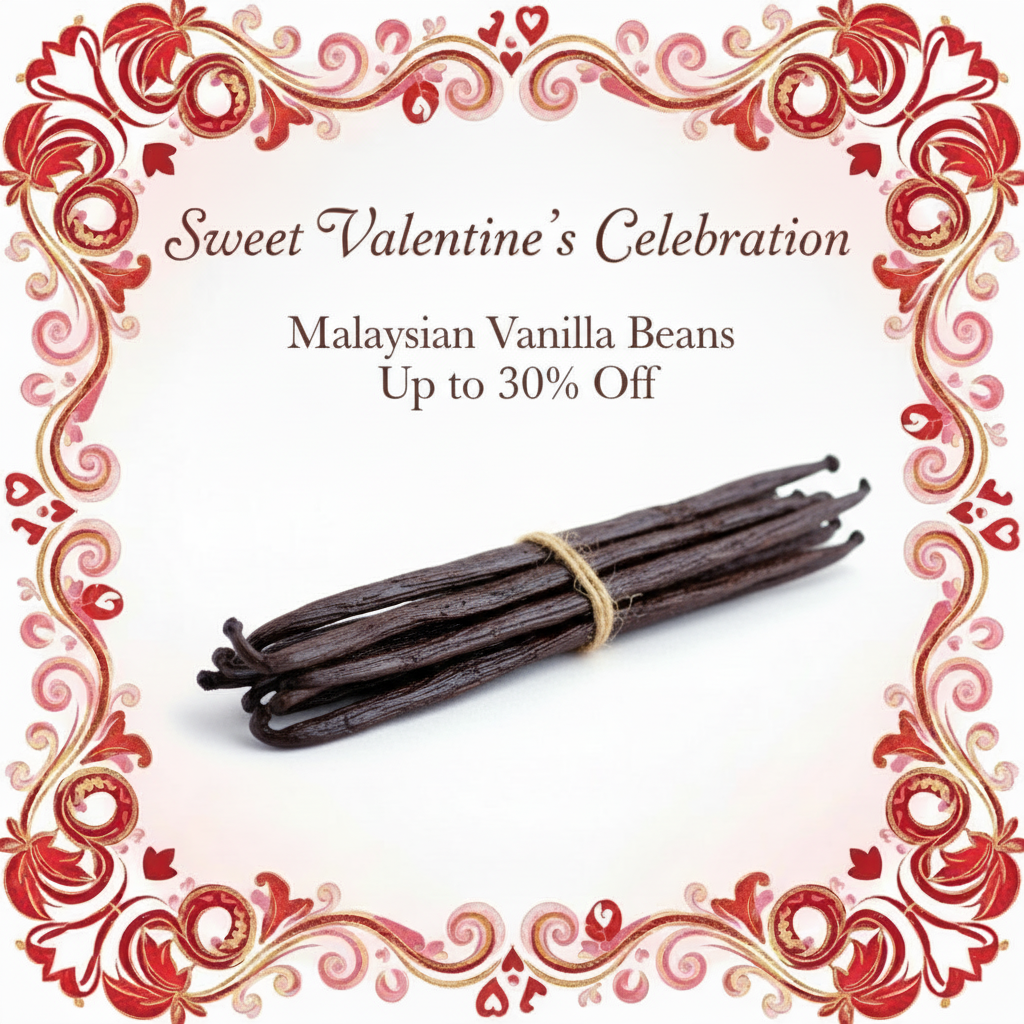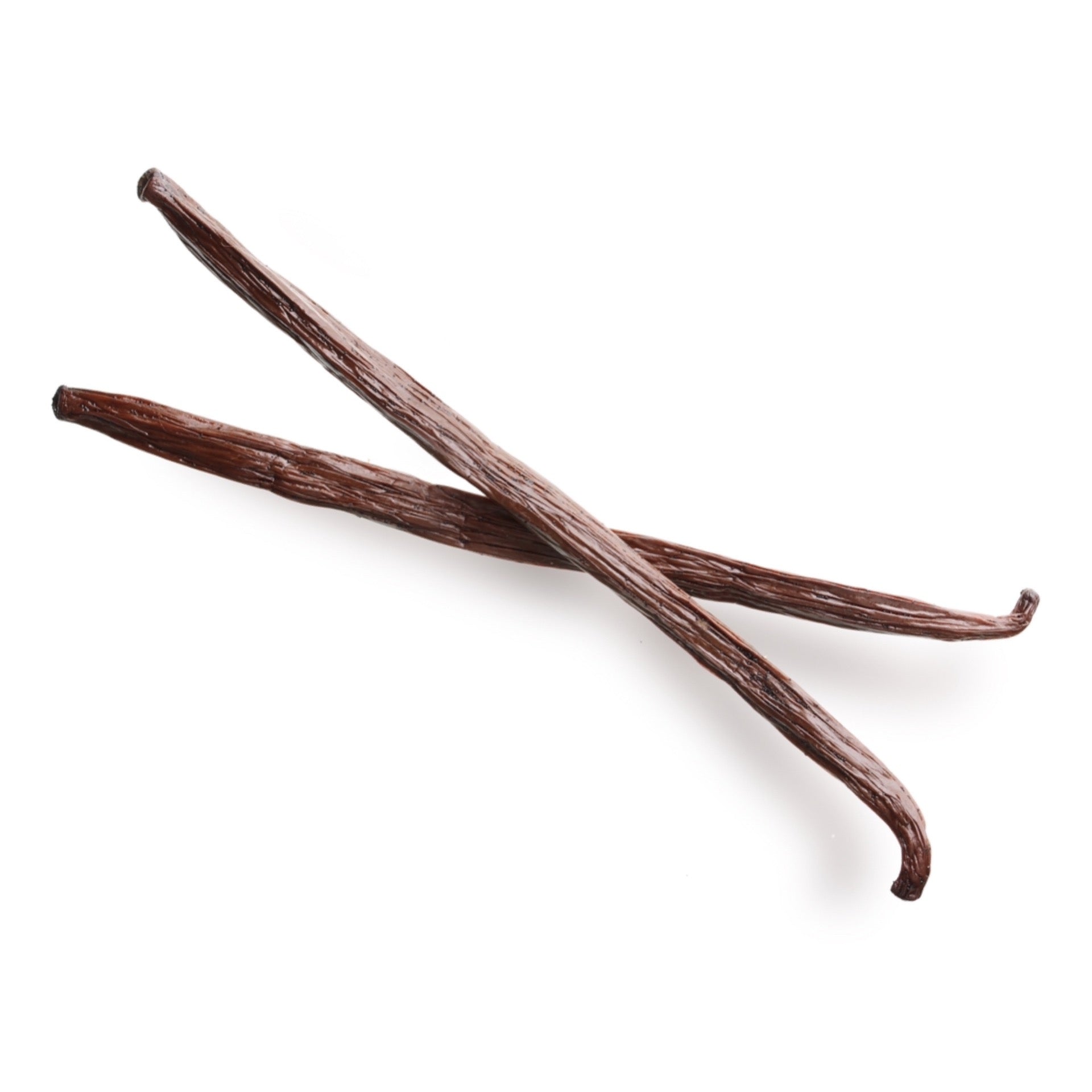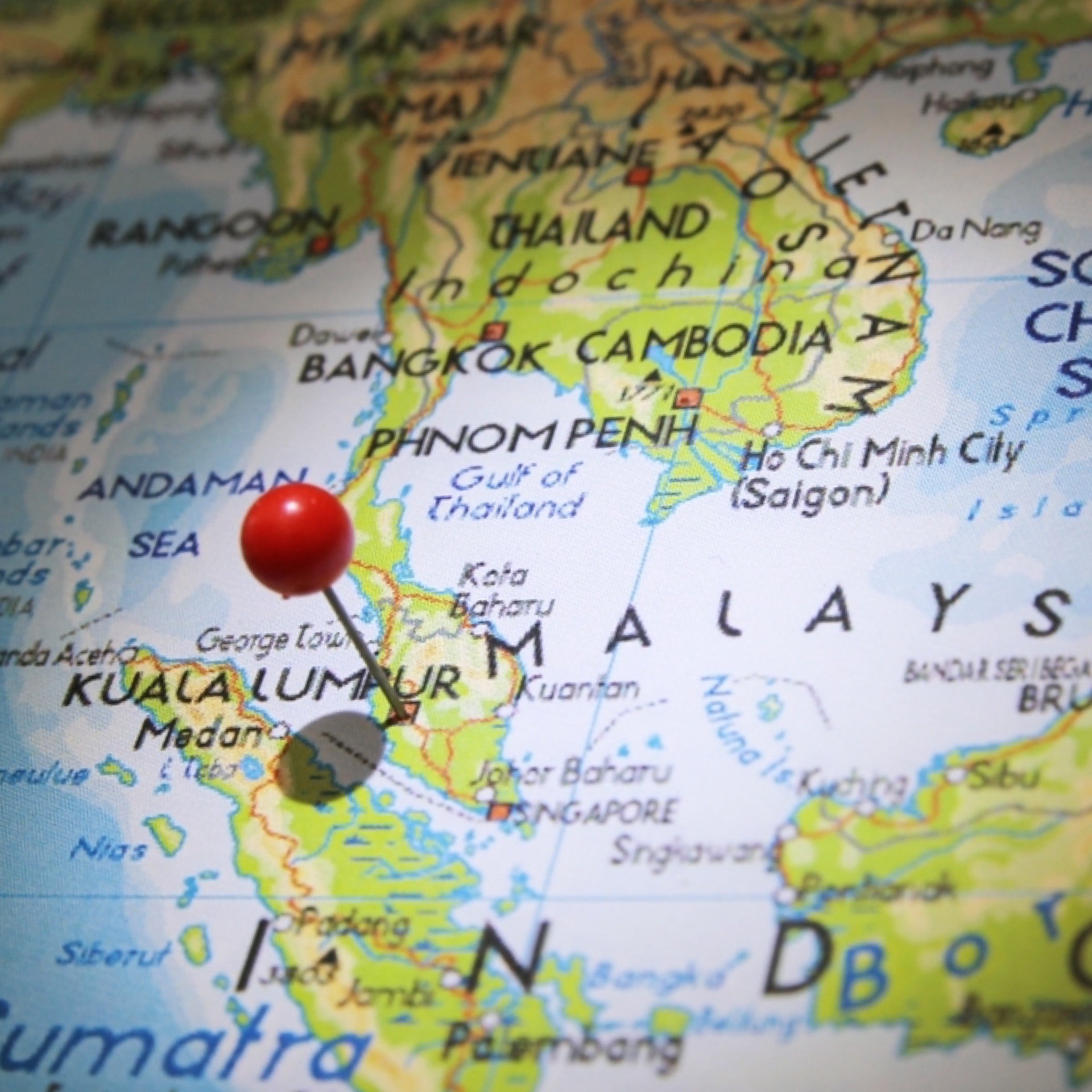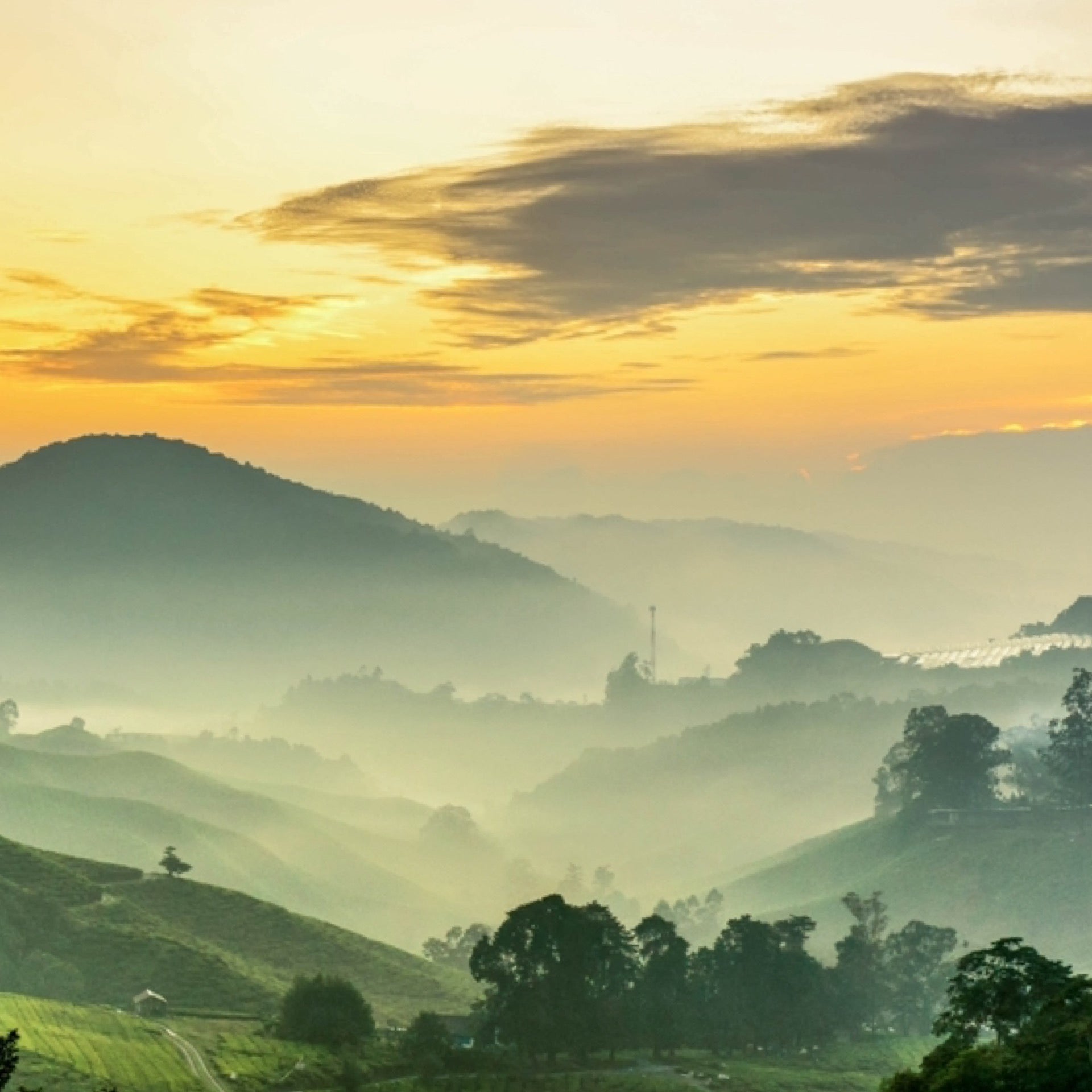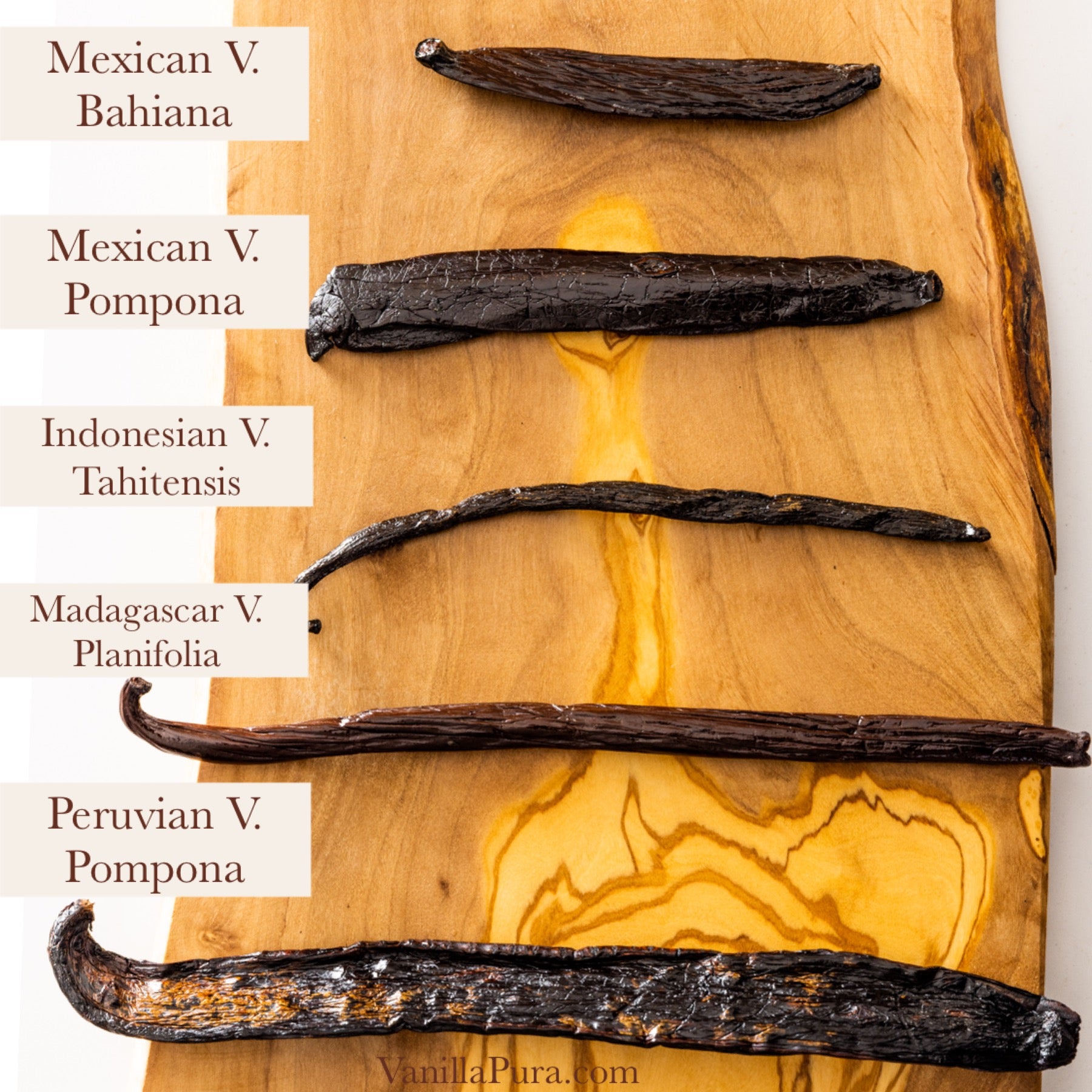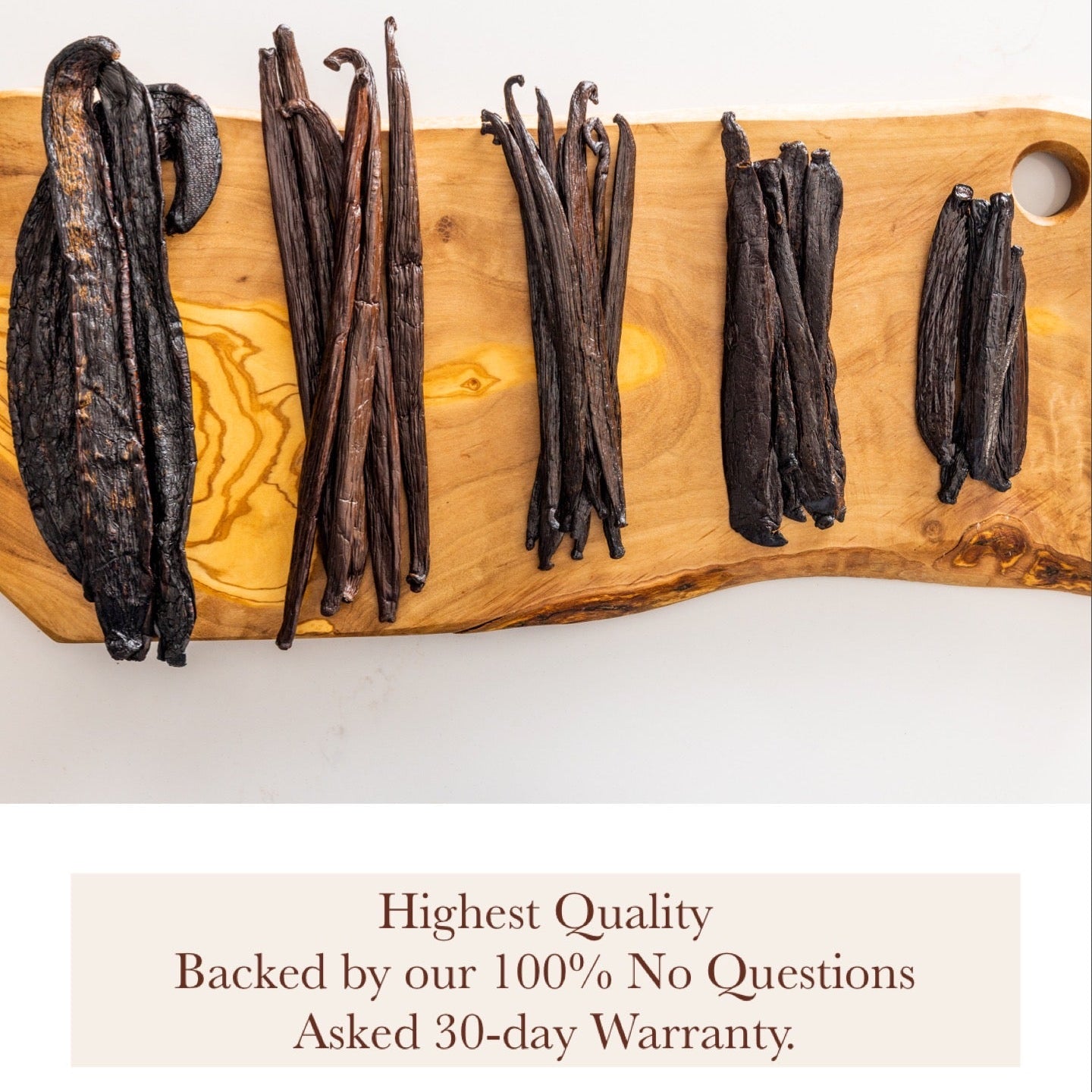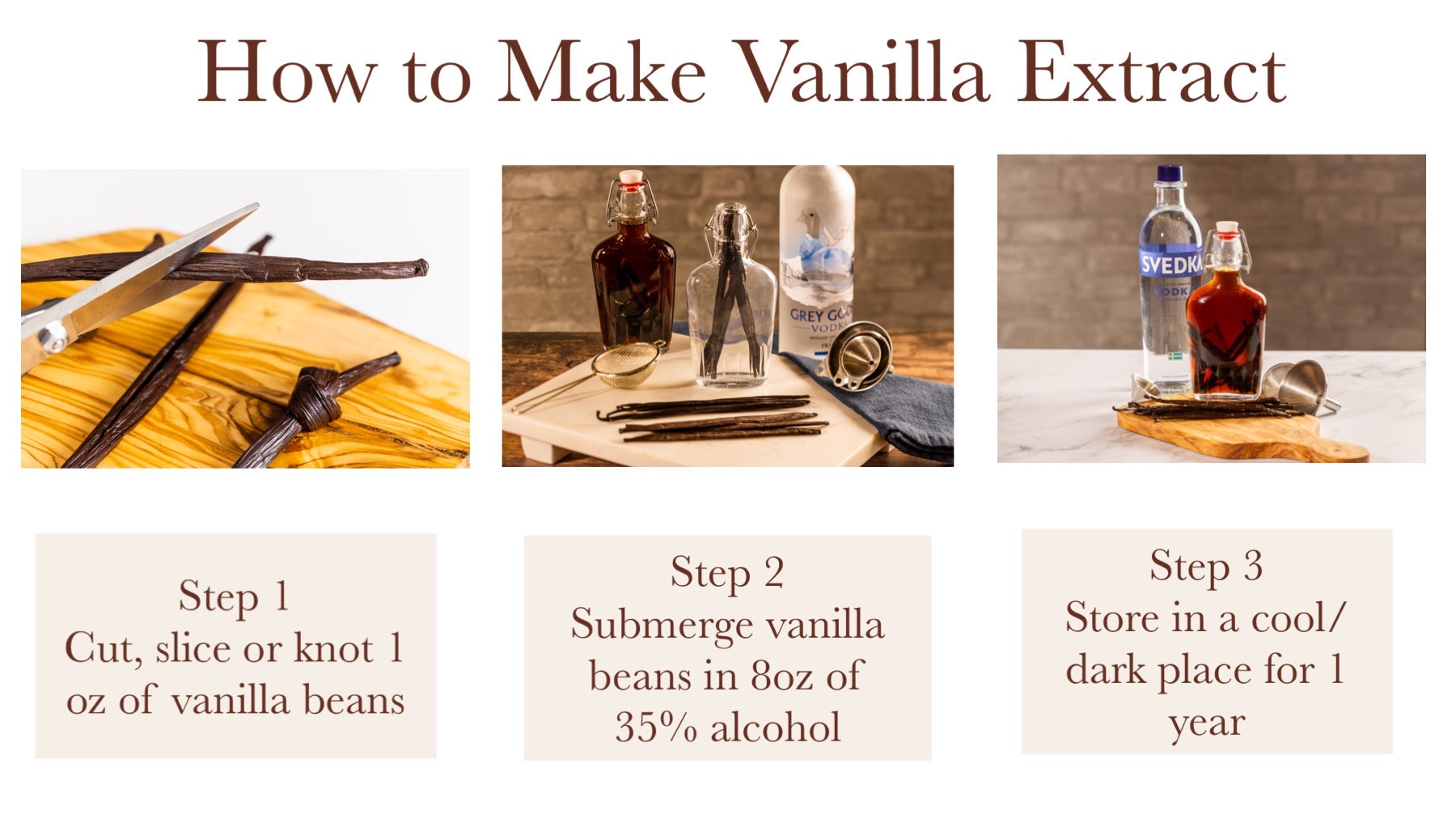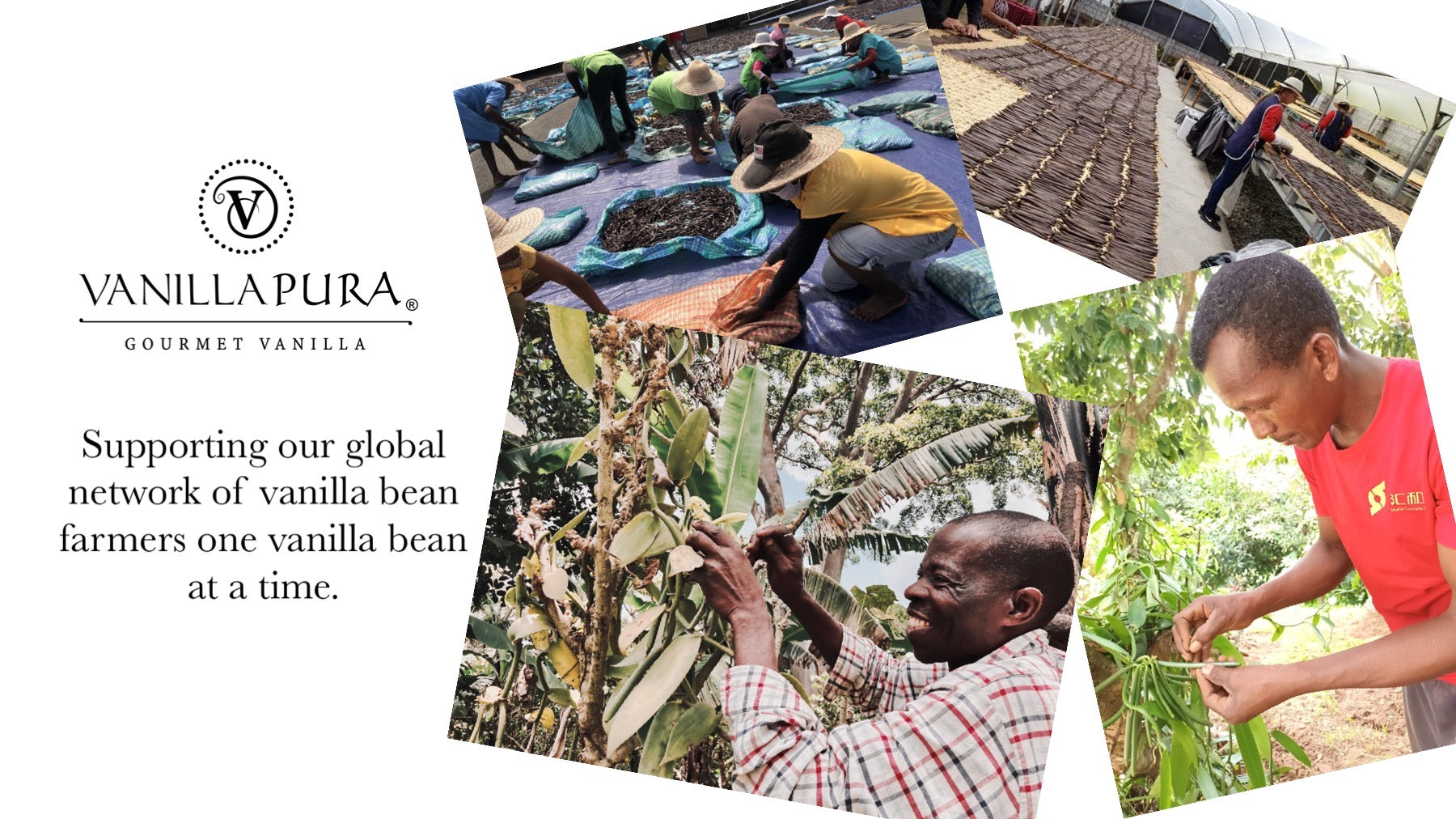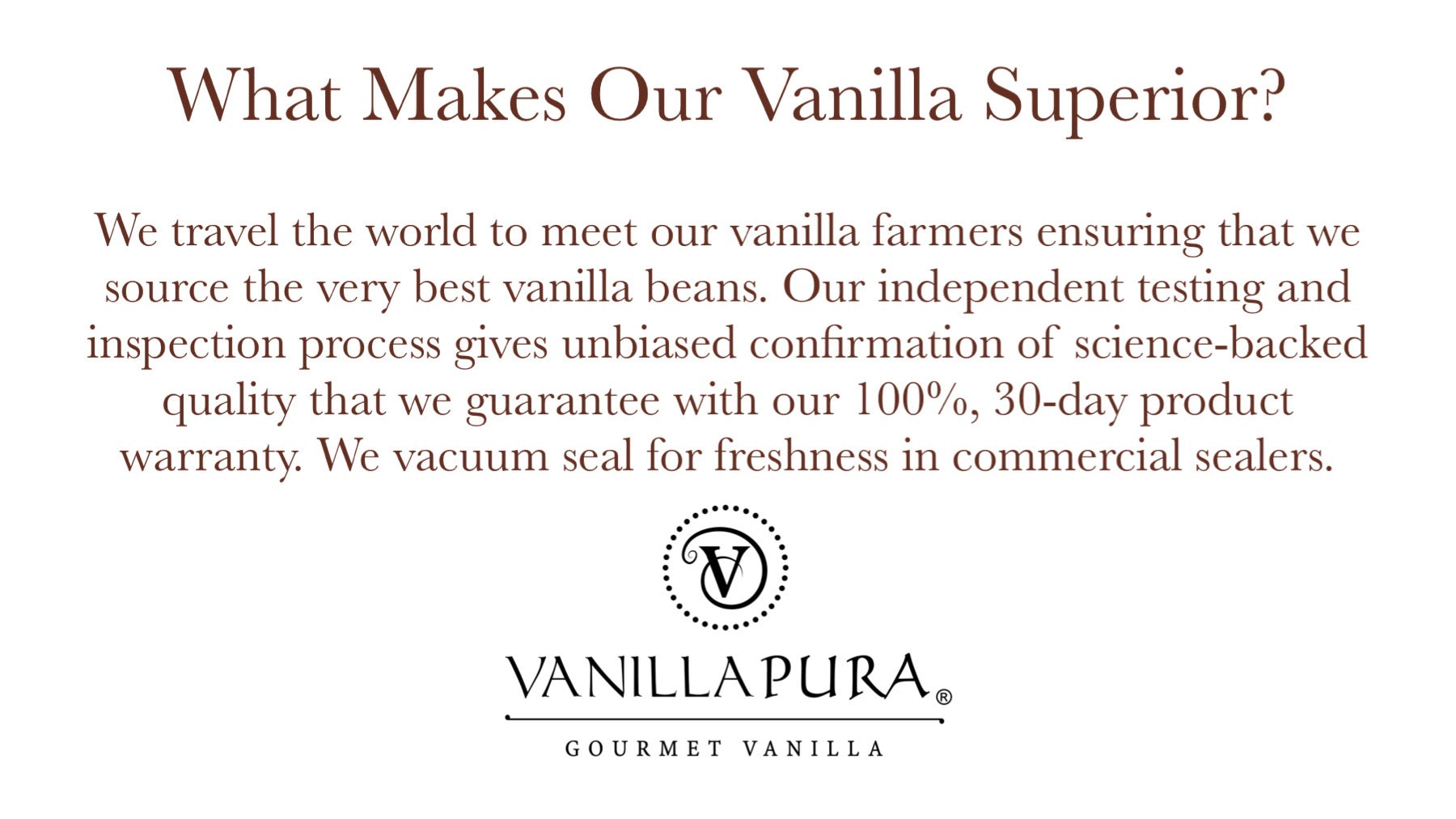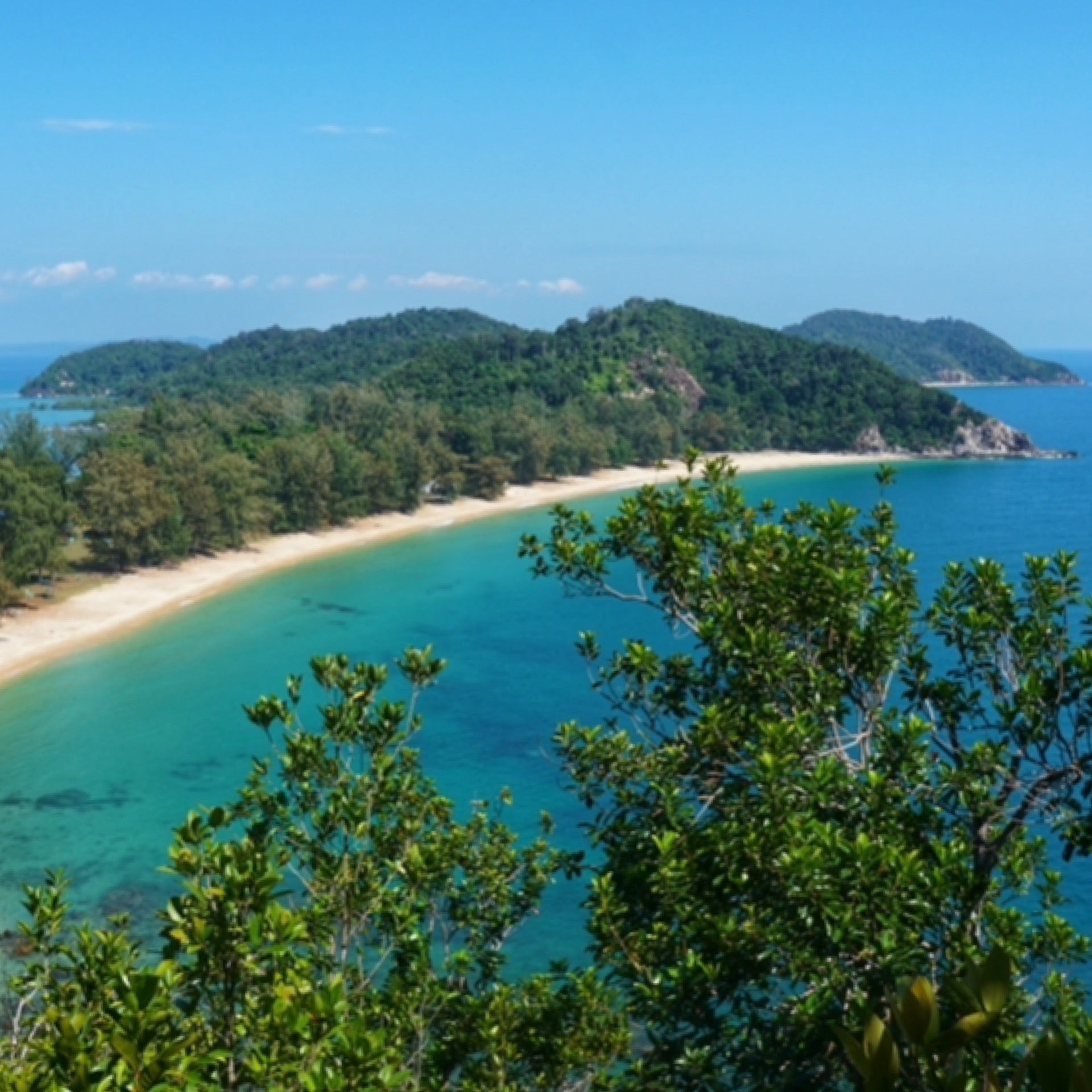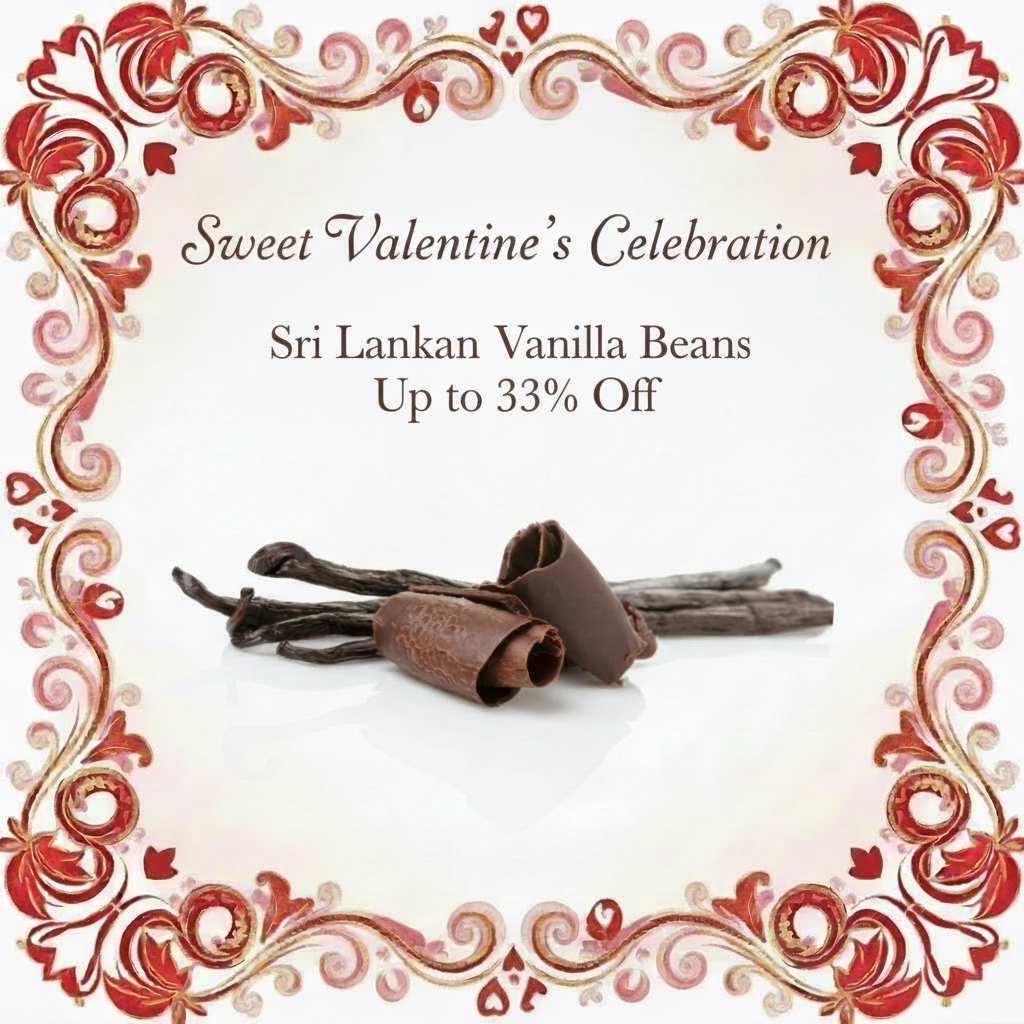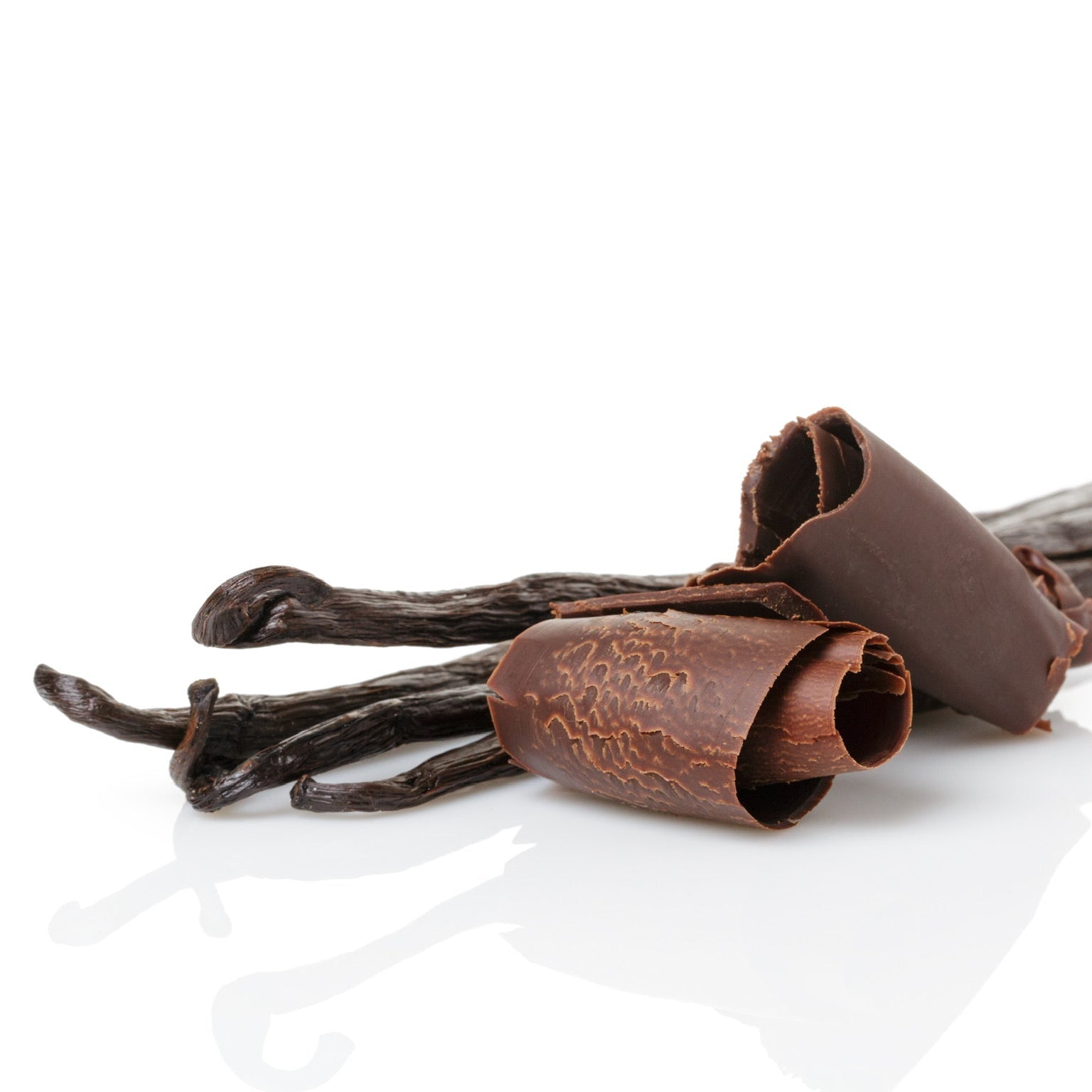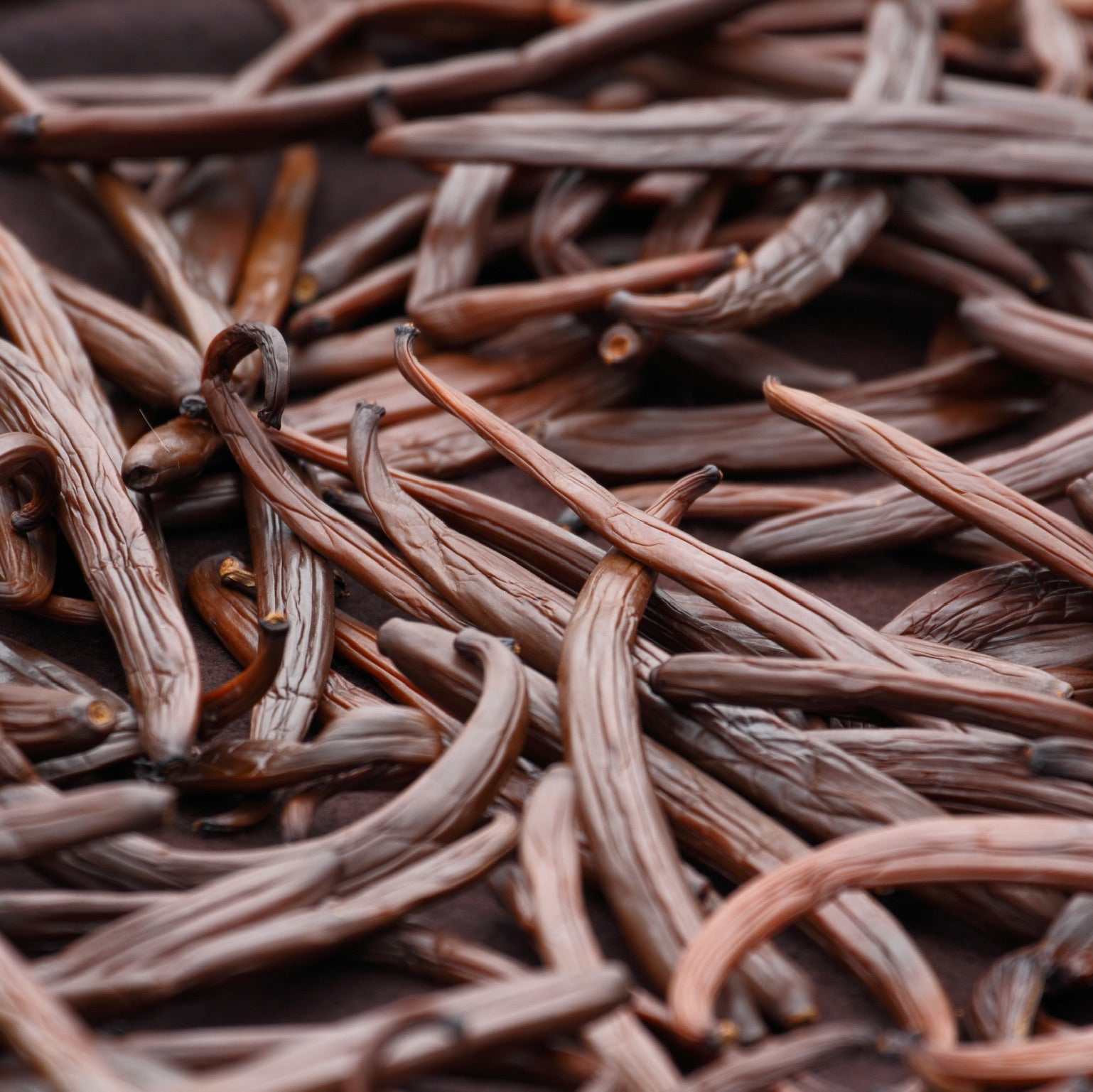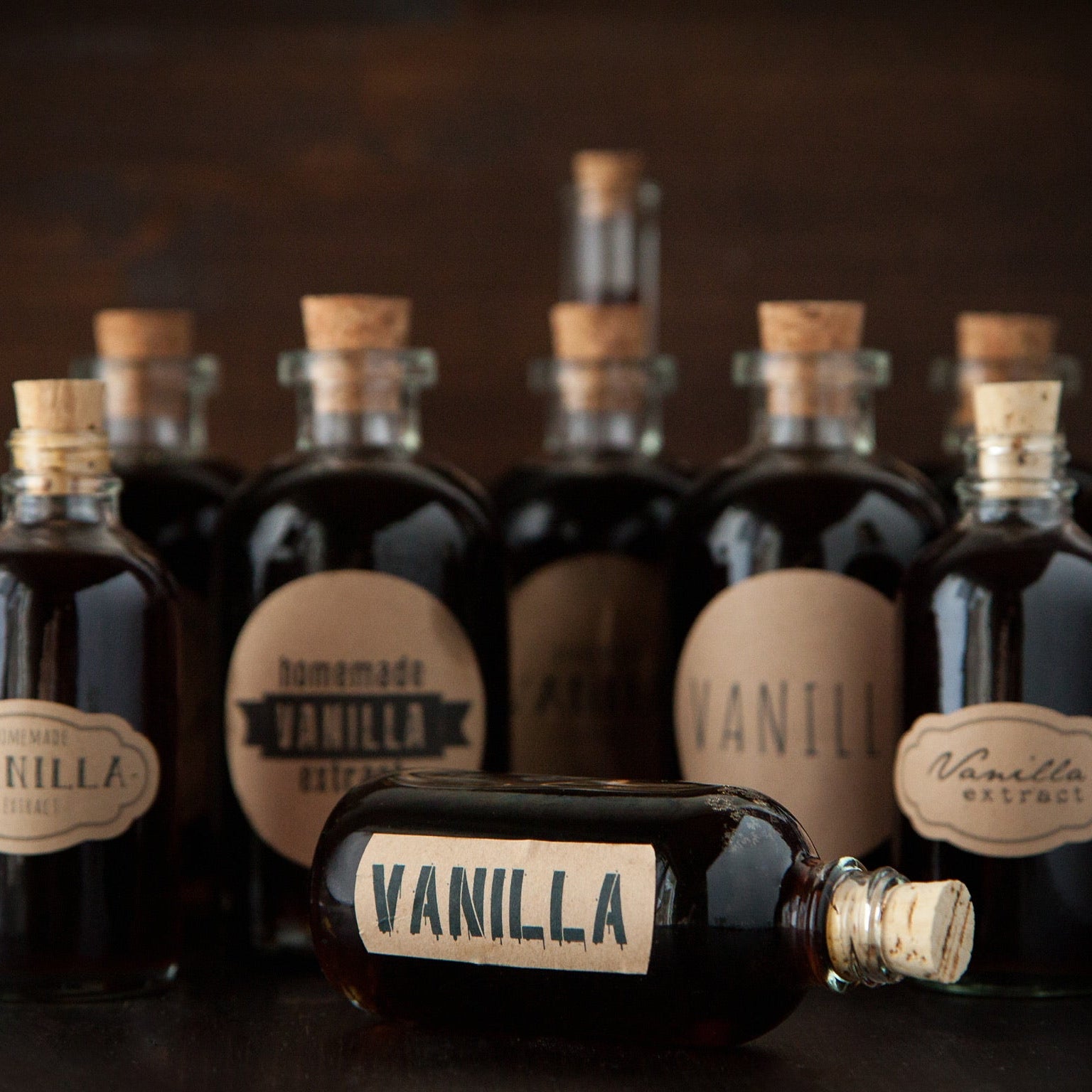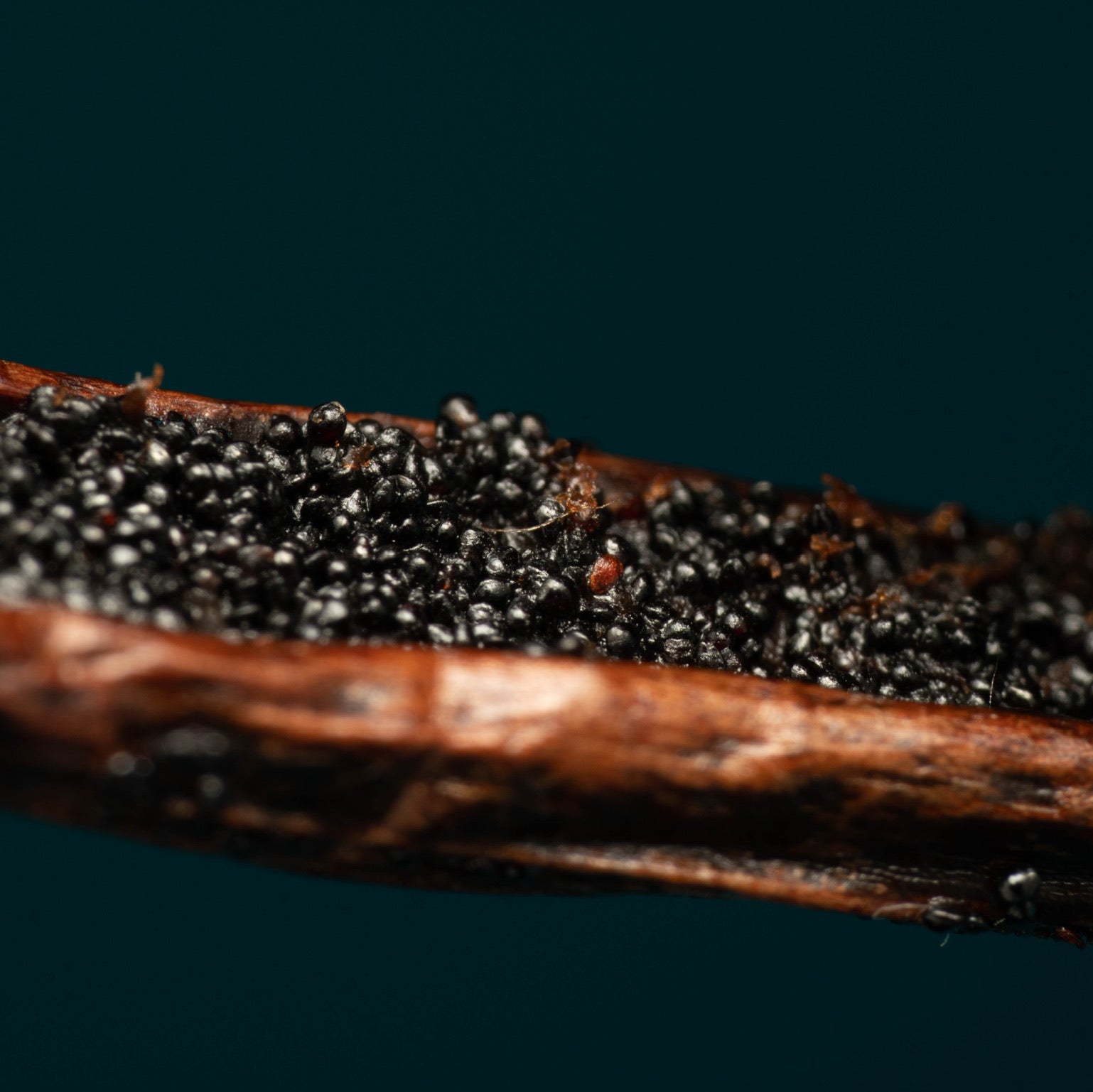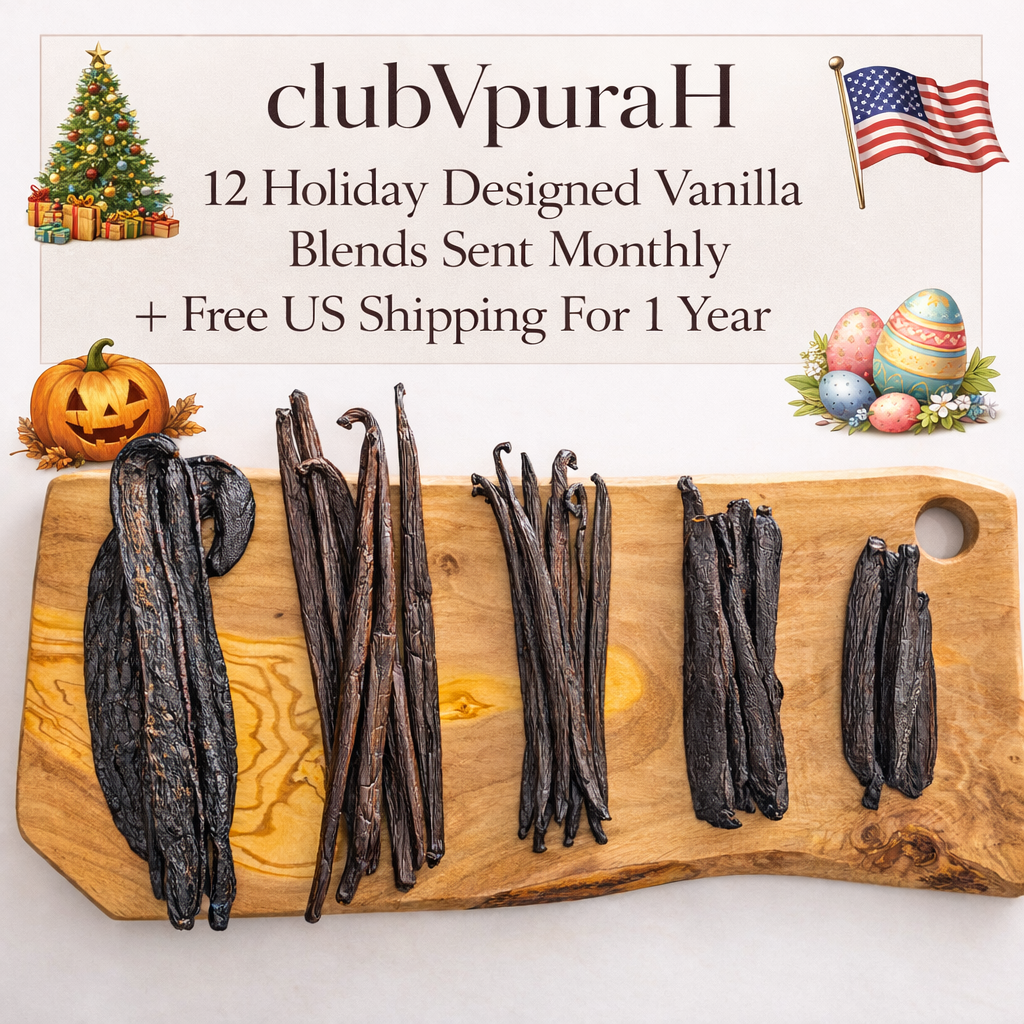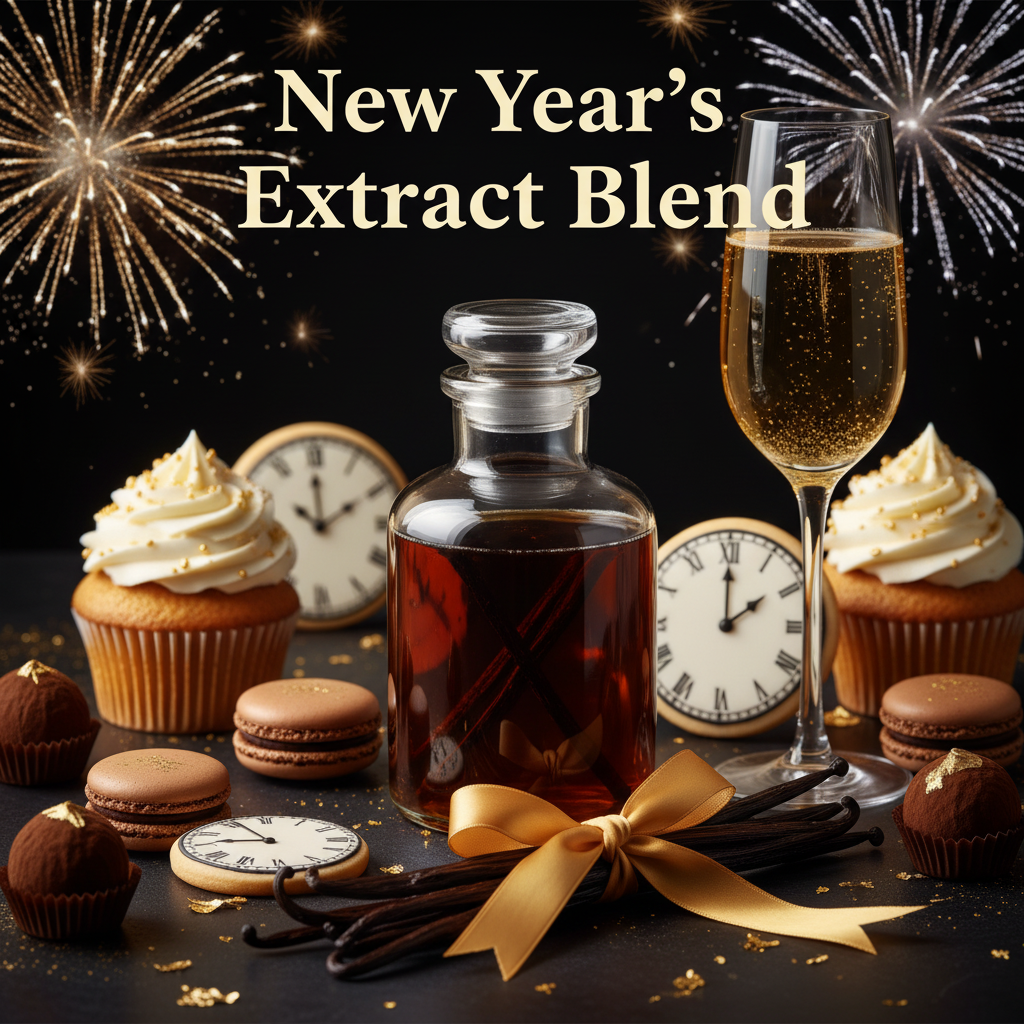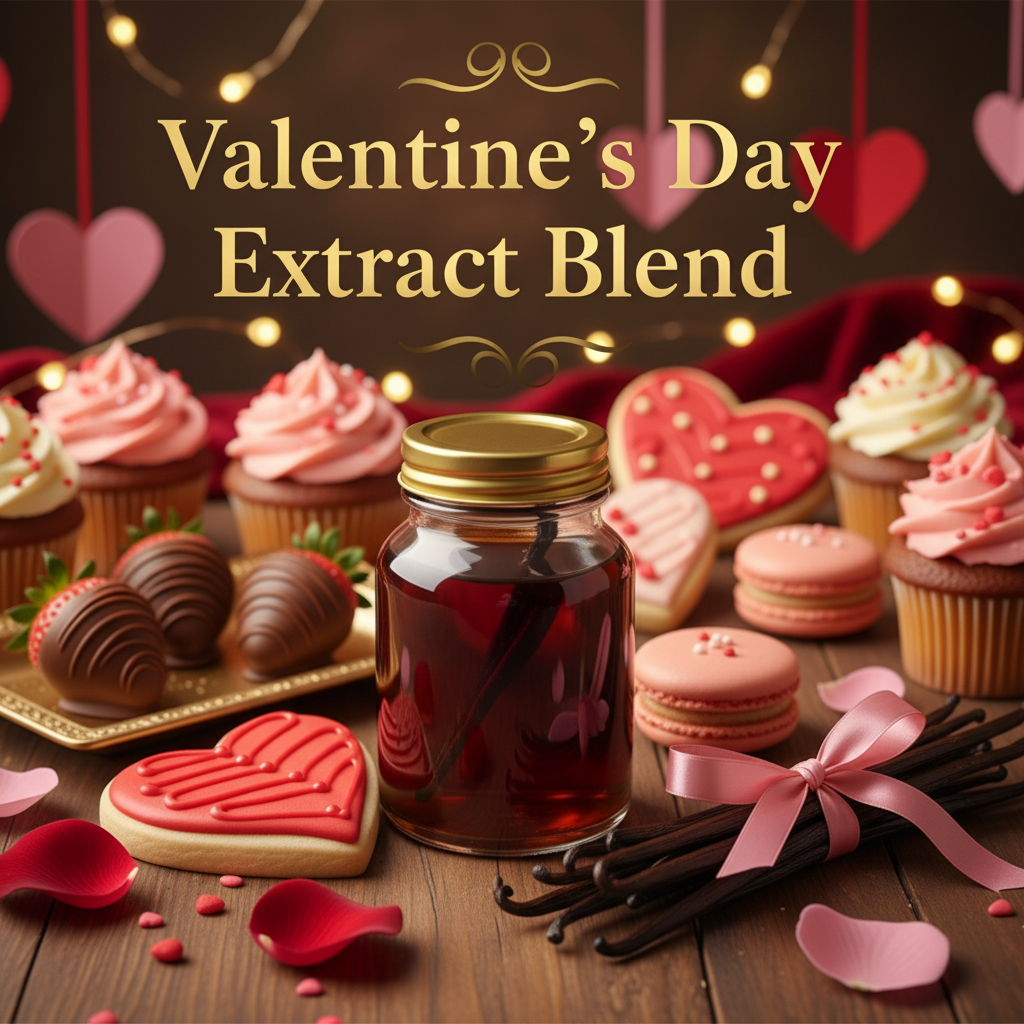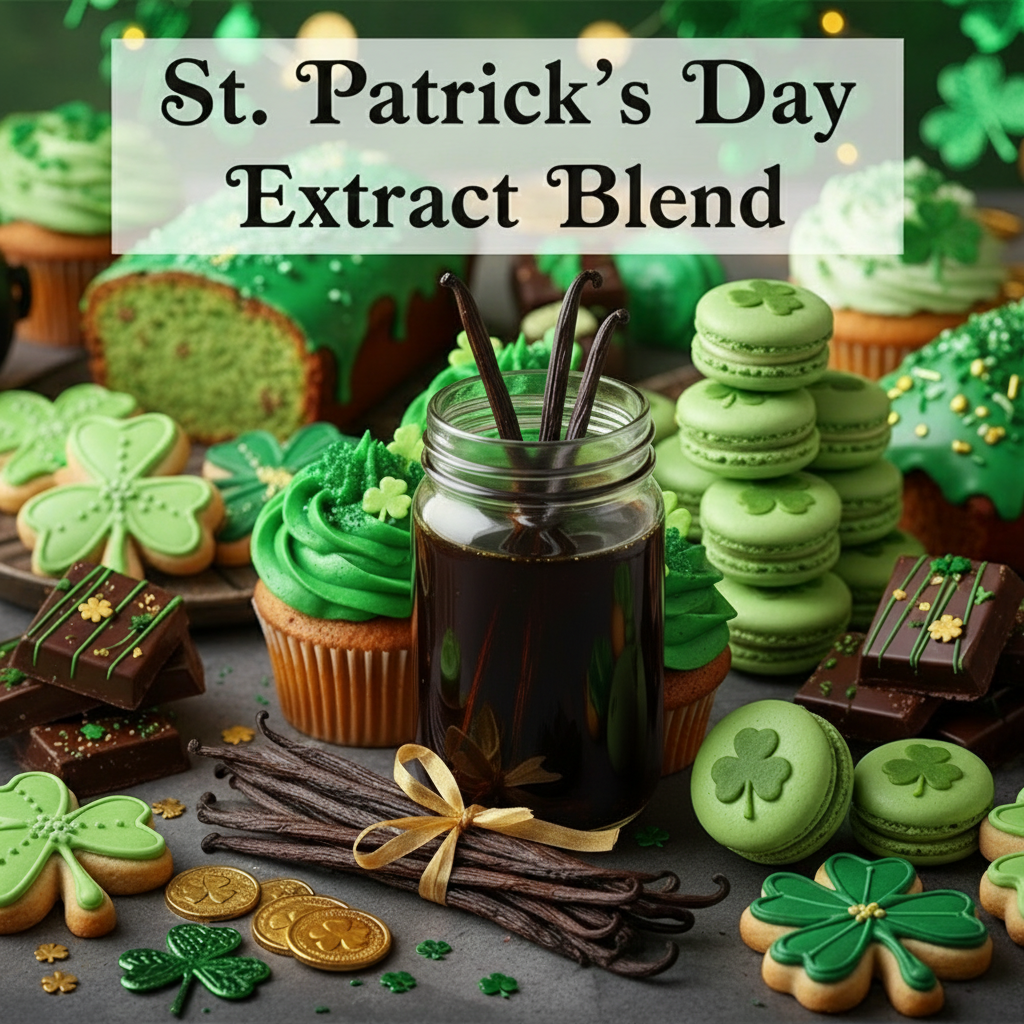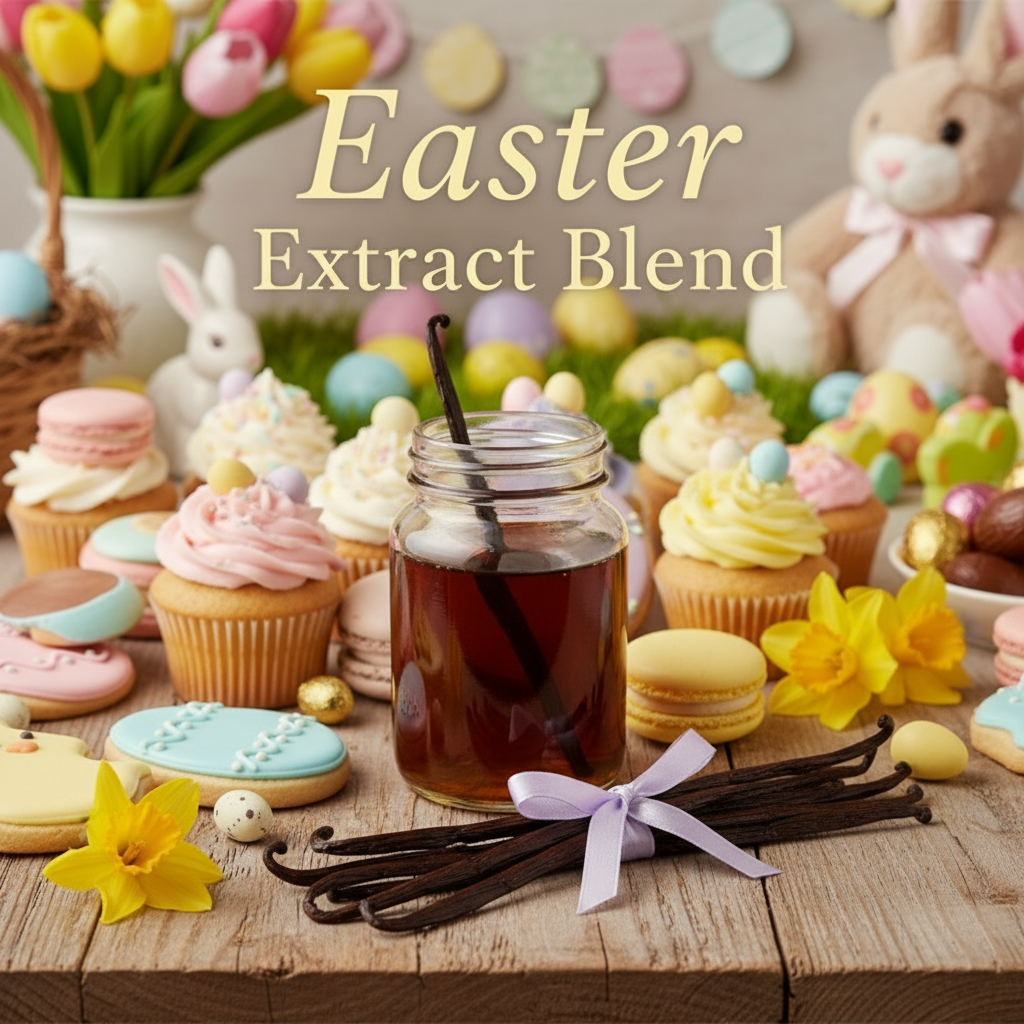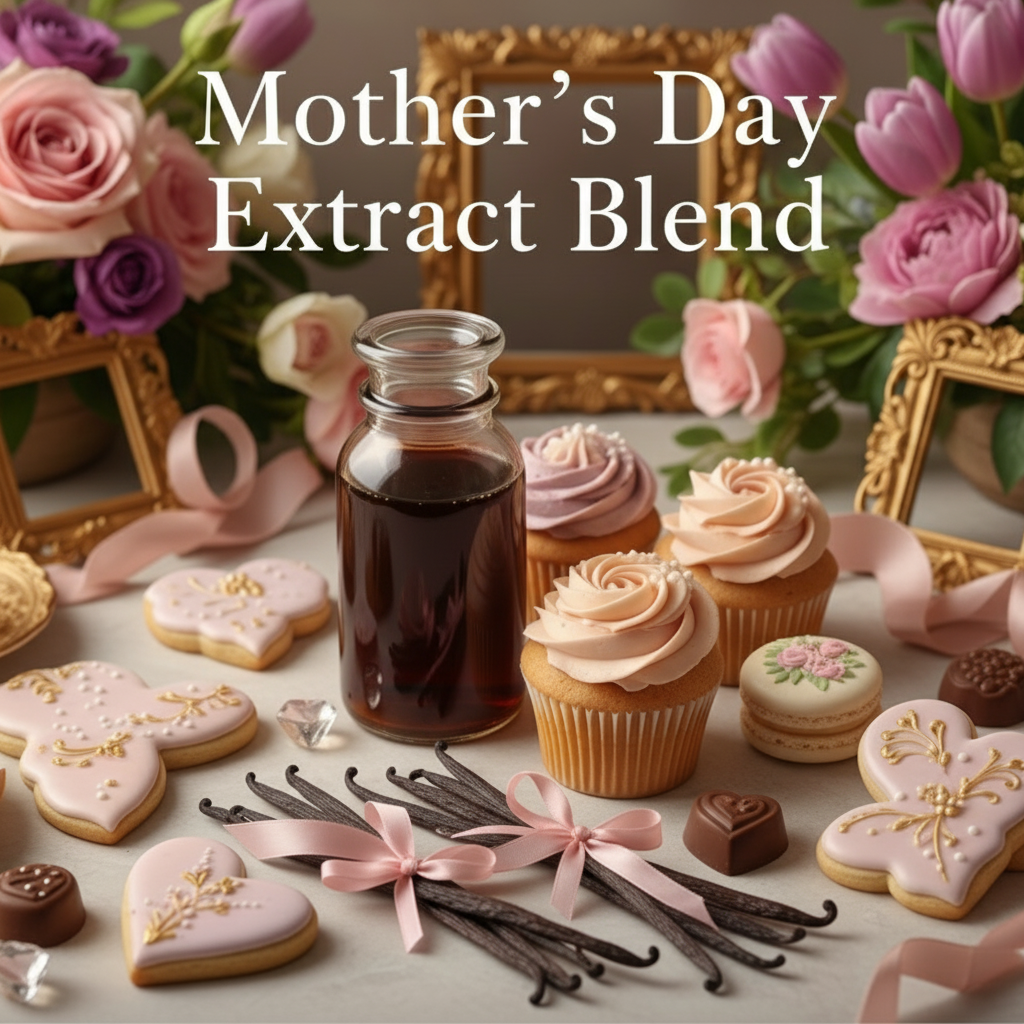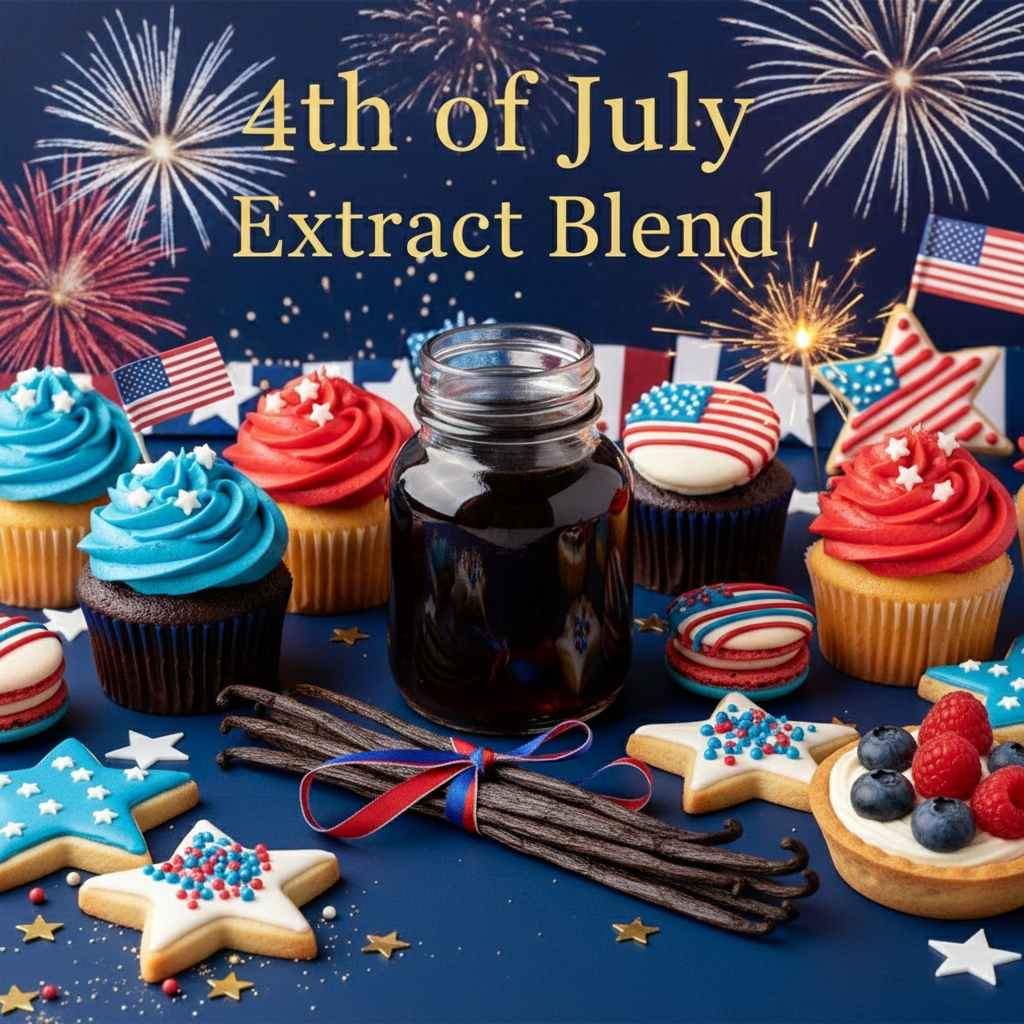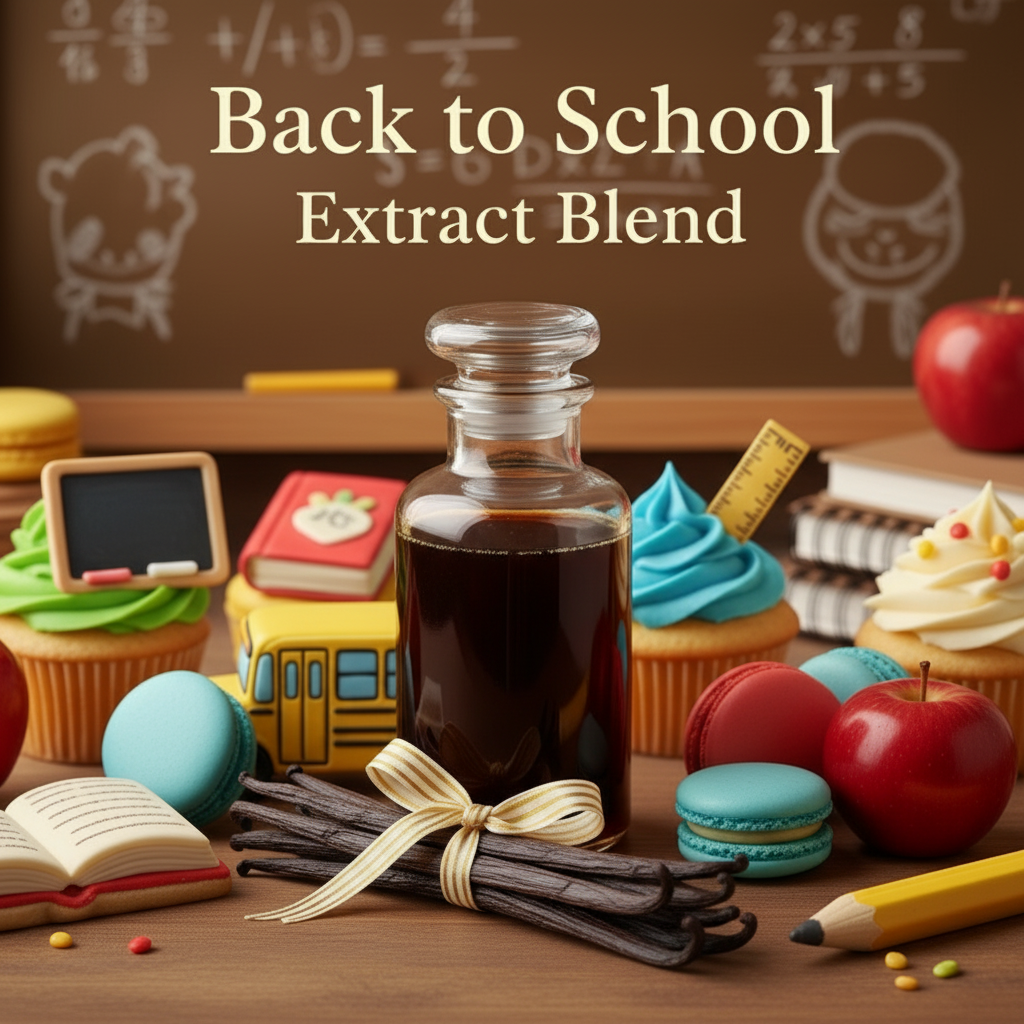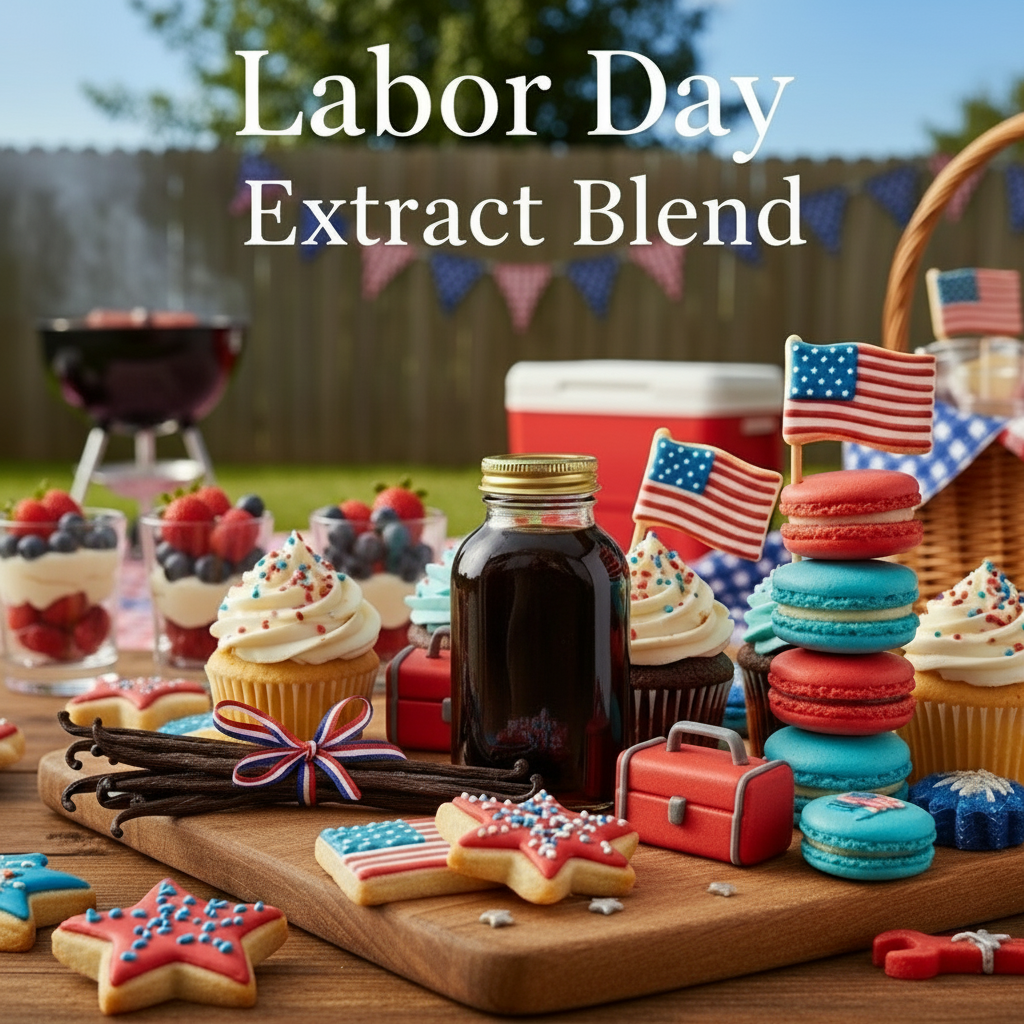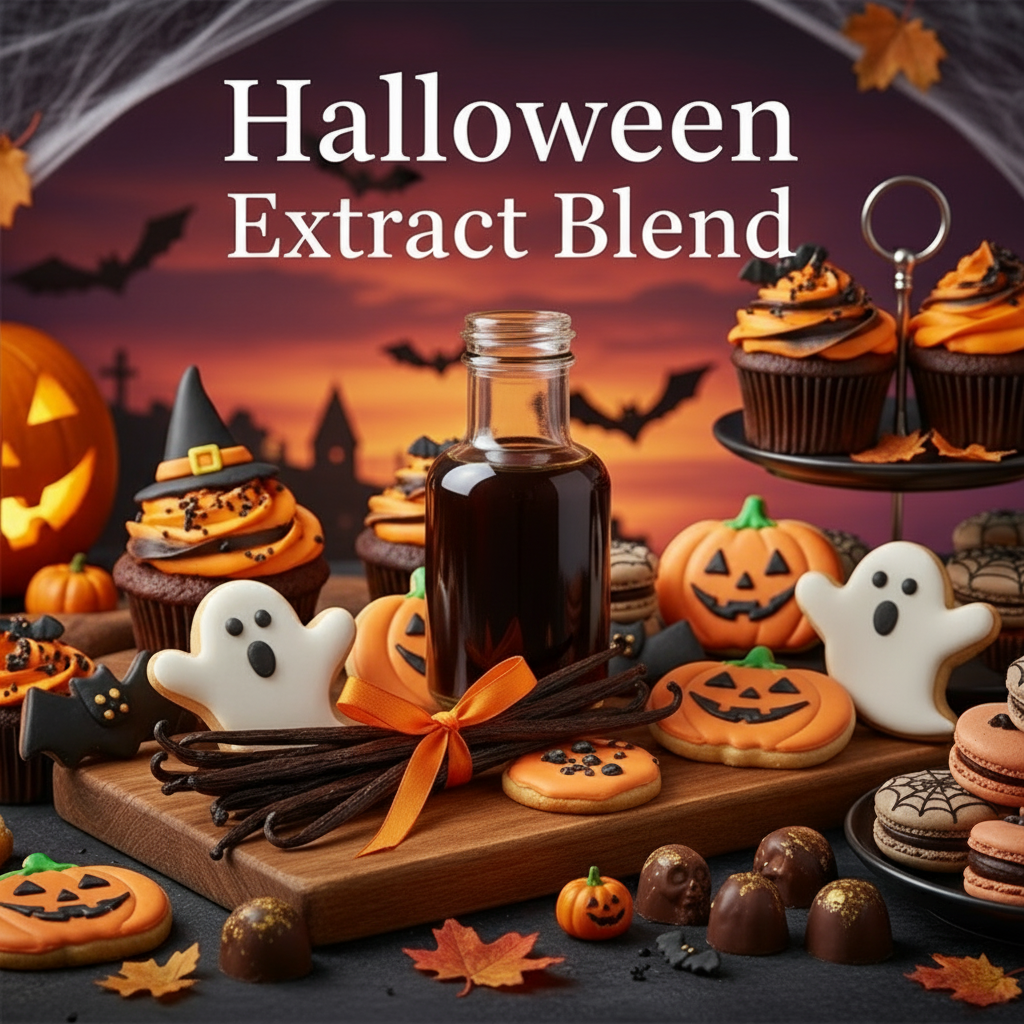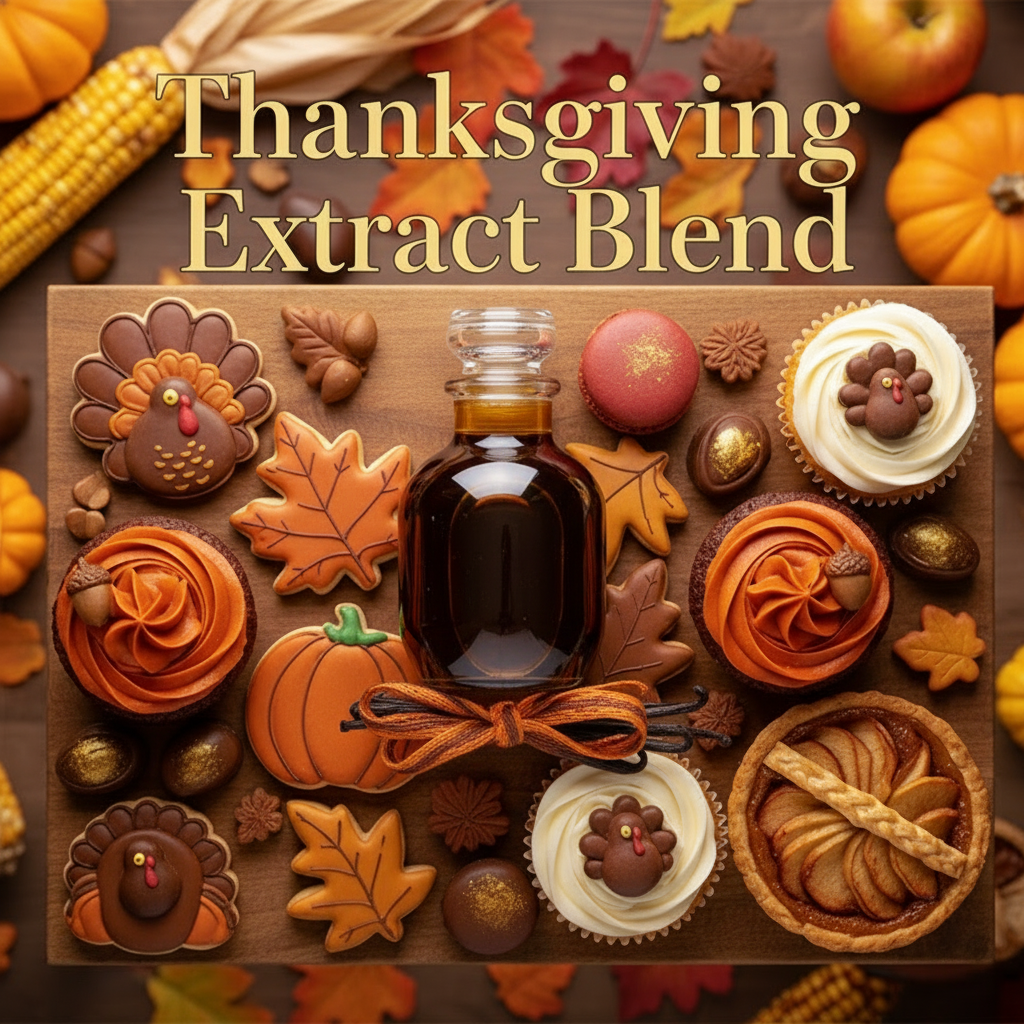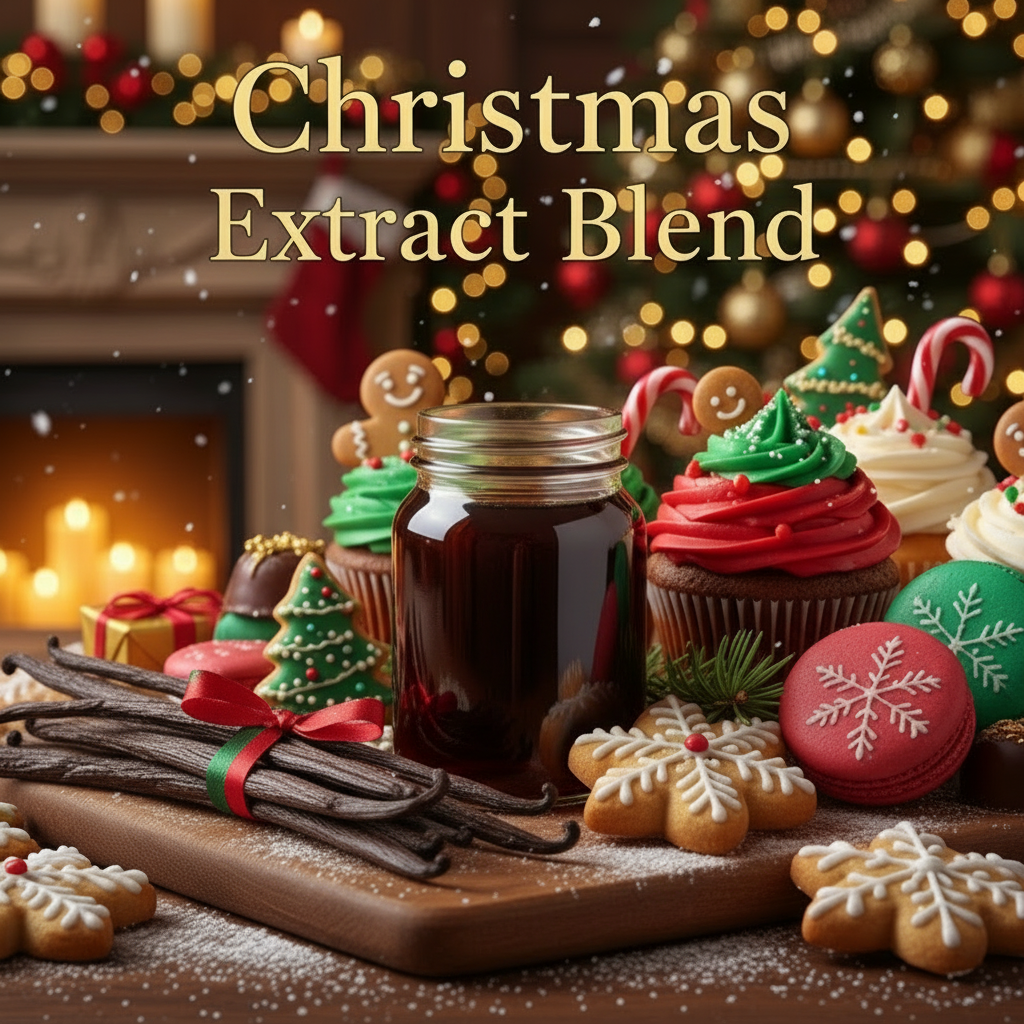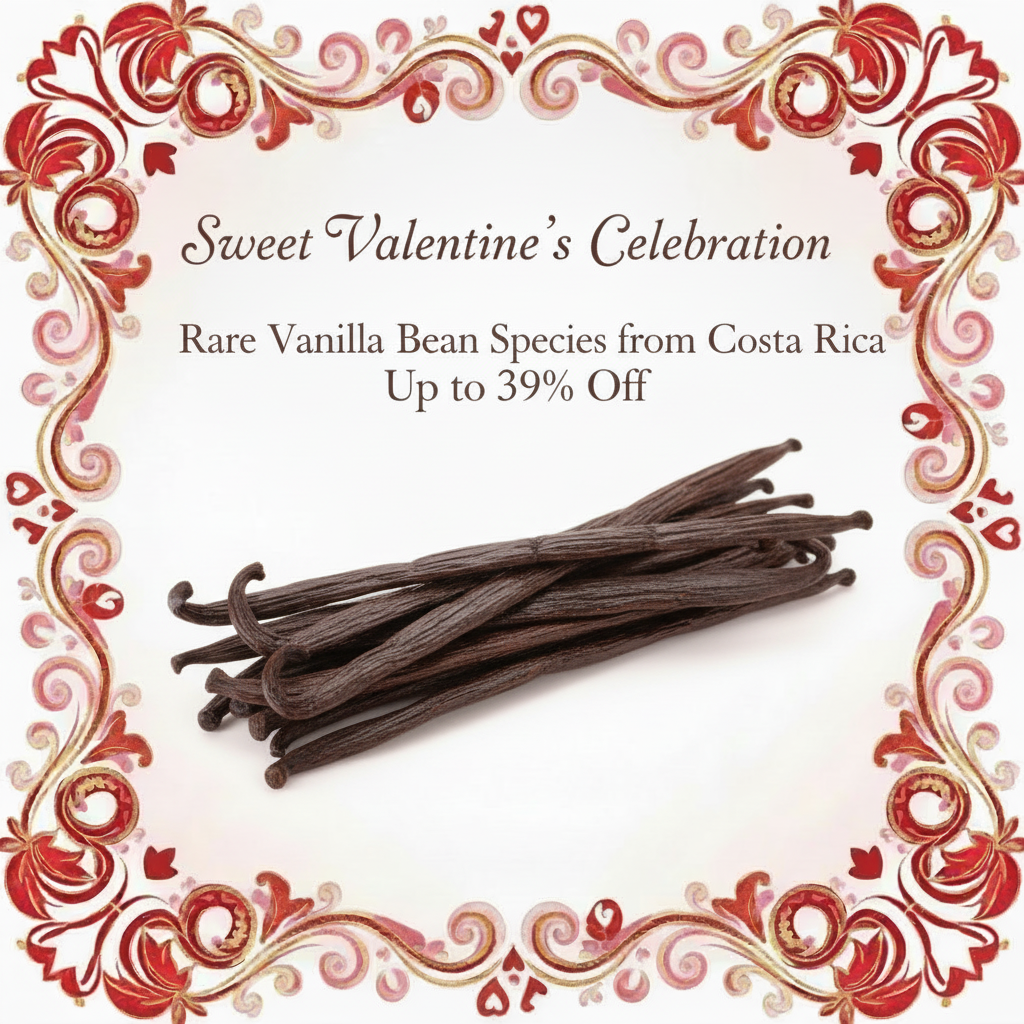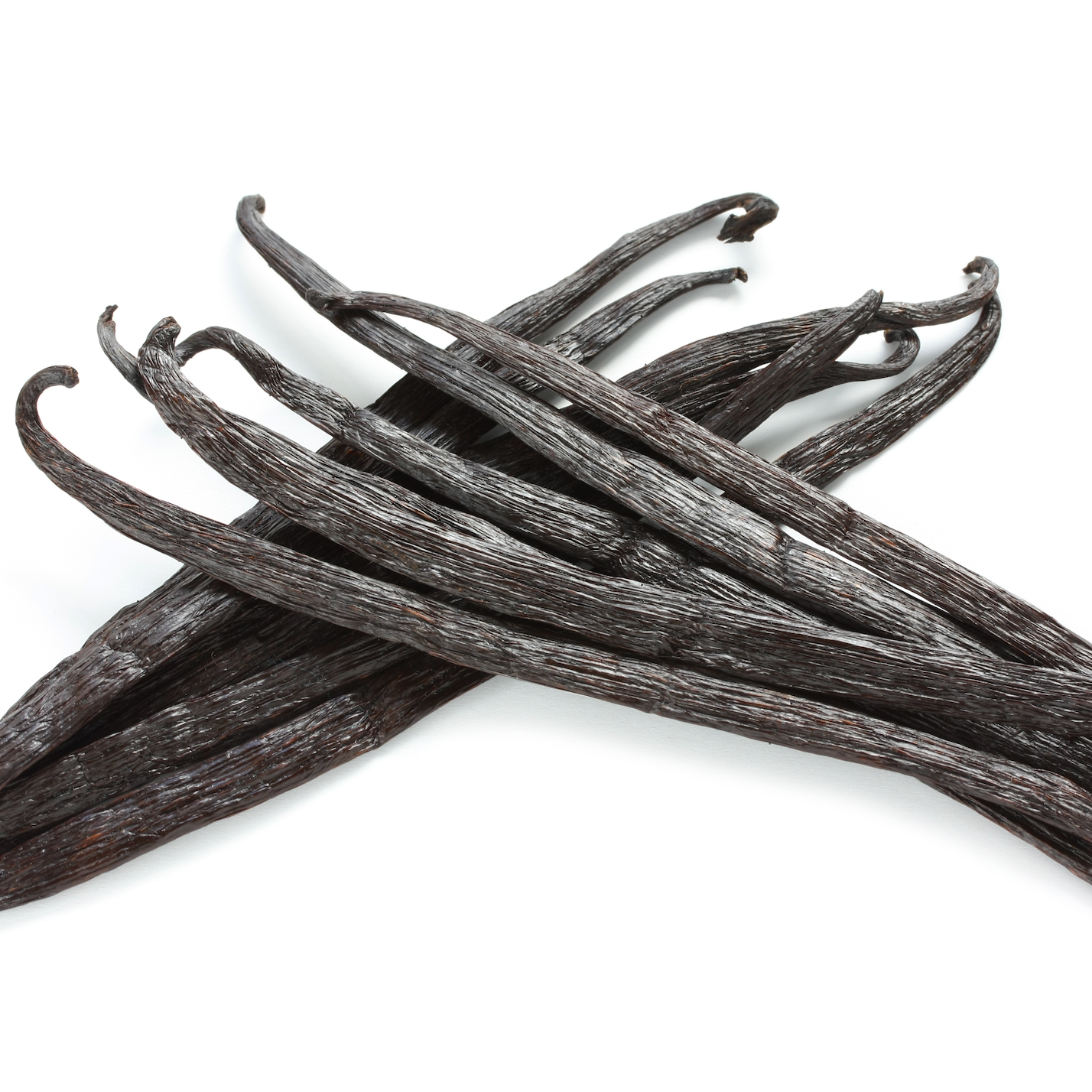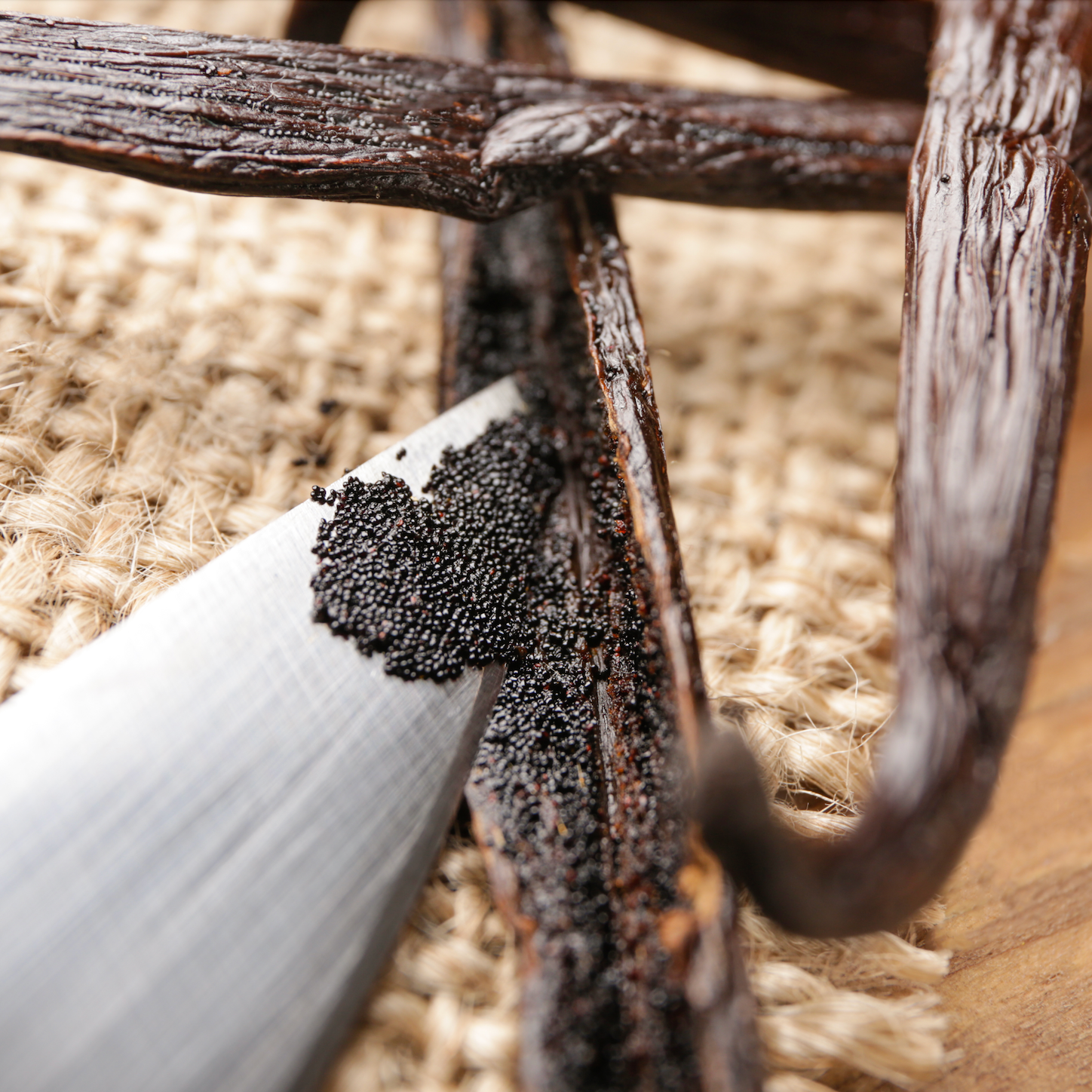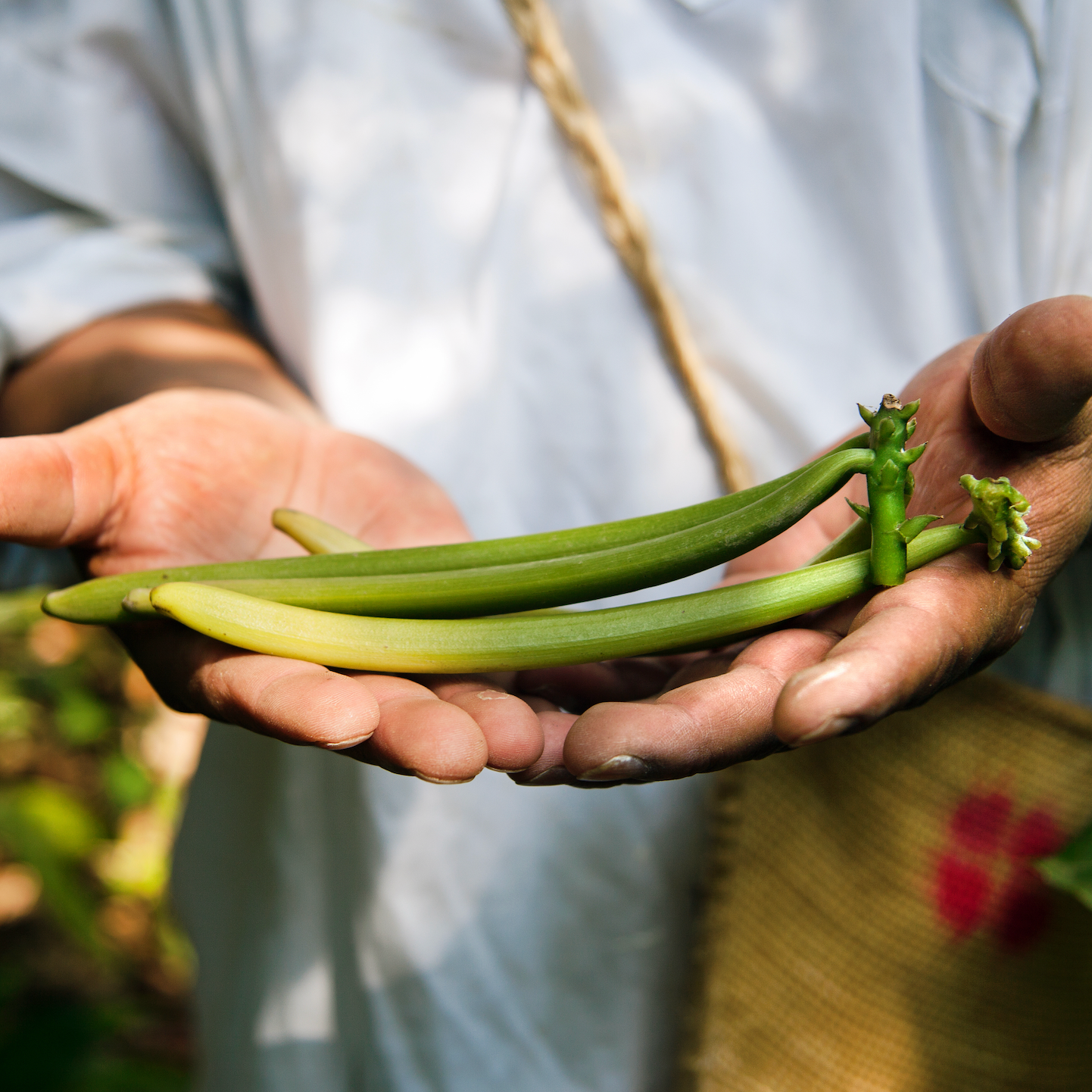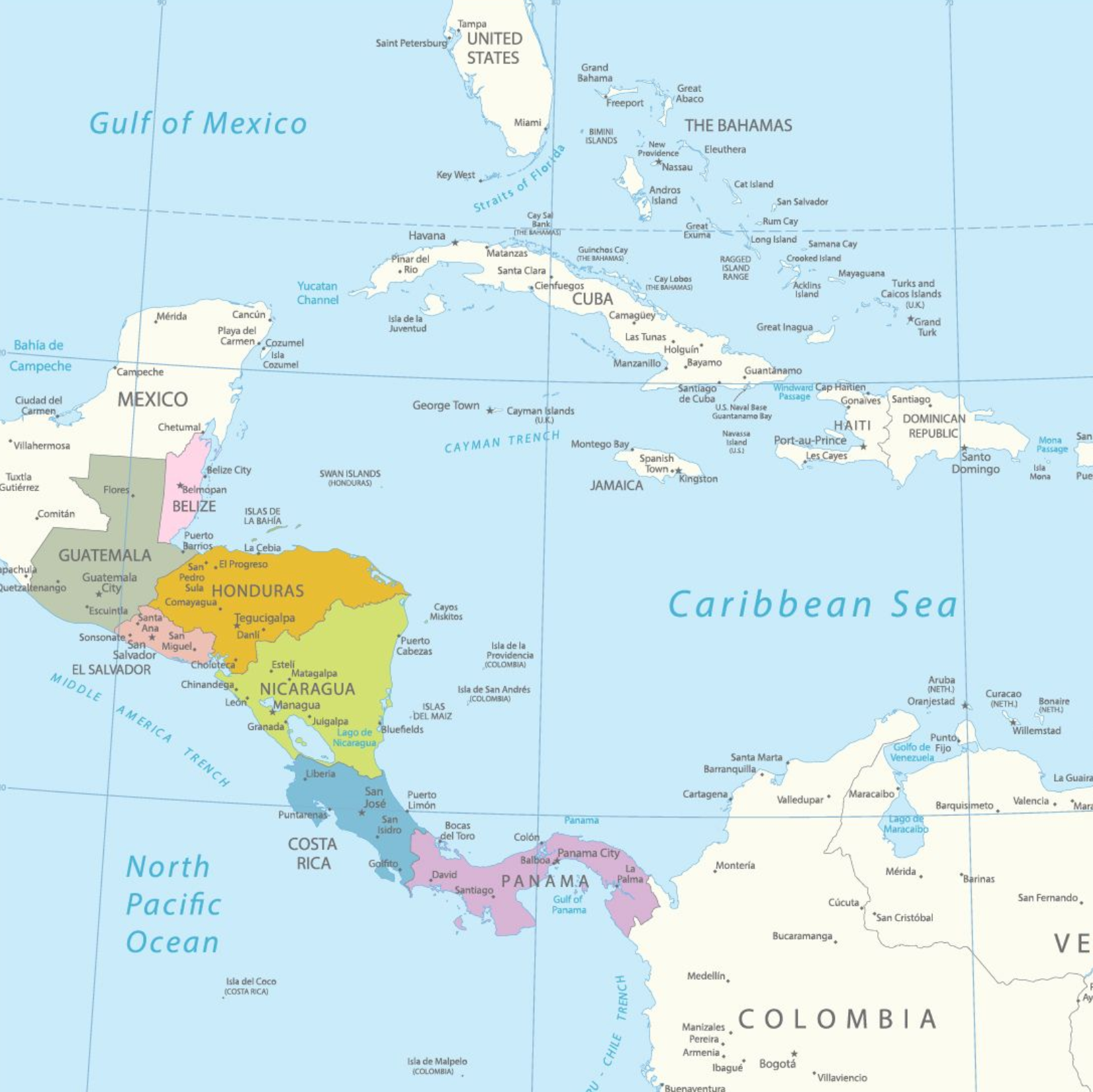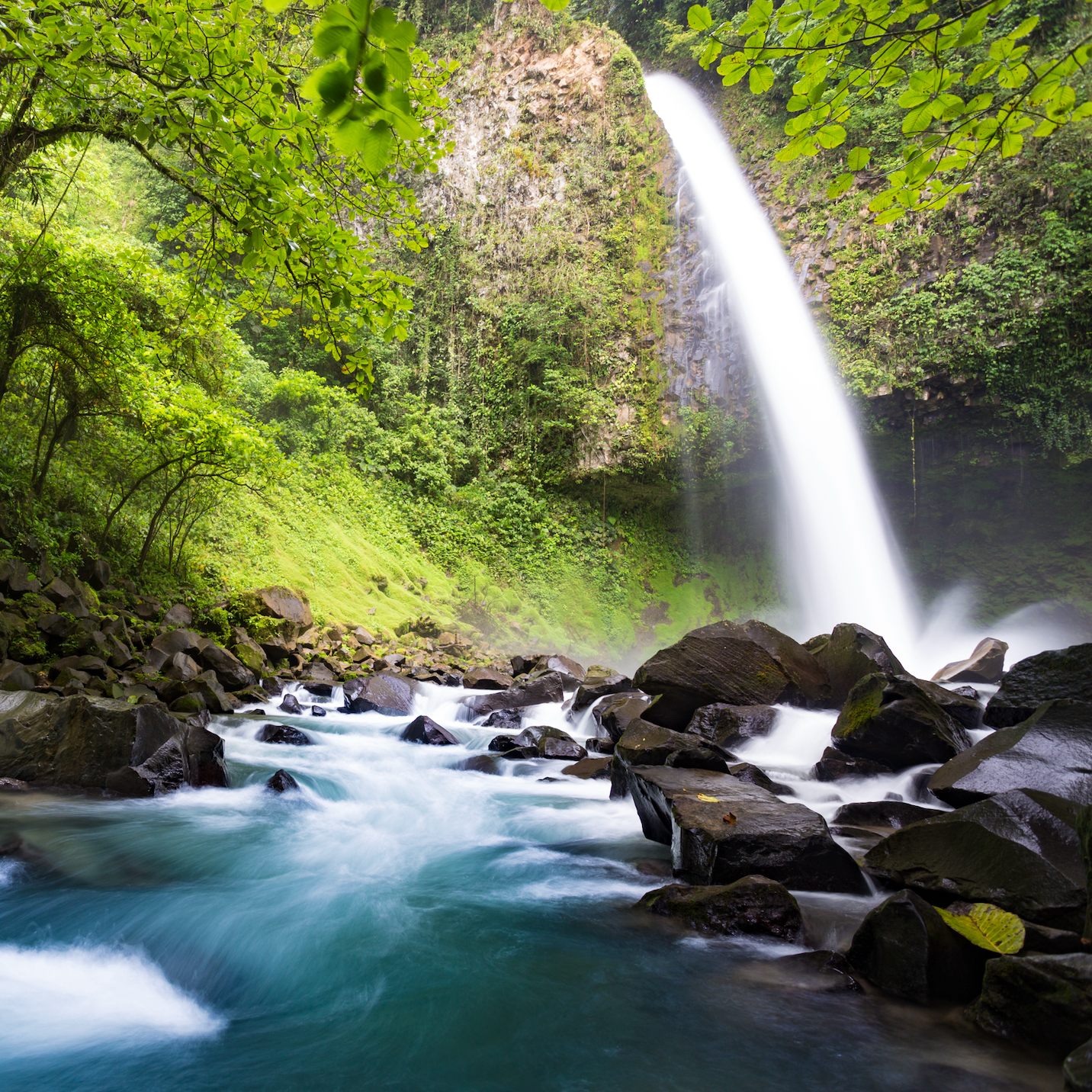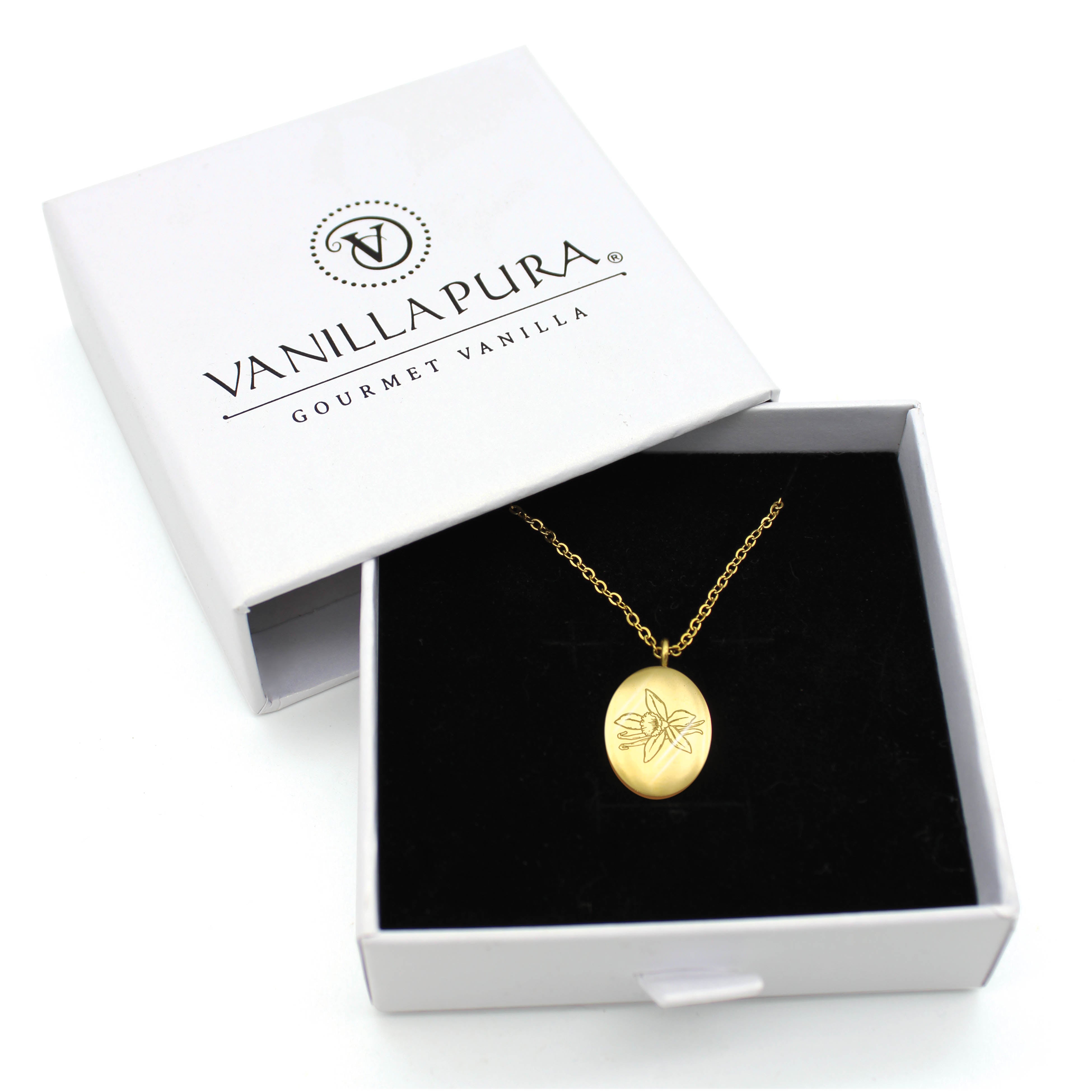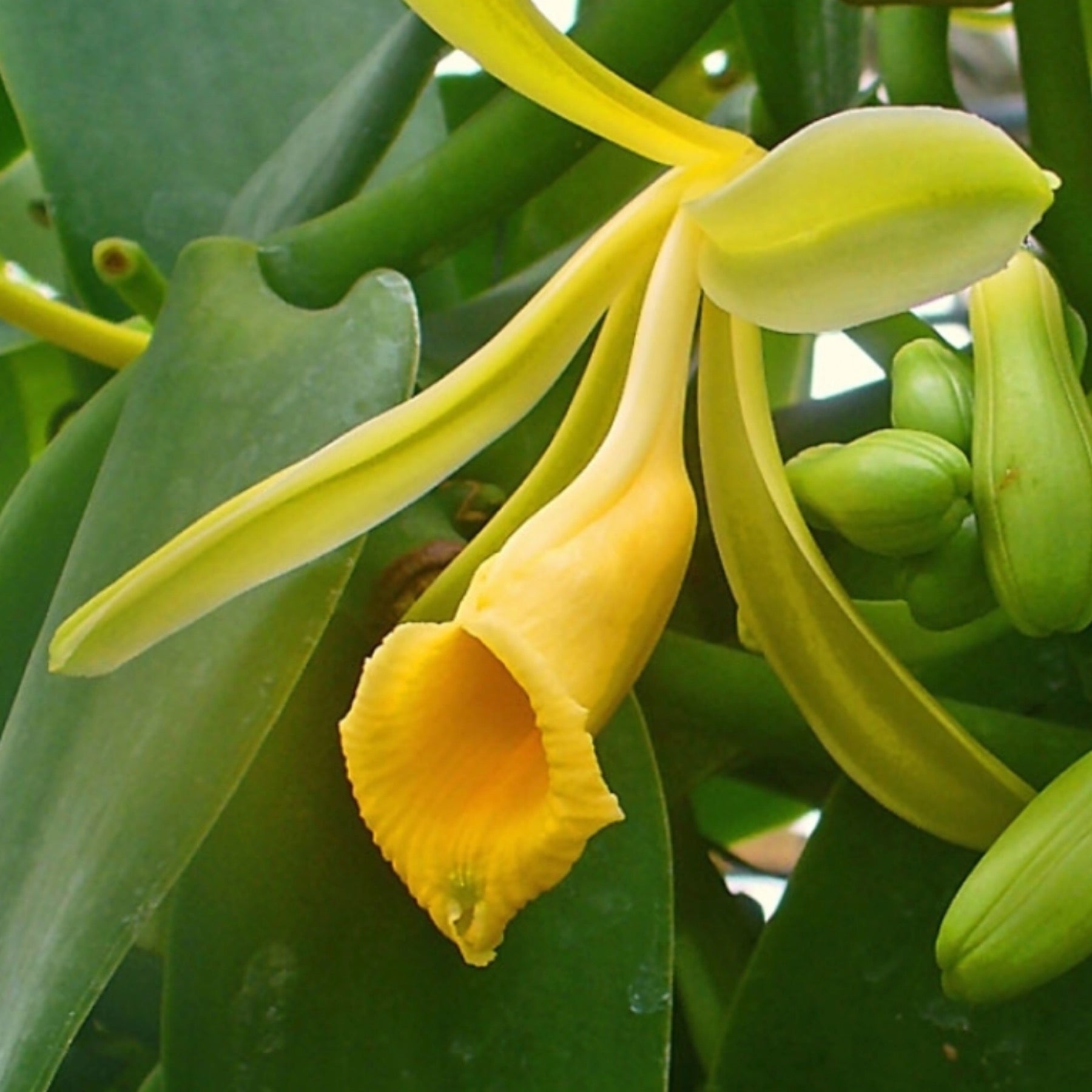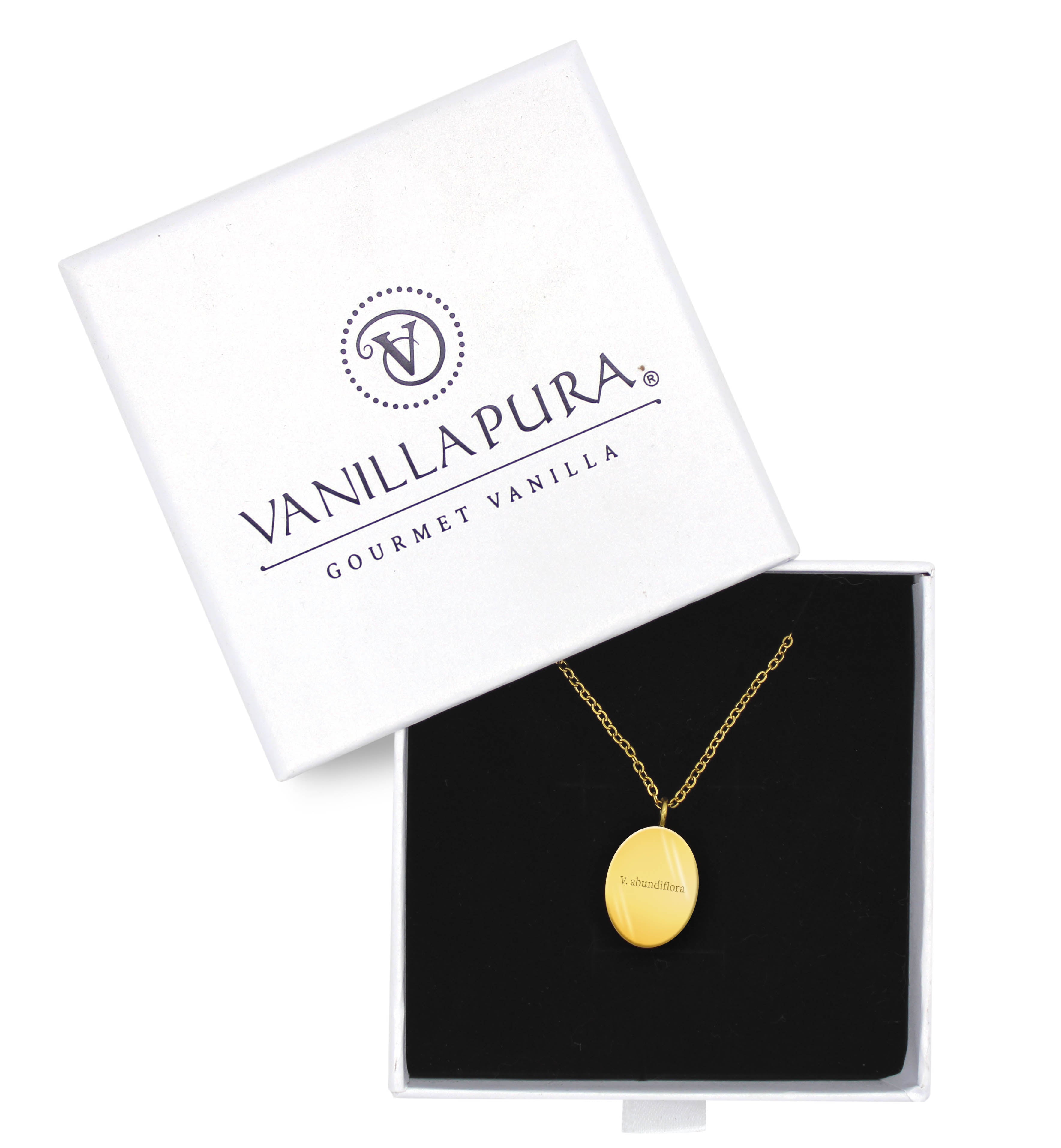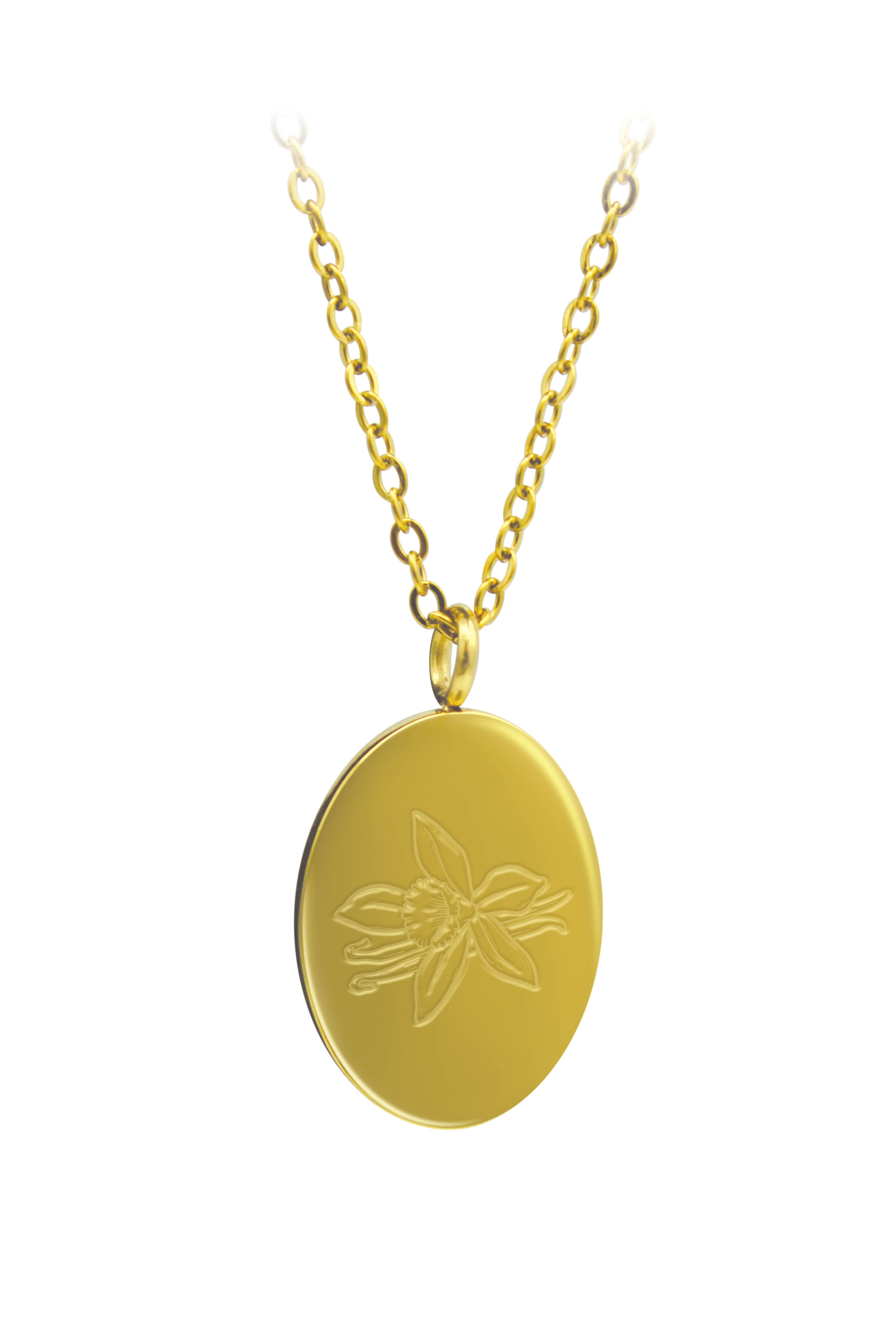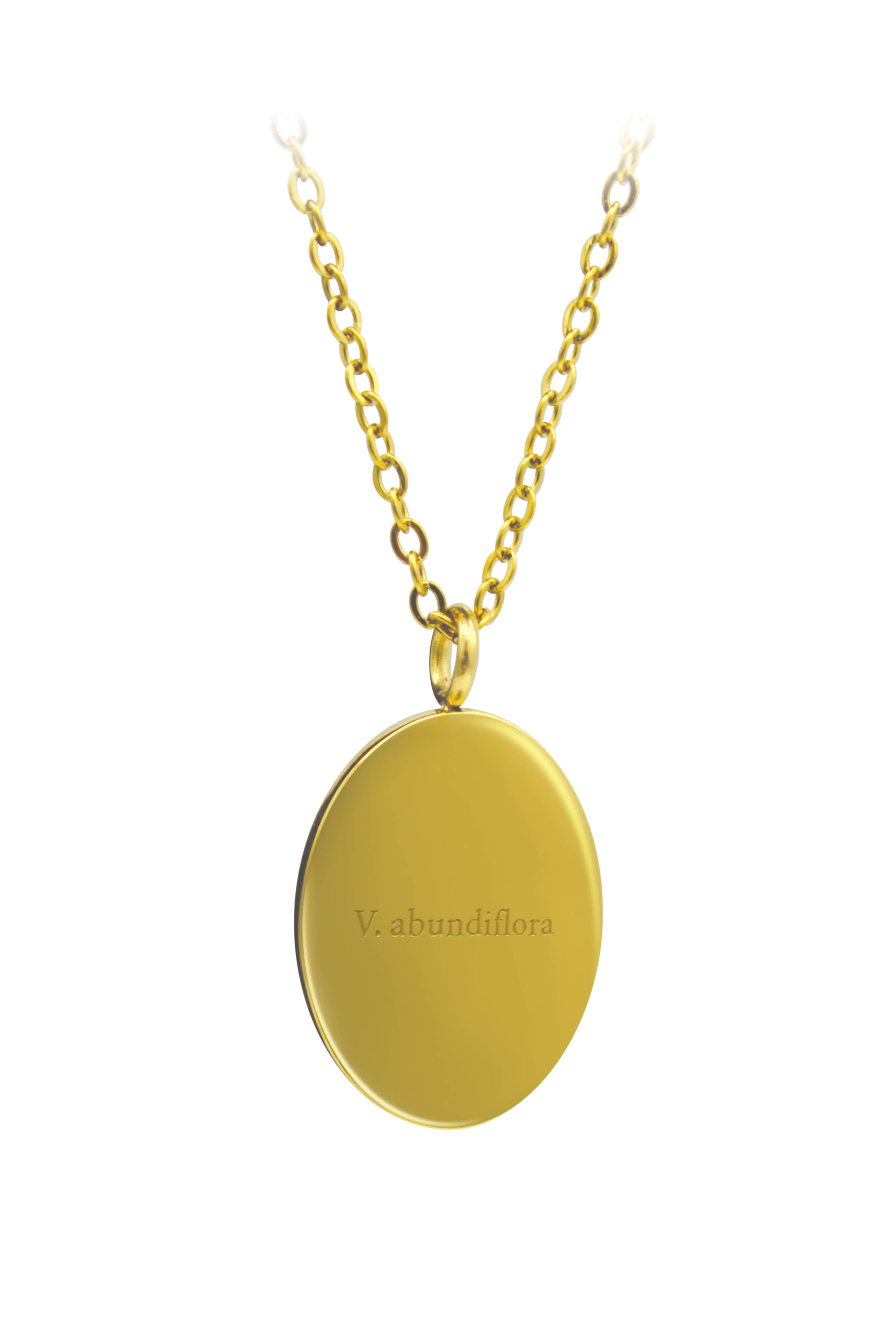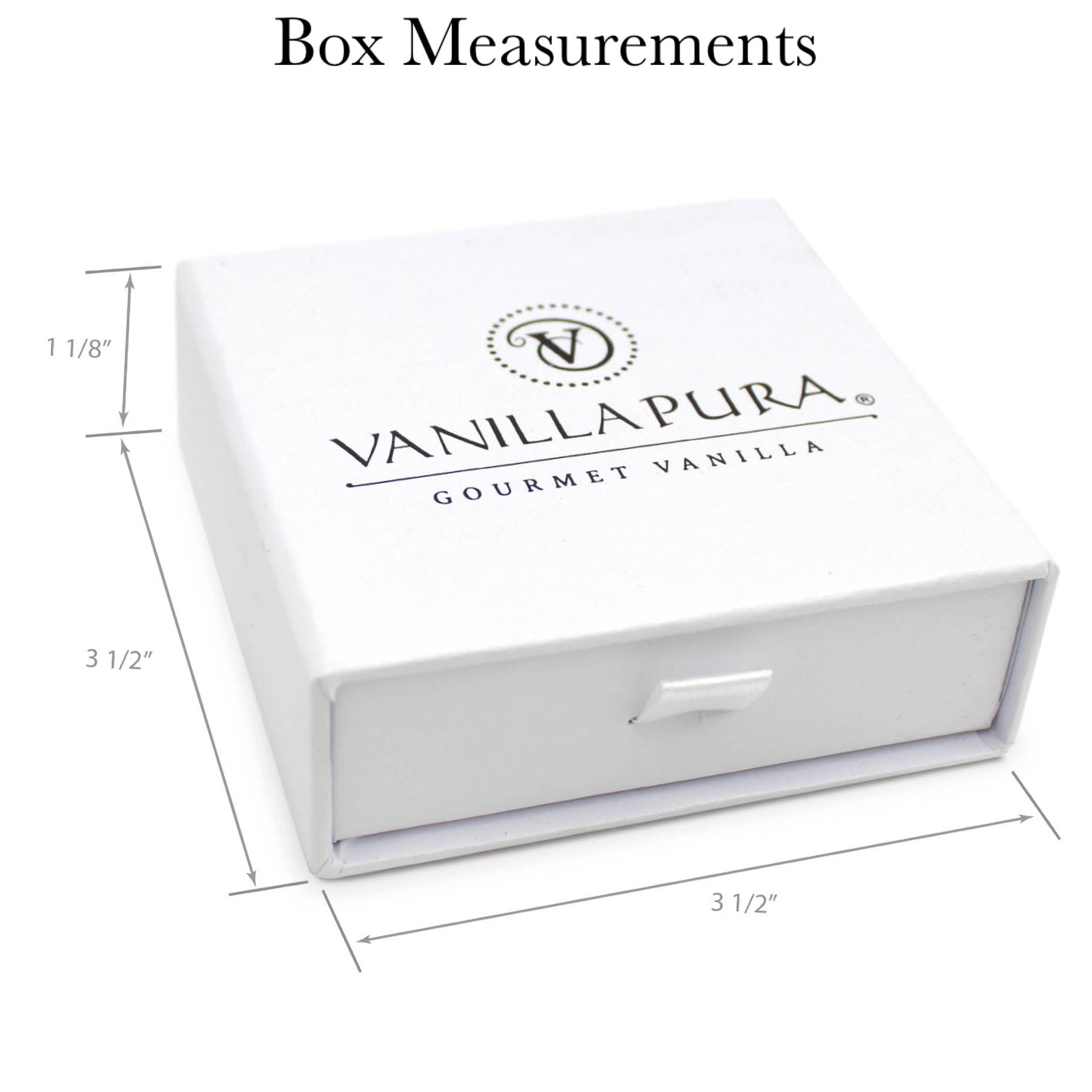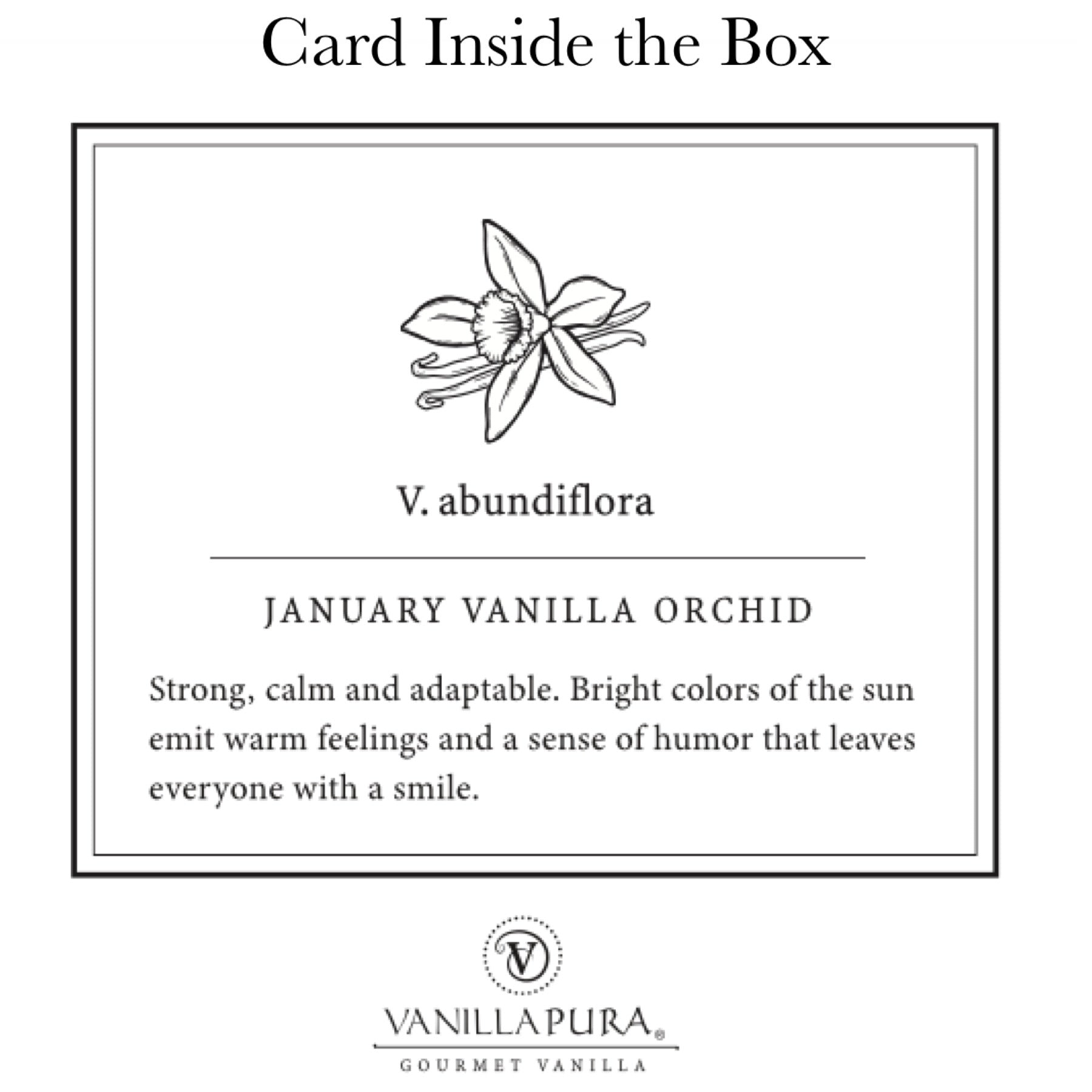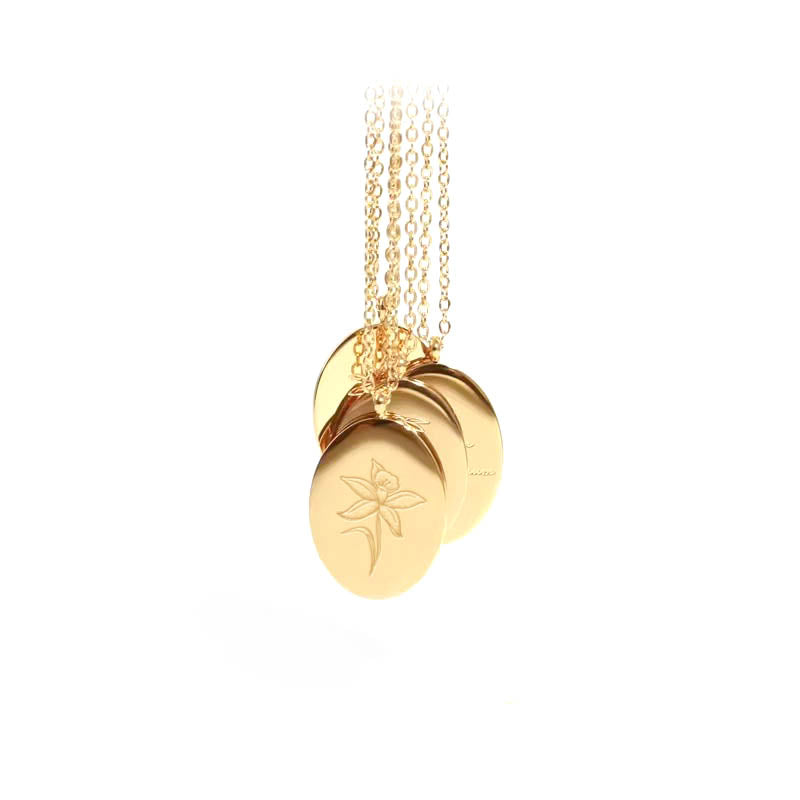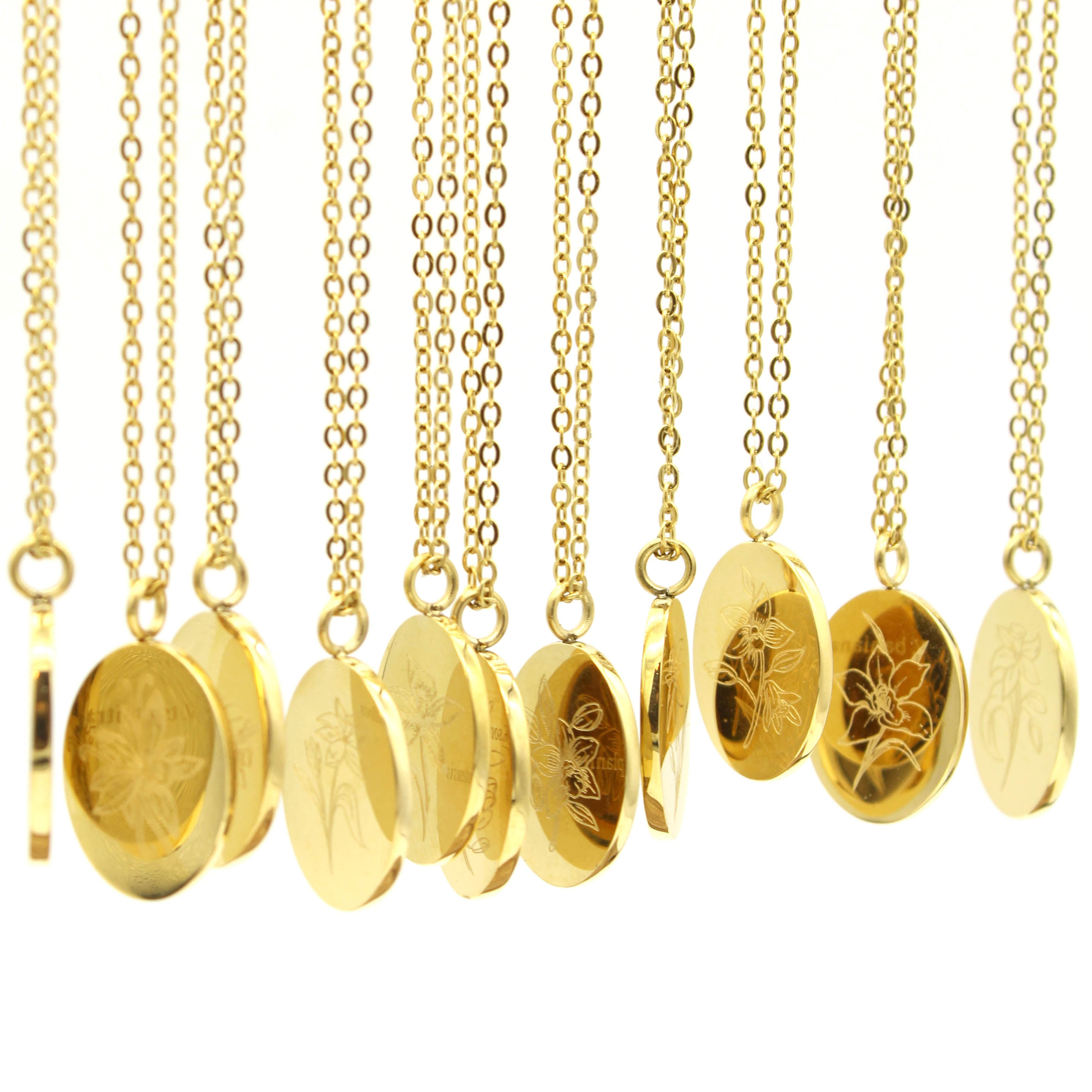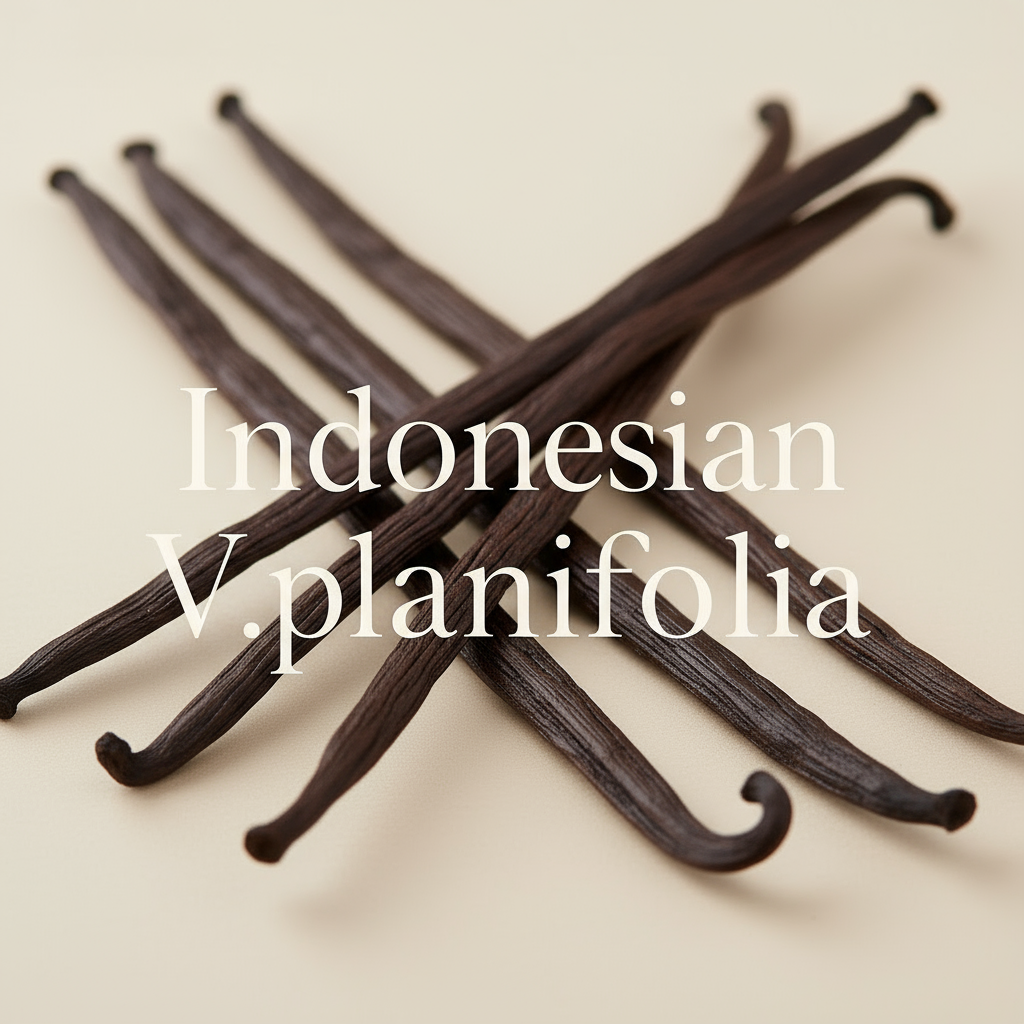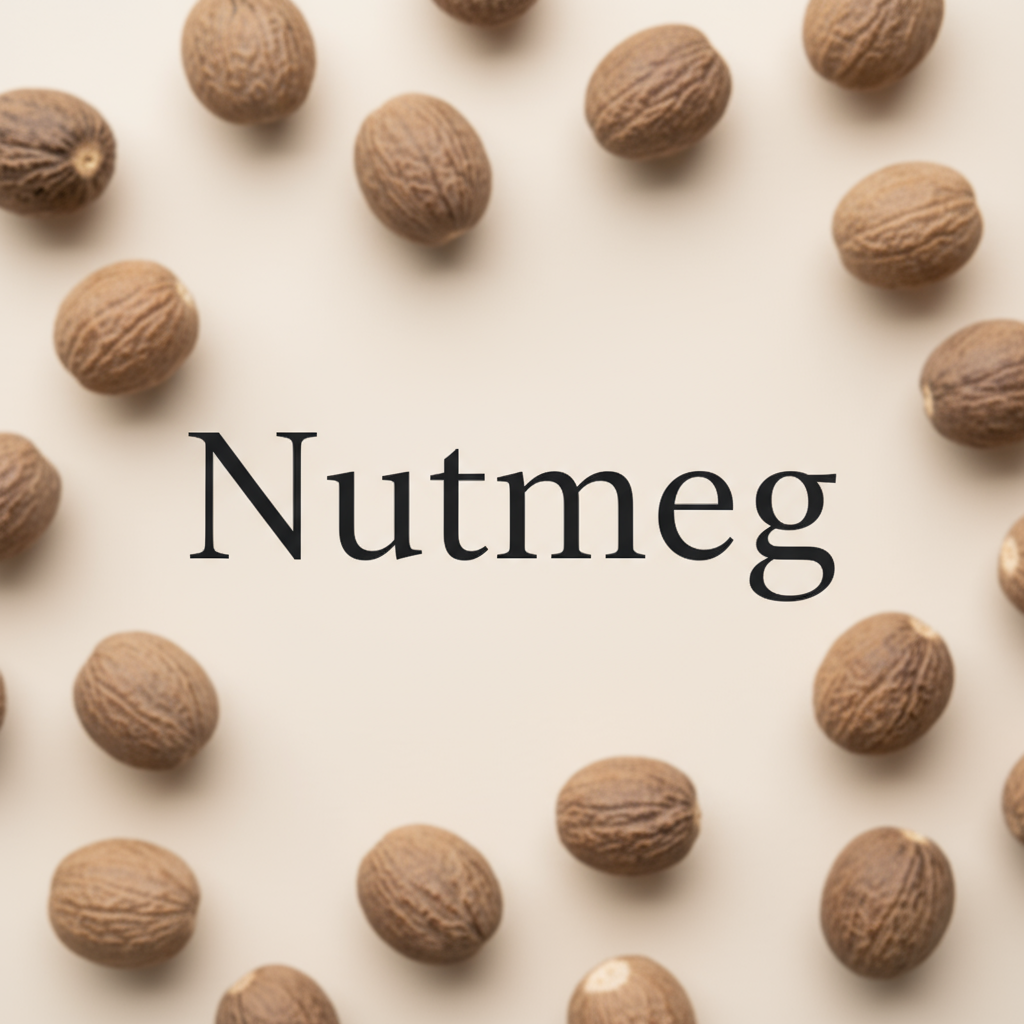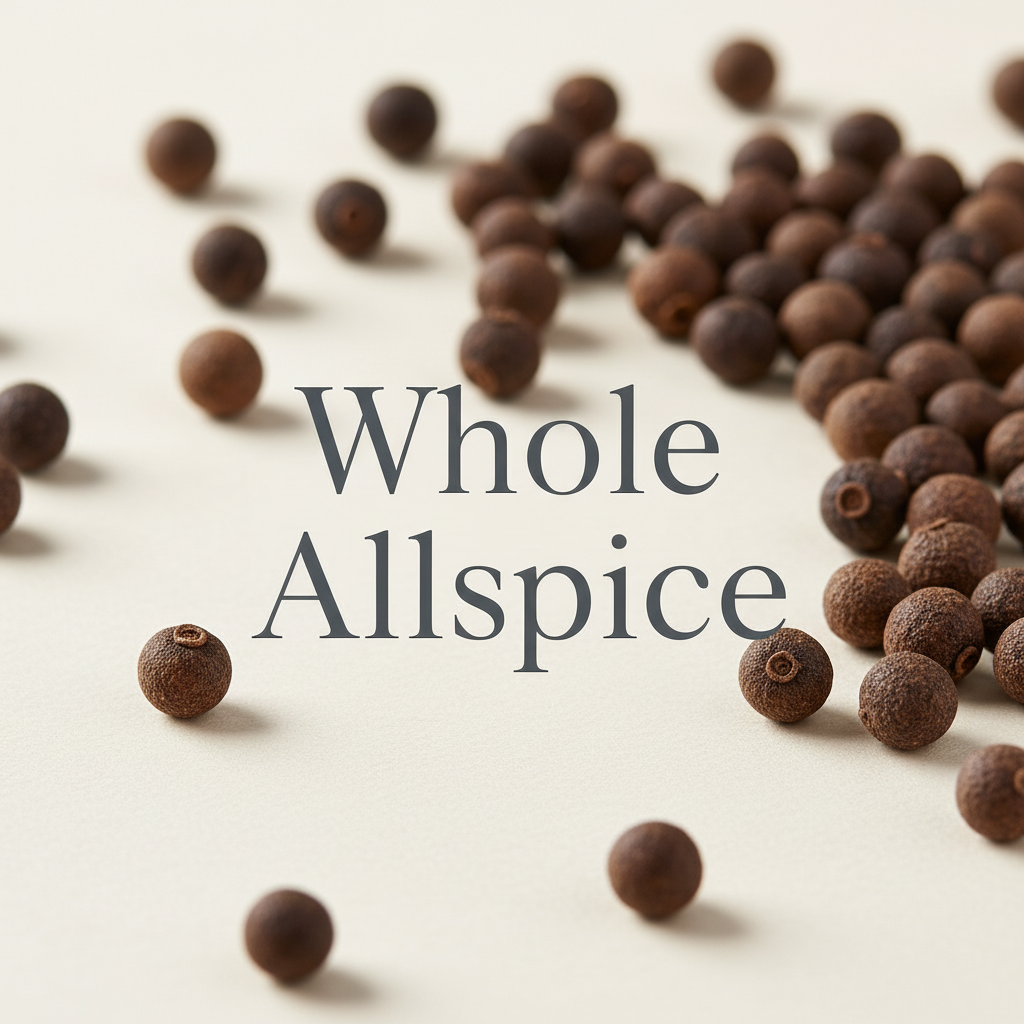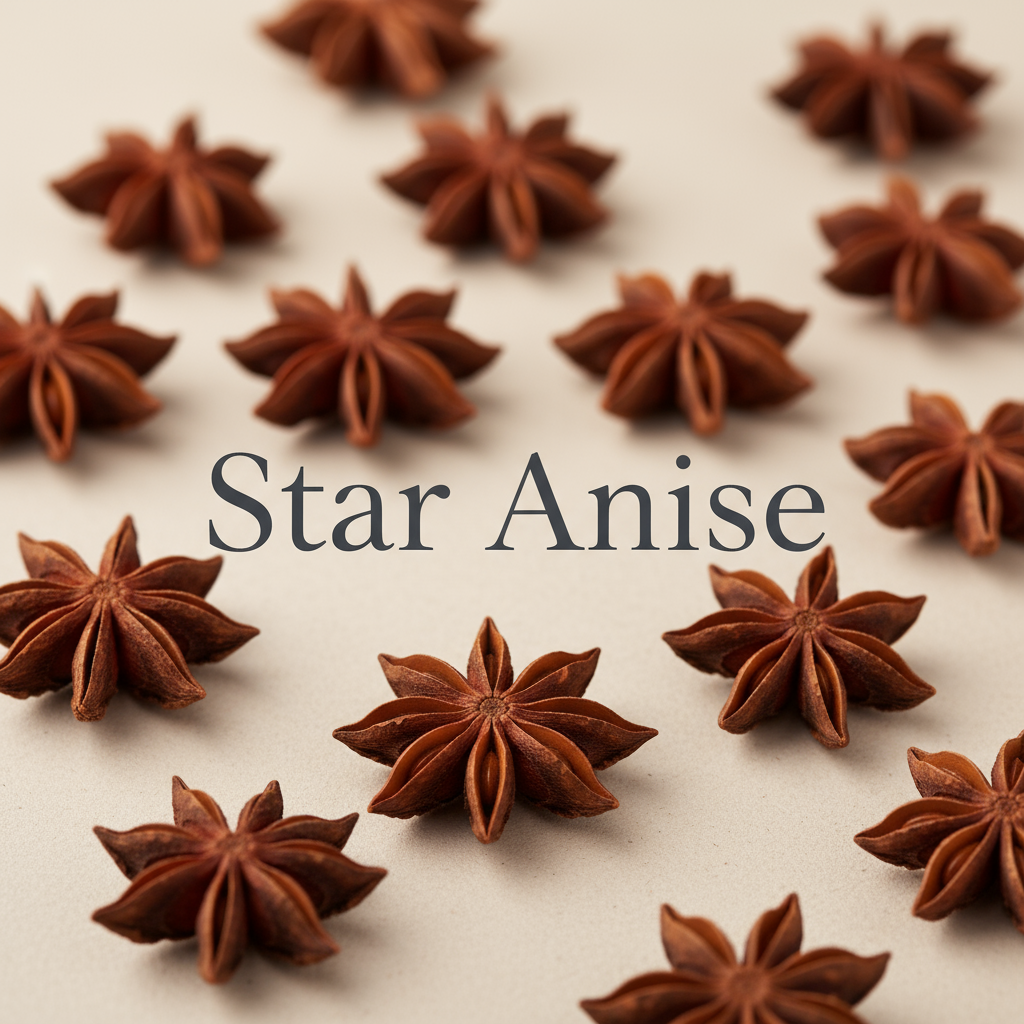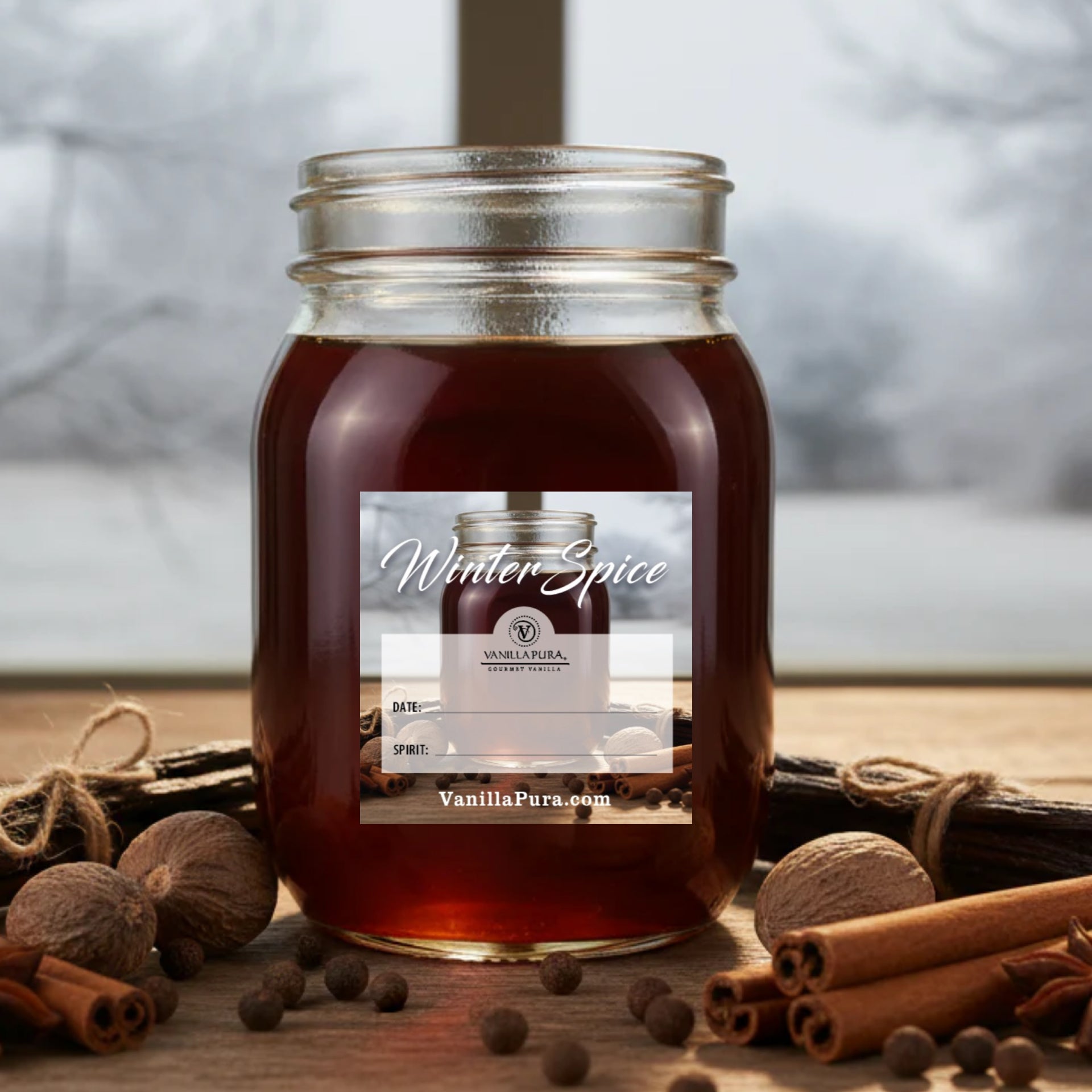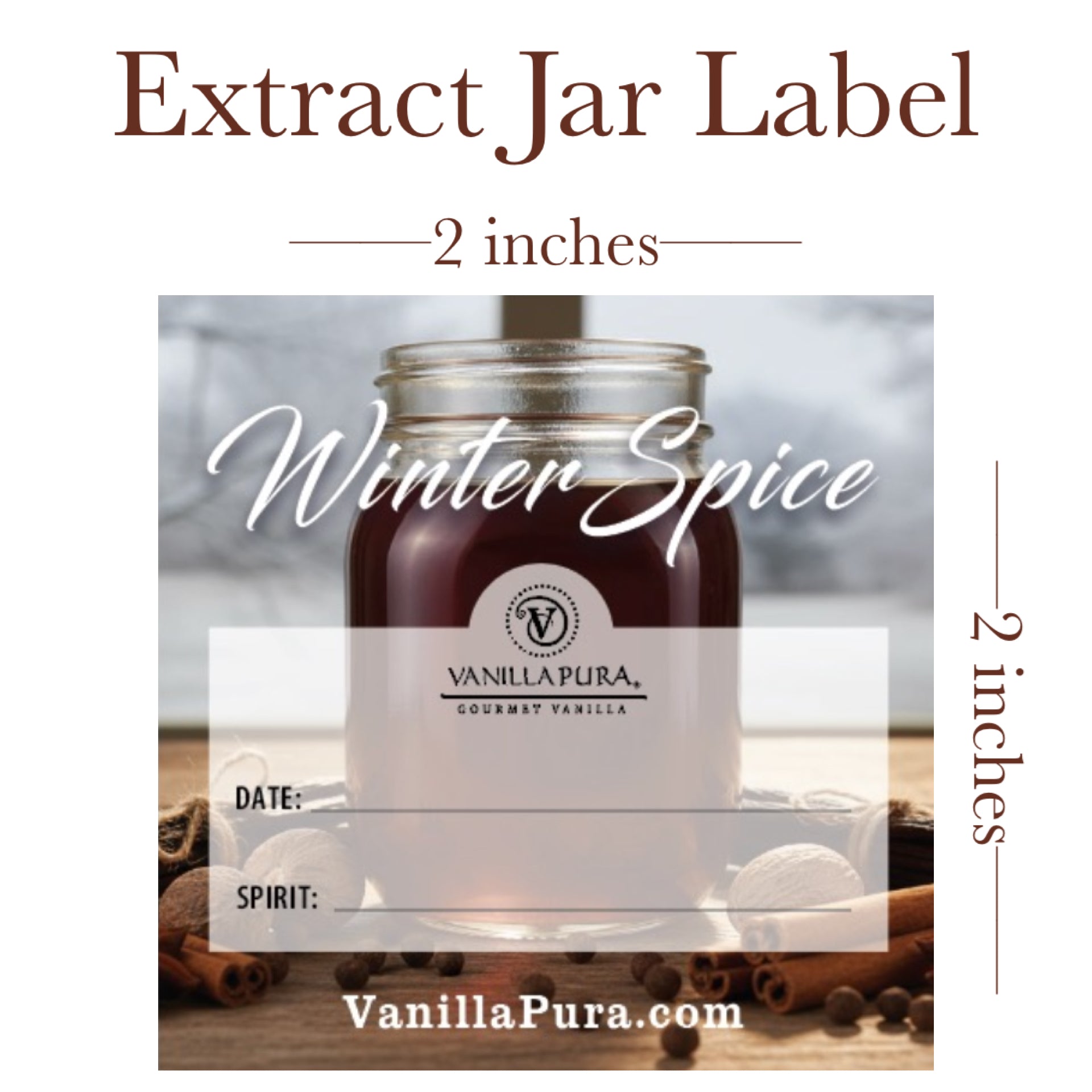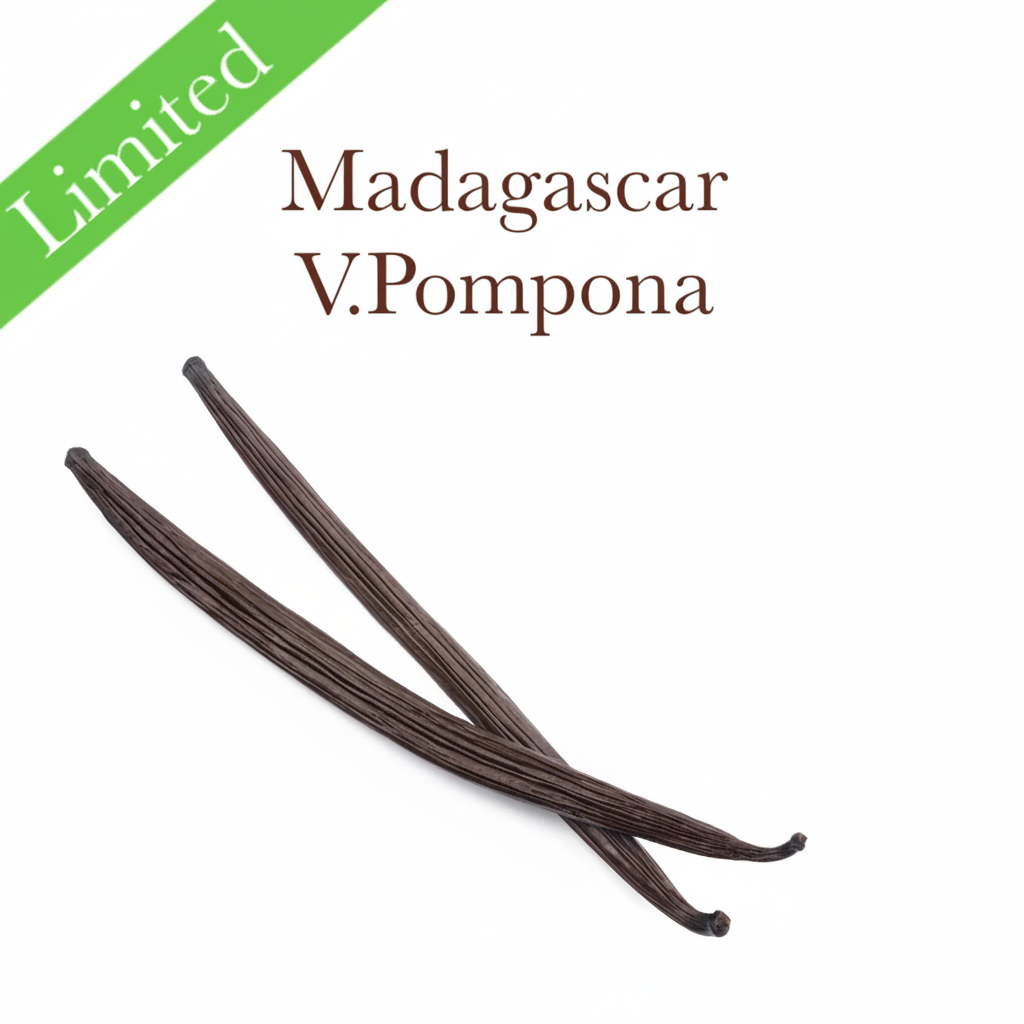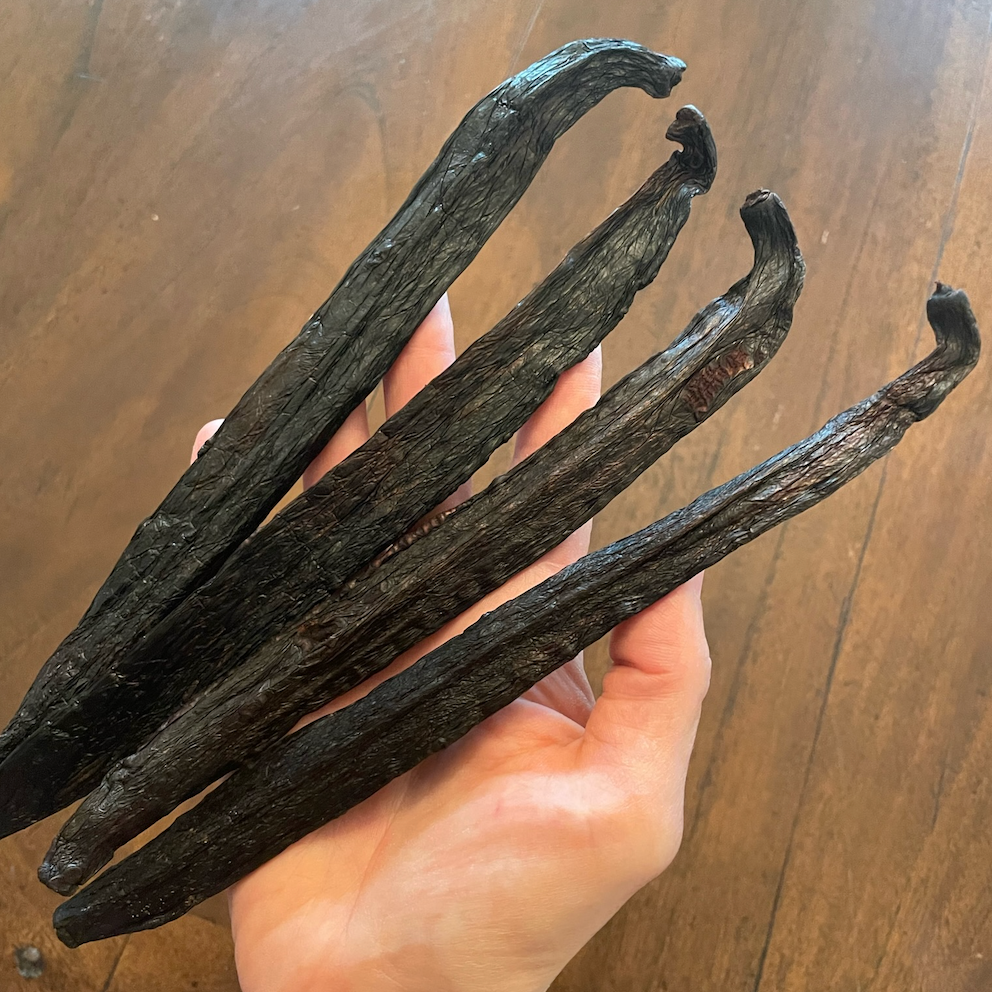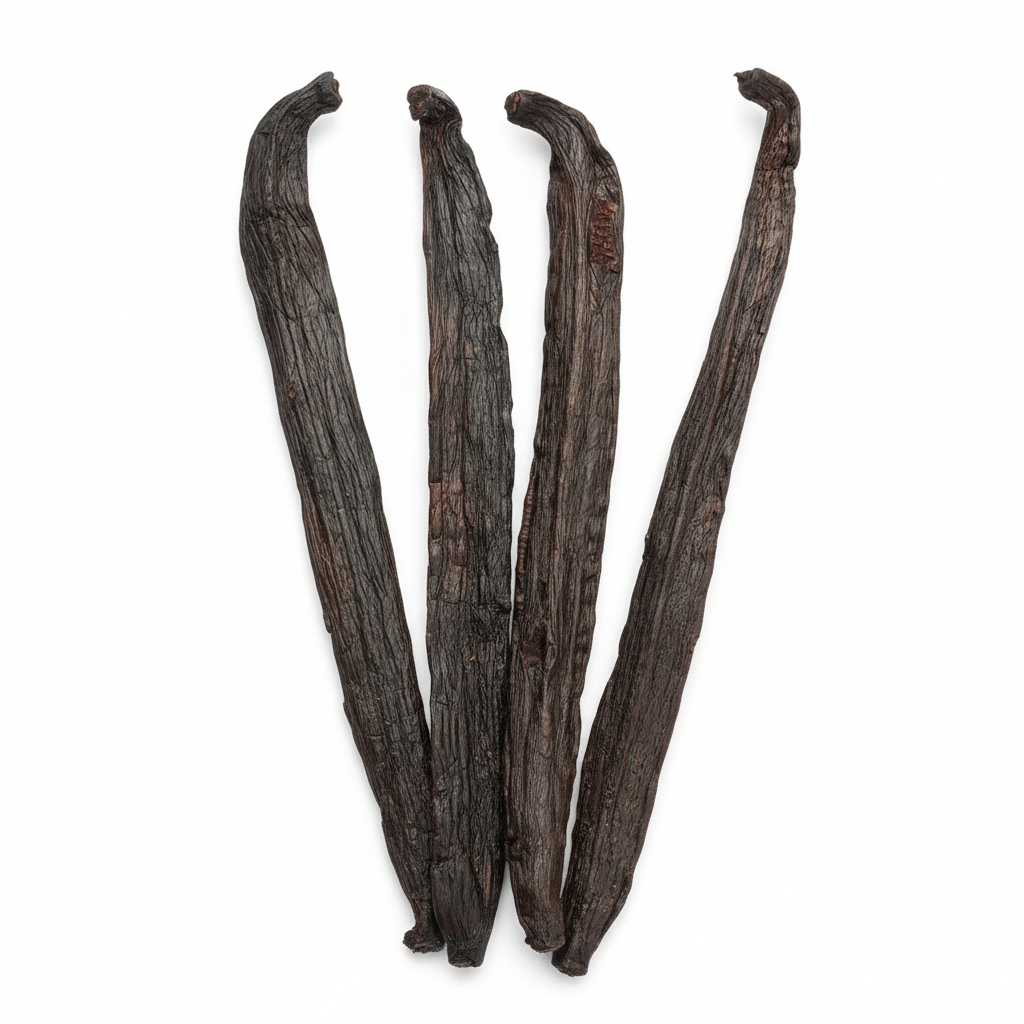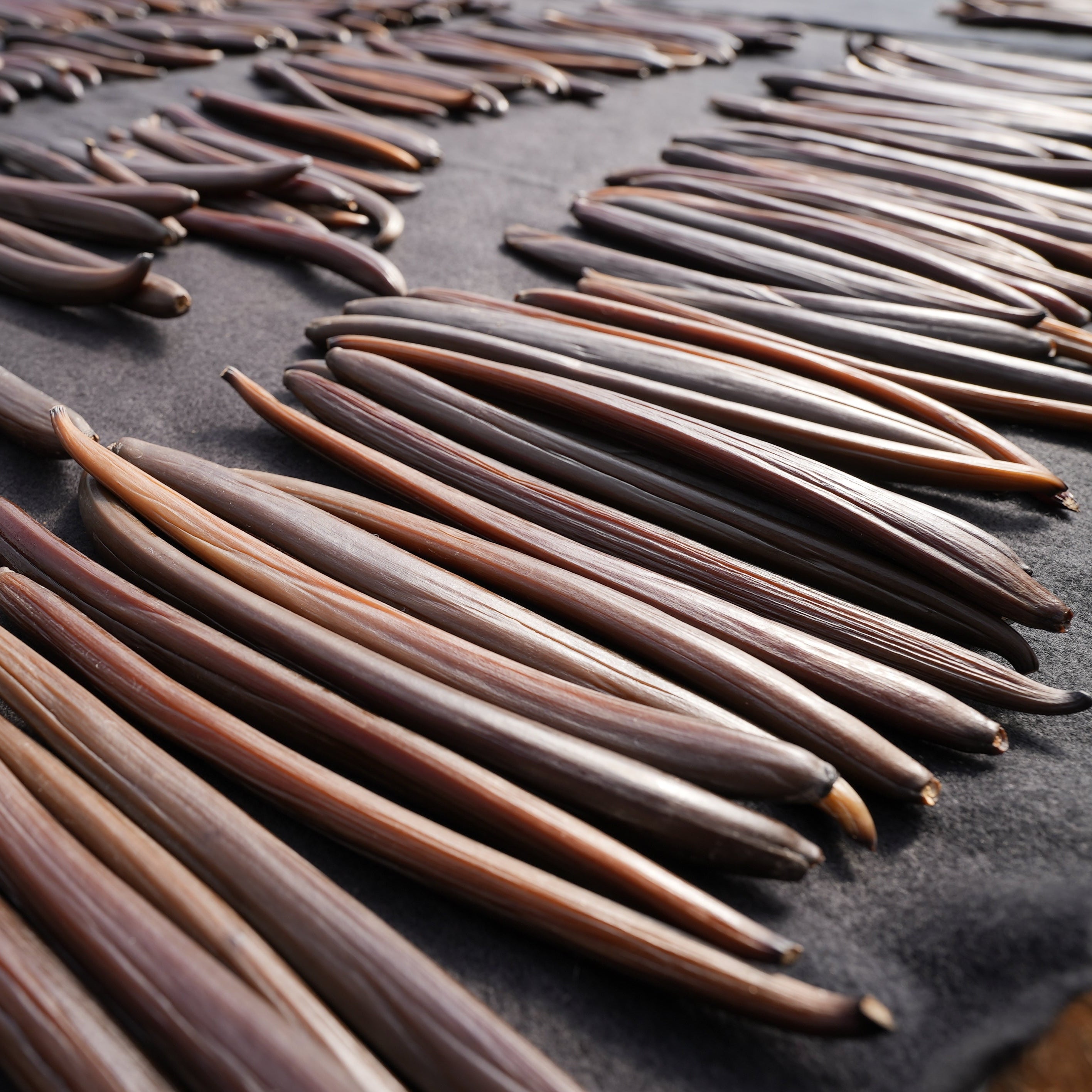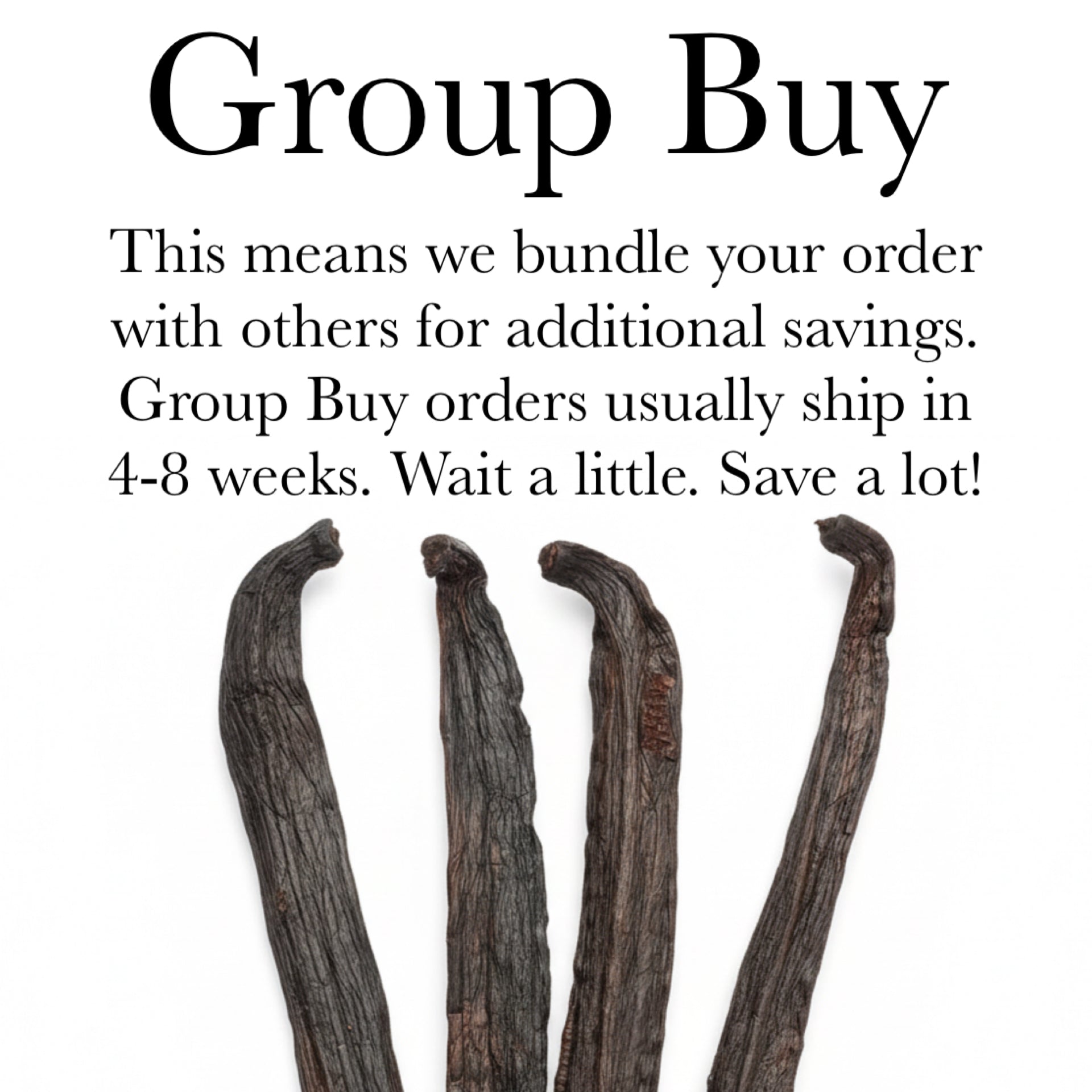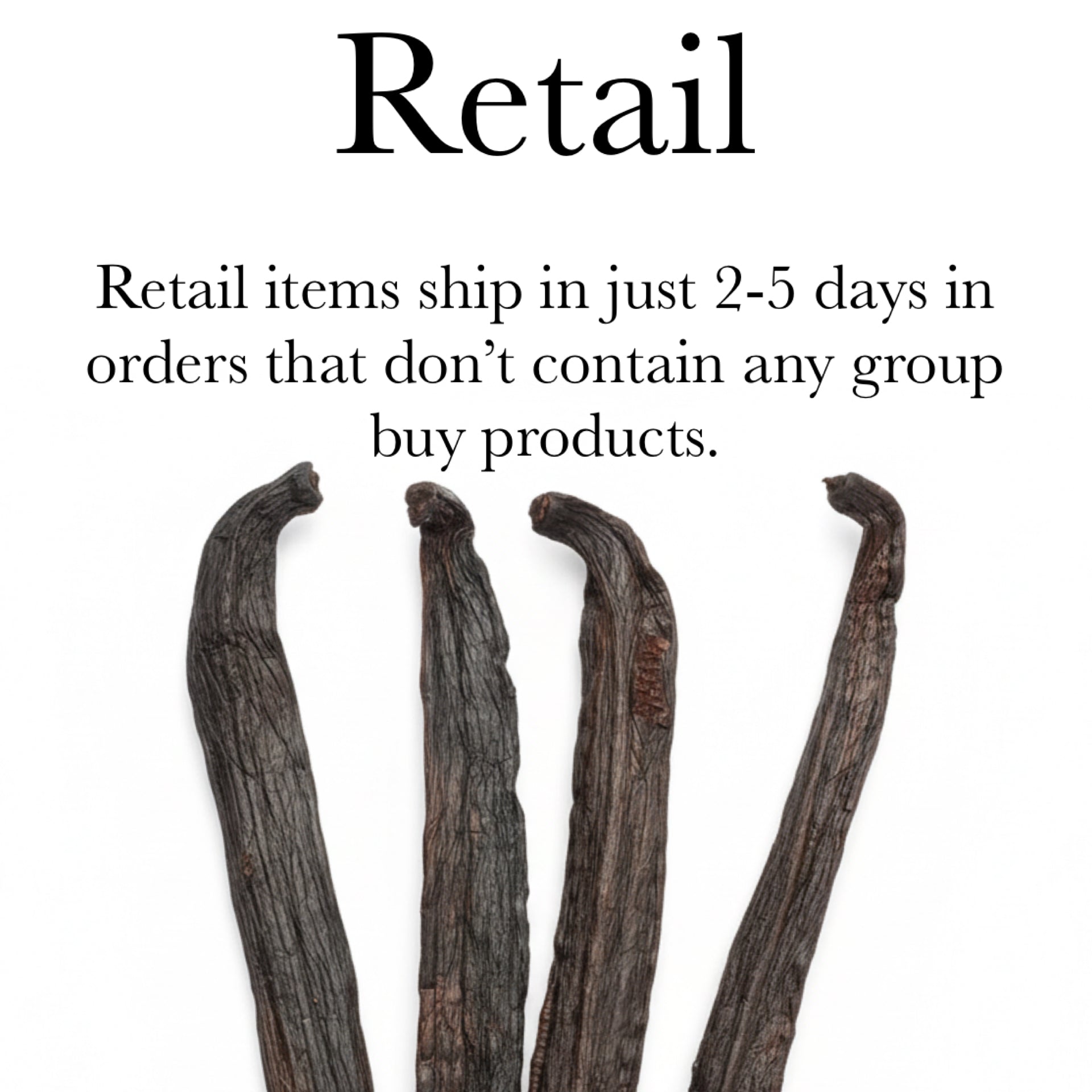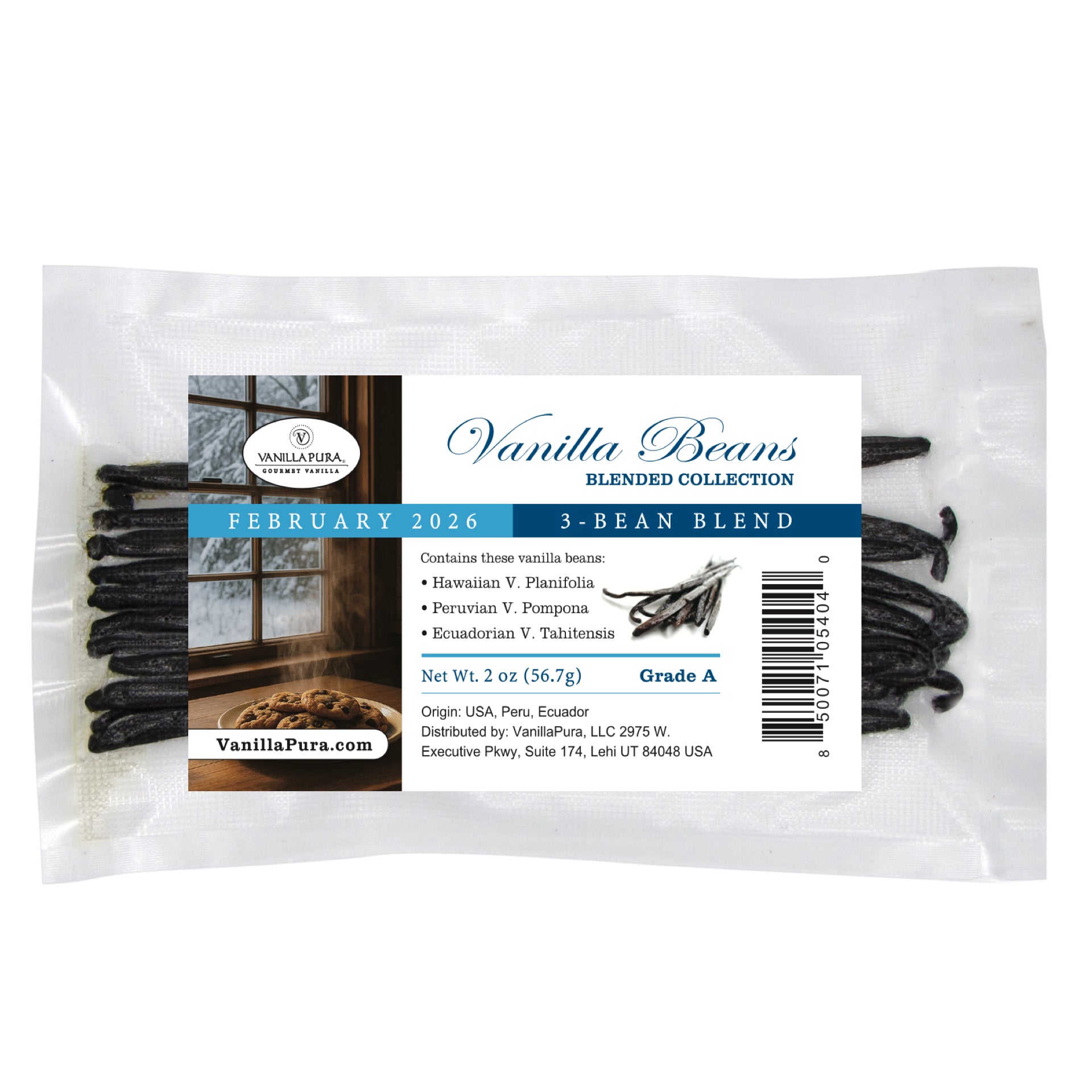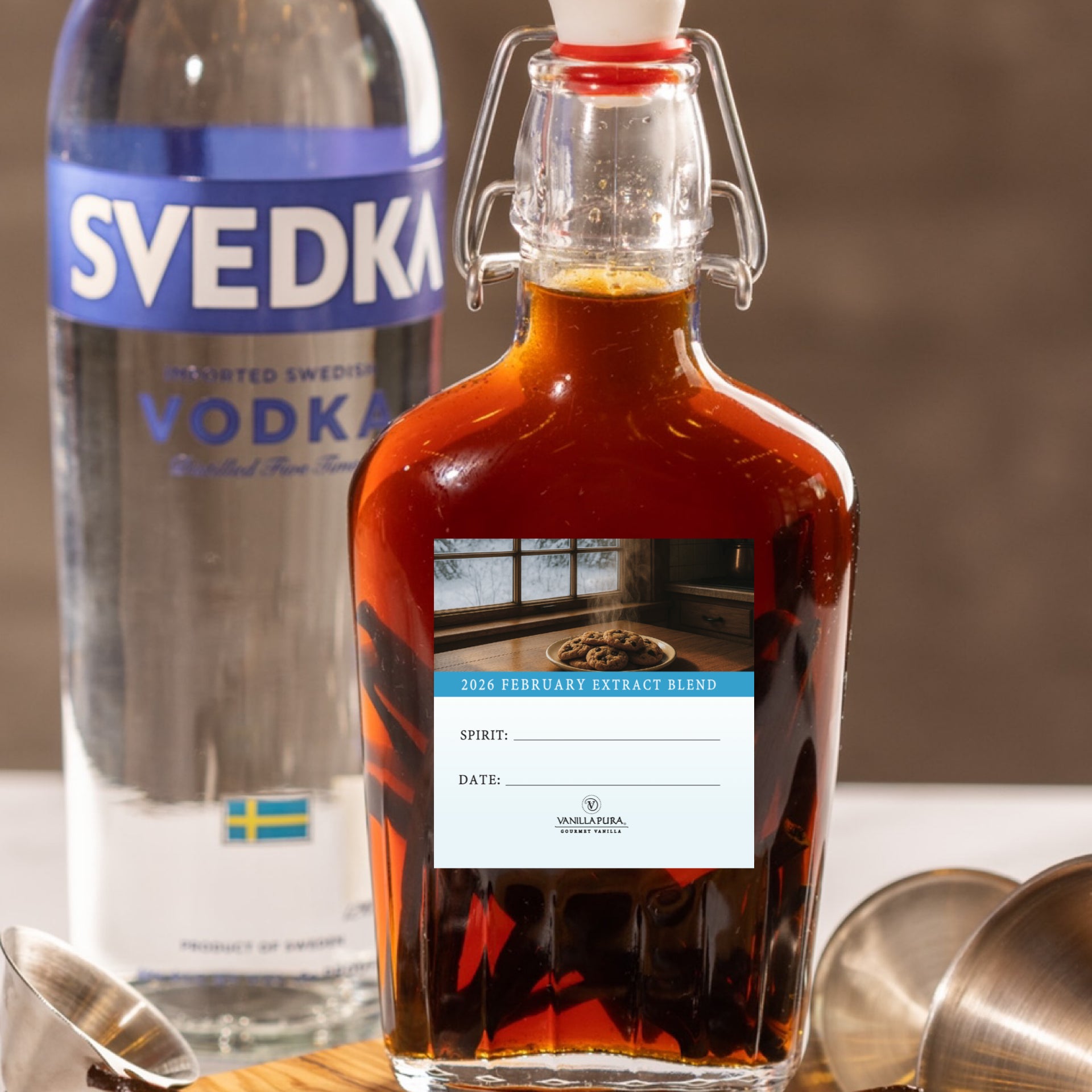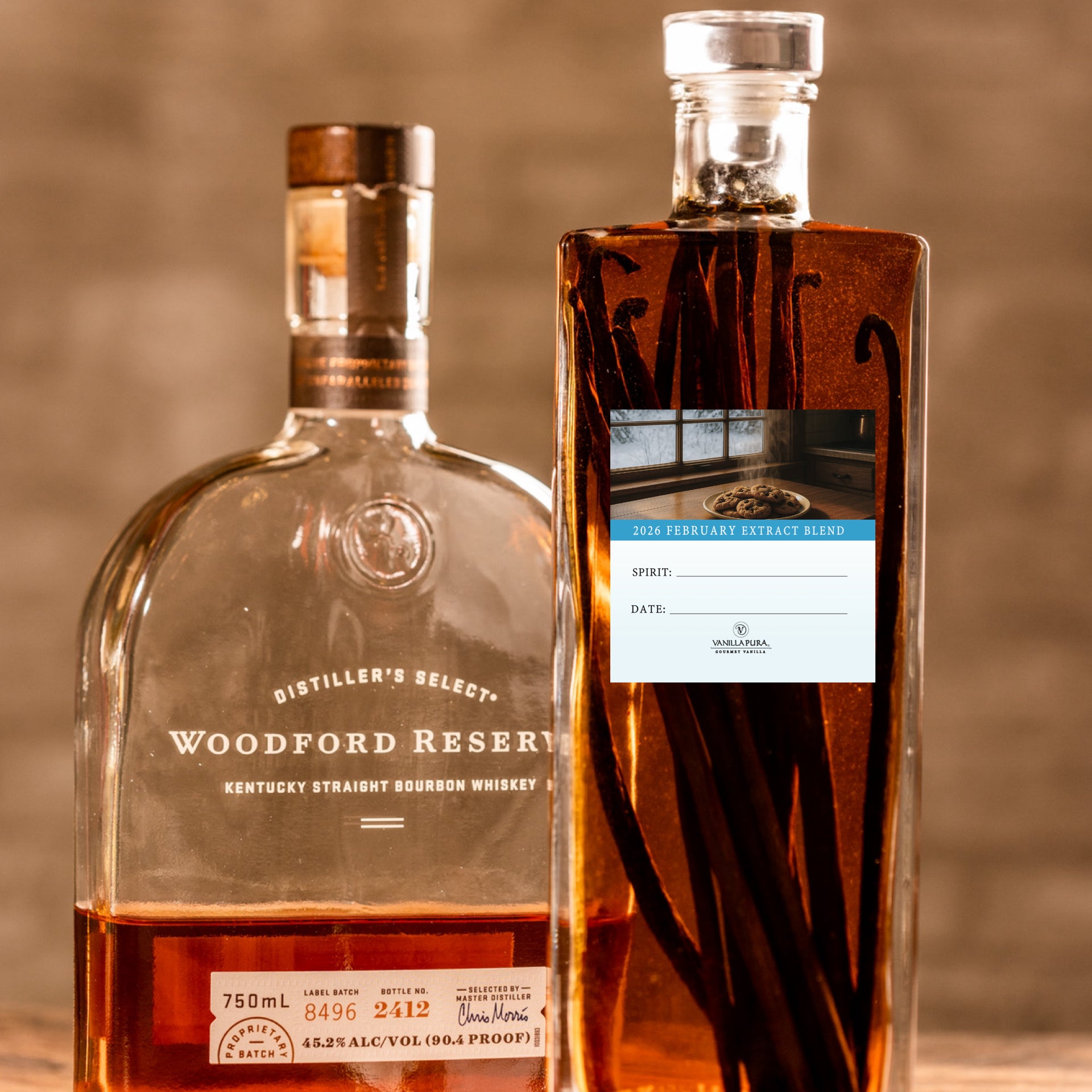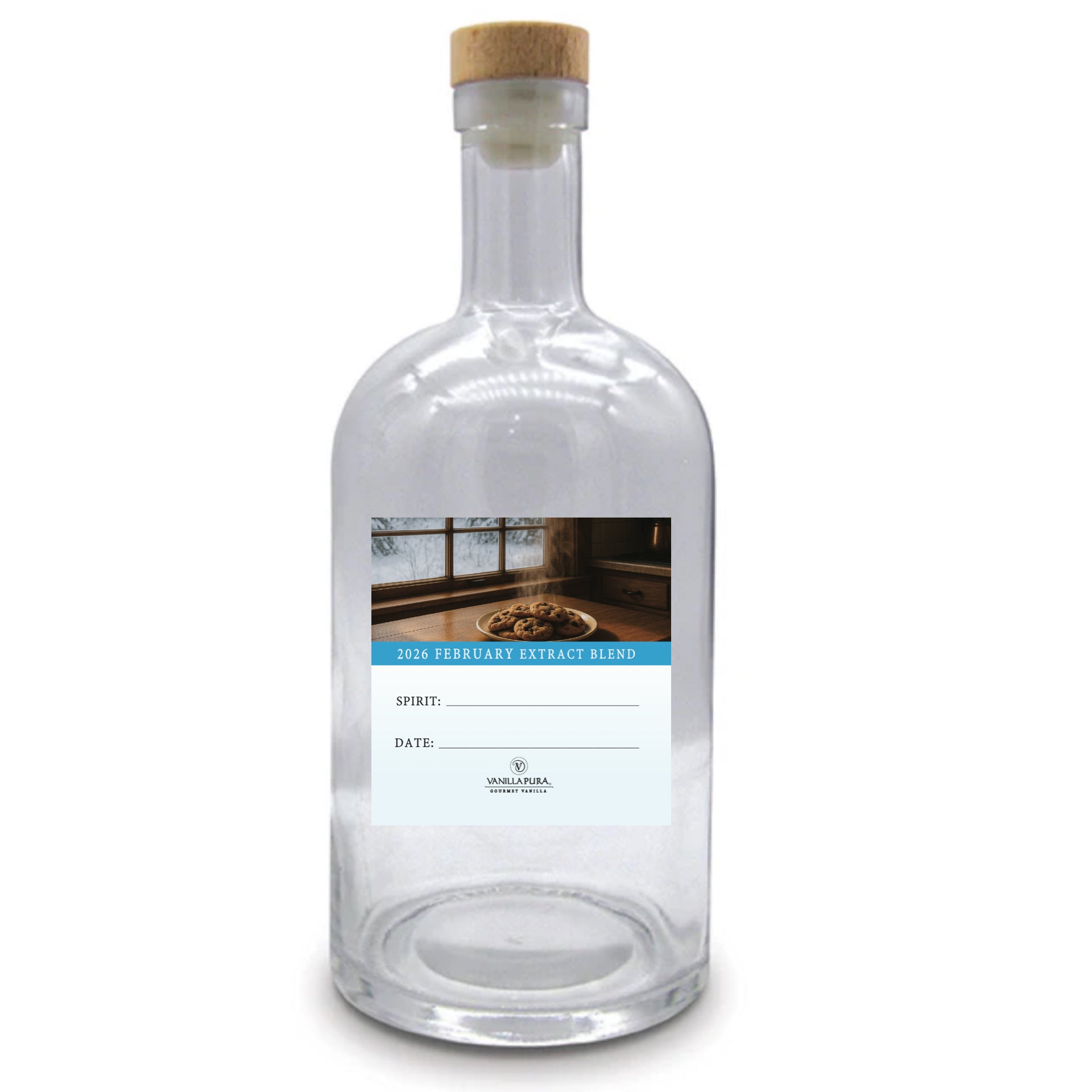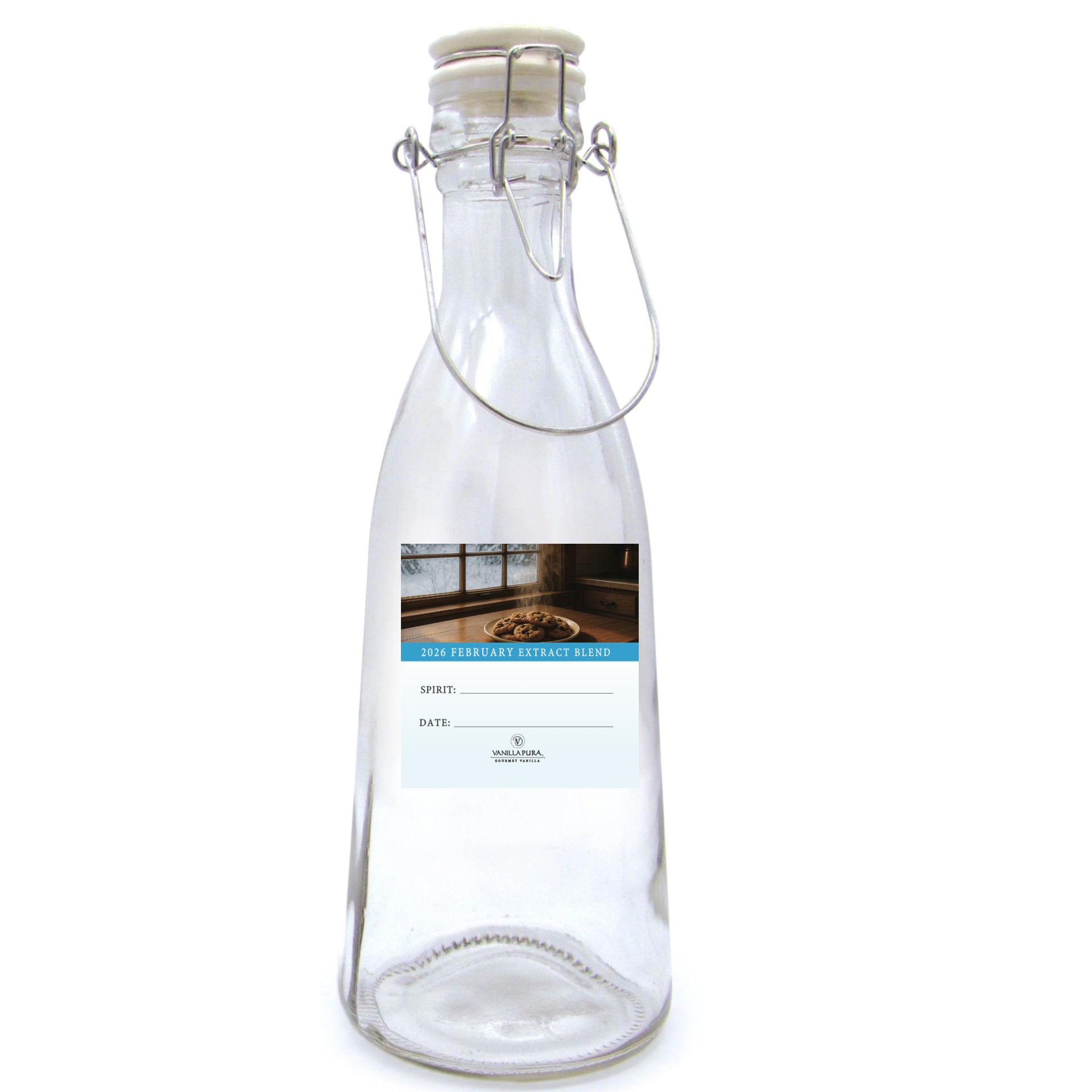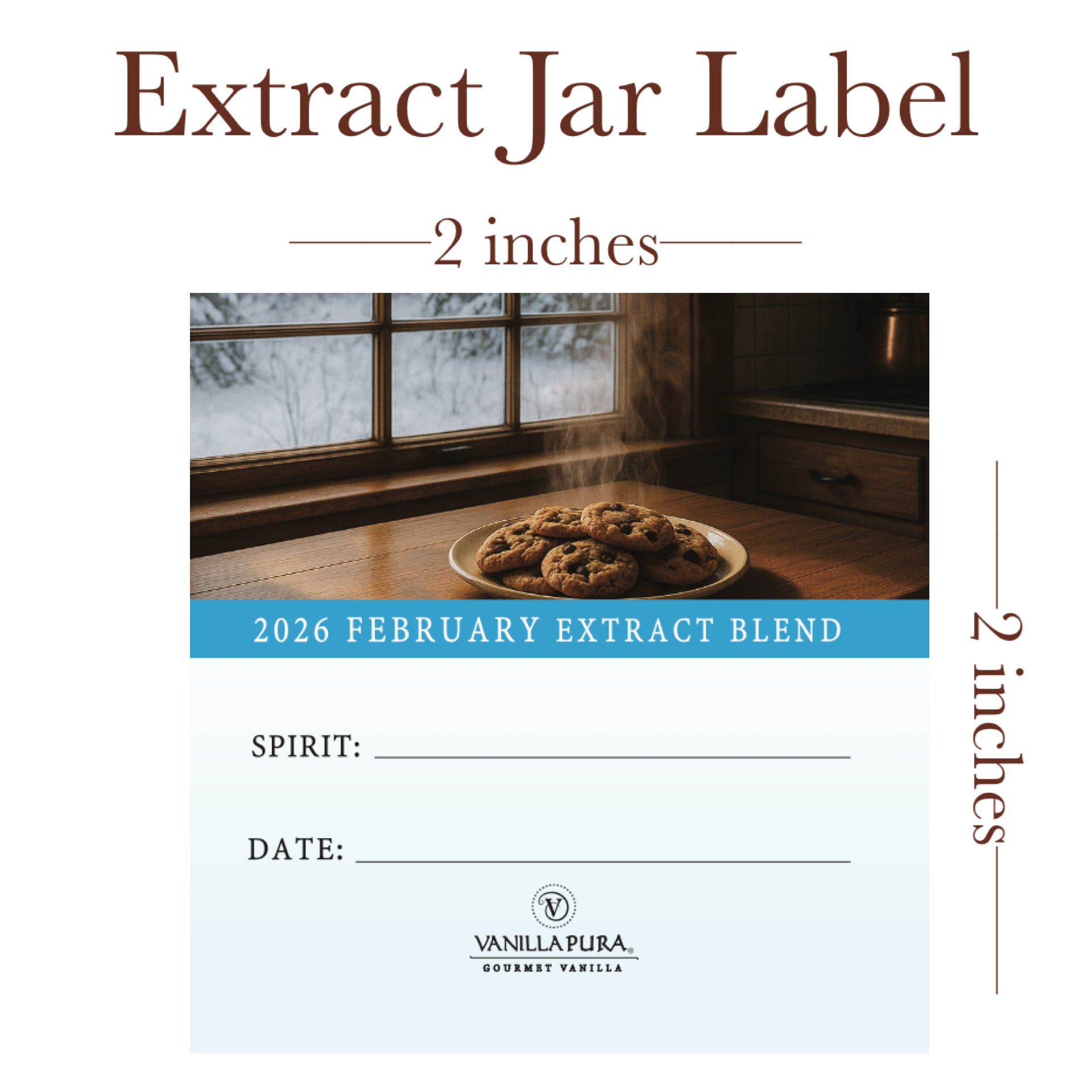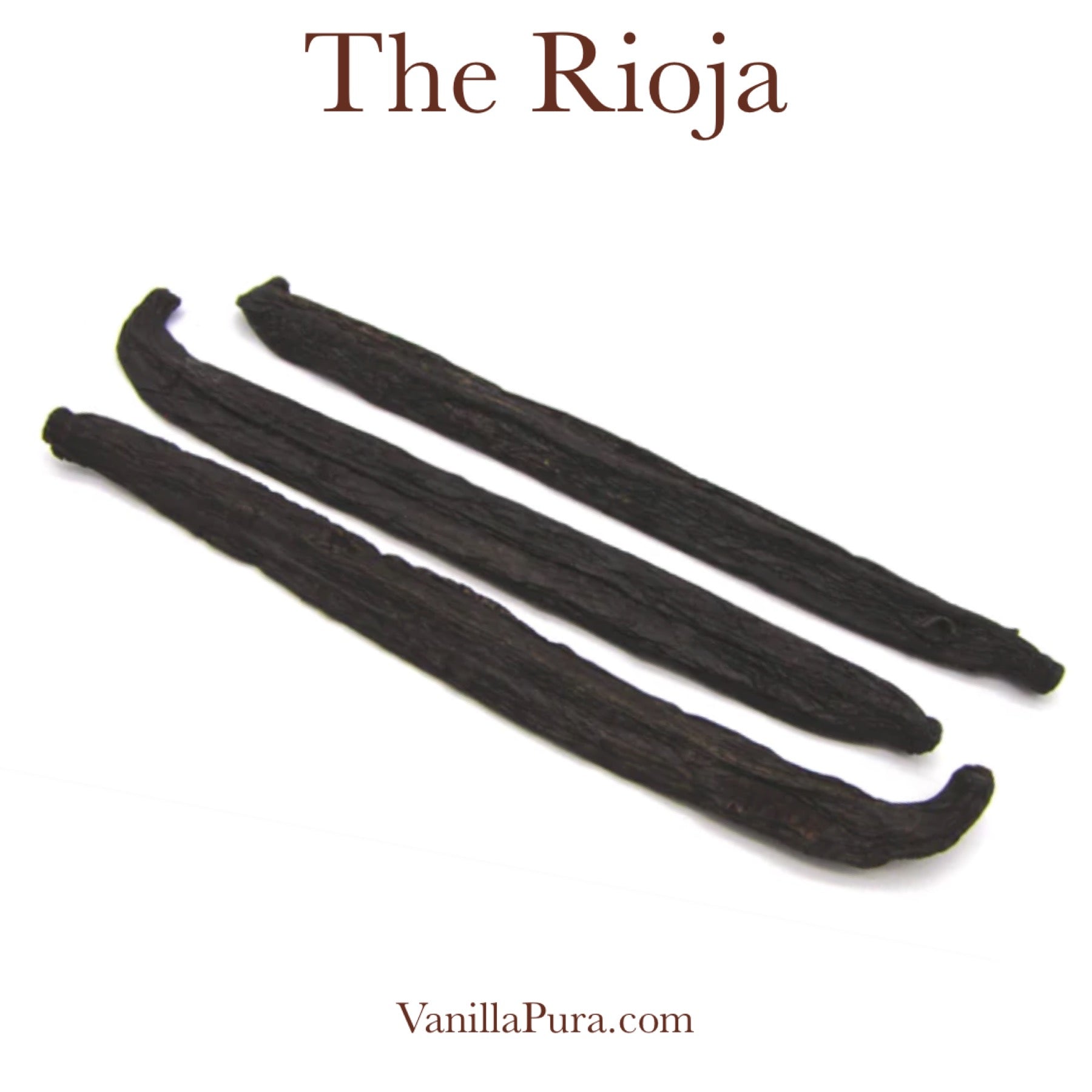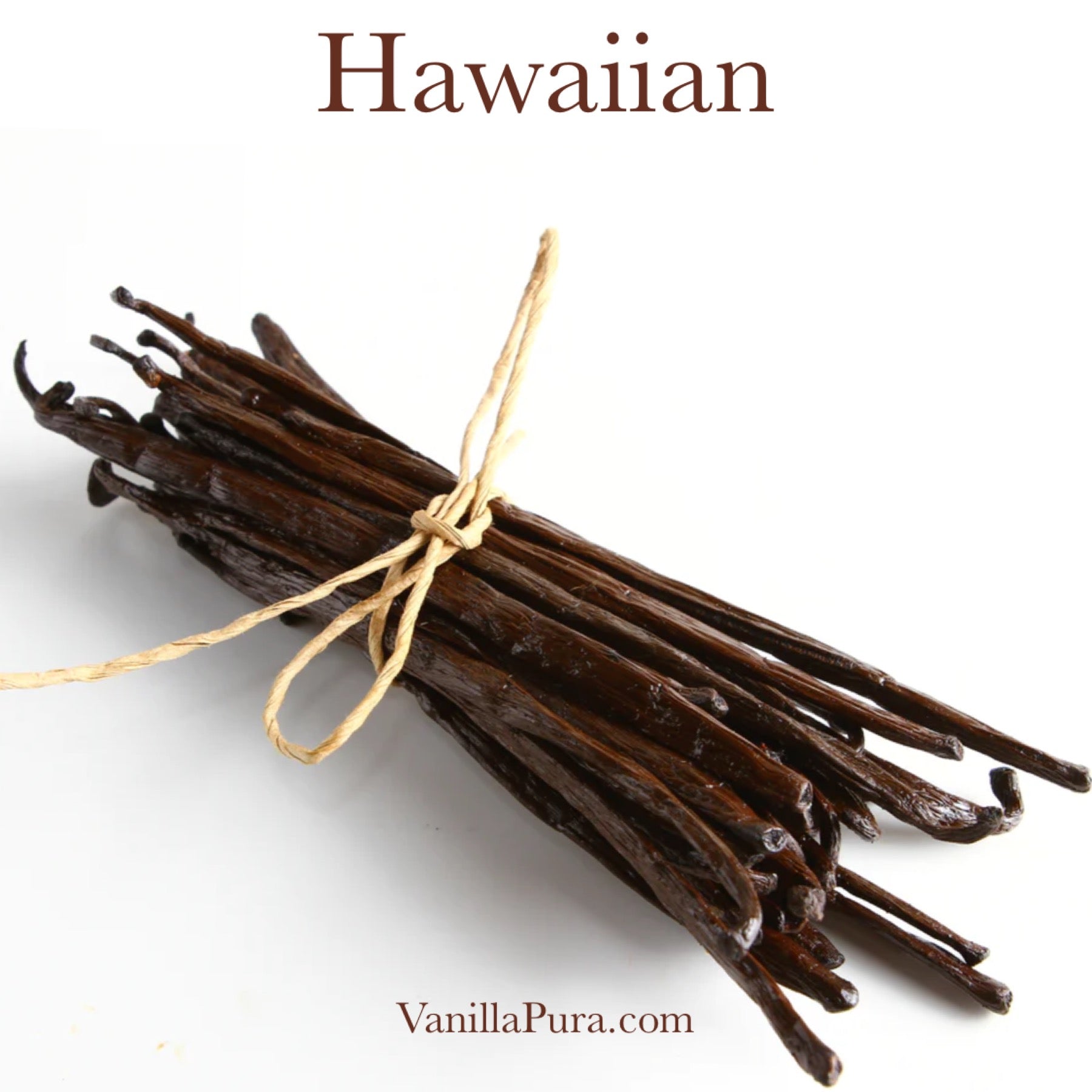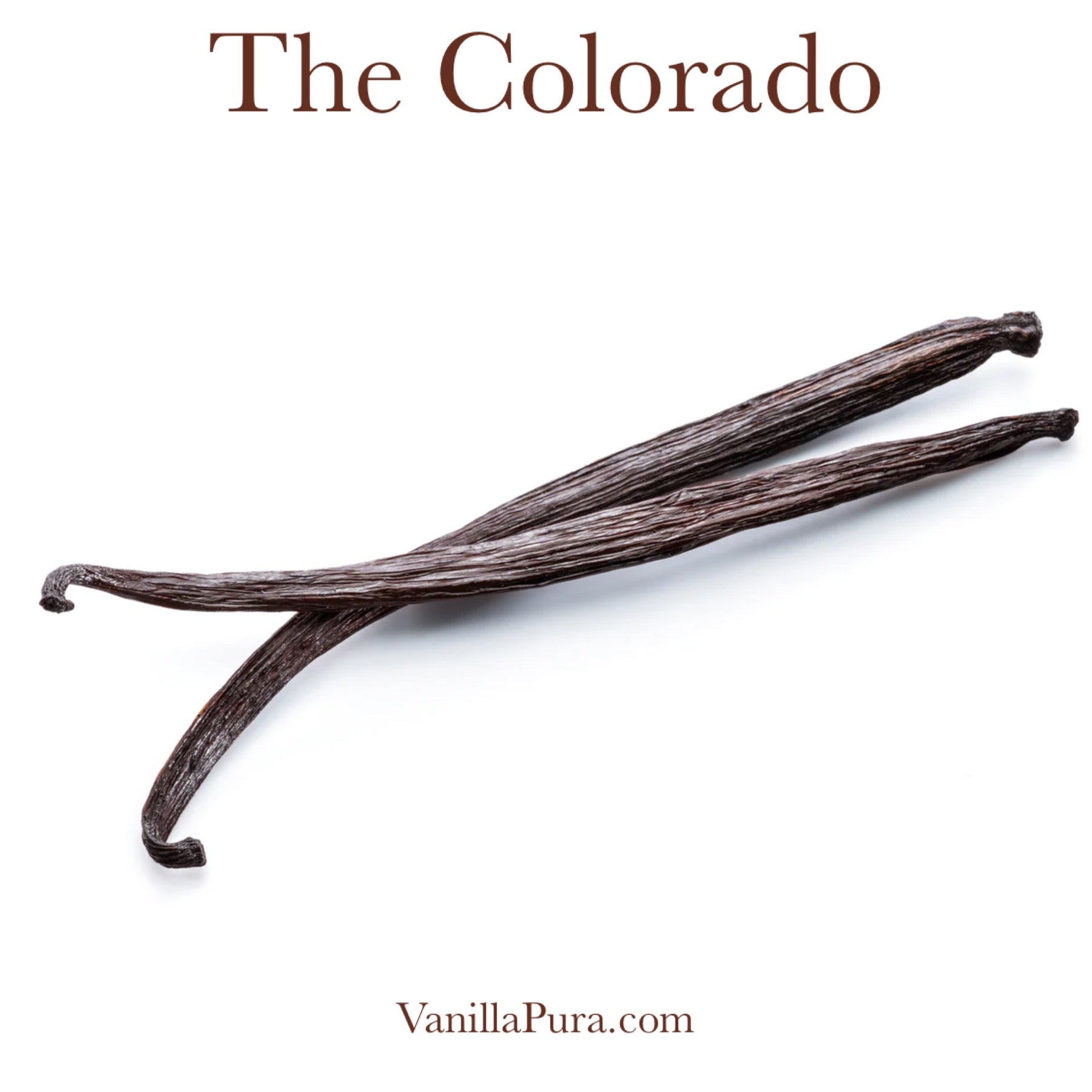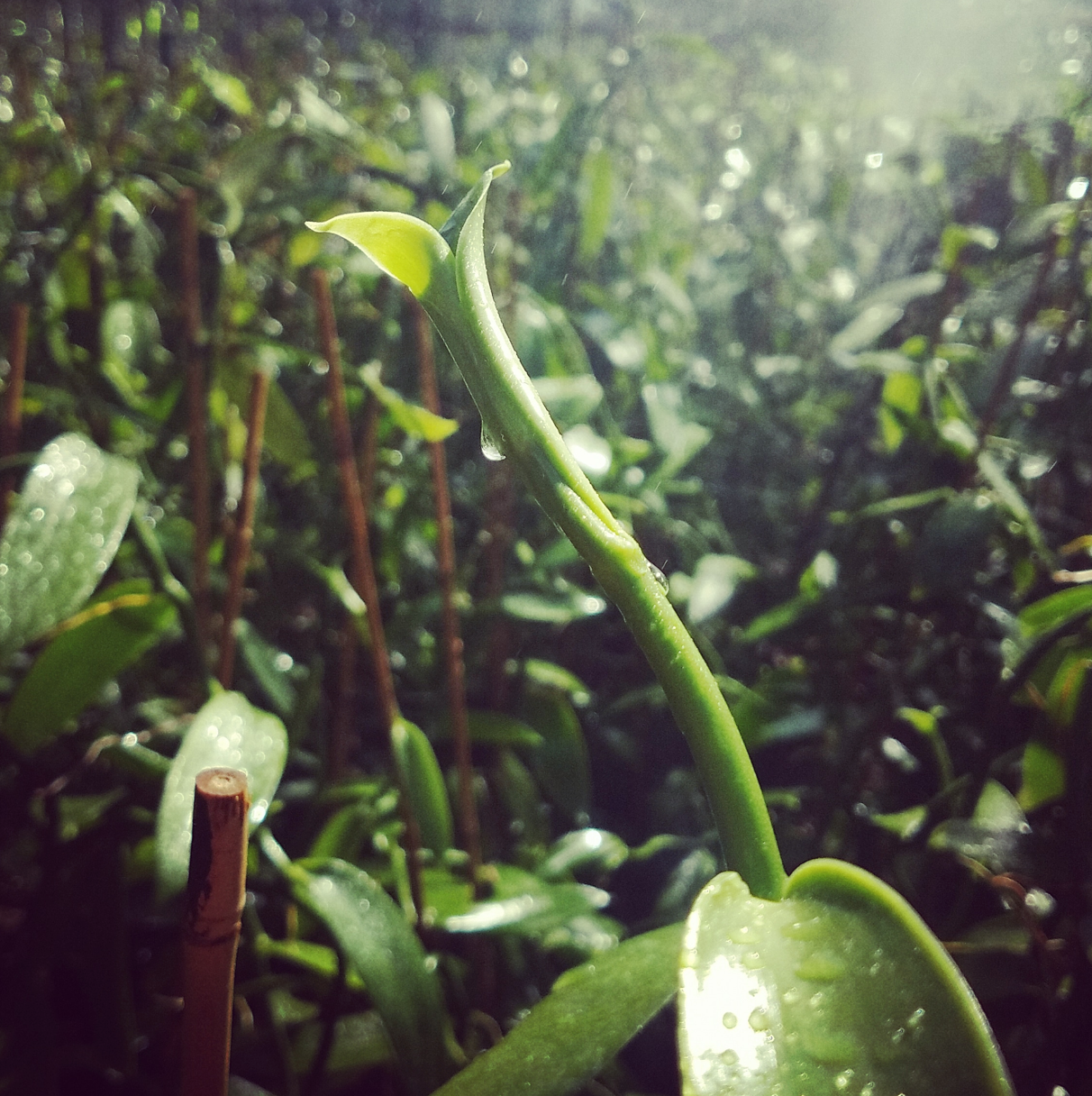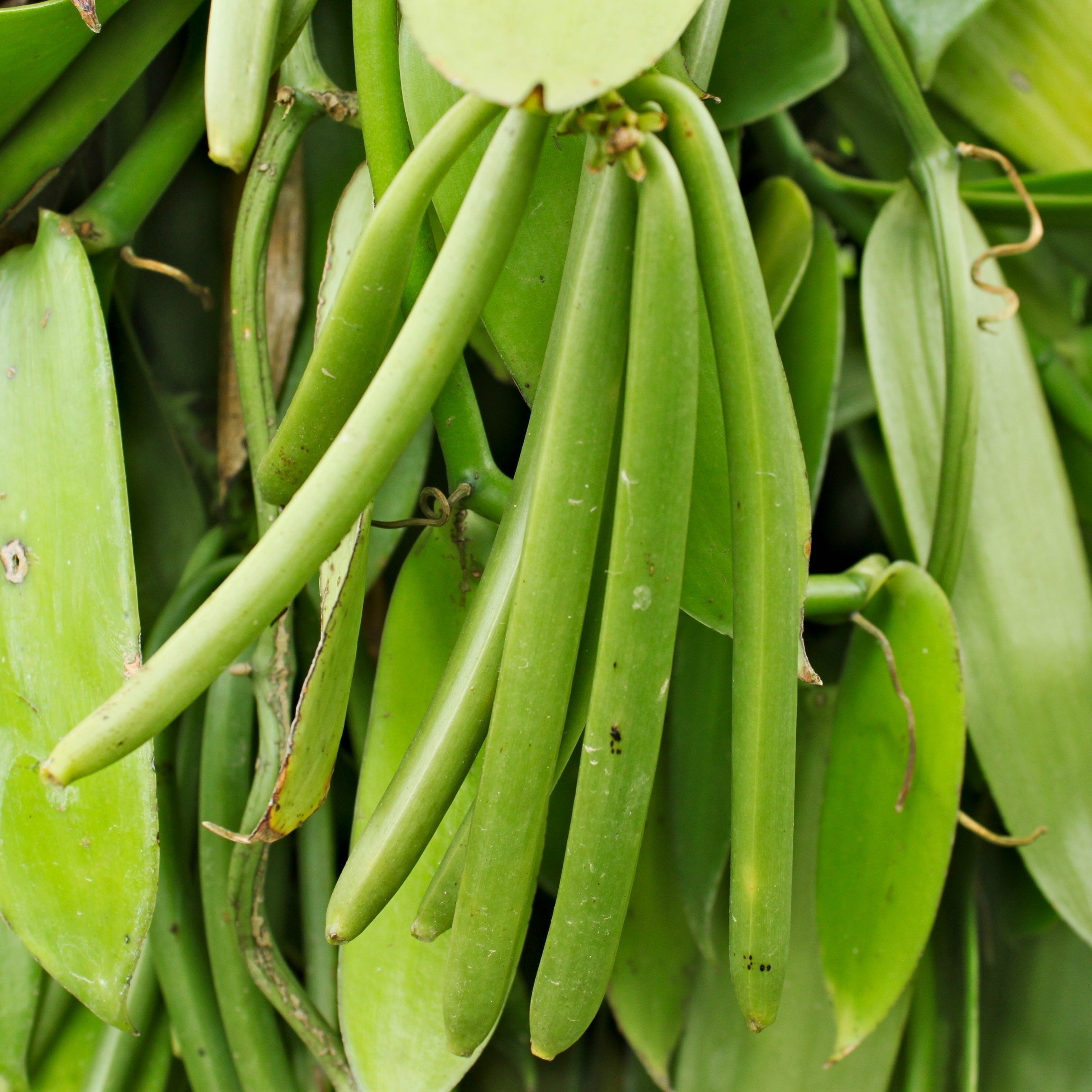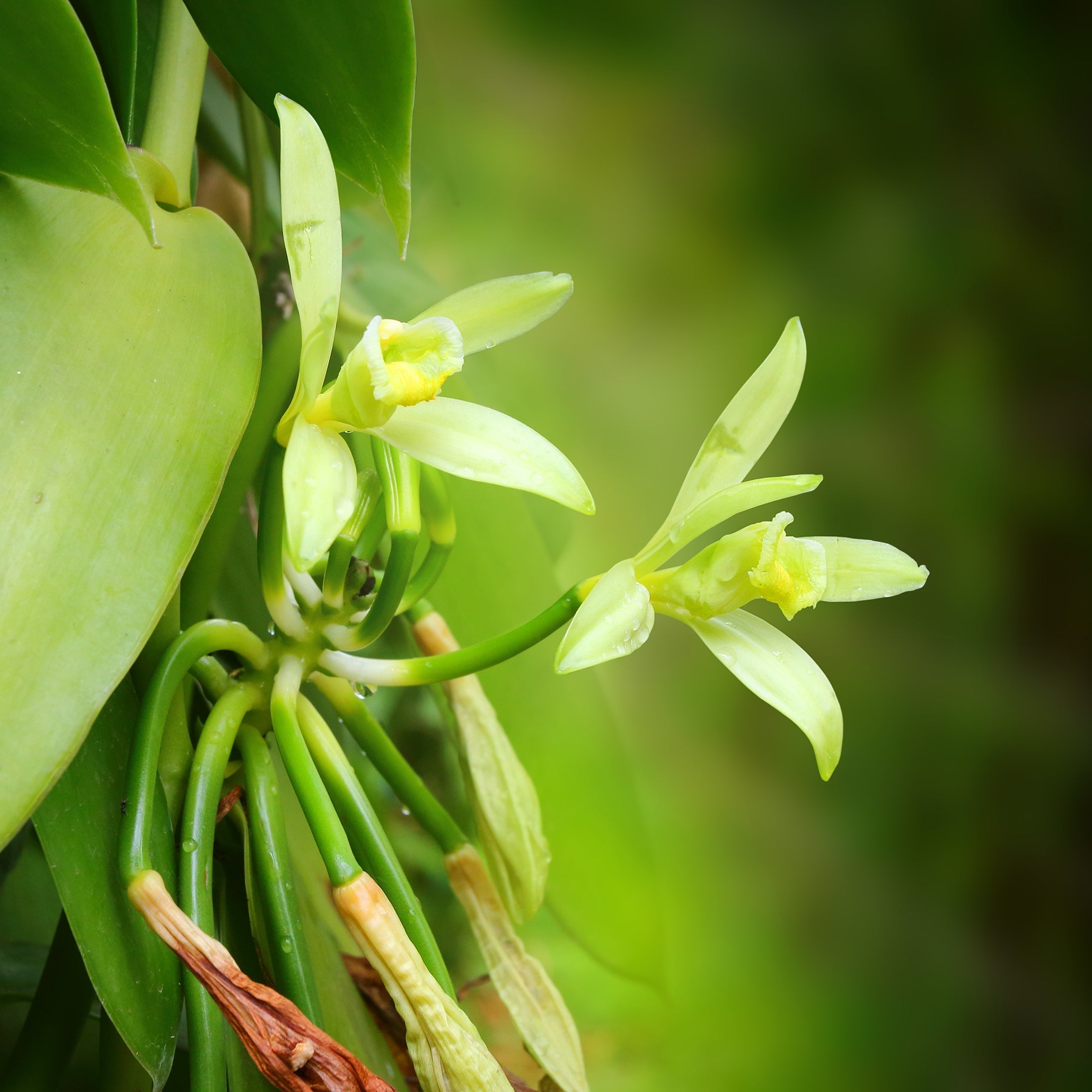FAQs
(For FAQs about our vanilla bean co-op, please refer to the FAQ section at the bottom of this page.)
Q: Is VanillaPura™ Extract pure vanilla extract? What does that mean?
A: The FDA really cares about vanilla extract, given the amount of fraud and false claims within the industry. There are innumerable phony, cheap and unregulated extracts on the market today. These extracts use corn syrup, sugars and artificial sweeteners to create a smell and taste that simulates real vanilla. The FDA intervened and defined what a “pure” vanilla extract classification really is. It stipulates that pure vanilla extract must contain 13.35 ounces of vanilla beans per gallon of liquid and be 35% alcohol. The agency also limits other ingredients outside of vanilla beans and alcohol.
Q: Can you help me understand what vanilla extract is?
A: There are roughly 300 distinct flavor compounds in a vanilla bean. Yet, ironically, a newly-plucked vanilla bean doesn’t smell much like vanilla. Its inherent taste and fragrance are part of its “essential oils”. The oils themselves must be extracted before we enjoy their benefits. Alcohol is a natural extrapolator that dissolves the bean’s essential oils and keeps them in suspension.
Many “pure” vanilla extract producers have found that they can use cheap alcohol (like corn or sugar alcohol used in “moonshine”) to keep their prices low. They also use sugars and/or corn syrup to sweeten the flavor. But the right kind of alcohol can enhance the true, inherent flavor of each vanilla bean, thereby accentuating the bean’s 300+ flavor compounds. Though it is more expensive, an aged vodka, bourbon or white rum will extract and enhance the true, authentic taste of the vanilla bean. Thus bringing a more bold and defined vanilla profile to your pastries, creams & desserts. Don’t forget, the FDA dictates that "pure extract" must be at least 35% alcohol in order to be called a “pure extract".
Q: How long do your vanilla extracts last? (Shelf life?)
A: VanillaPura™ extracts can have a shelf life of many years, when stored at room temperature. Since they are made with aged, fine spirits and the beans are left inside, the vanilla flavor will continue to be extracted over time. Hence, like a fine wine, VanillaPura™ actually becomes better with age. Once opened, and over time, if you notice a cloudy color or increased sediment at the bottom of the bottle, that is just gravity pulling down the flavor matter. Simply shake the bottle and continue use.
Q: Should I keep the vanilla beans inside the bottle the entire time?
A: Absolutely. Like a fine wine, the longer the beans are submerged in the spirits, the more bold and enhanced the vanilla taste will become. If you find that the beans are impeding a clean pour, simply empty the bottle by pouring the vanilla through a strainer into a container. Then, using a funnel, refill the bottle with the bean-less extract.
Q: What kind of alcohol do you use in DIY extracts?
A: We recommend using only smooth, aged and finely-distilled spirits. Here is a summary of several spirits that we have tried.
Q: Where did VanillaPura originate?
A: Jill Fulton and her husband Paul have worked and traveled in the Caribbean and Latin America for nearly 20 years. As entrepreneurs, they have started various businesses. Jill Fulton is the Founder and Idea Chief of VanillaPura™. After purchasing both natural and imitation vanilla extract abroad, she discovered how difficult it was to find real, pure vanilla extract. And once you use pure vanilla extract, the imitation stuff just doesn’t suffice anymore. Jill wanted to create a safe place to buy the very best vanilla beans that have been harvested all around the world. She wanted to help others easily educate themselves about the world of Vanilla Beans.
Q: Because my DIY extract is so pure, should I use less than the recipe calls for?
A: Most great recipes assume that you are using real, pure vanilla extract. We sometimes use even a little more to accentuate the pure, sweet, vanilla flavor derived from our extracts.
Q: What are some additional uses of VanillaPura™ Extract?
A: Vanilla is a natural flavor expeditor or enhancer. In fact, vanilla is often used in chocolates, in coffee and various fruit and nut flavors. Furthermore, it provides subtle effects to spicy and acidic foods. It can mitigate the bite of hot chilies, tomato sauces, salsa and even BBQ sauces. It is used in roasts, dishes with ducks and seafood. Its applications are limitless and its effects are always subtle, savory and sweet.
Q: How do I store my DIY Extract?
A: Do not store it in a refrigerator and try to store it in a place with minimal to limited sunlight.
Q: Where do vanilla beans originate?
A: Our goal at VanillaPura™ is to help you make extract from vanilla beans that originate in every vanilla growing region of the world. As a result, some extracts may be seasonal or in limited quantity. We were introduced to vanilla bean production as we spent decades working in regions like Mexico, Barbados, Jamaica and Central America. Like a coffee bean, each vanilla bean from each region of the world encapsulates the flavor of its climate, soil and environment. VanillaPura™ is a family of vanilla connoisseurs. We hope to provide you with a global tasting experience. As an example, Madagascar vanilla beans have a sweet, rich and creamy flavor. Mexican vanilla has a spice or a small kick hidden within its vanilla profile of creamy and sweet. Tahiti vanilla can be fruity, with hints of cherry or licorice. Each will add a culturally-rich flavor to your culinary treats.
Q: Is a vanilla bean a fruit or a vegetable?
A: It's a fruit! Vanilla grows from an orchid…an exotic flower, and one of only 4 orchids that bares a fruit. Vanilla beans are cultivated in tropical regions around the world, where year-round warm temperatures and sufficient rainfall create soil conditions and climate that are suitable for proper growth.
Like many orchids, the Vanilla Planifolia (the vanilla bean orchid) is an epiphyte that lives on a host tree. It’s a vine that grows rapidly up and around an existing tree, but does not draw on the tree’s nutrients. The vanilla orchid can be up to 3 years old before it begins to grow vanilla bean pods. The pods themselves require an additional 9-10 months of growth before they can be harvested.
Q: Why do you call your Madagascar vanilla beans “bourbon”? Is bourbon used to cure them?
A: No, the term Bourbon refers to a region in Madagascar where vanilla beans are cultivated. Today, Bourbon is known as Reunion Madagascar. There are other islands as well, such as Comoros, Seychelles and Mauritius—which are all located off the coast of Madagascar.
Q: What is artificial vanillin?
A: Artificial vanillin is quite frequently found in artificial vanilla extract. It is an ingredient that is designed to imitate the naturally occurring vanillin found inside an all-natural vanilla bean. Unfortunately, artificial vanillin only simulates one component of a vanilla bean’s flavor profile, while real vanilla beans have over 300 components.
Q: I have heard that Mexican vanilla extract isn’t safe. Is that true?
A: Yes and No. Vanilla beans grown in Mexico are full of flavor. They are rich and creamy with a subtle, spicy kick.
The problem with Mexican vanilla extract is related to its production. You should be very careful where it is purchased…especially if you’re visiting Mexico and shopping in a tourist district. Here is why:
Mexican-produced vanilla extract quite frequently includes alarming and dangerous ingredients, such as Coumarin, (a carcinogen) that, for over 40 years now, has been banned by the FDA. Also, many Mexican-made vanilla extracts possess a number of artificial sweeteners, unhealthy syrups and unnatural flow agents to mimic a vanilla taste that is simply not real.
Remember, there is no USDA or FDA in Mexico and, as such, there are no (or minimal) labeling regulations. Vanilla extract manufacturers can simply say whatever they want. A bottle may say “pure vanilla extract”, but there is a very good chance that it isn’t entirely pure.
Do you have a specific question you would like to ask concerning our vanilla products? Please email us directly at support@vanillapura.com

